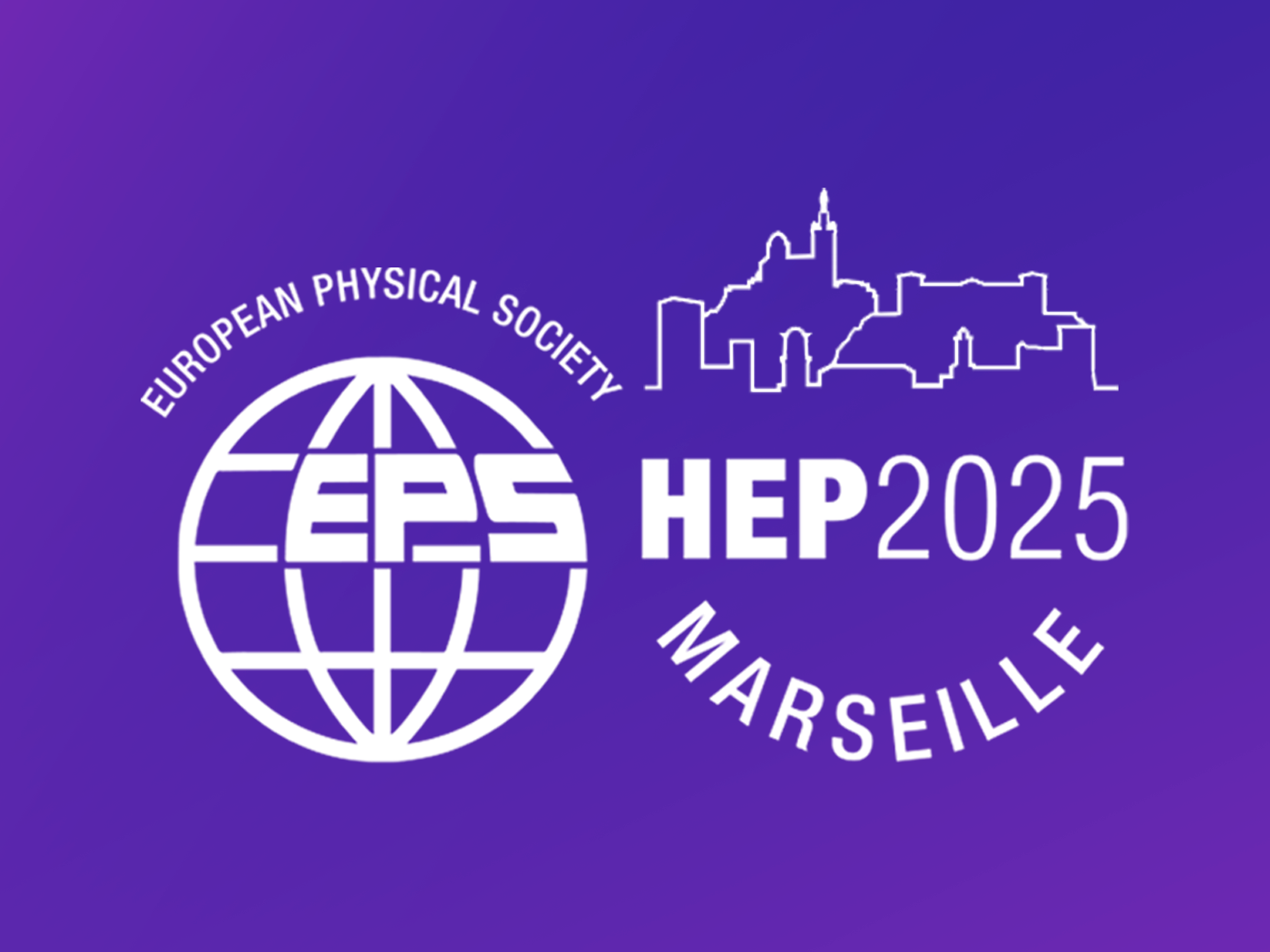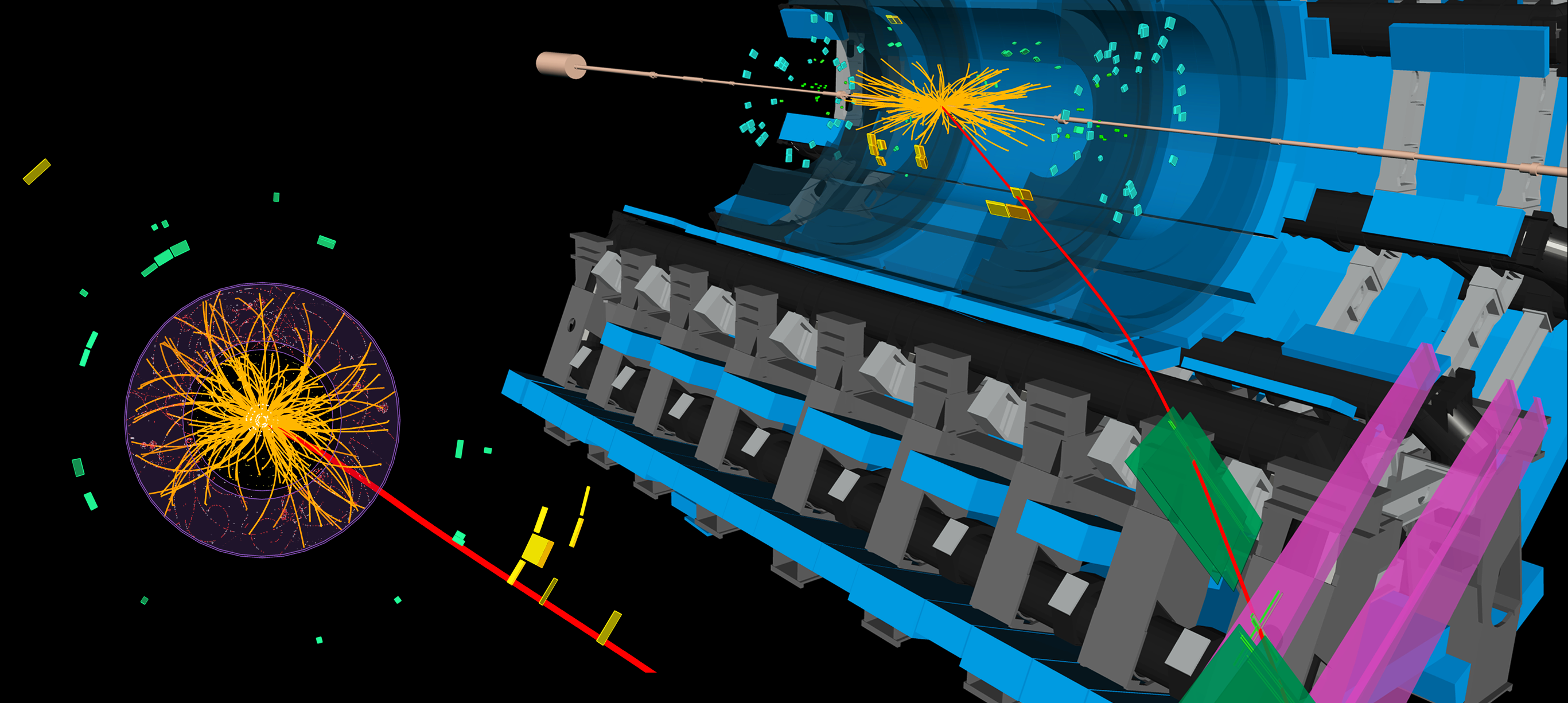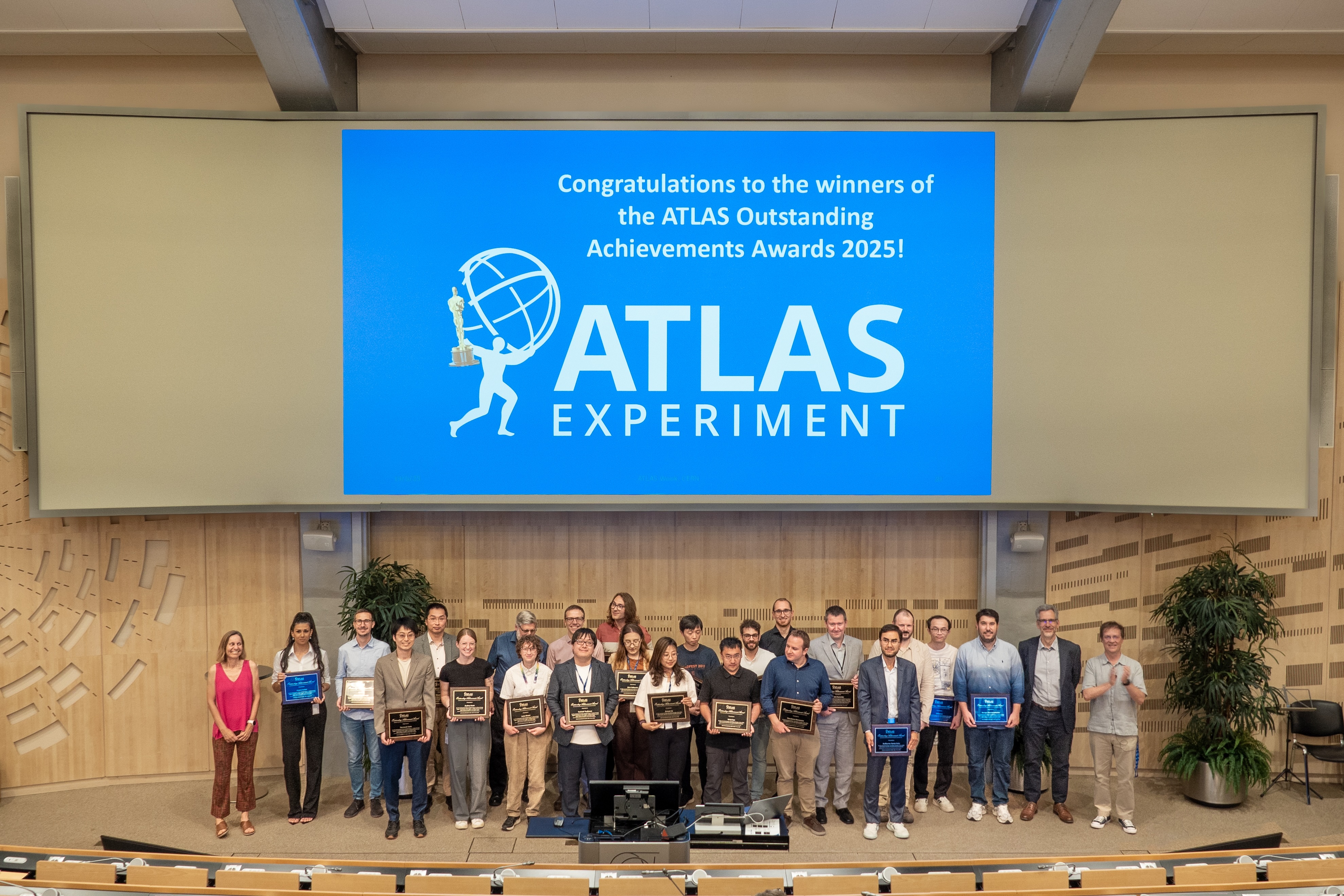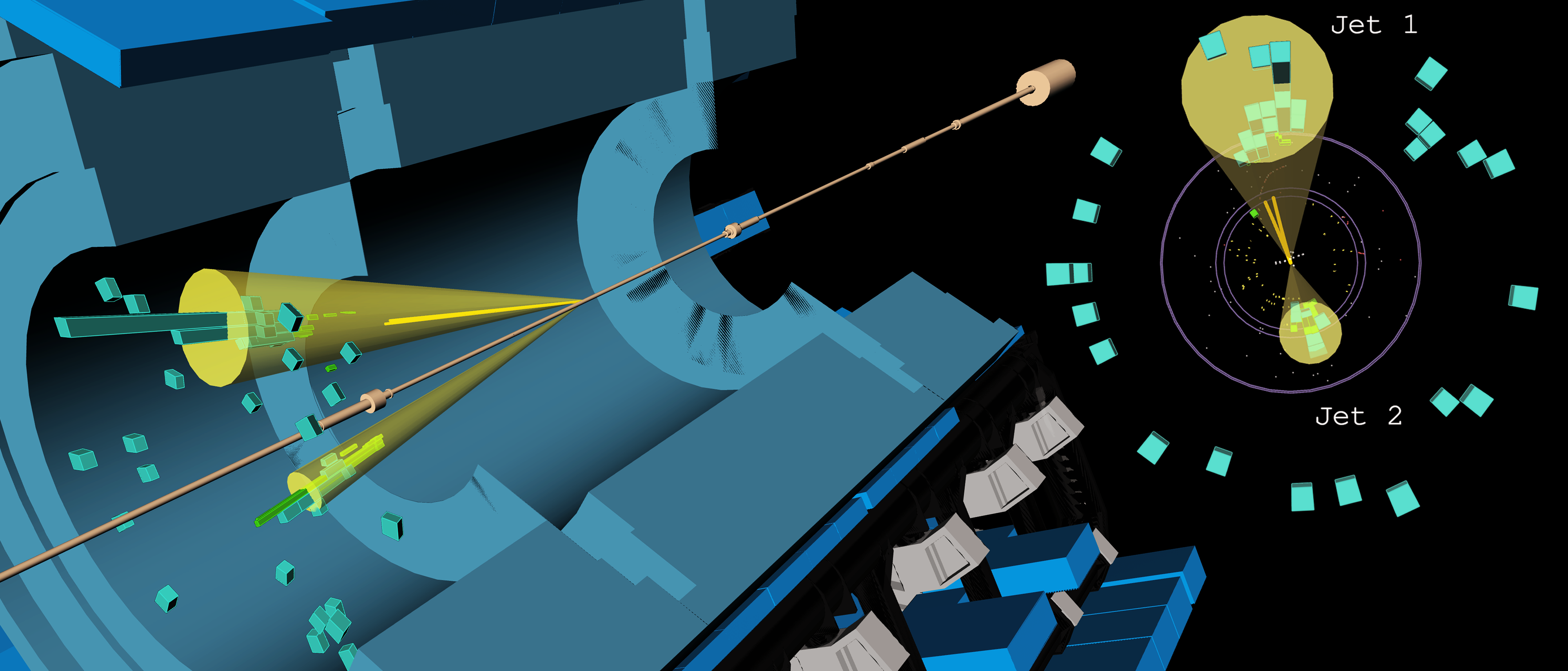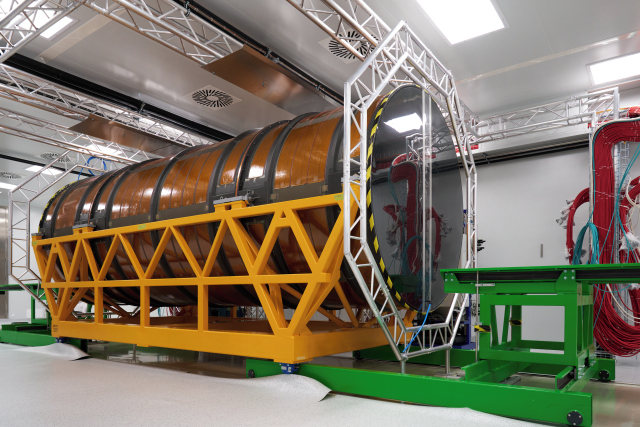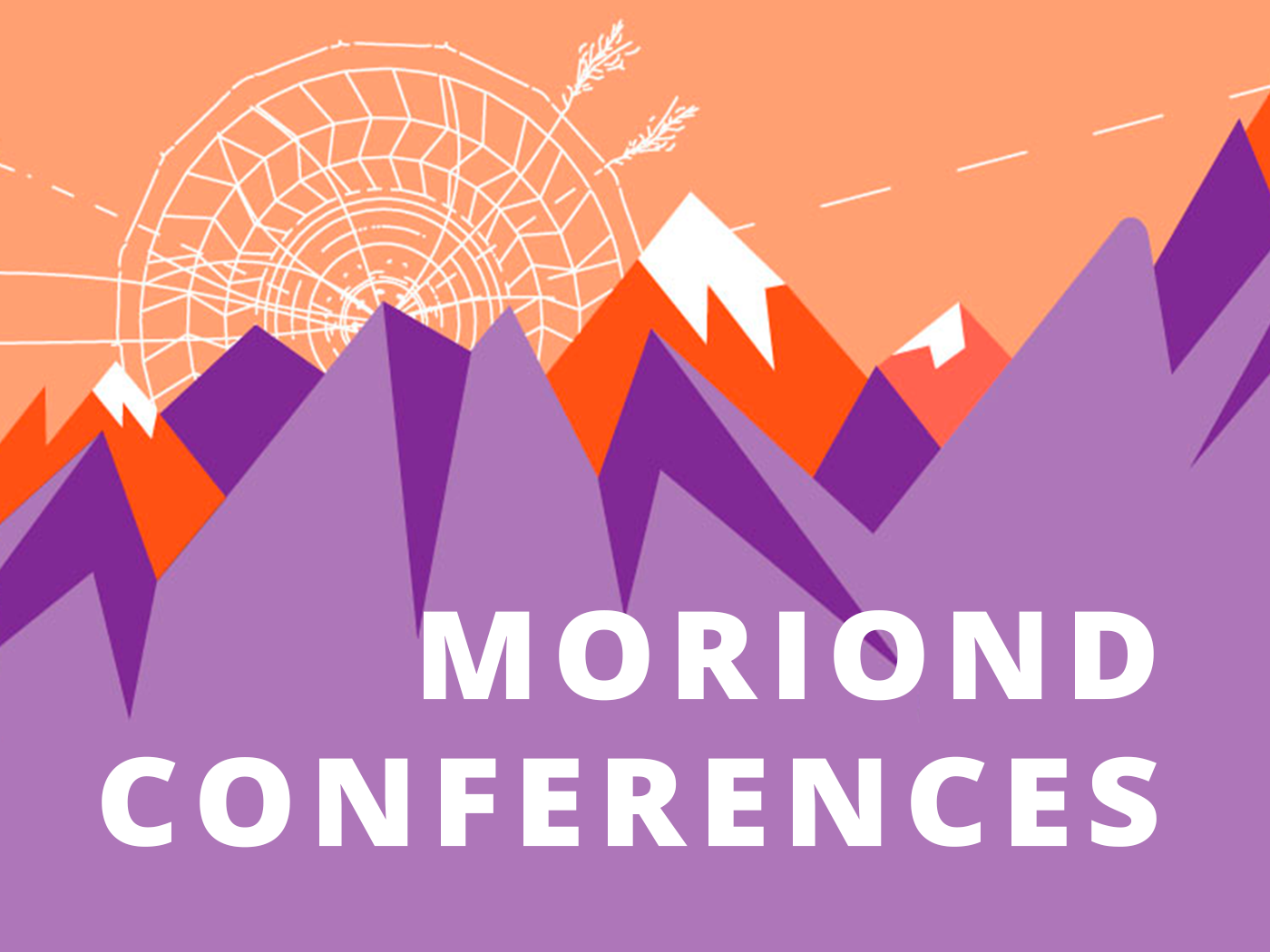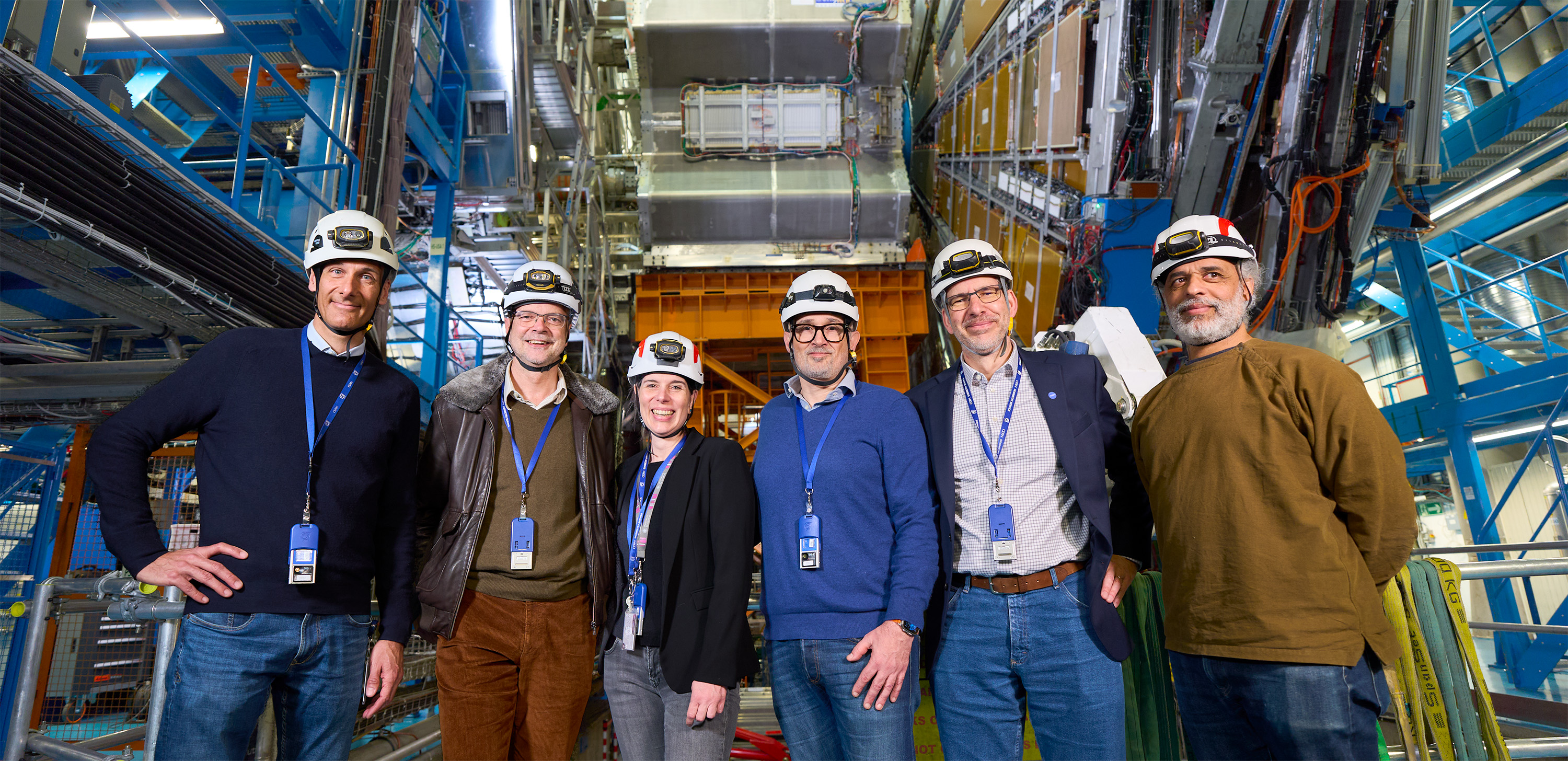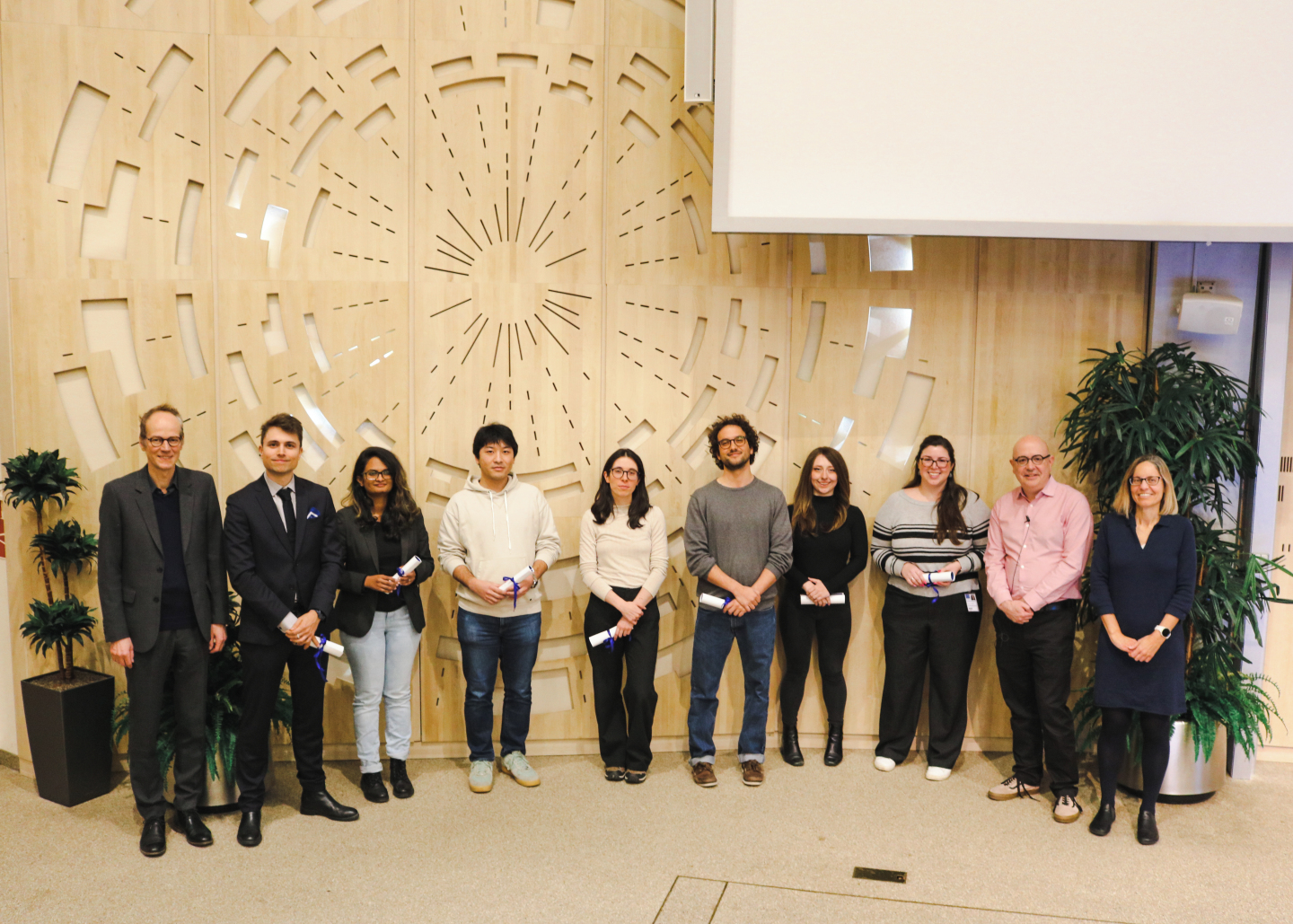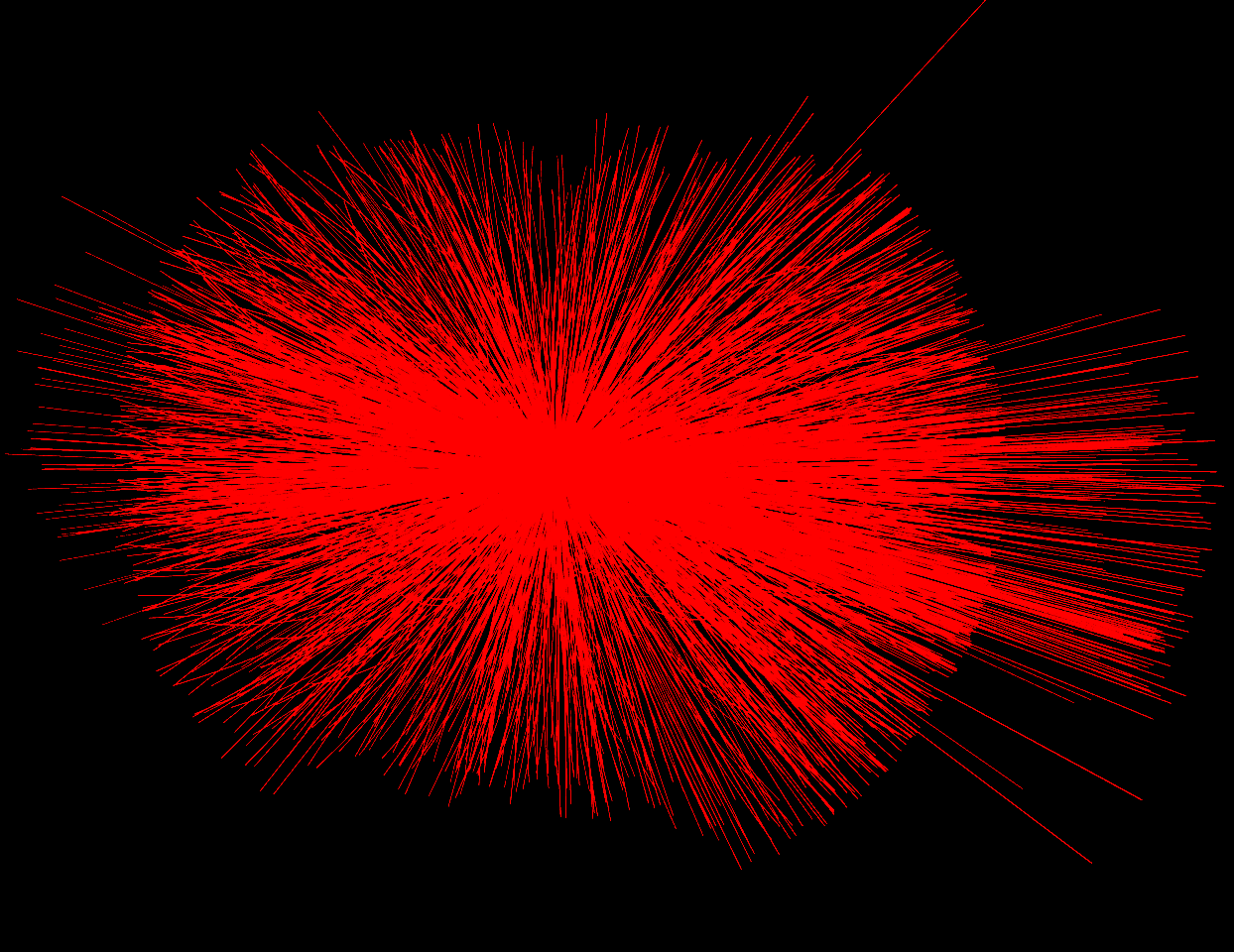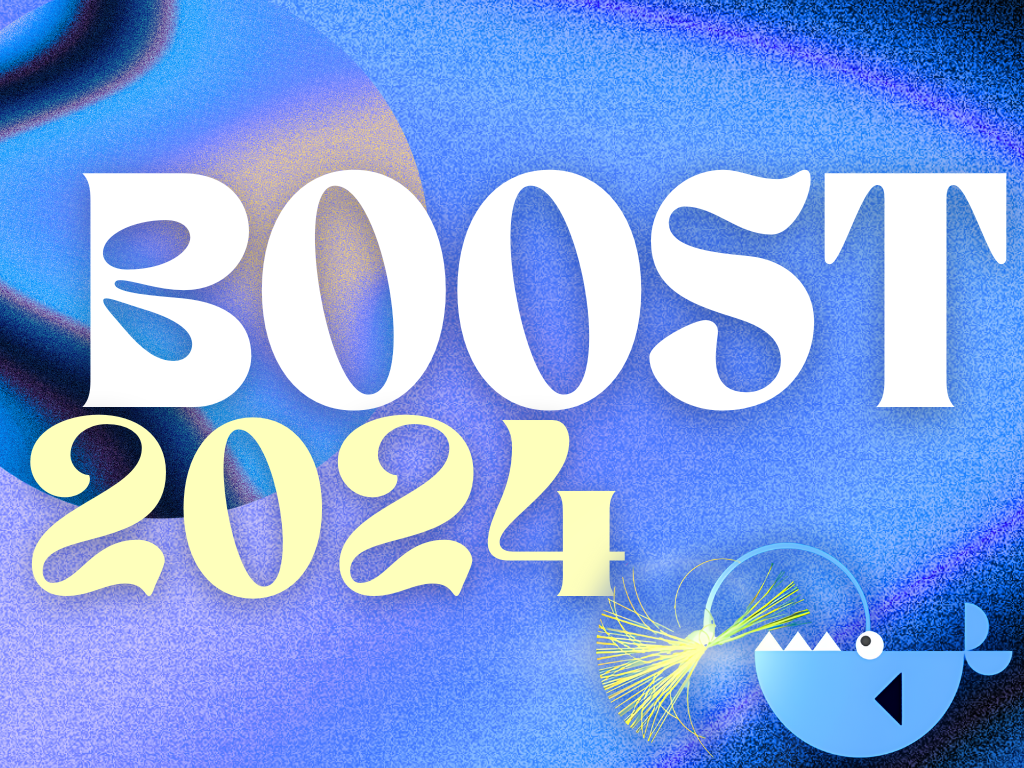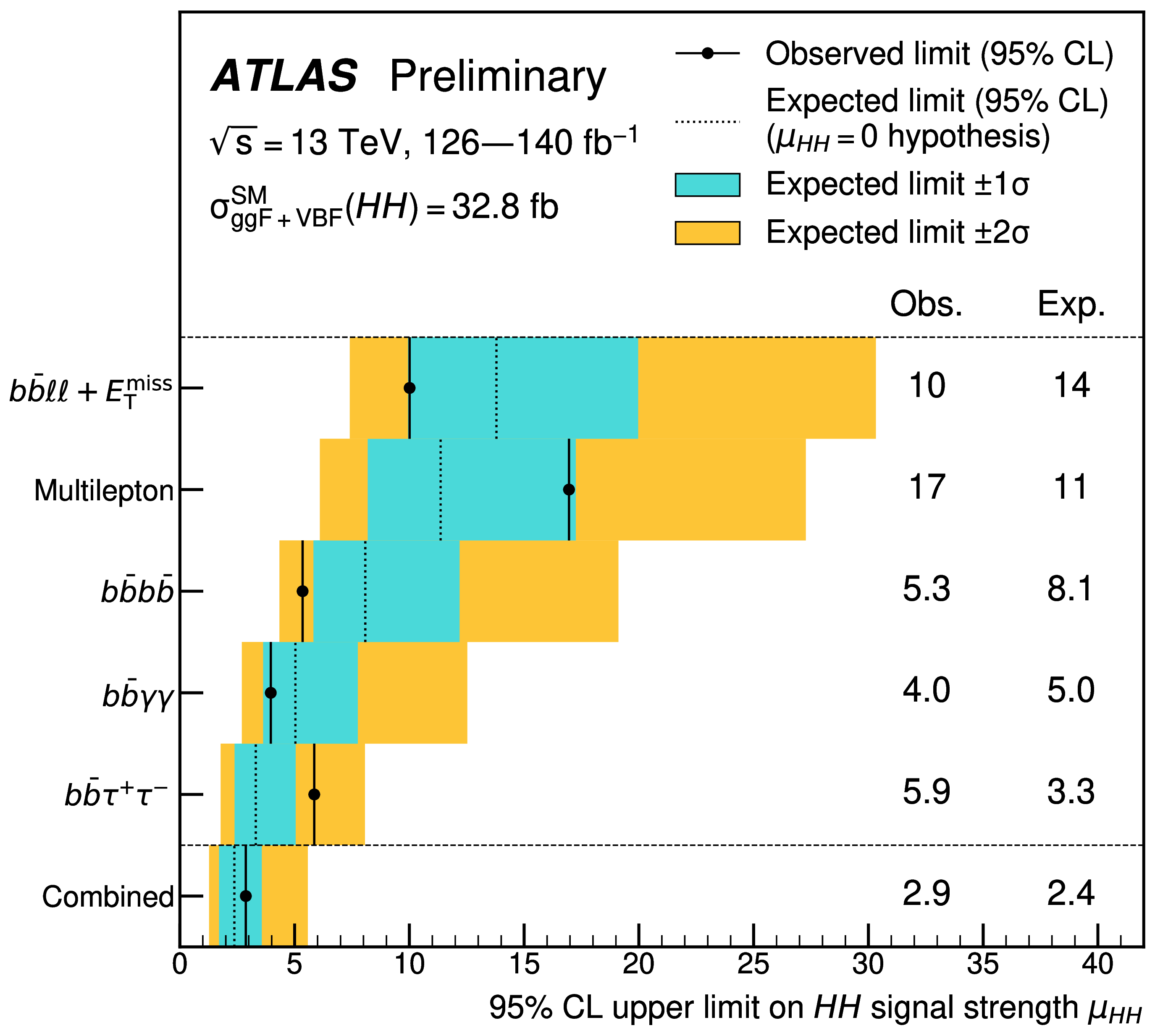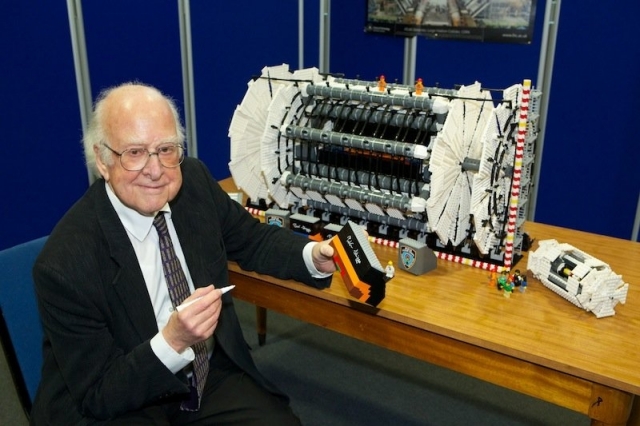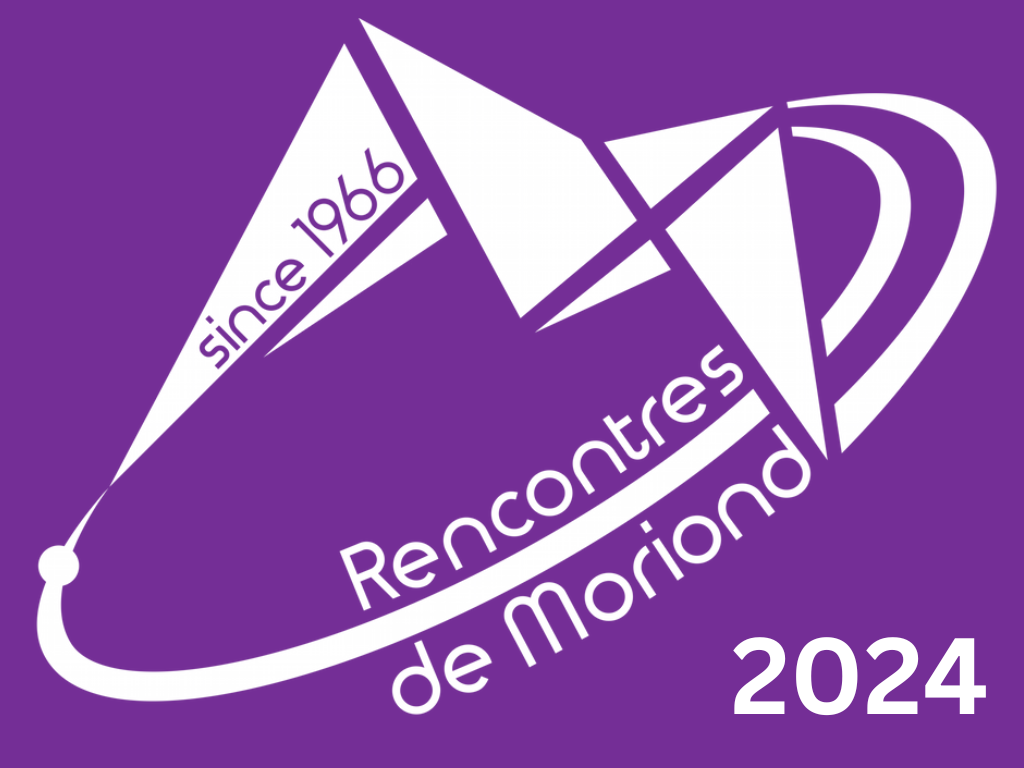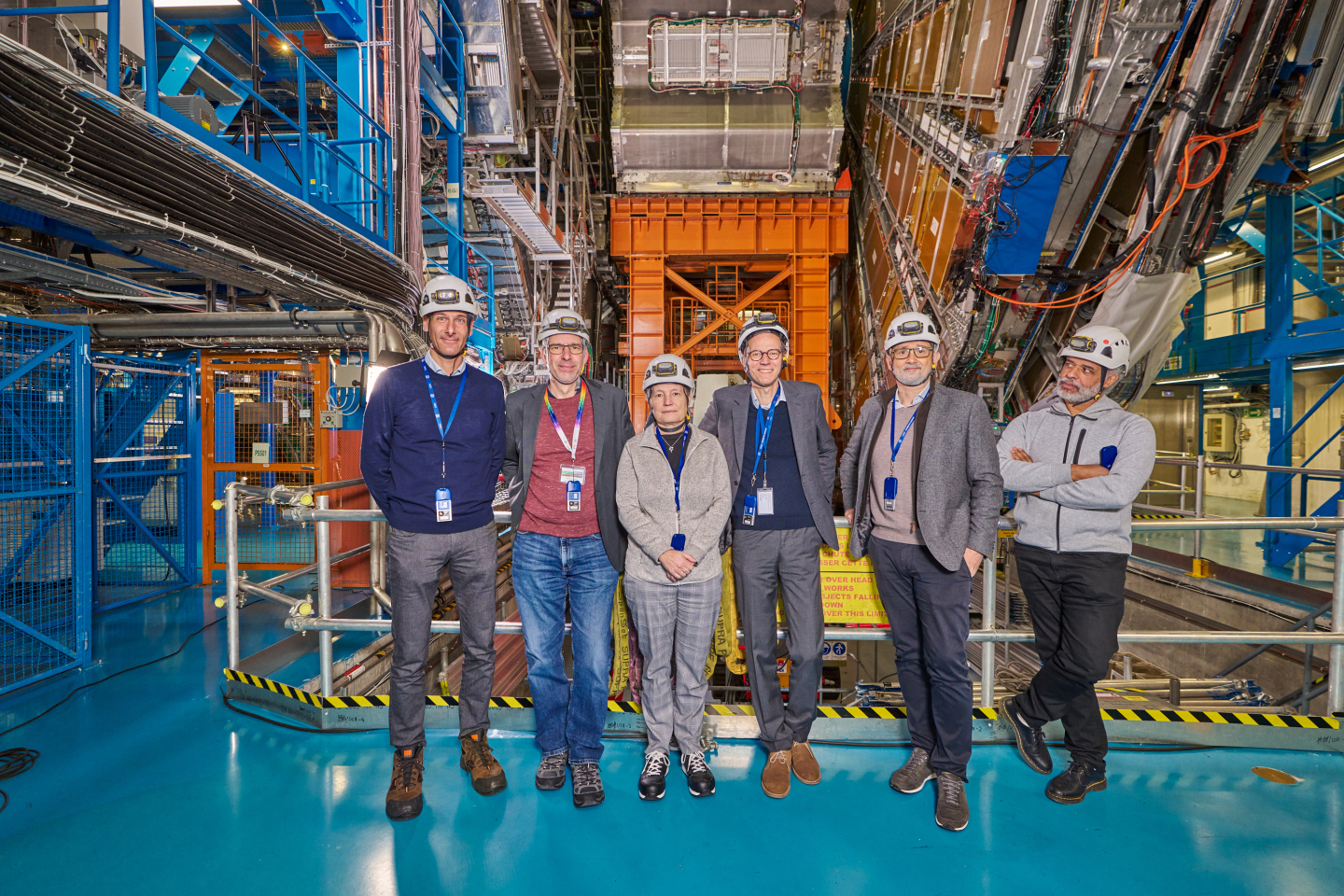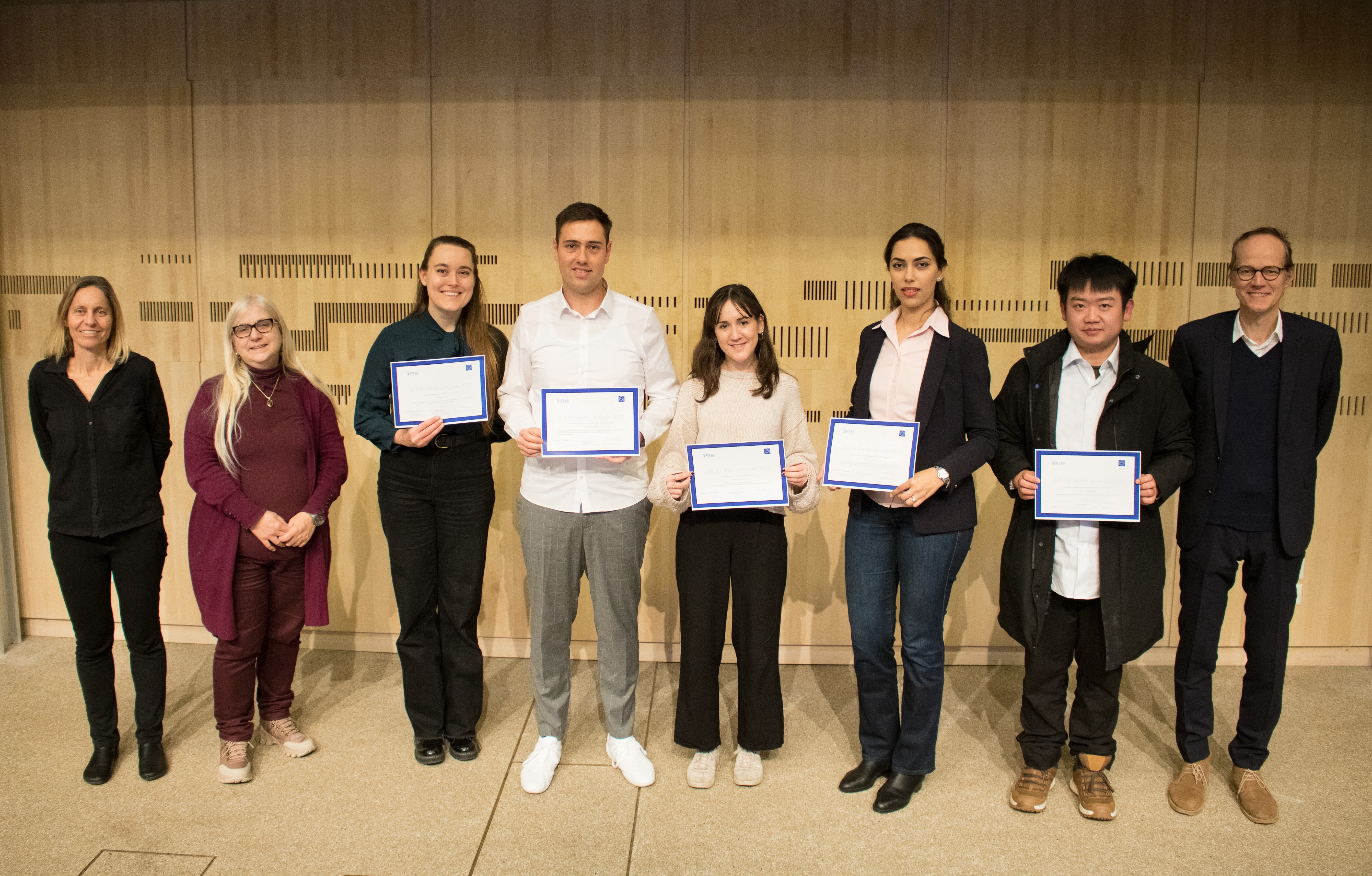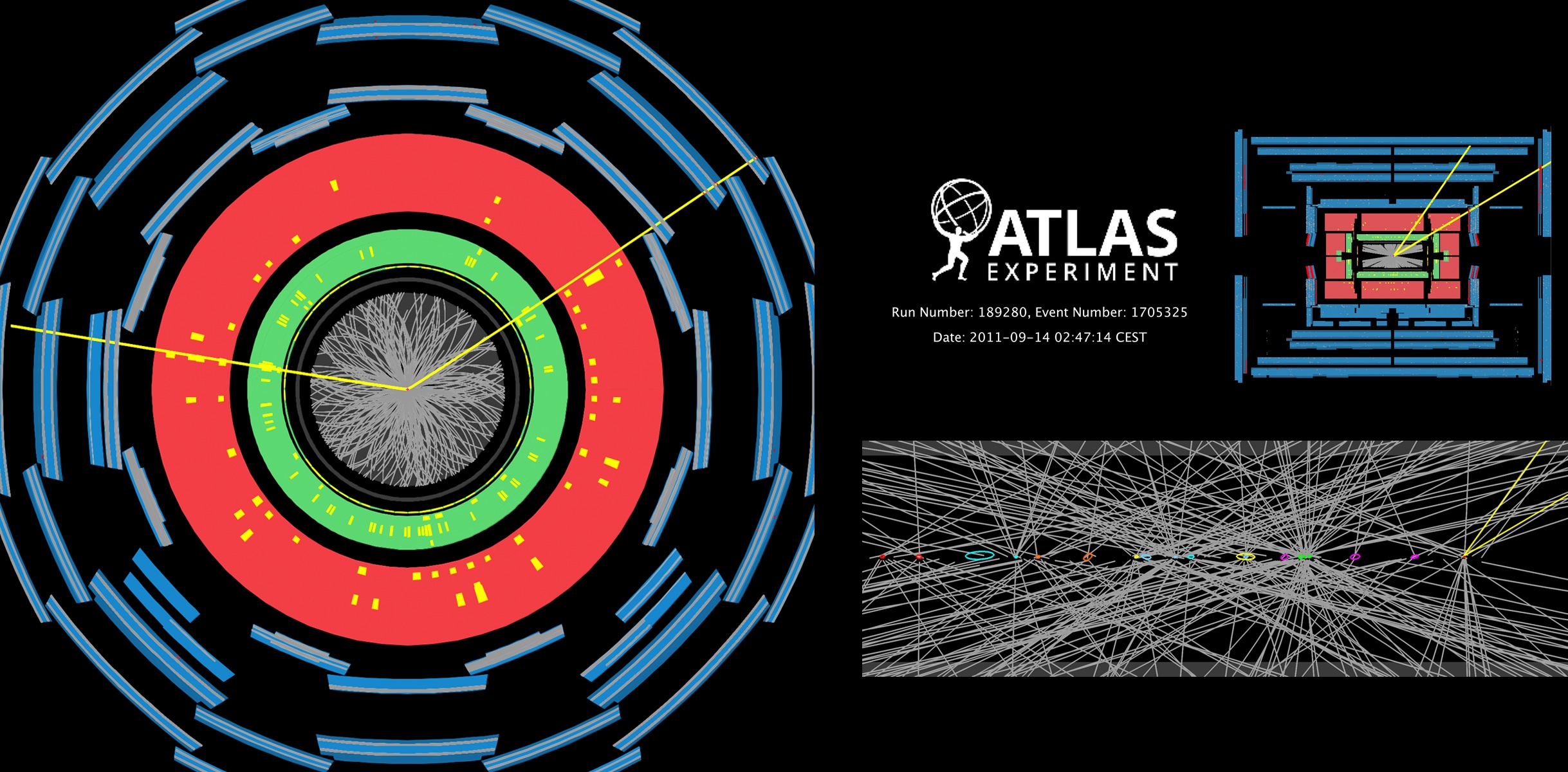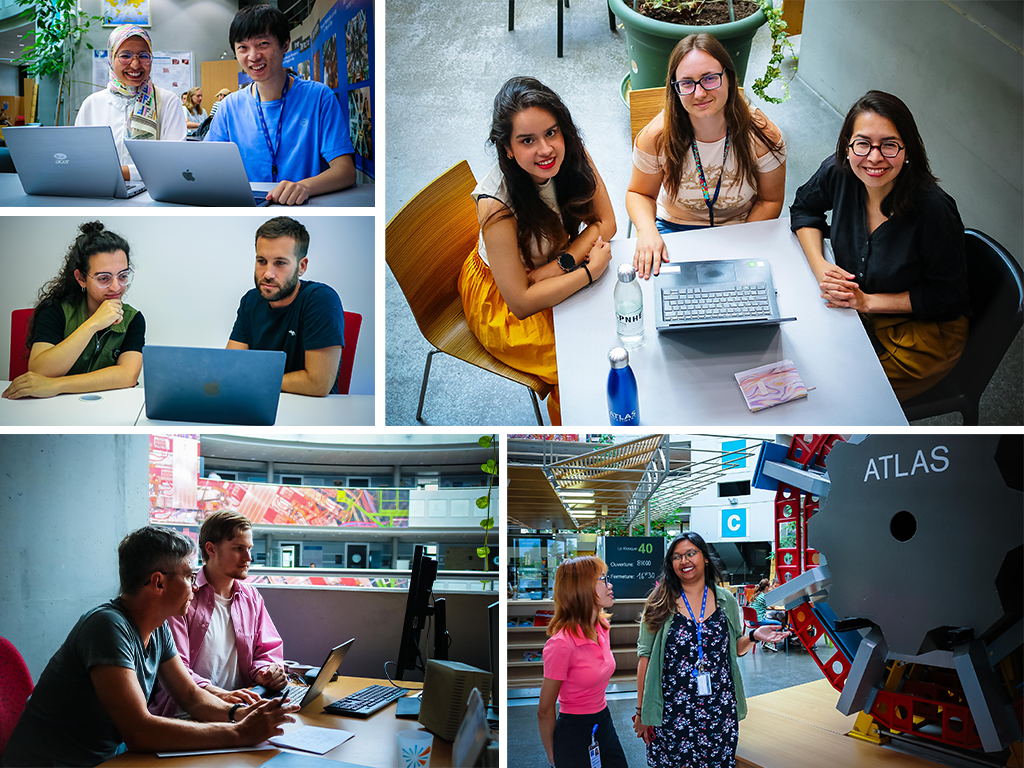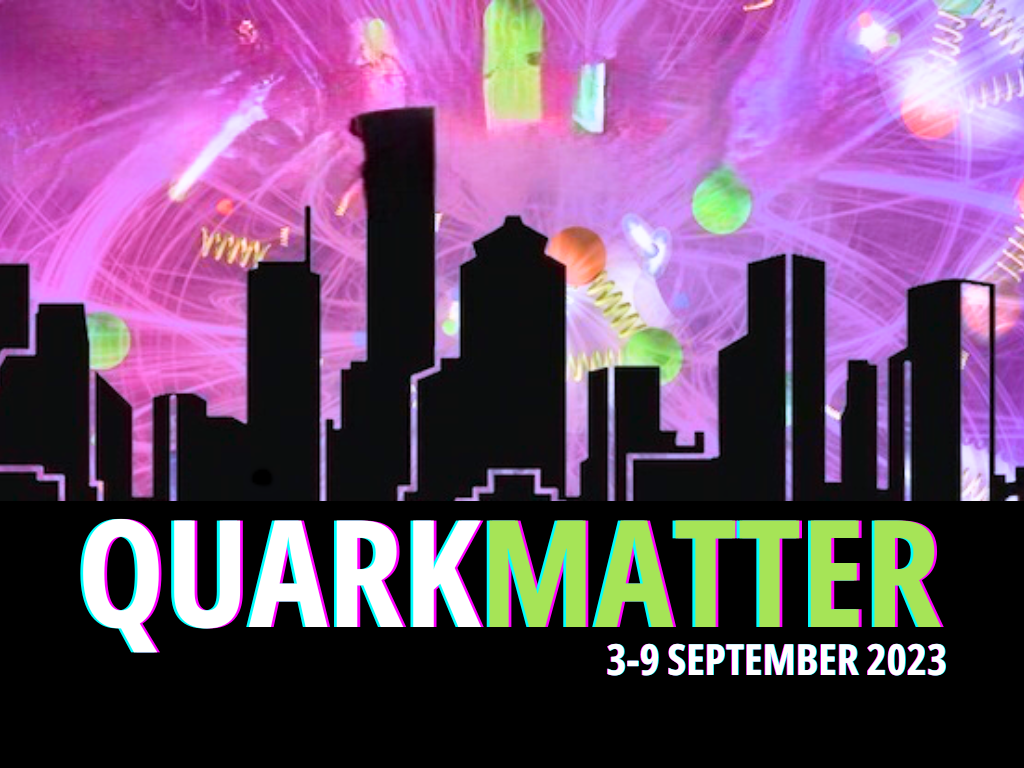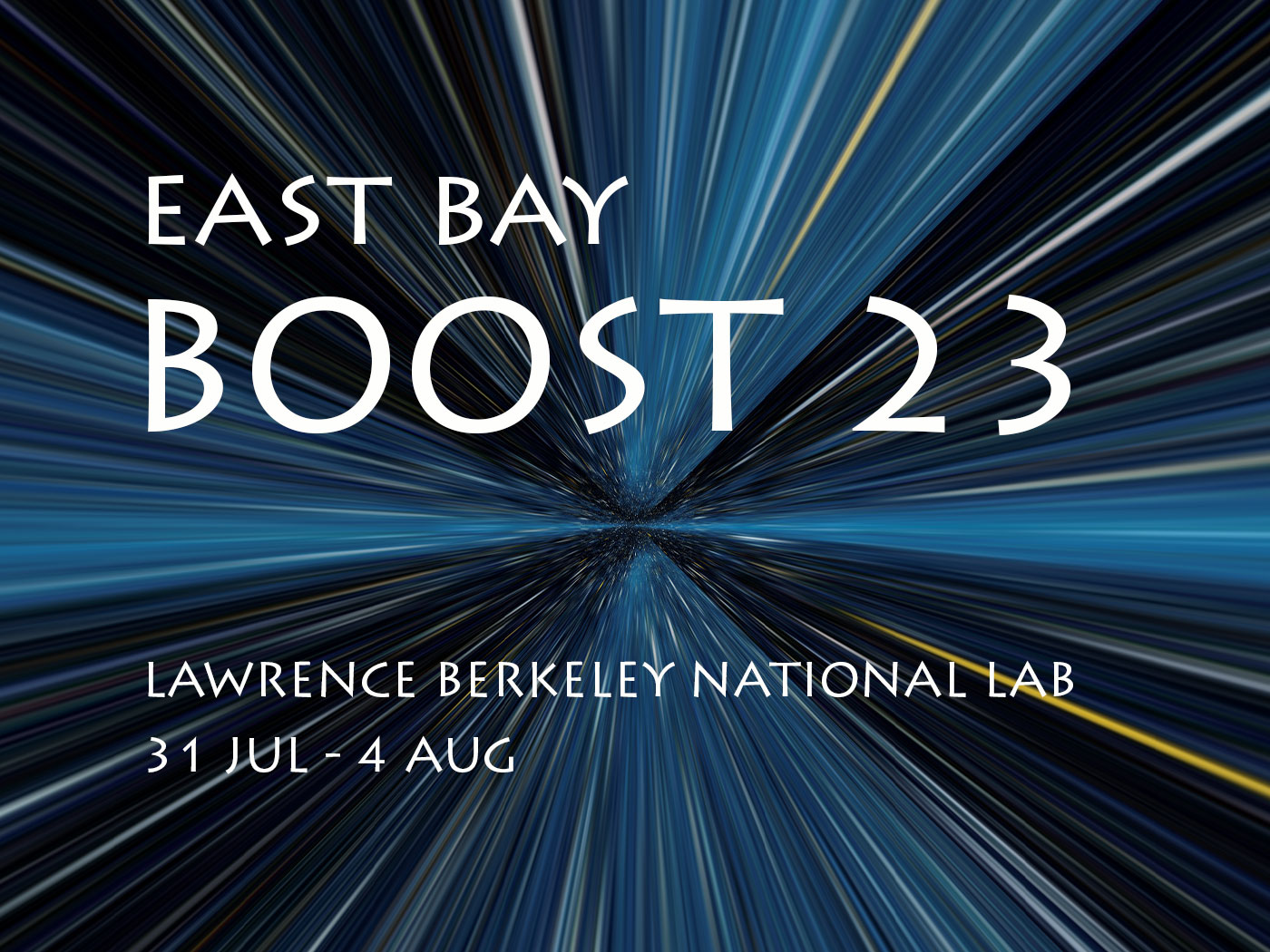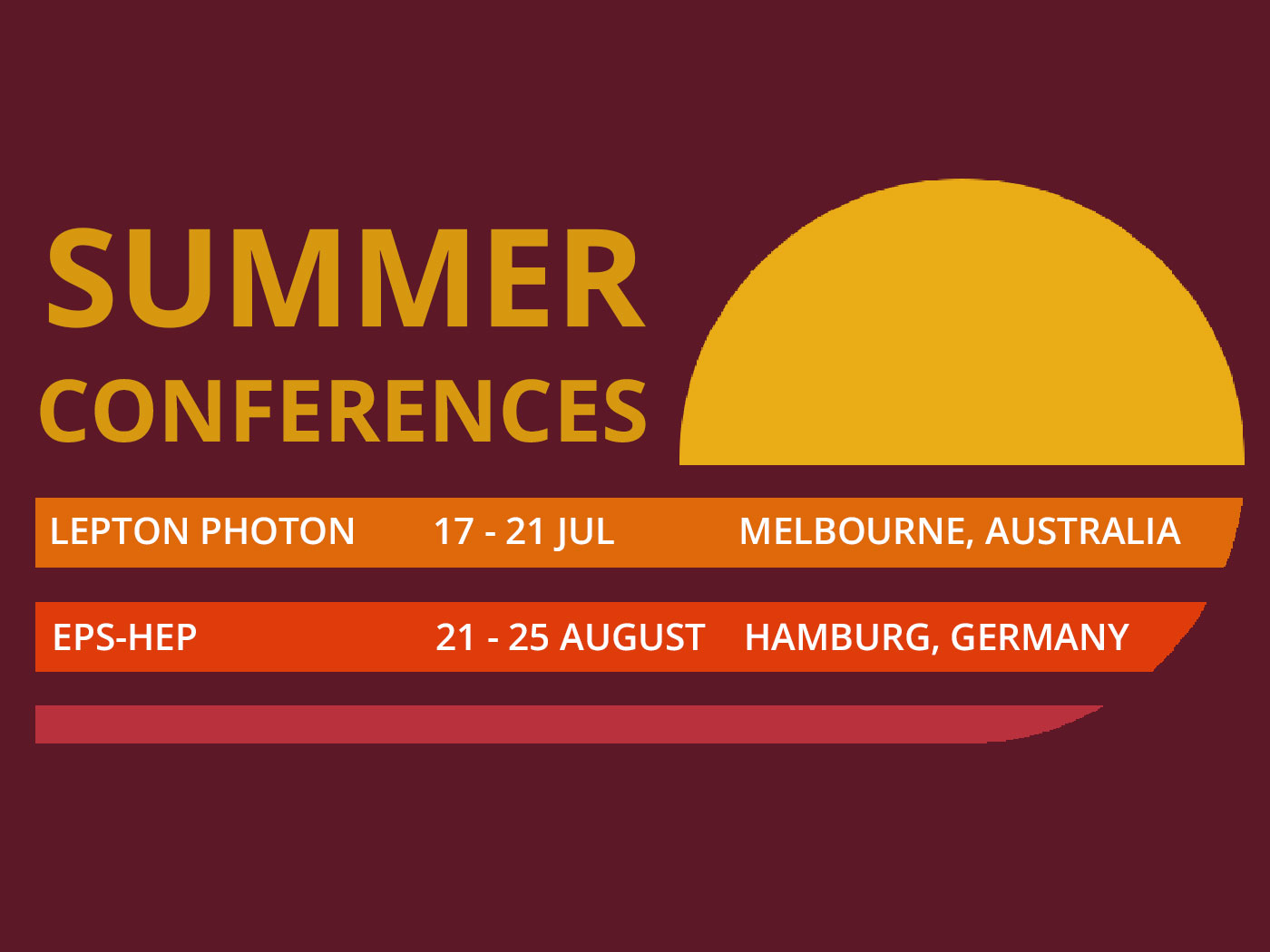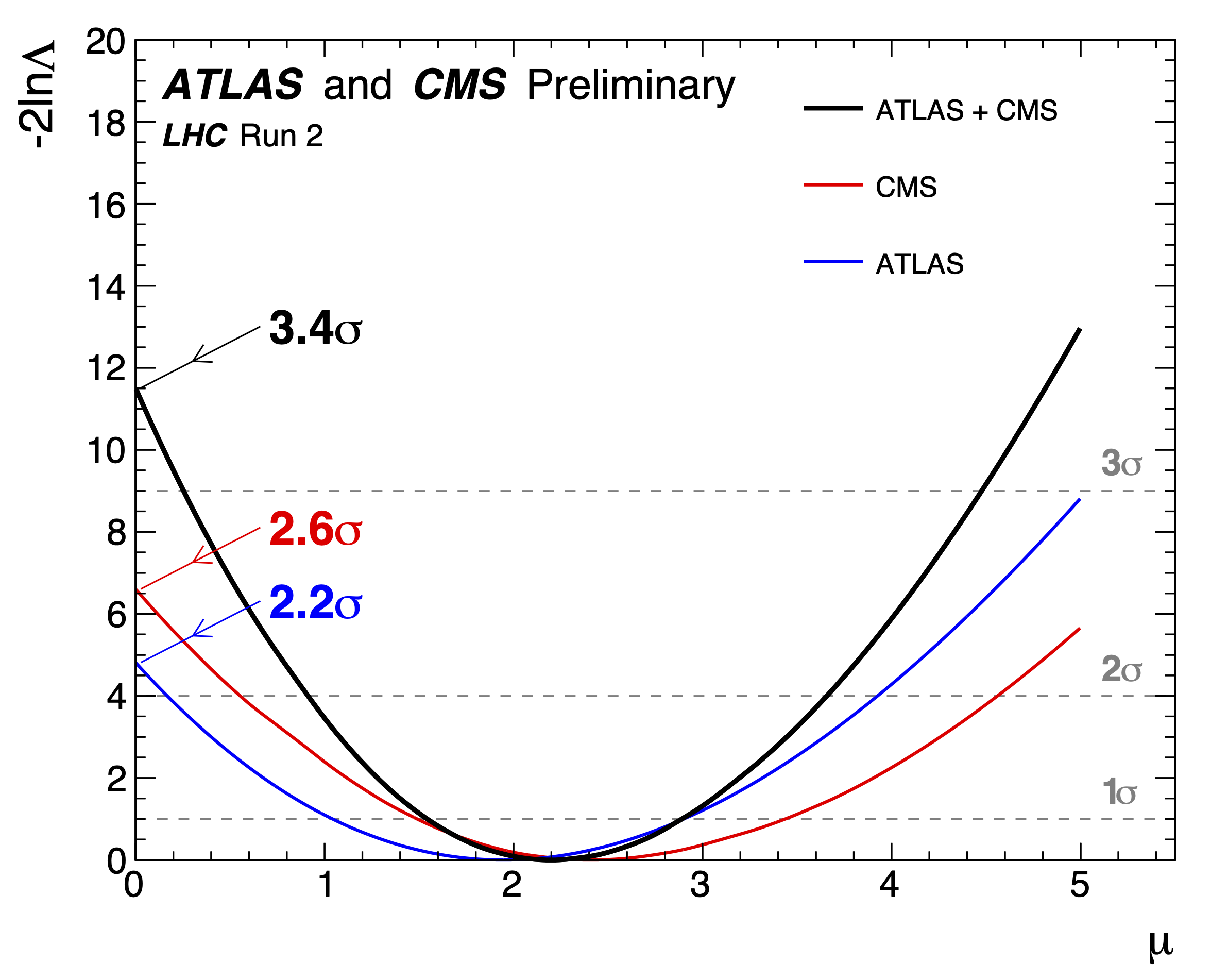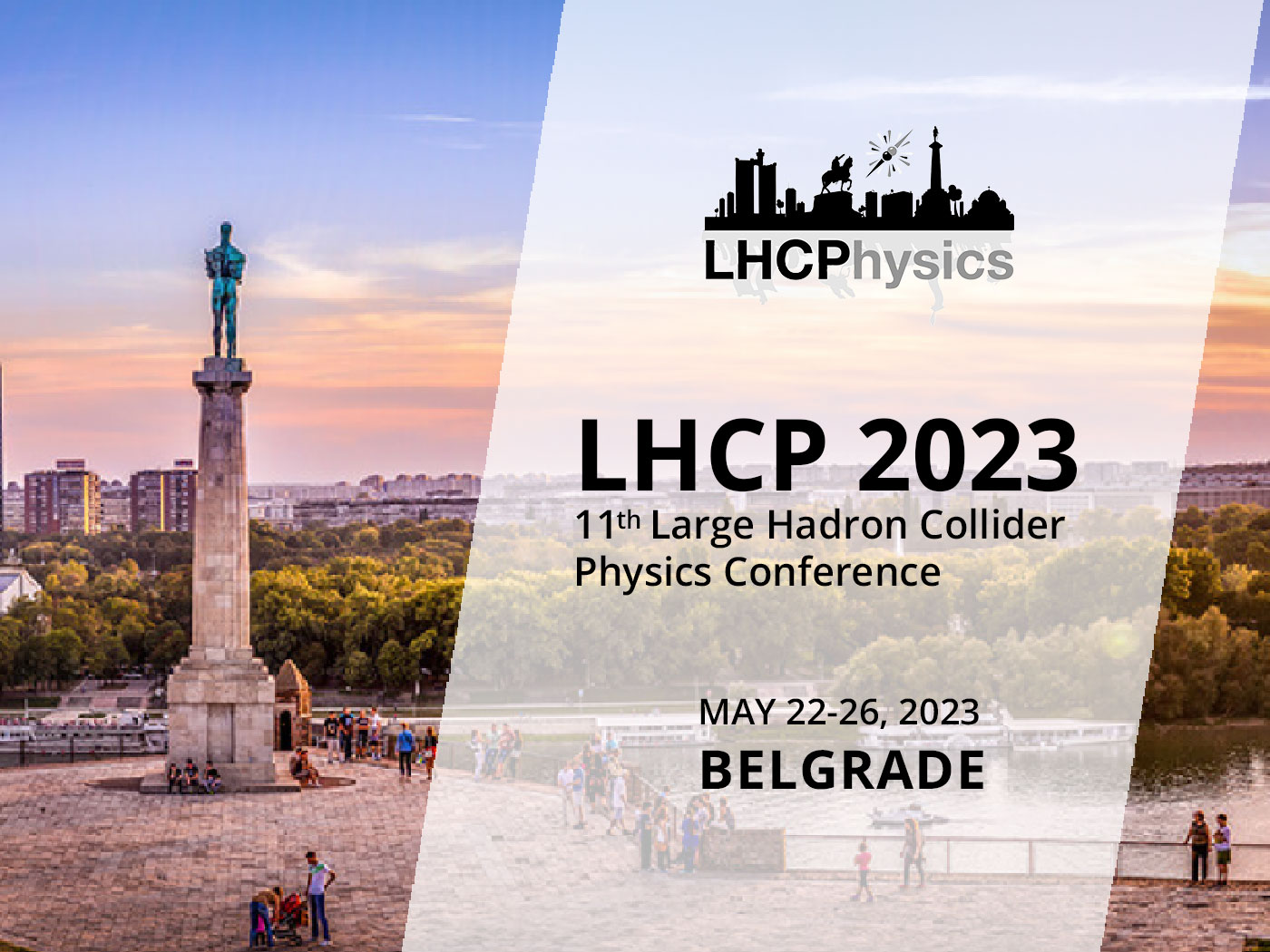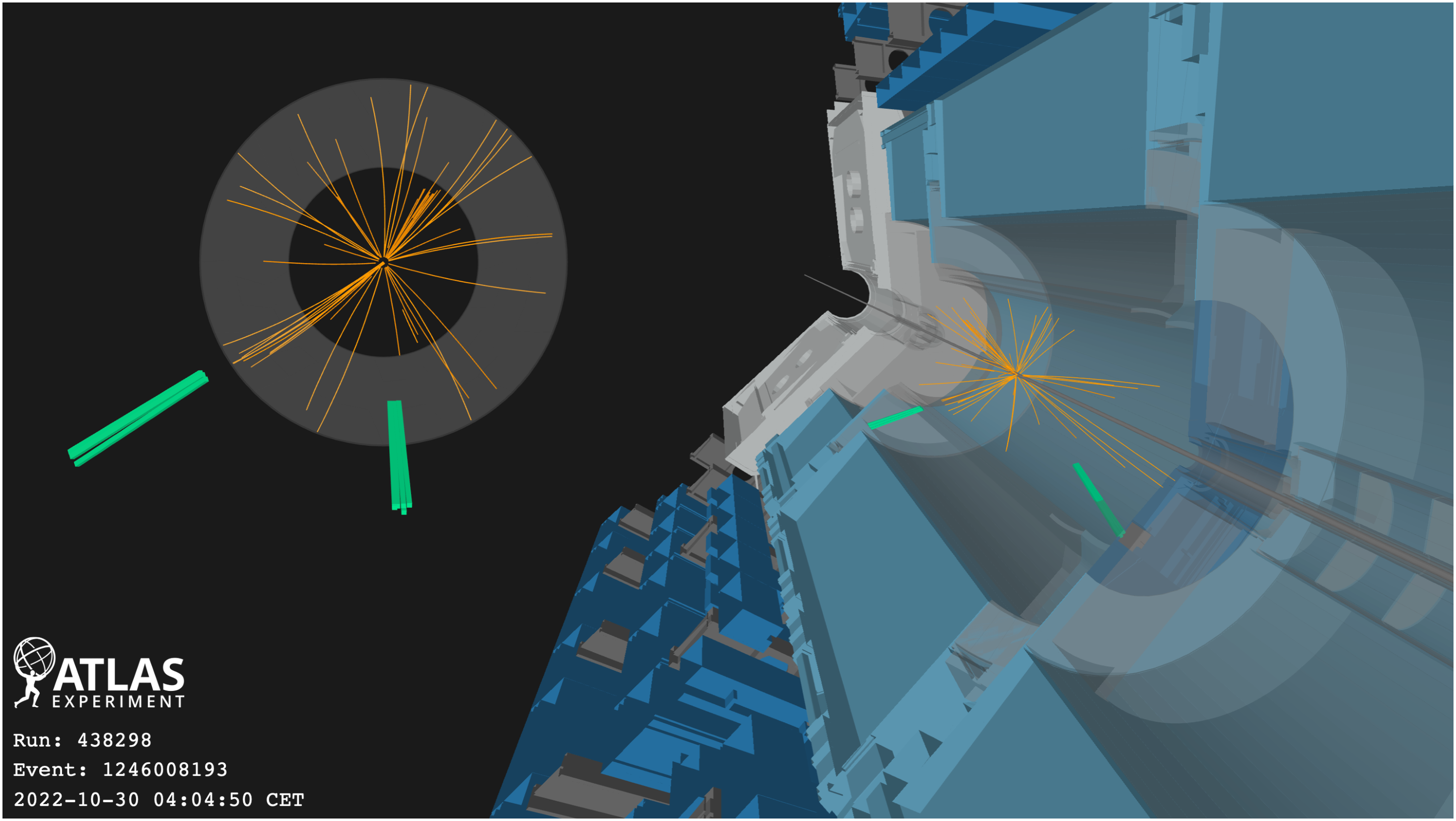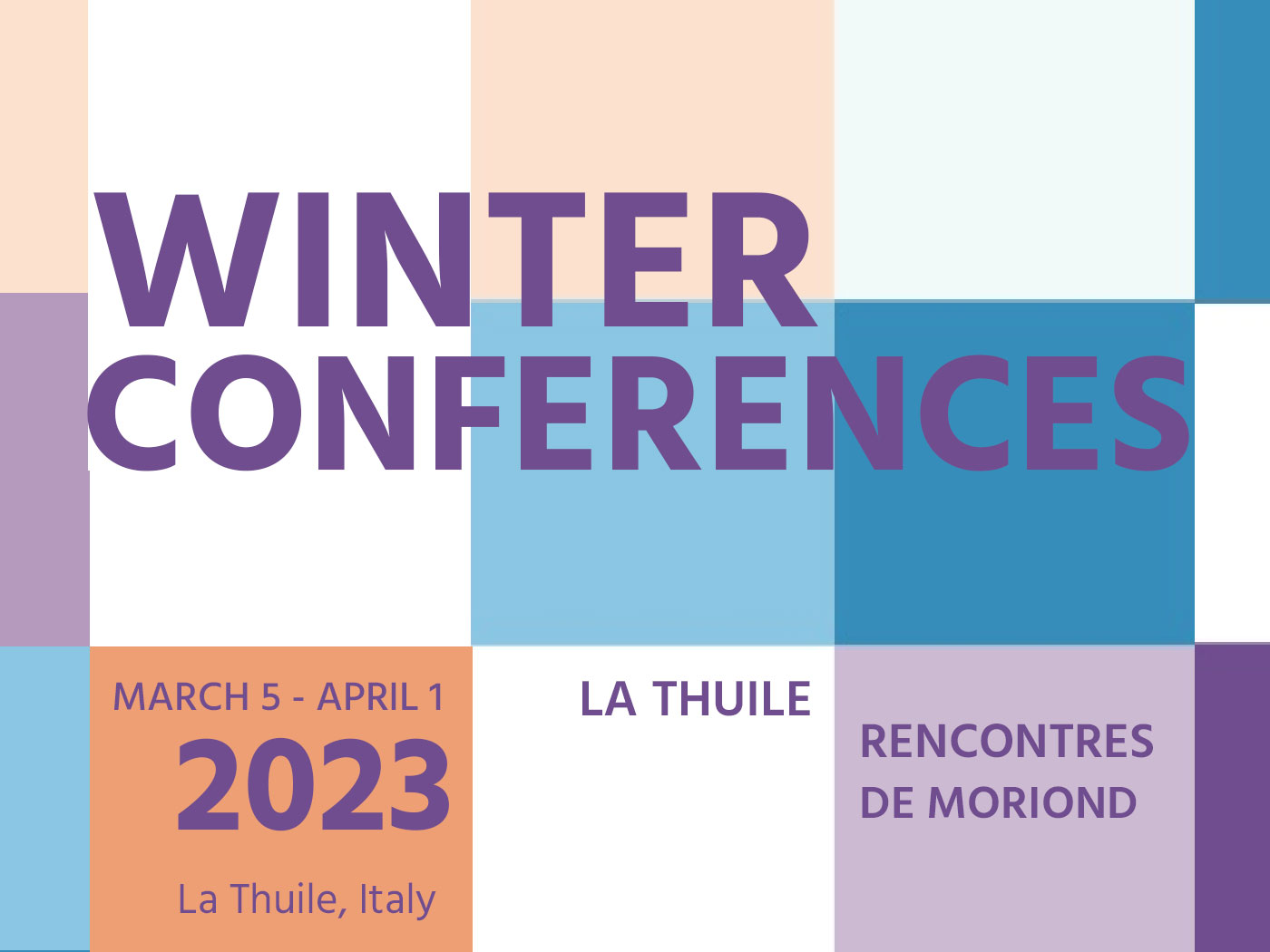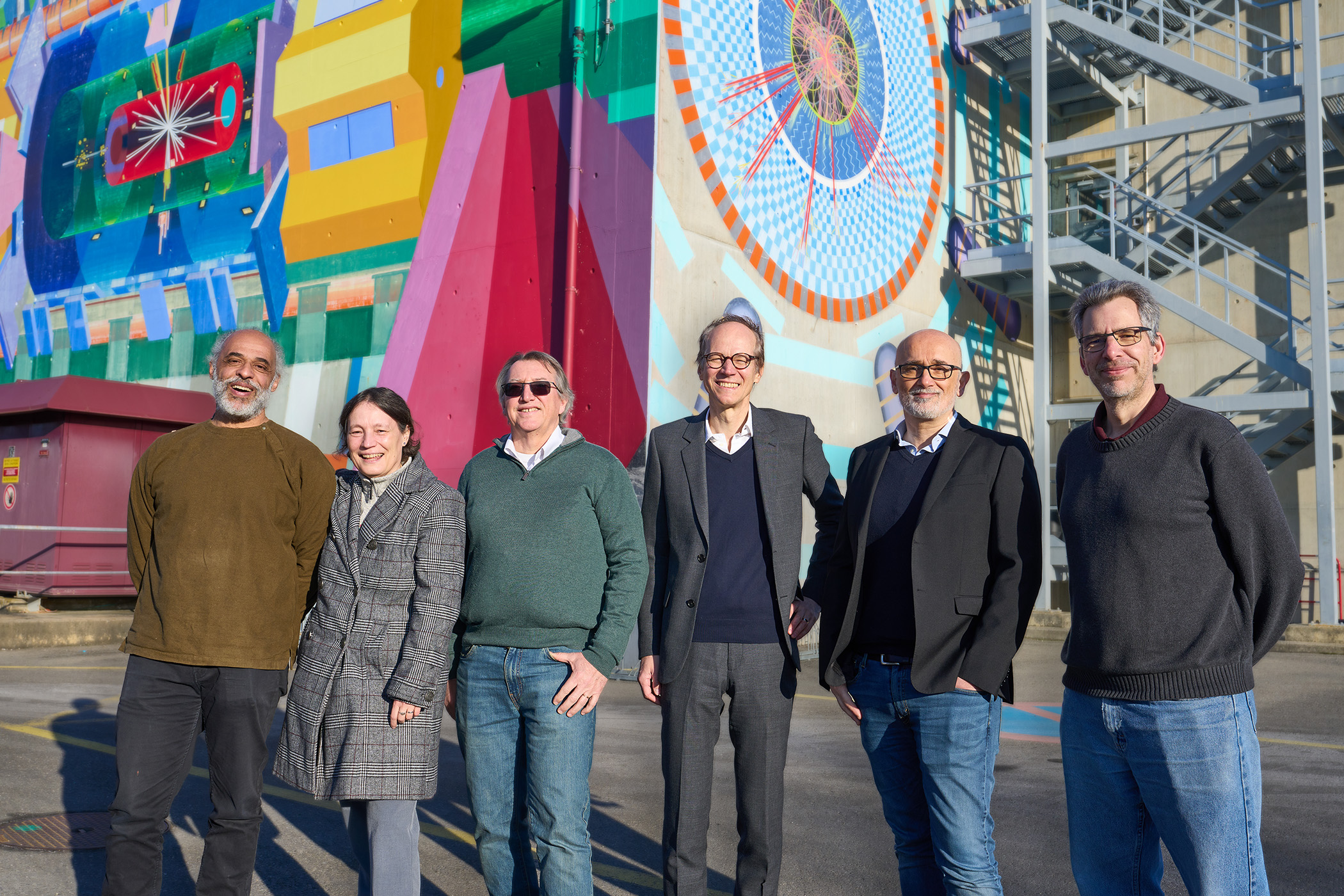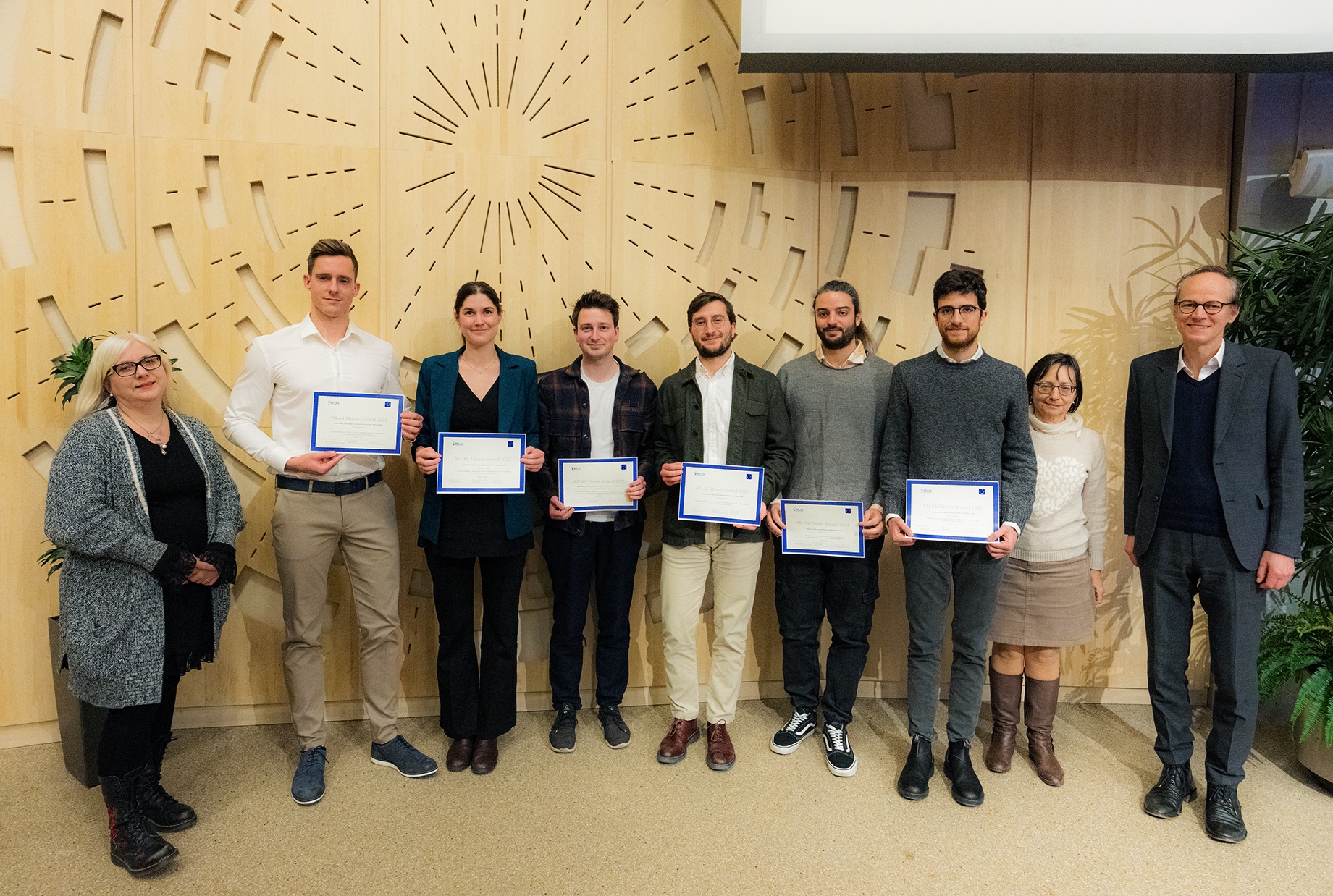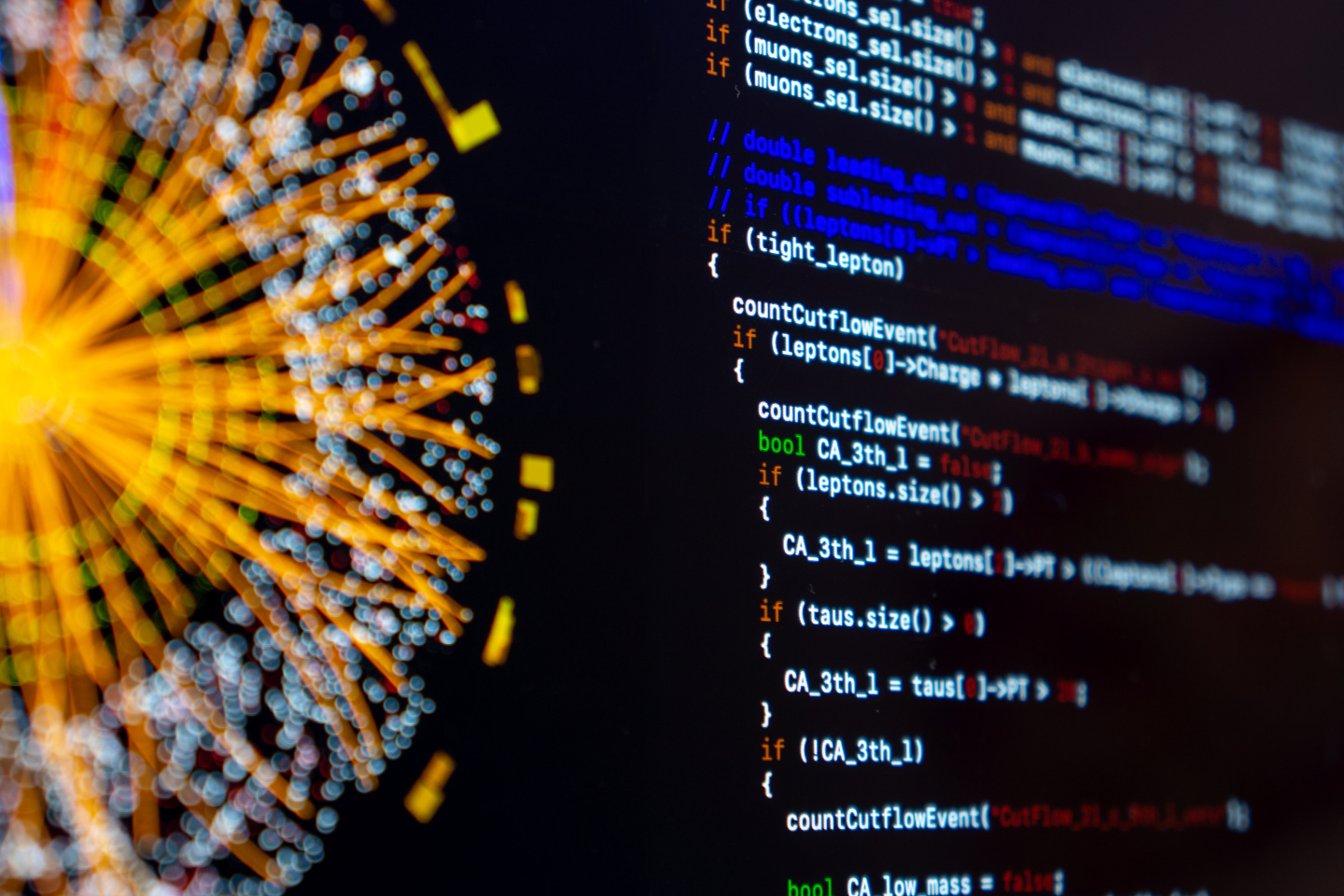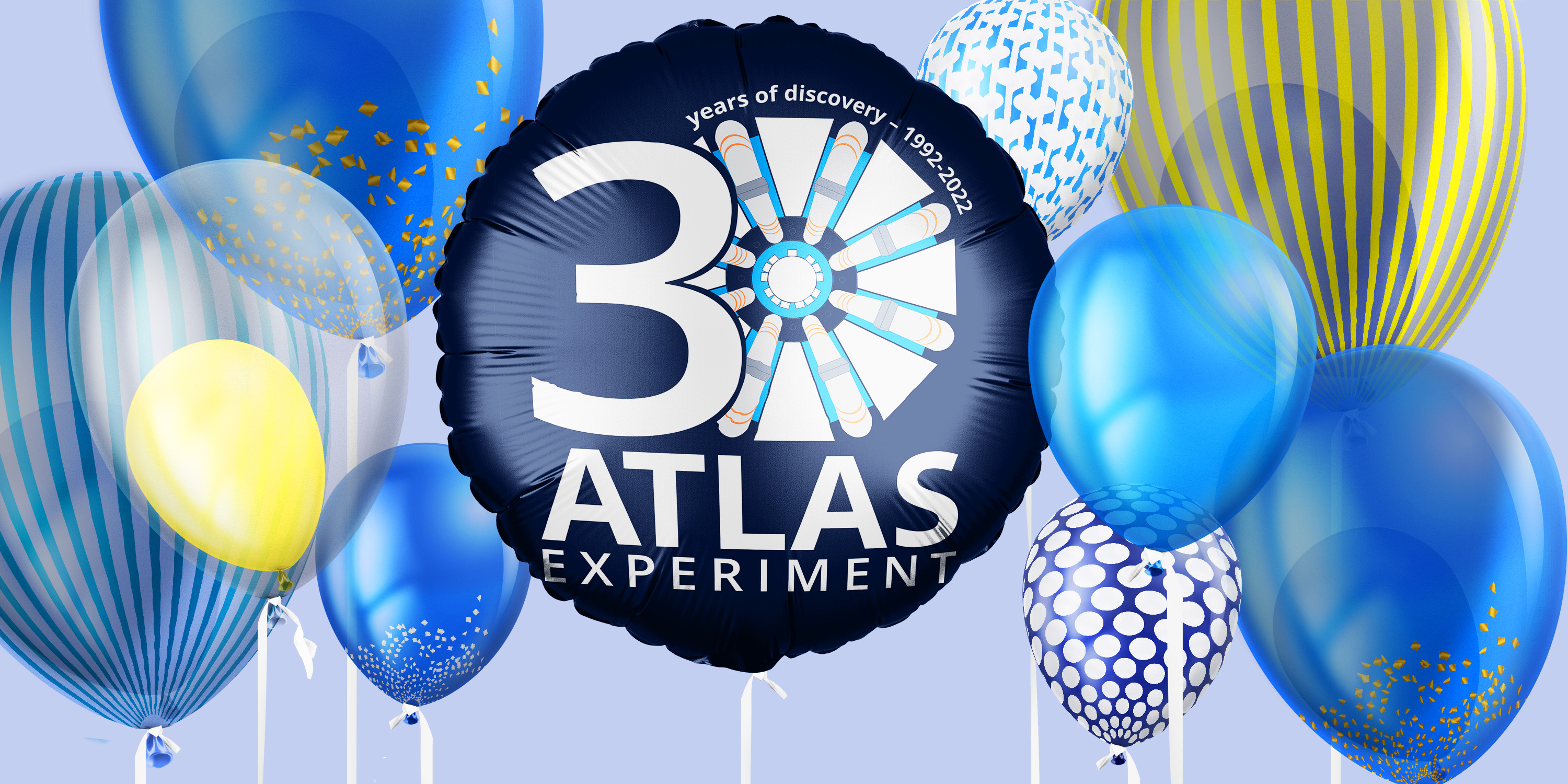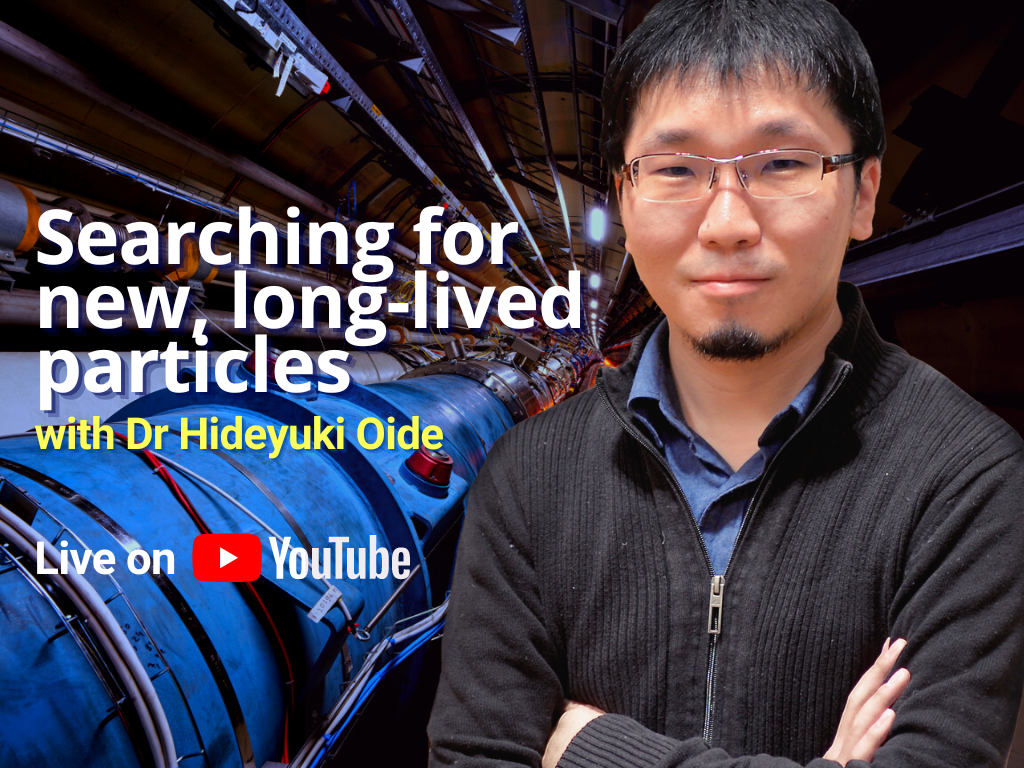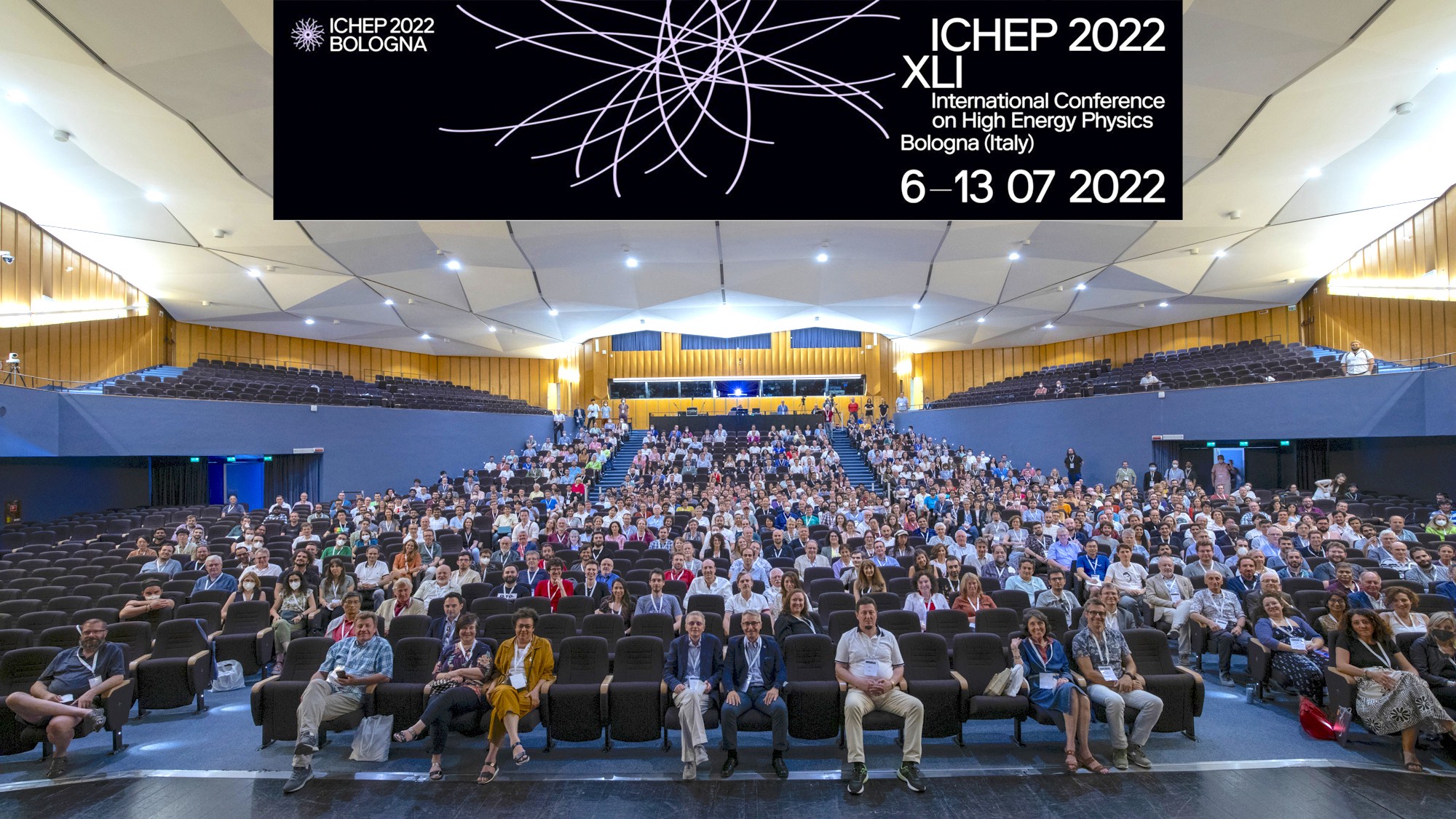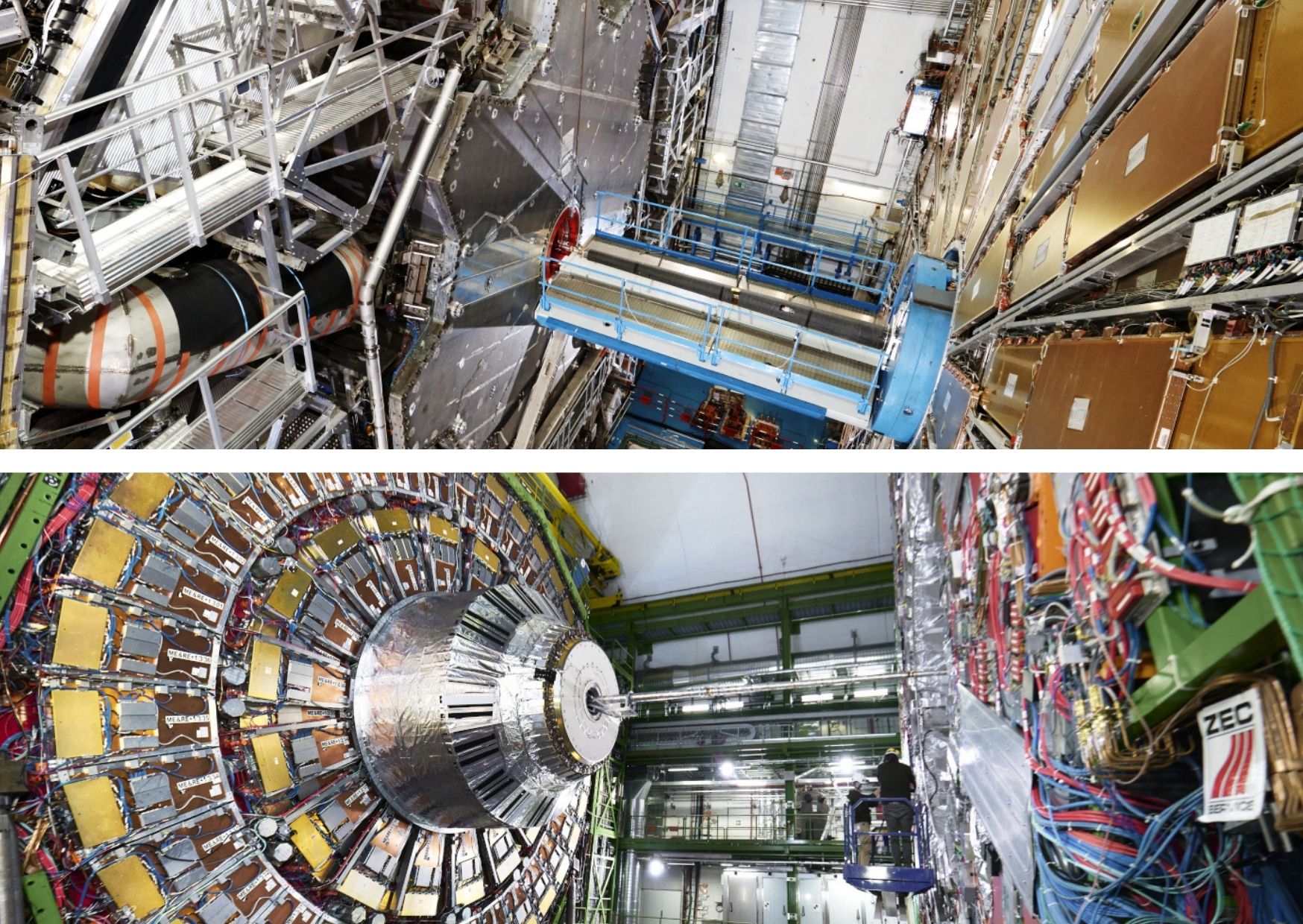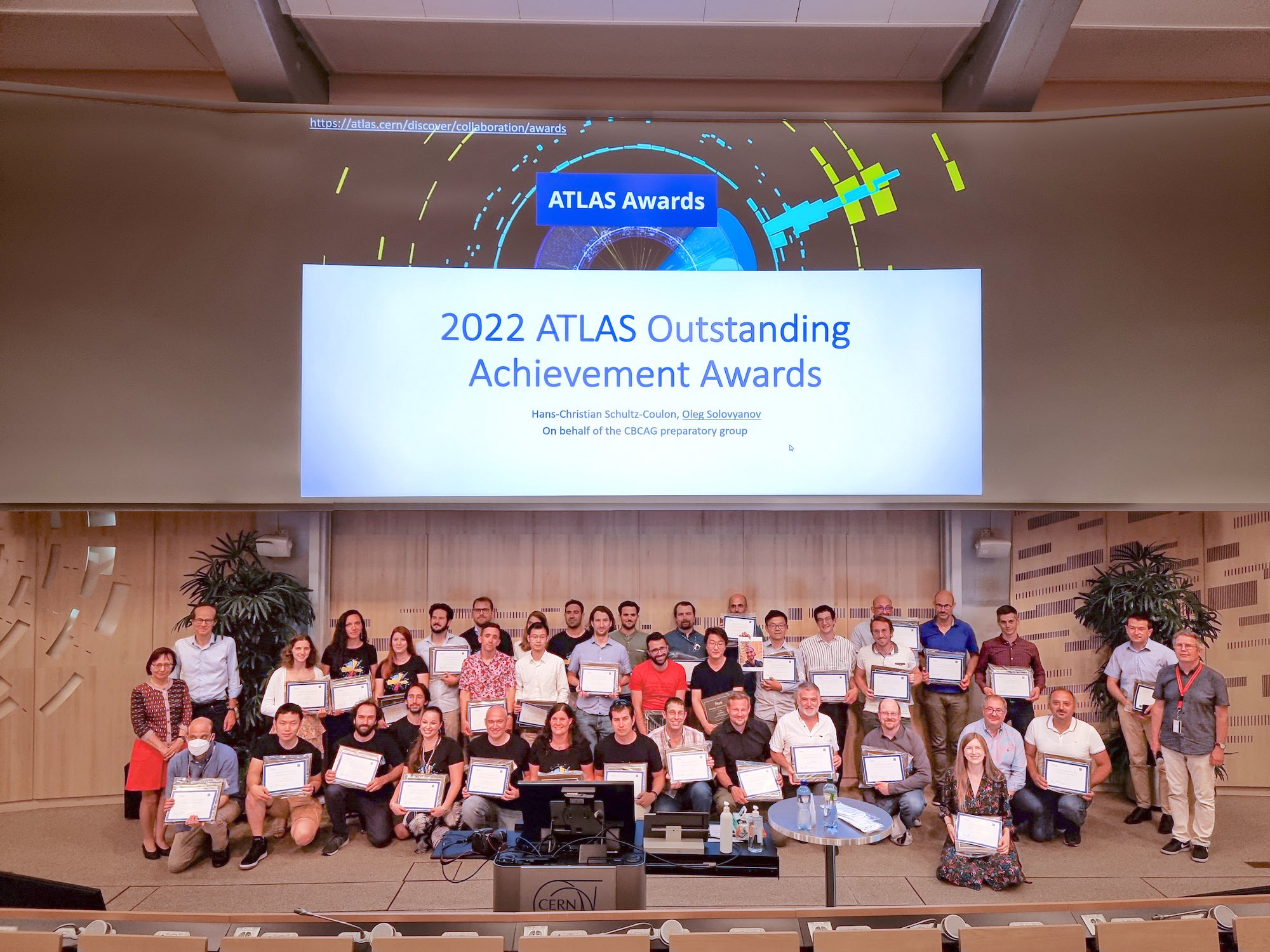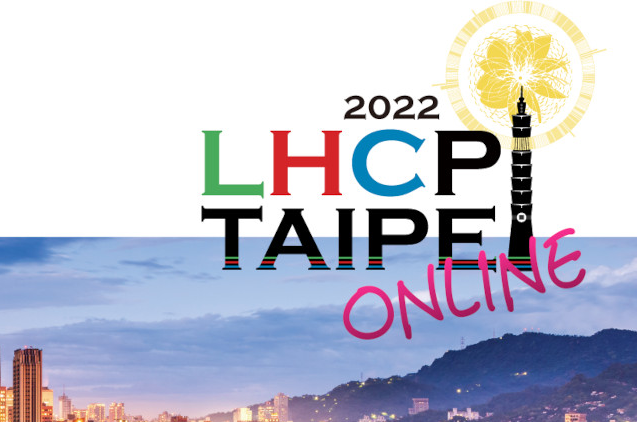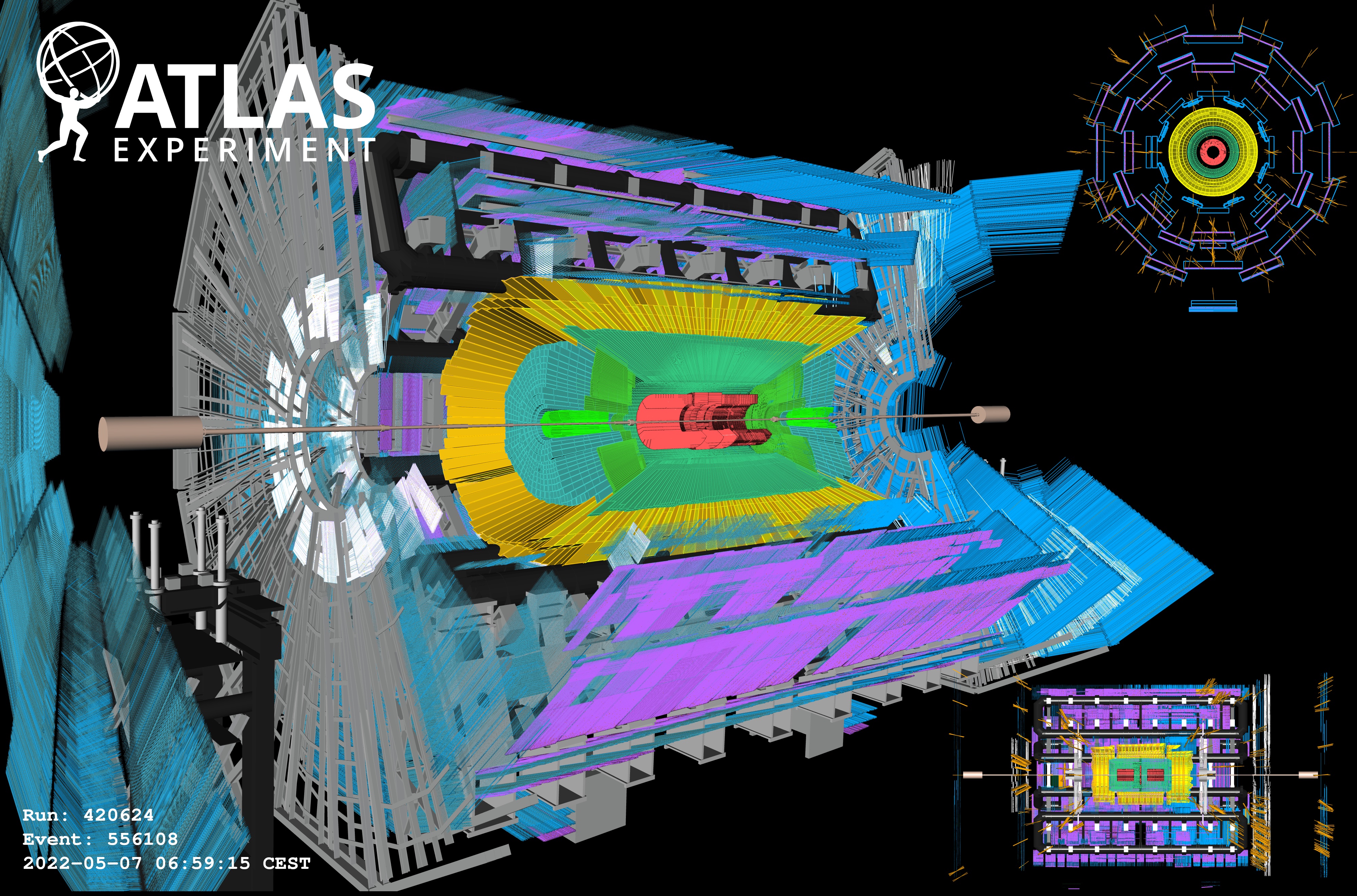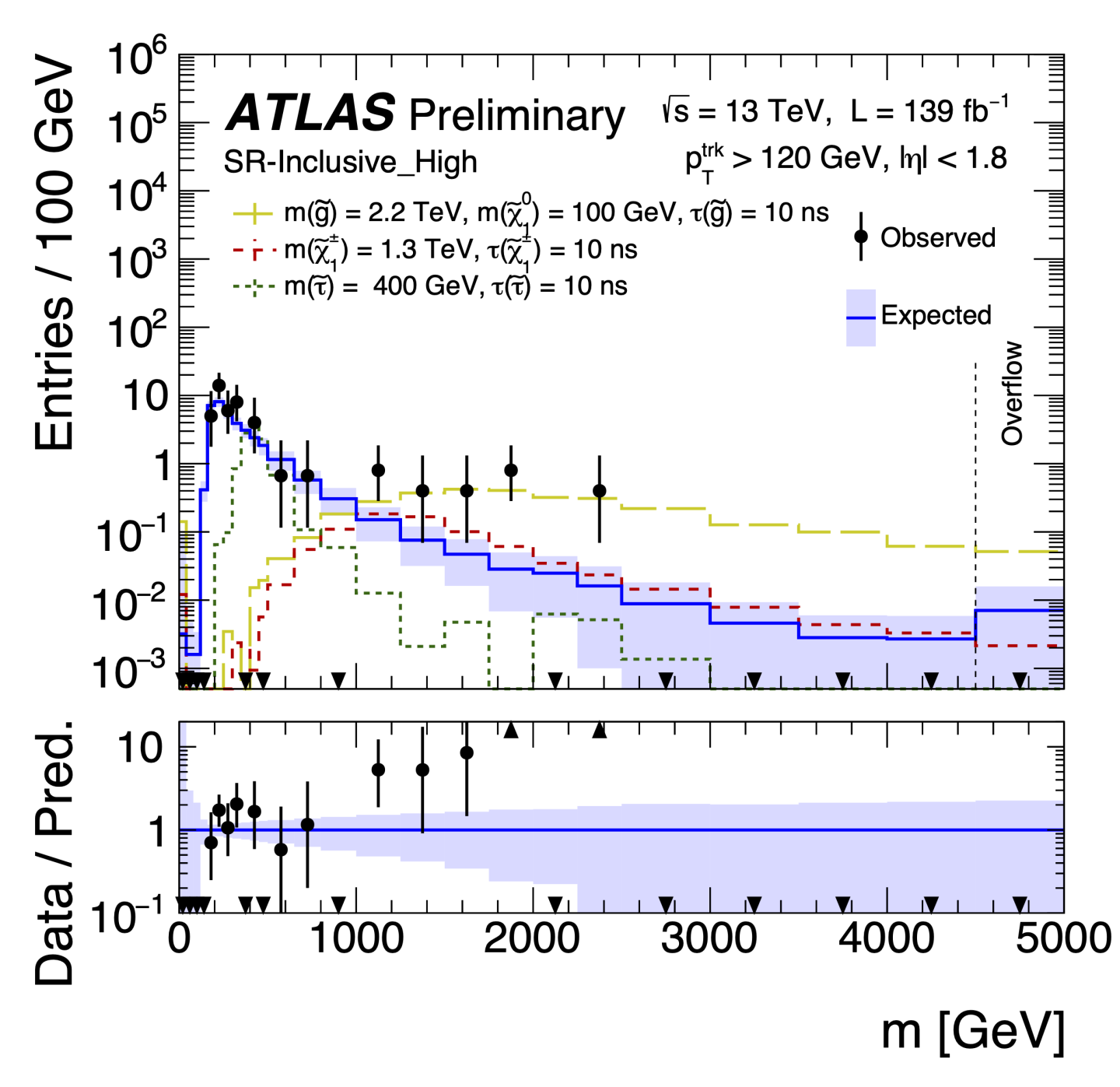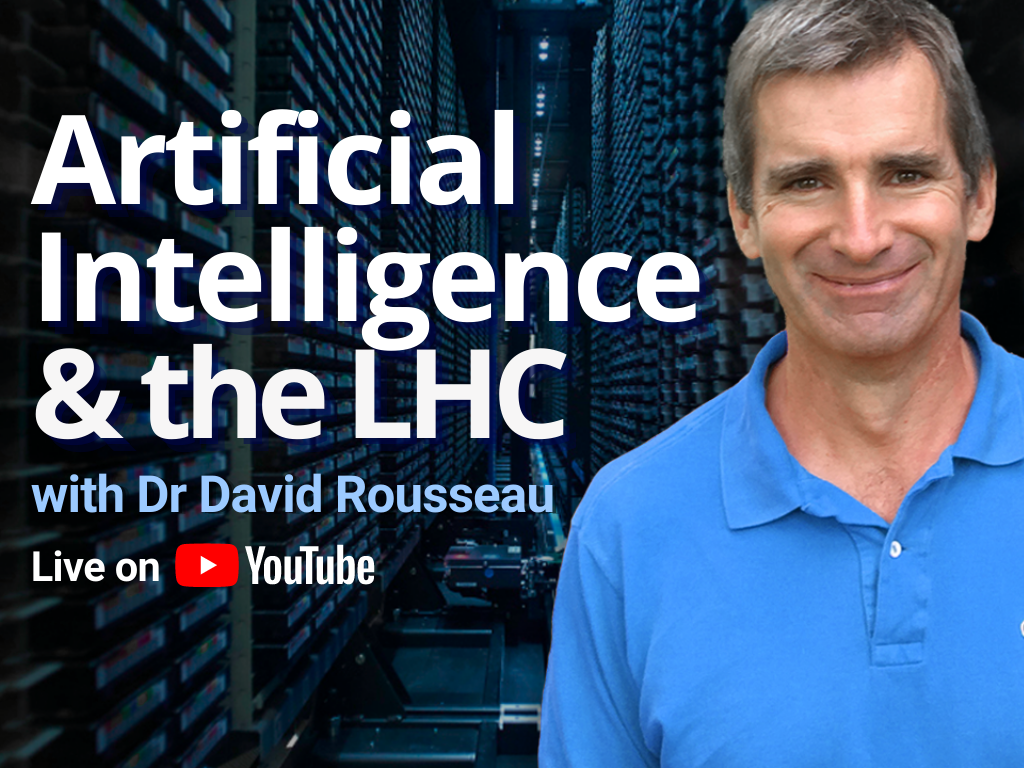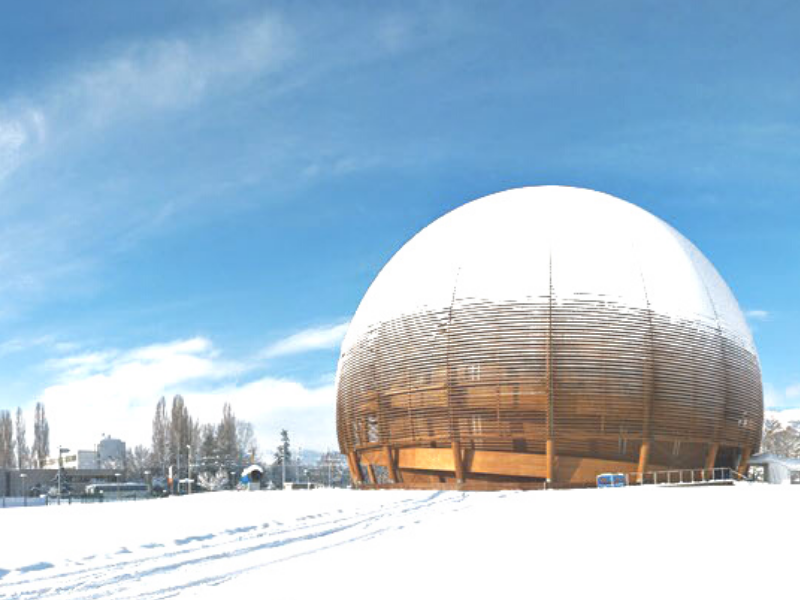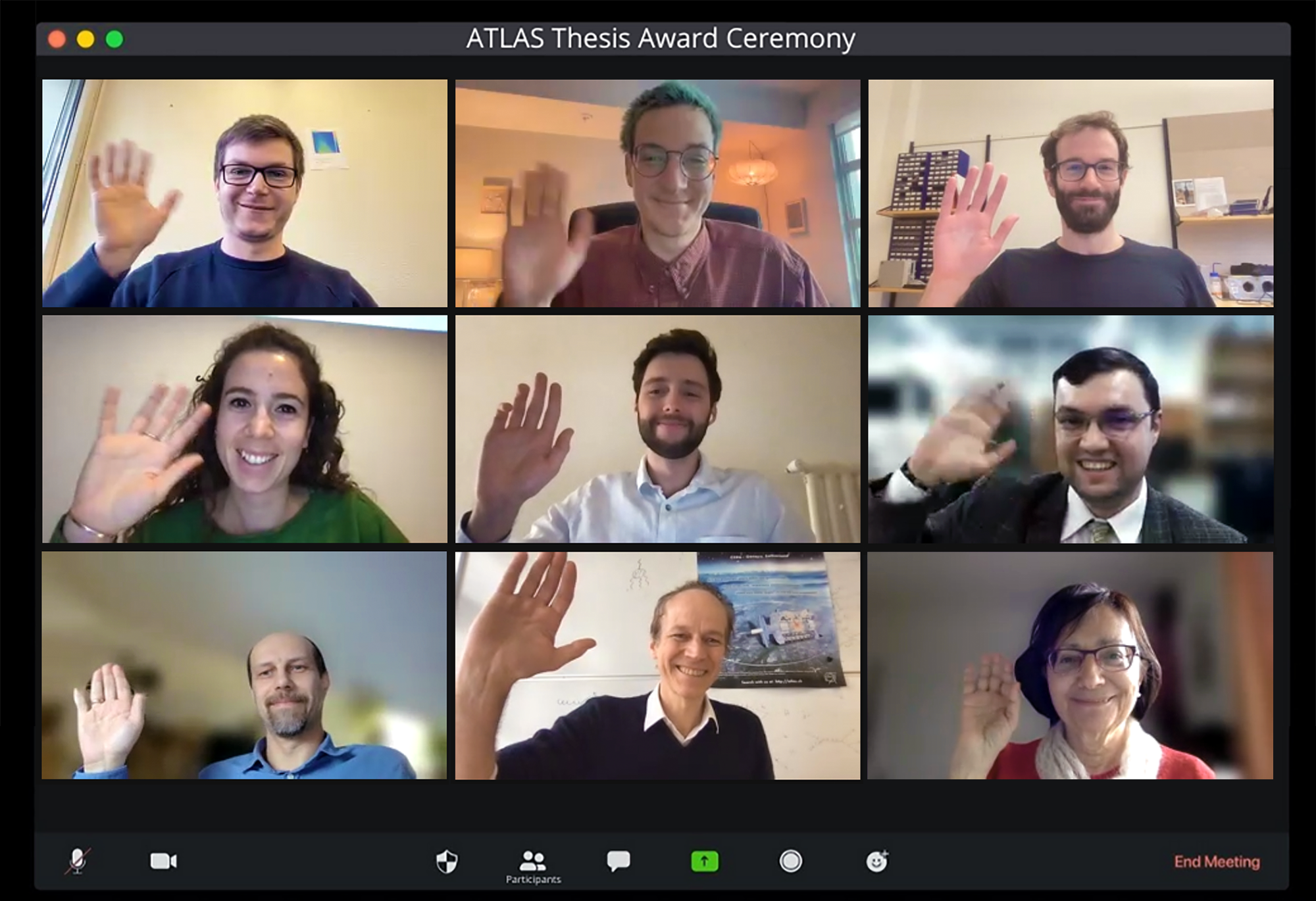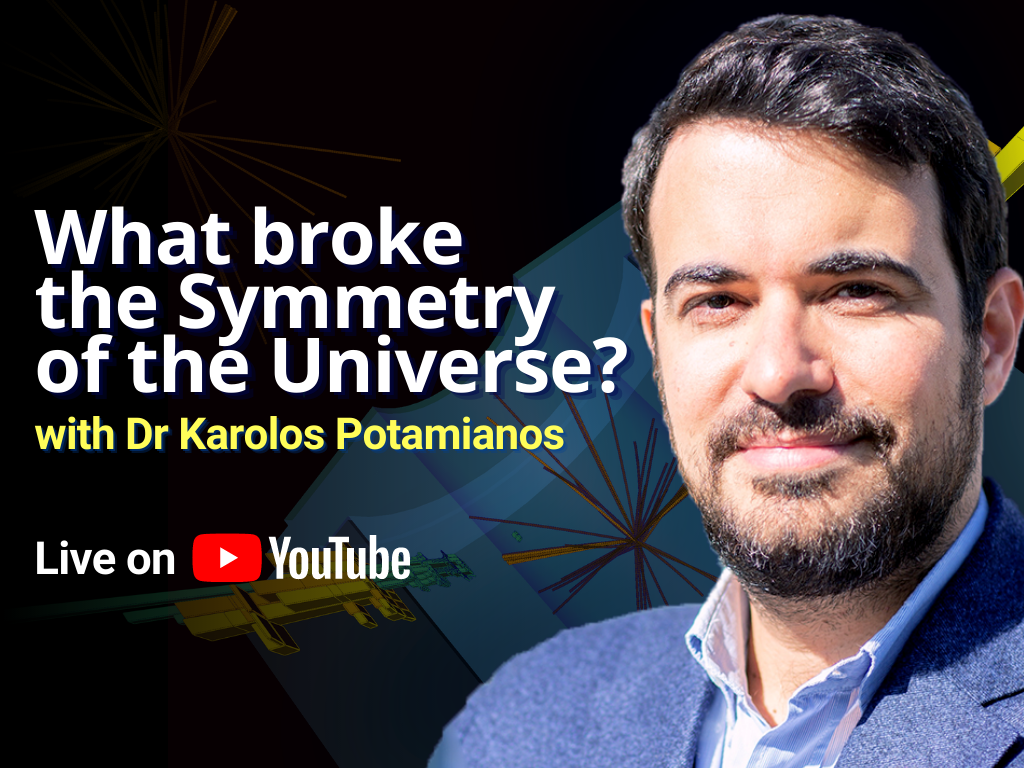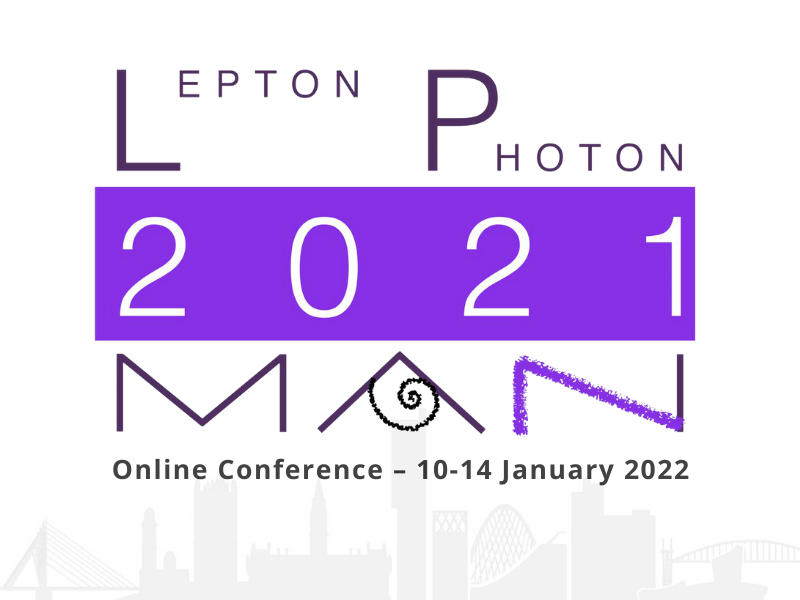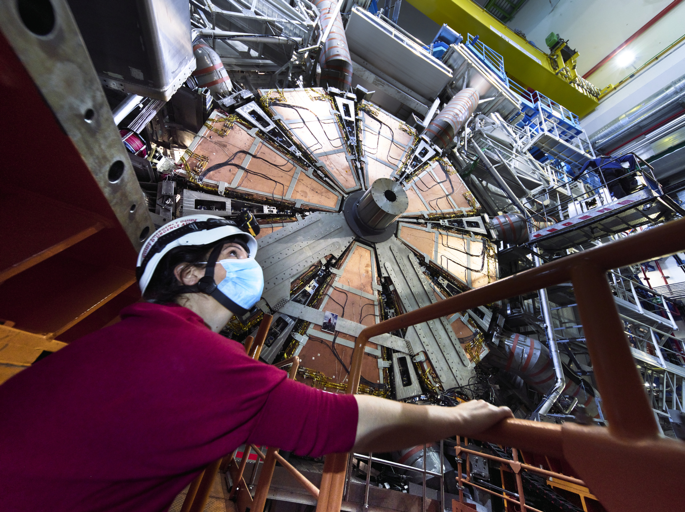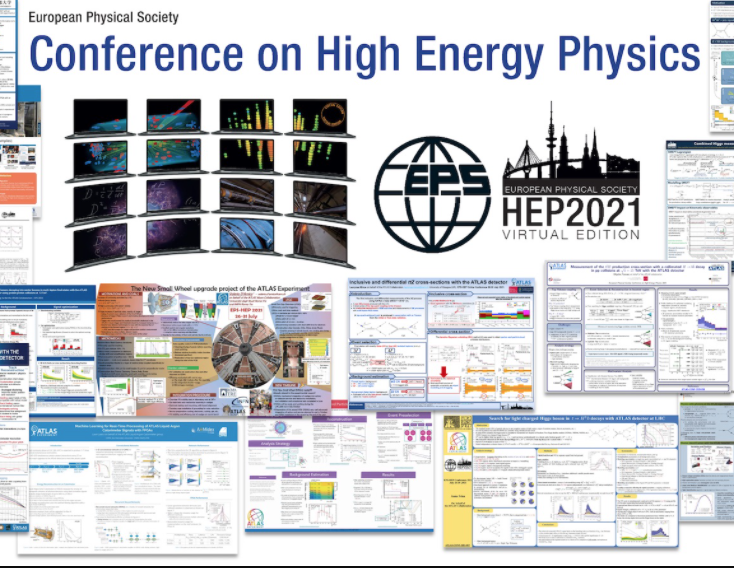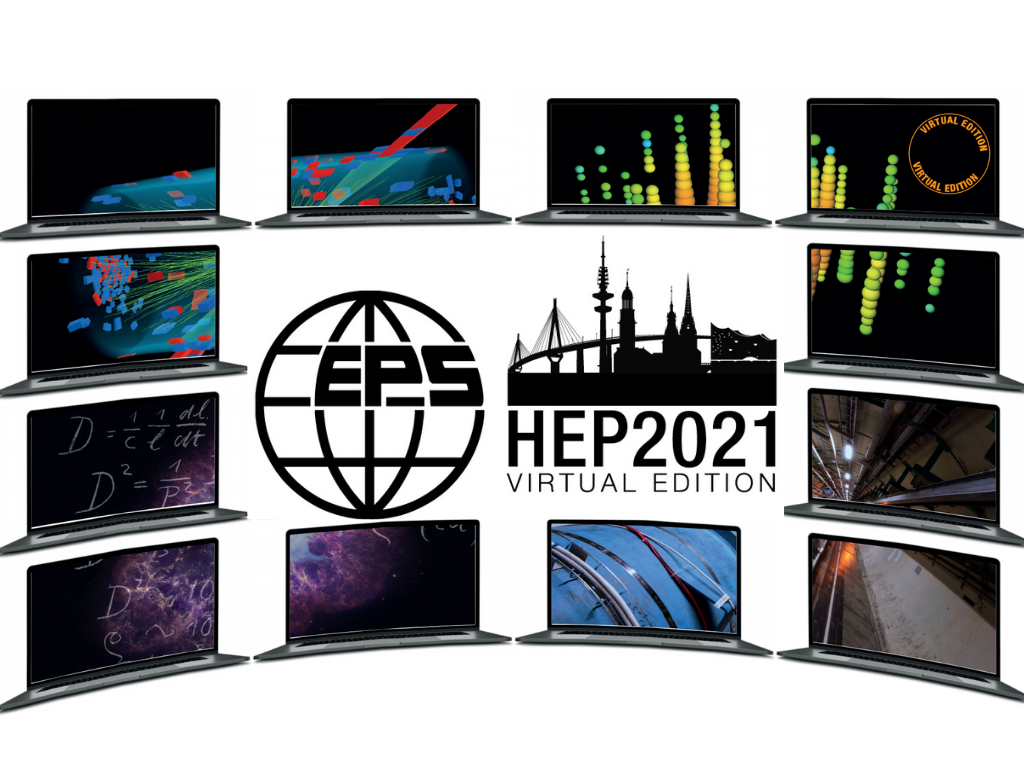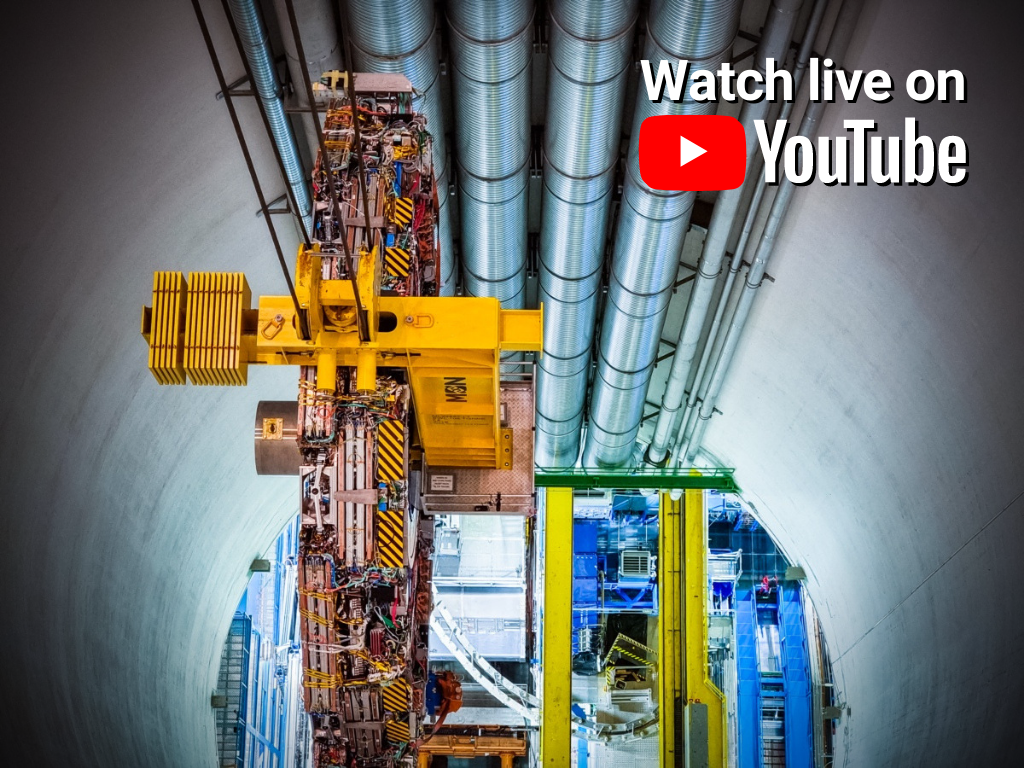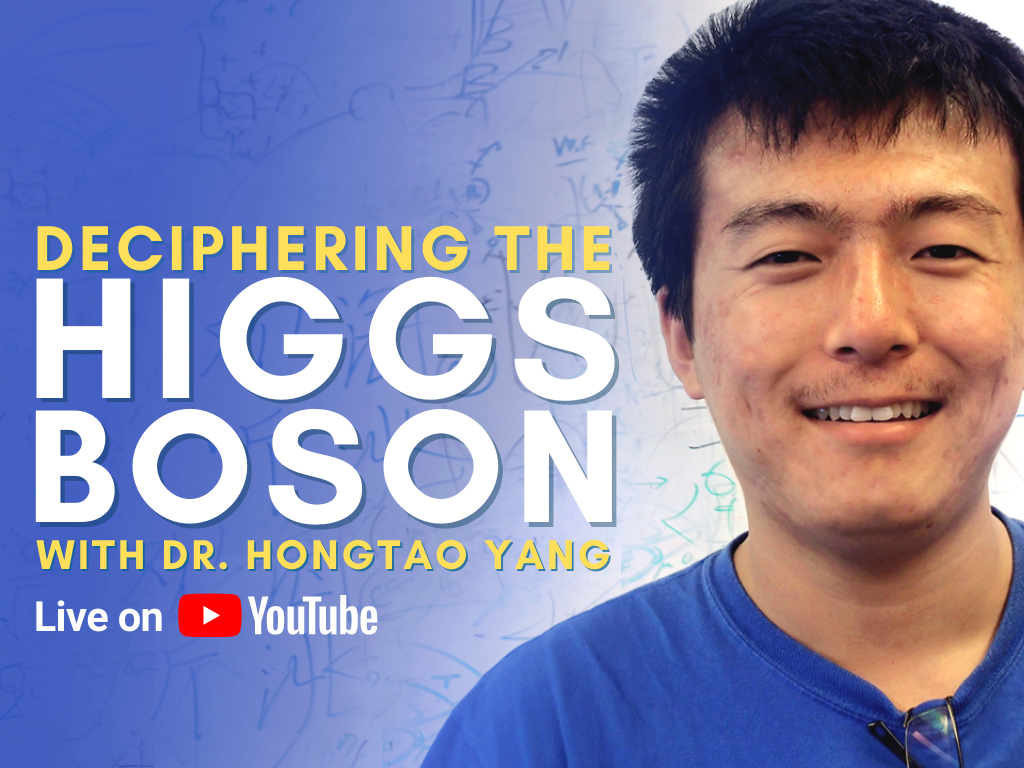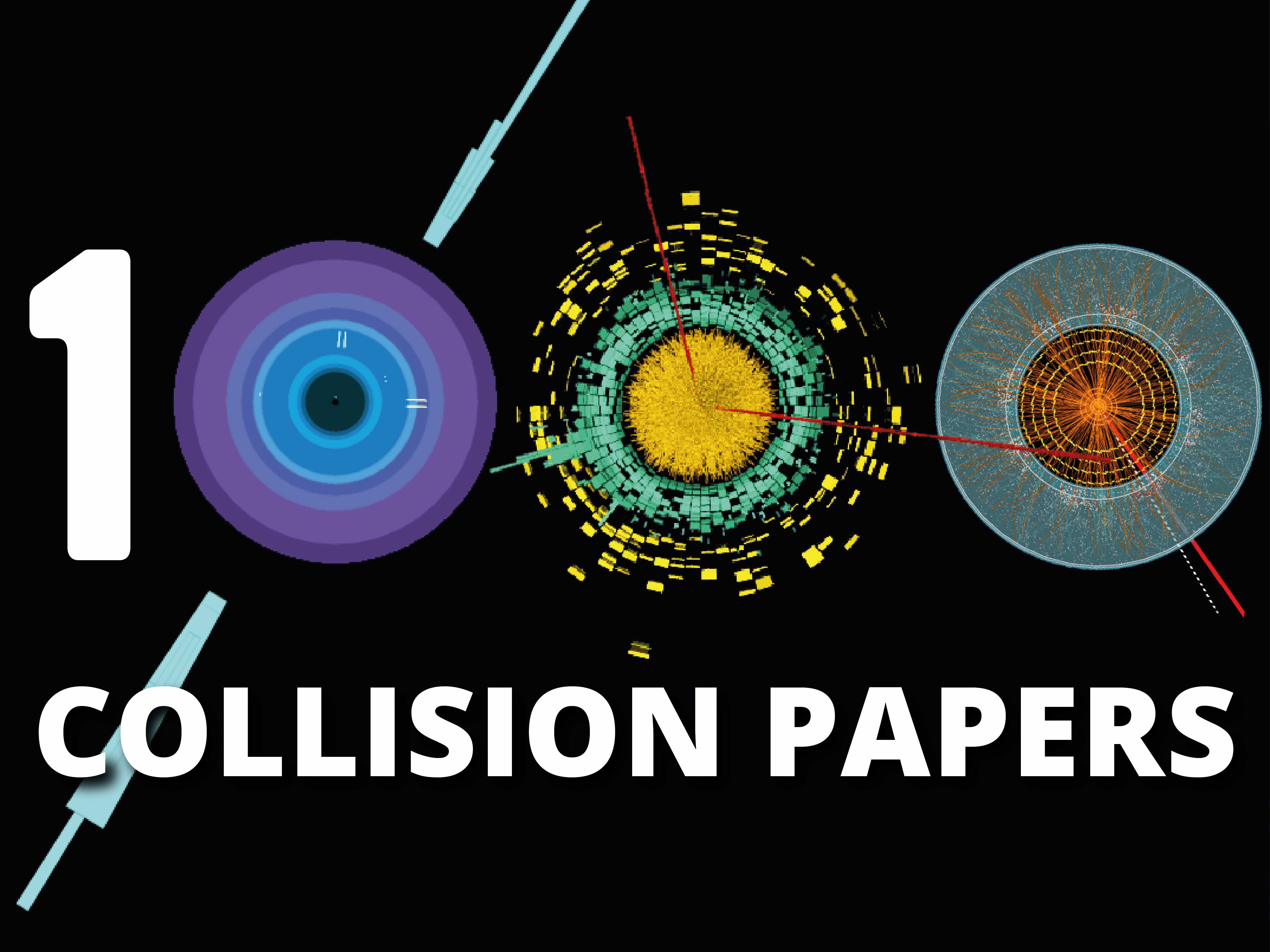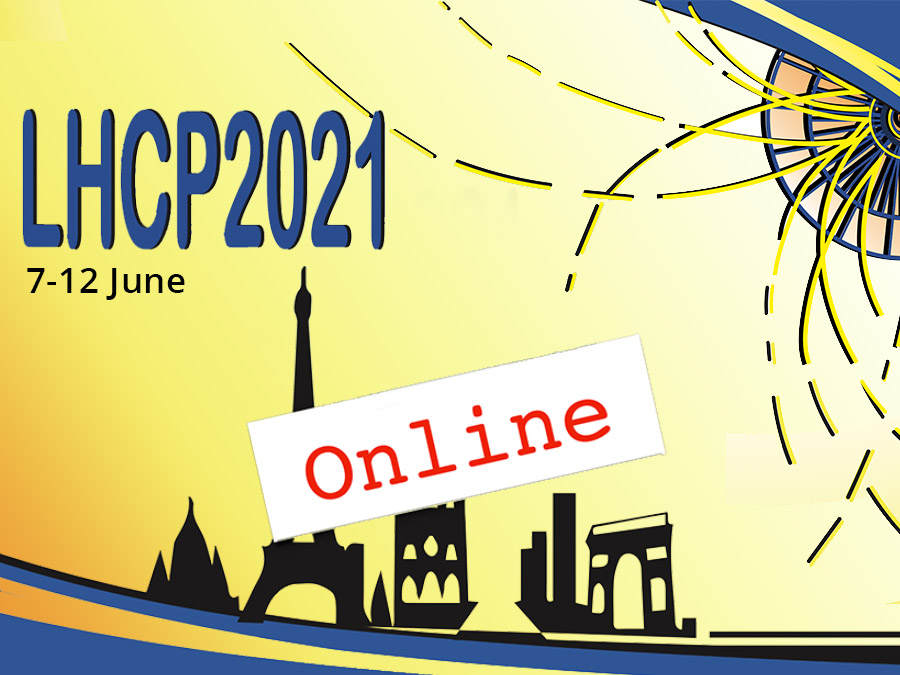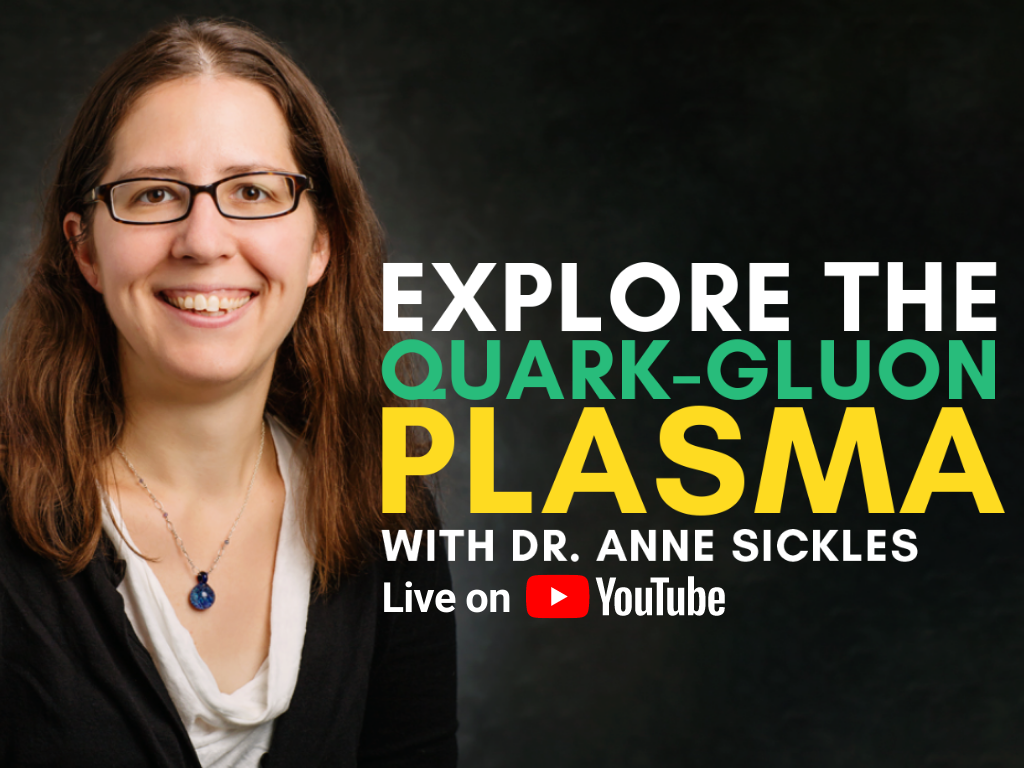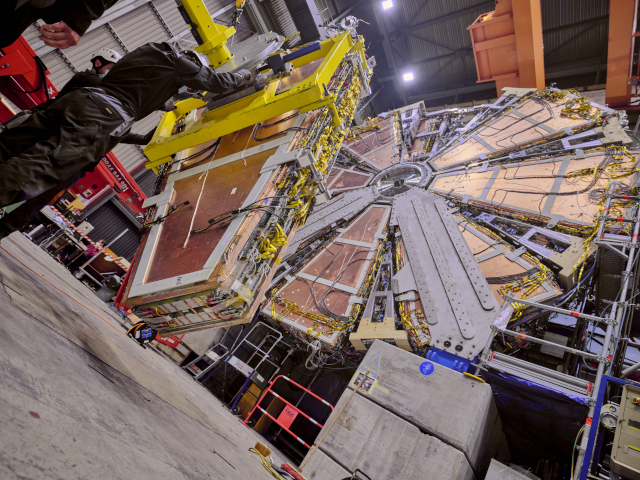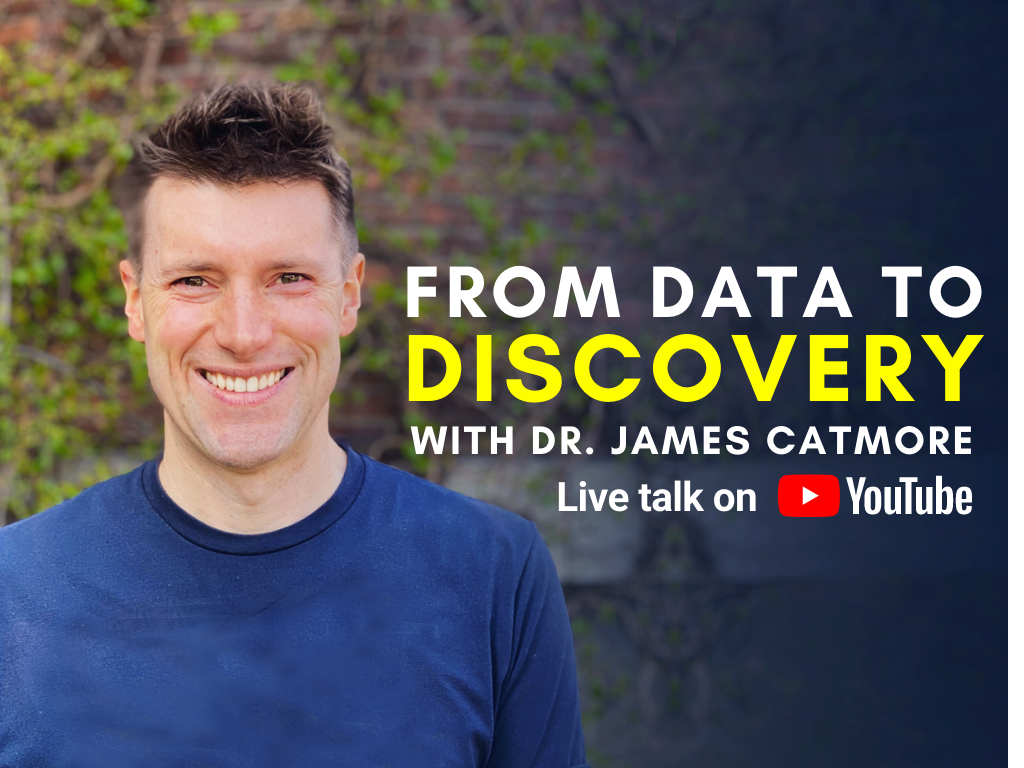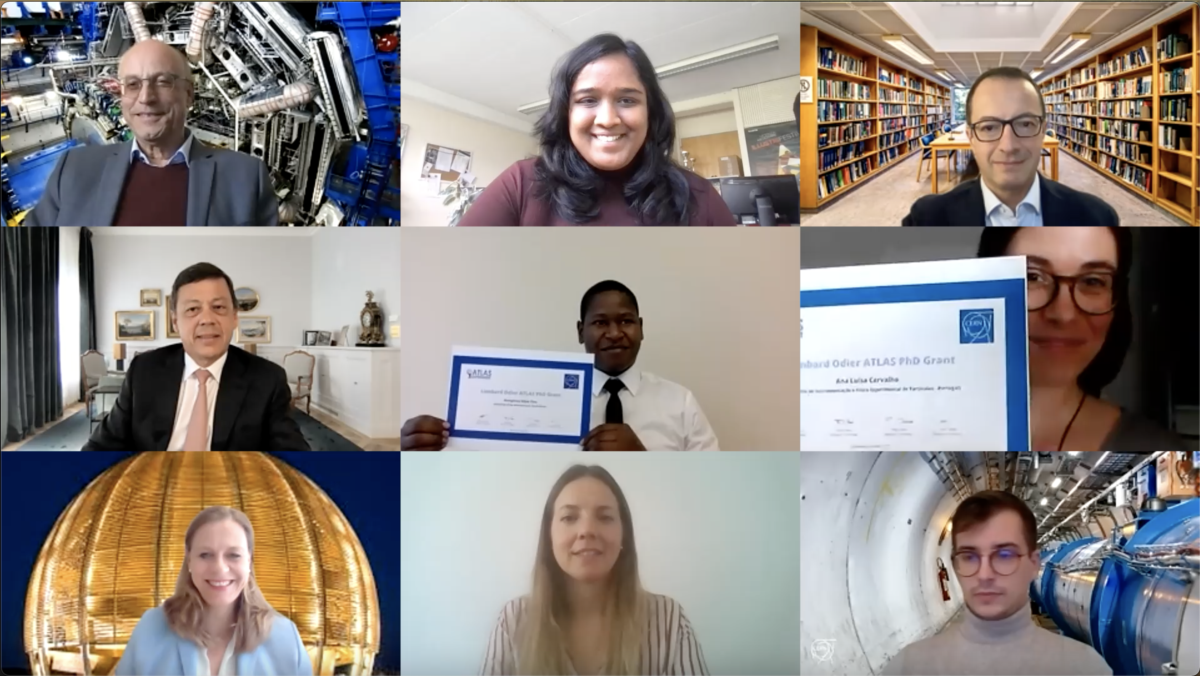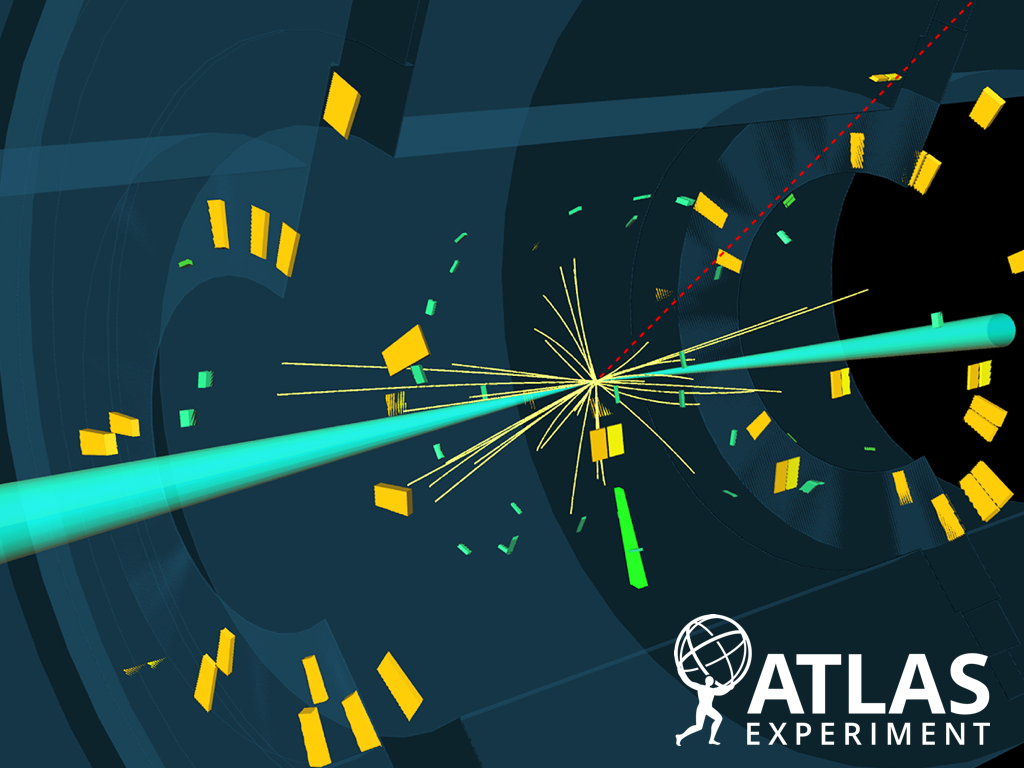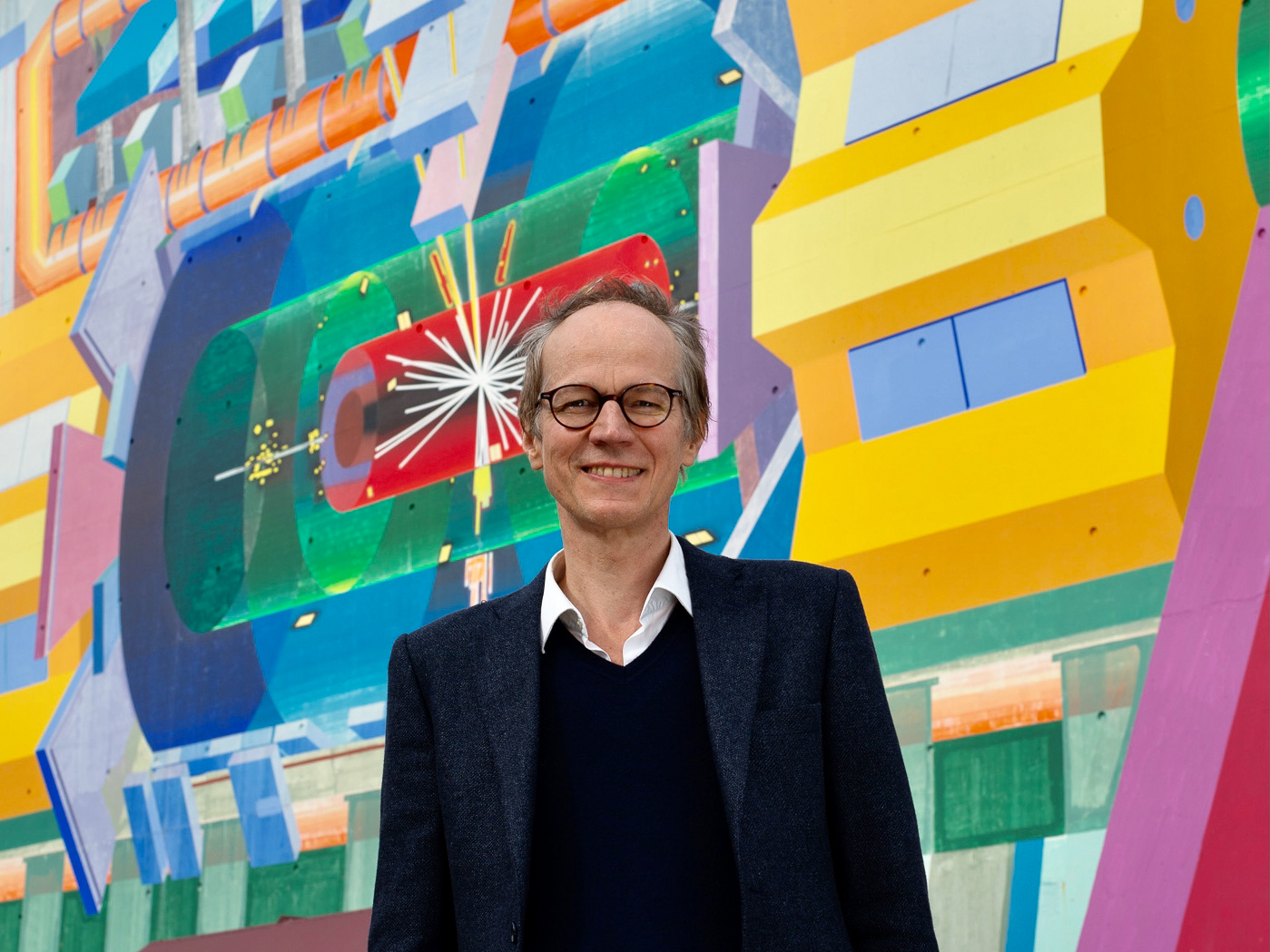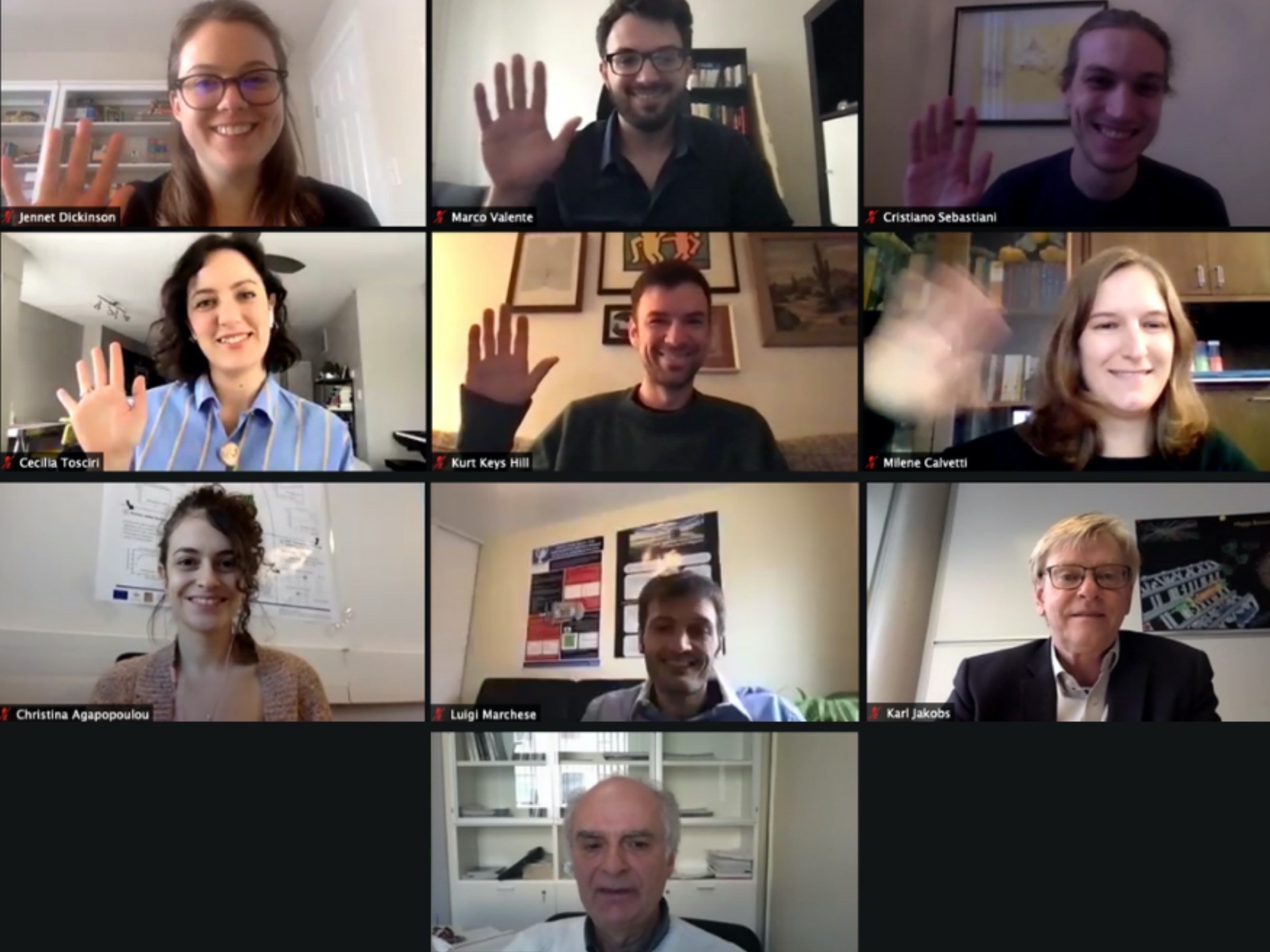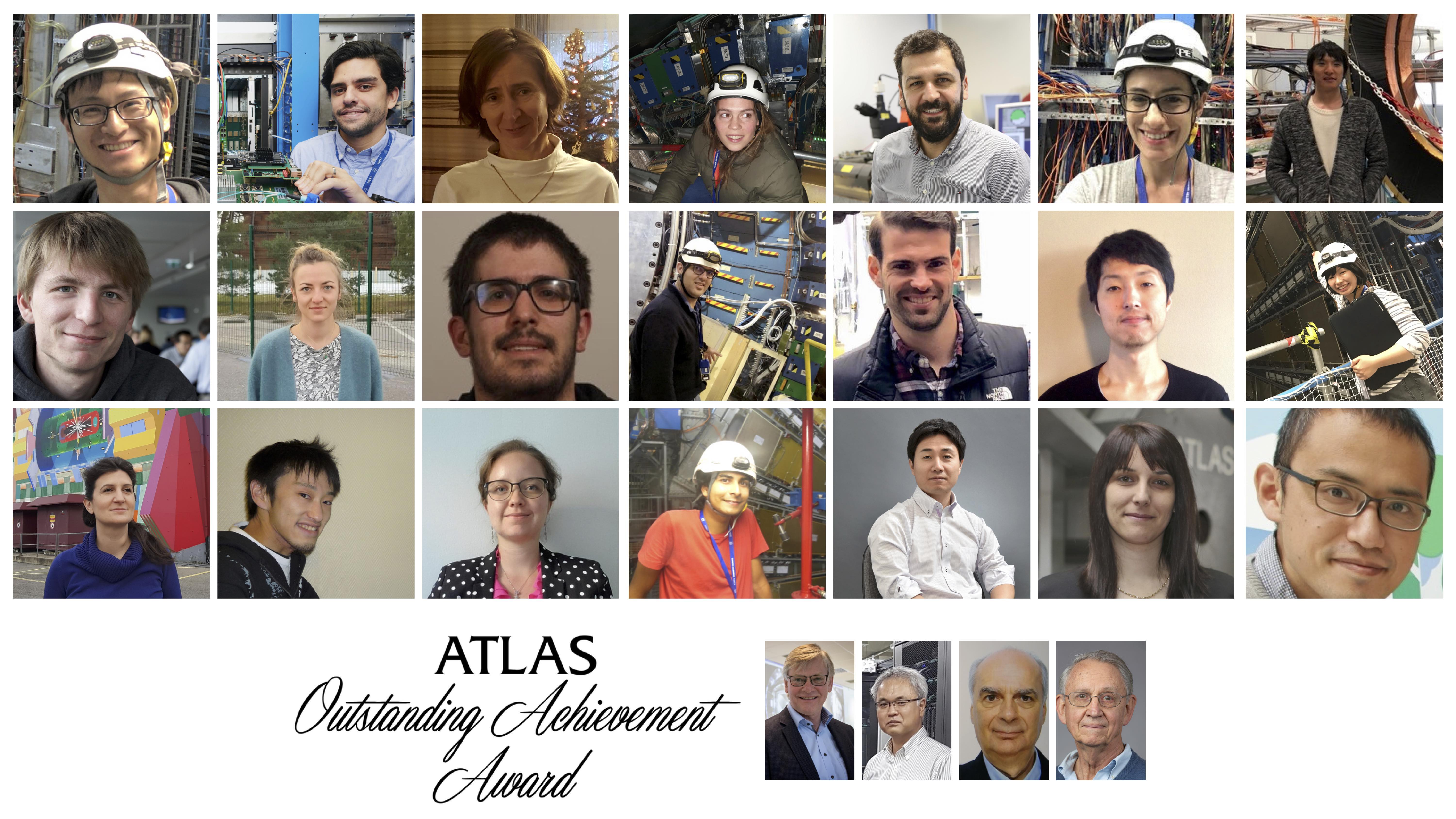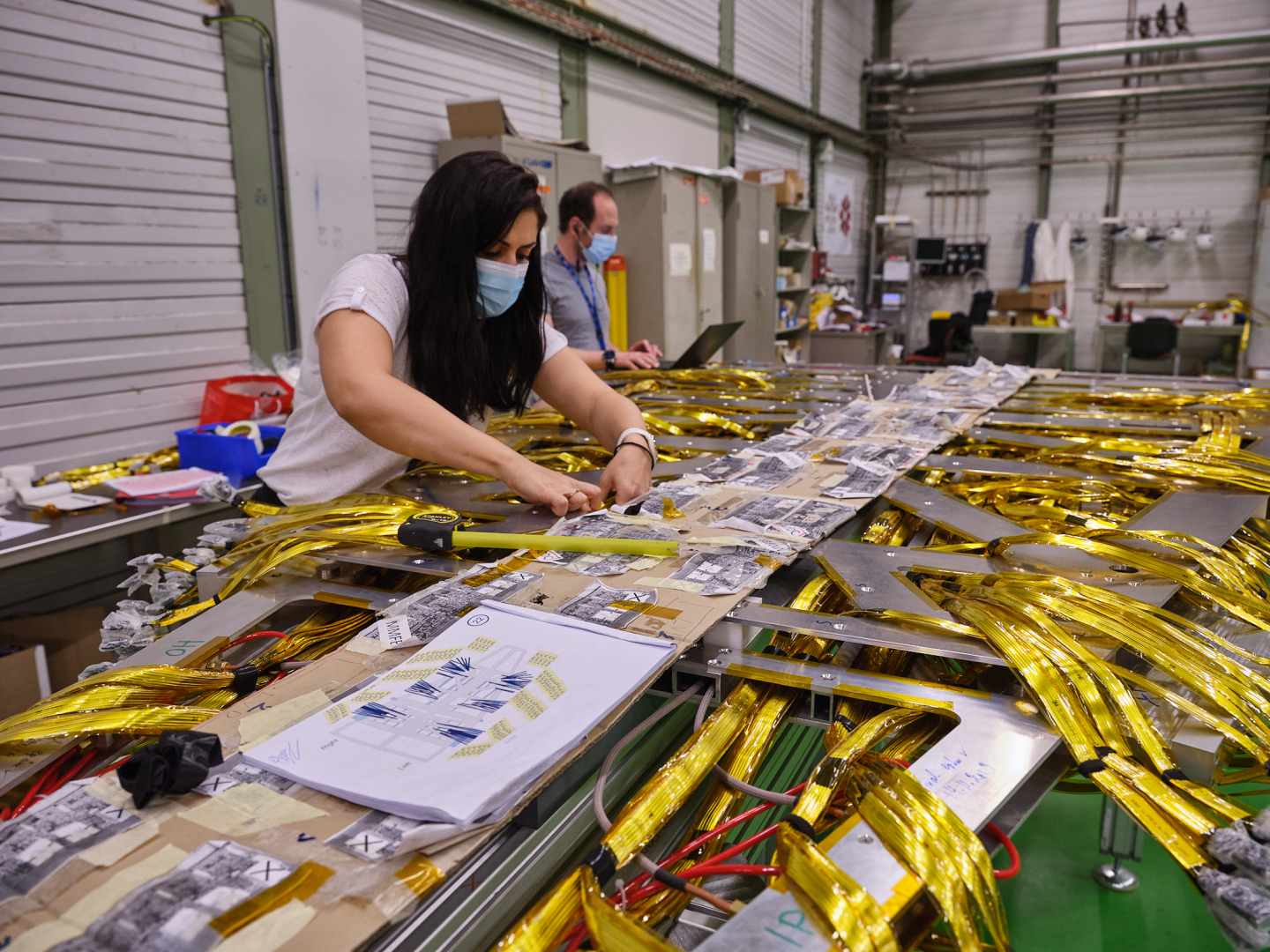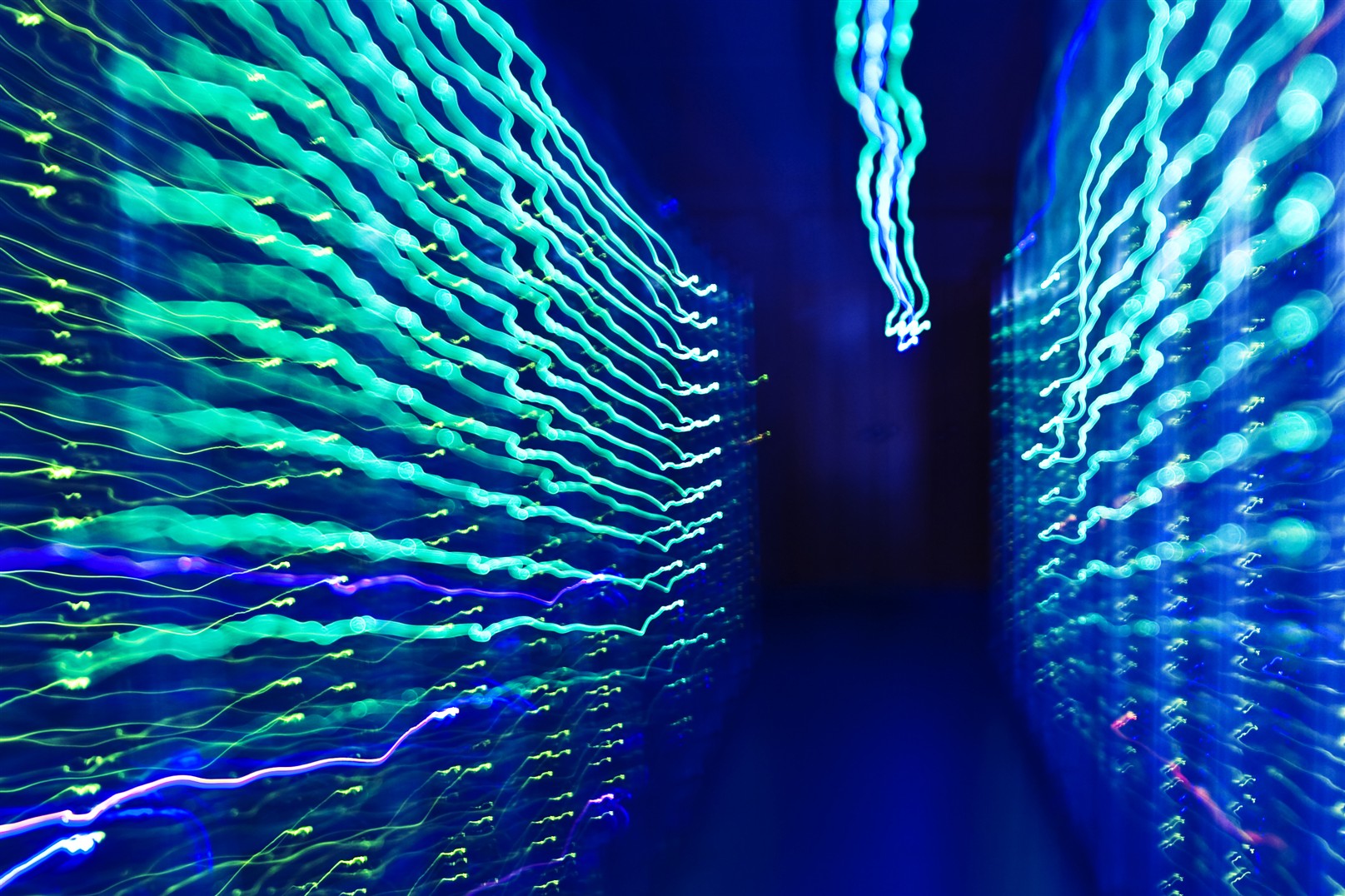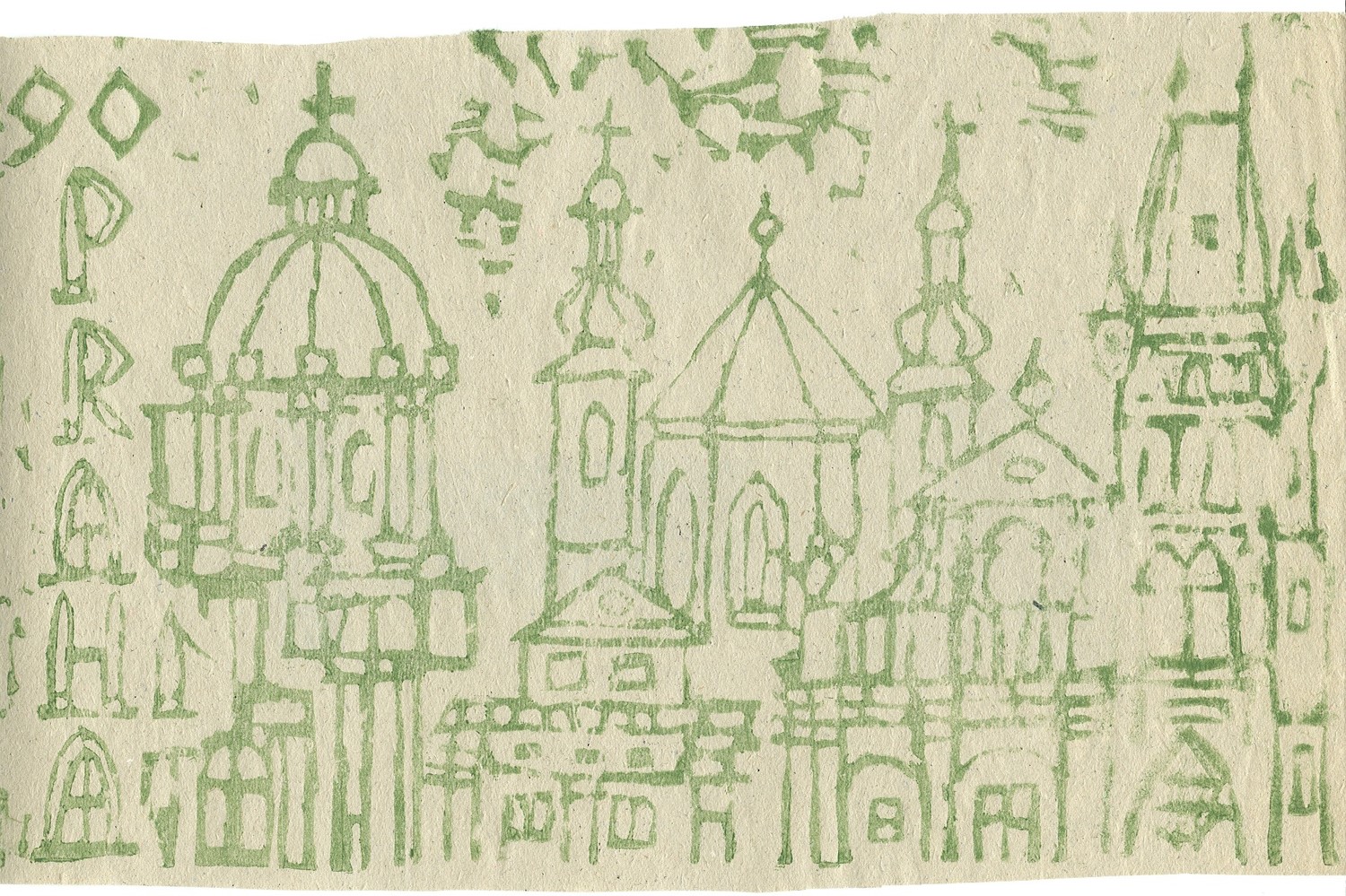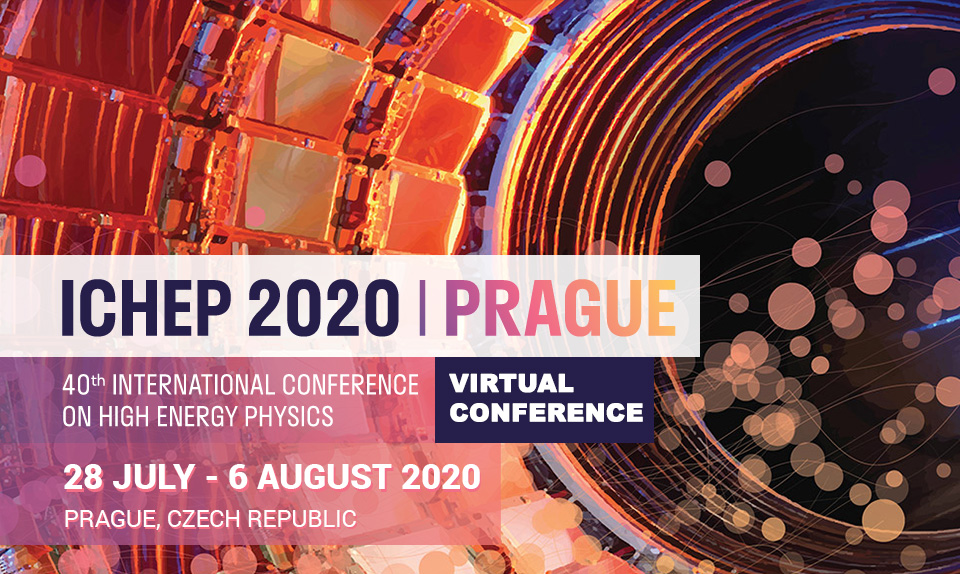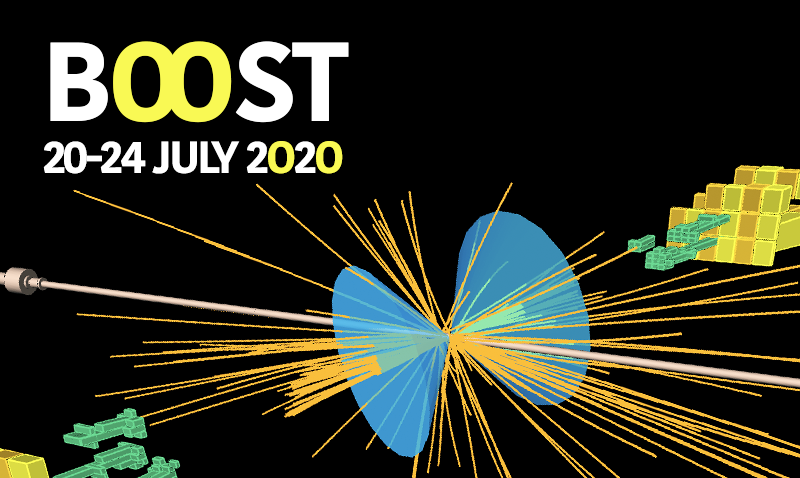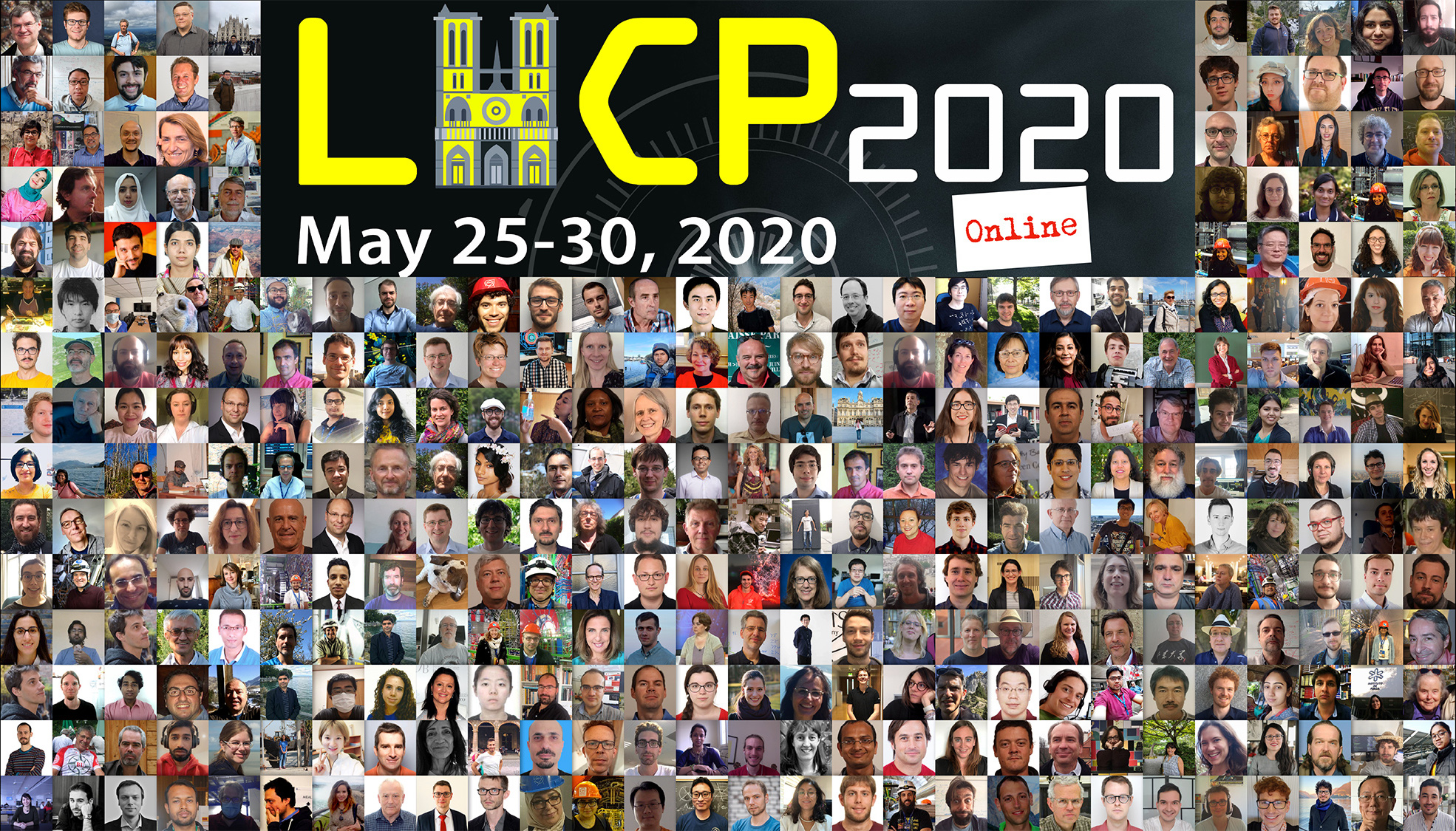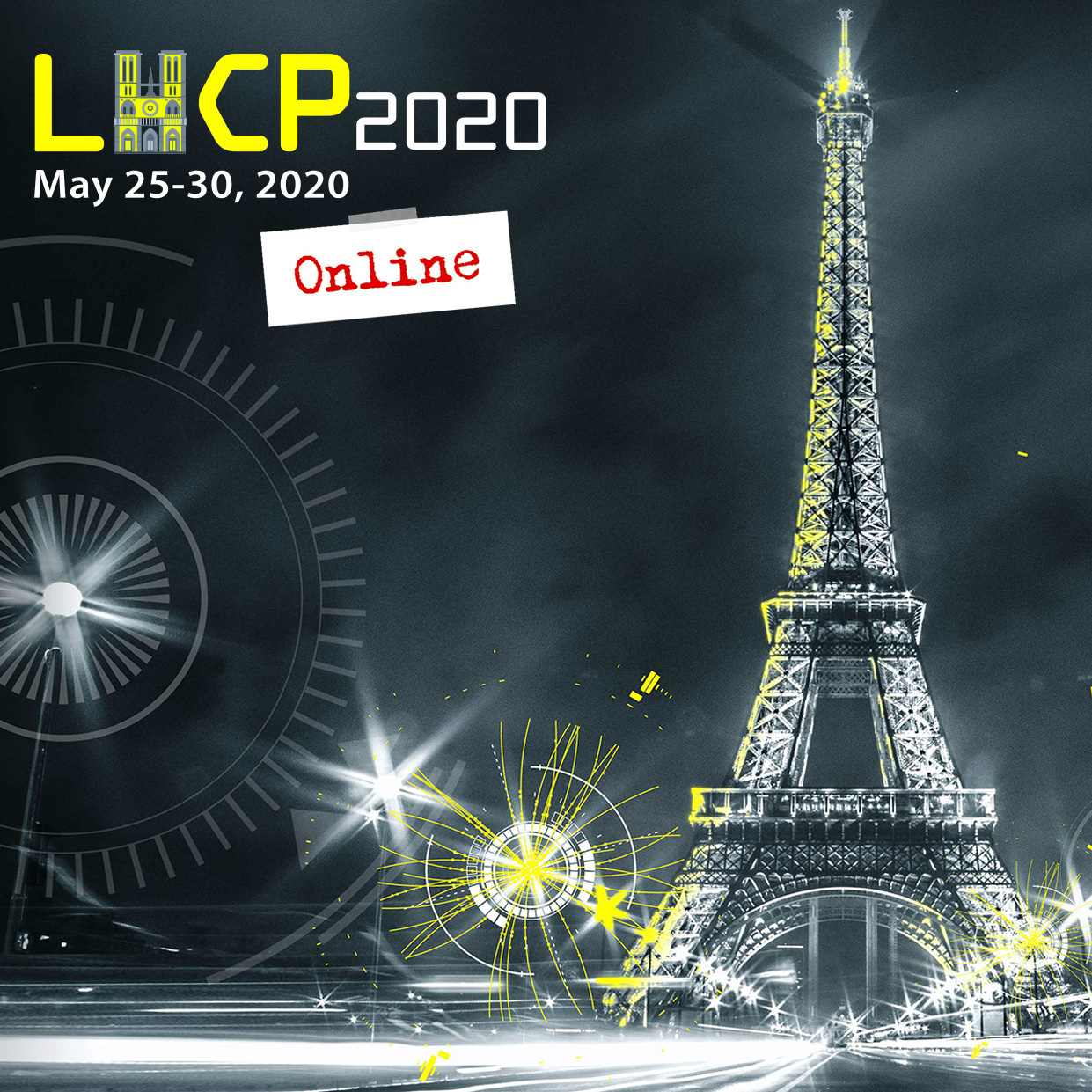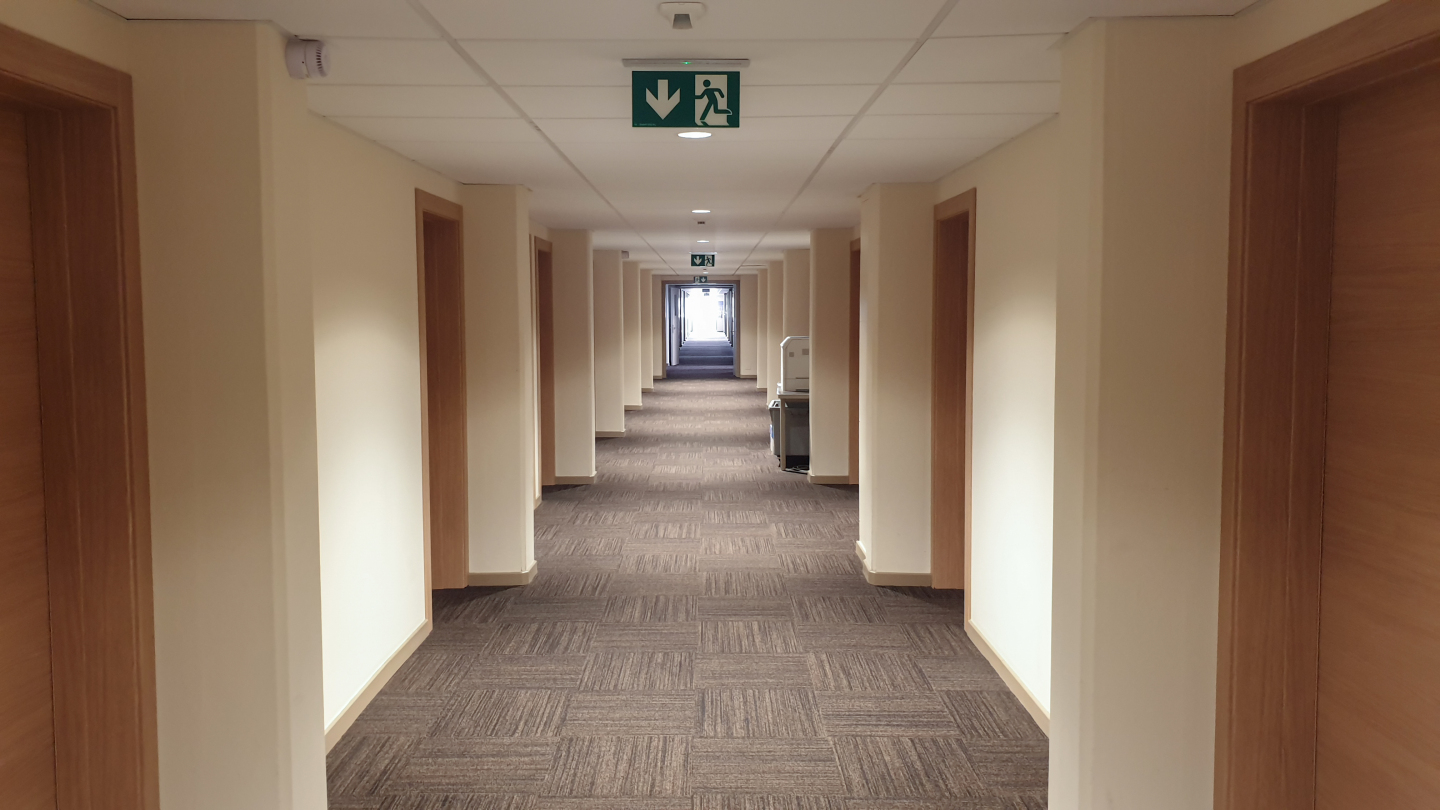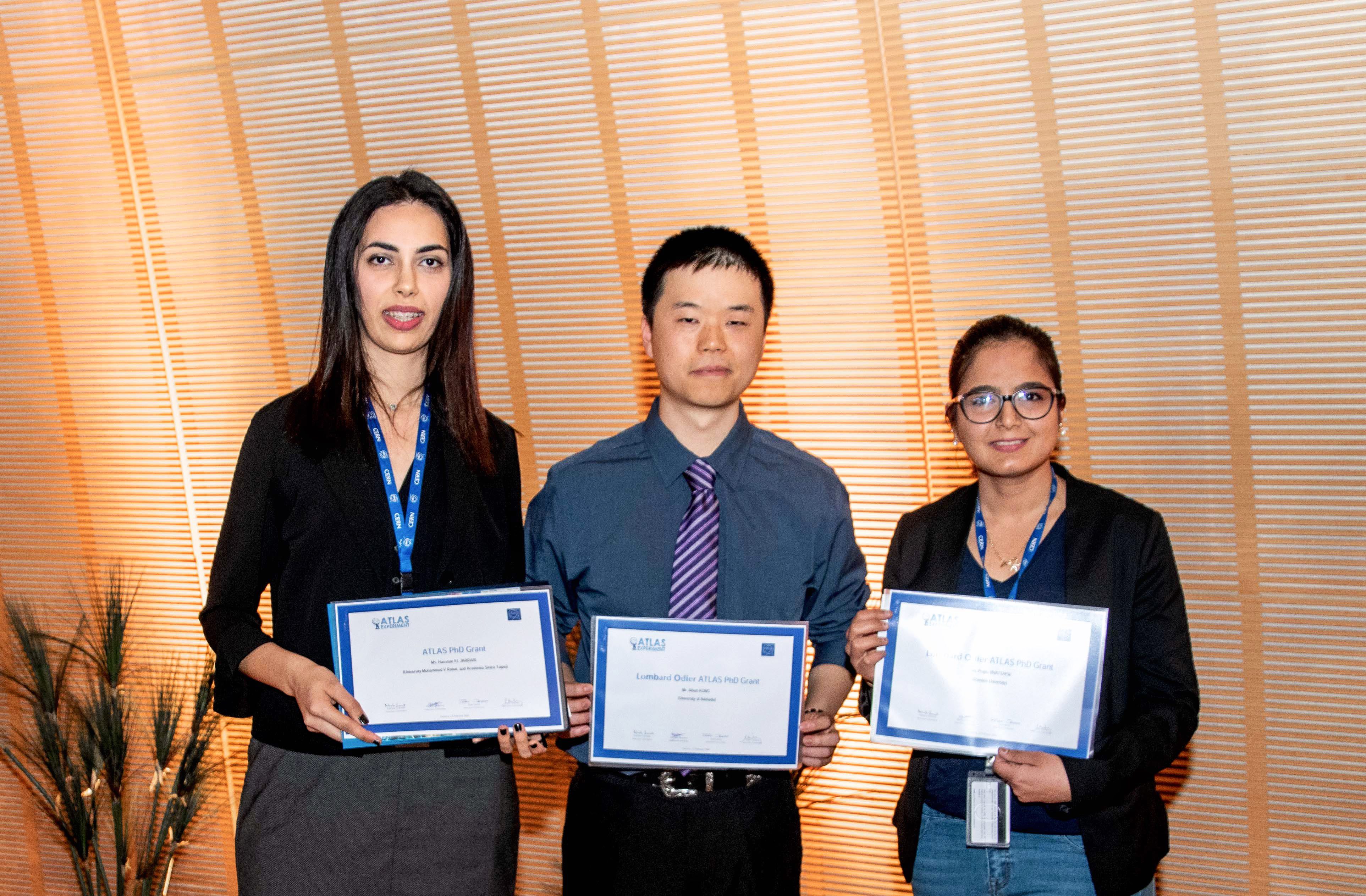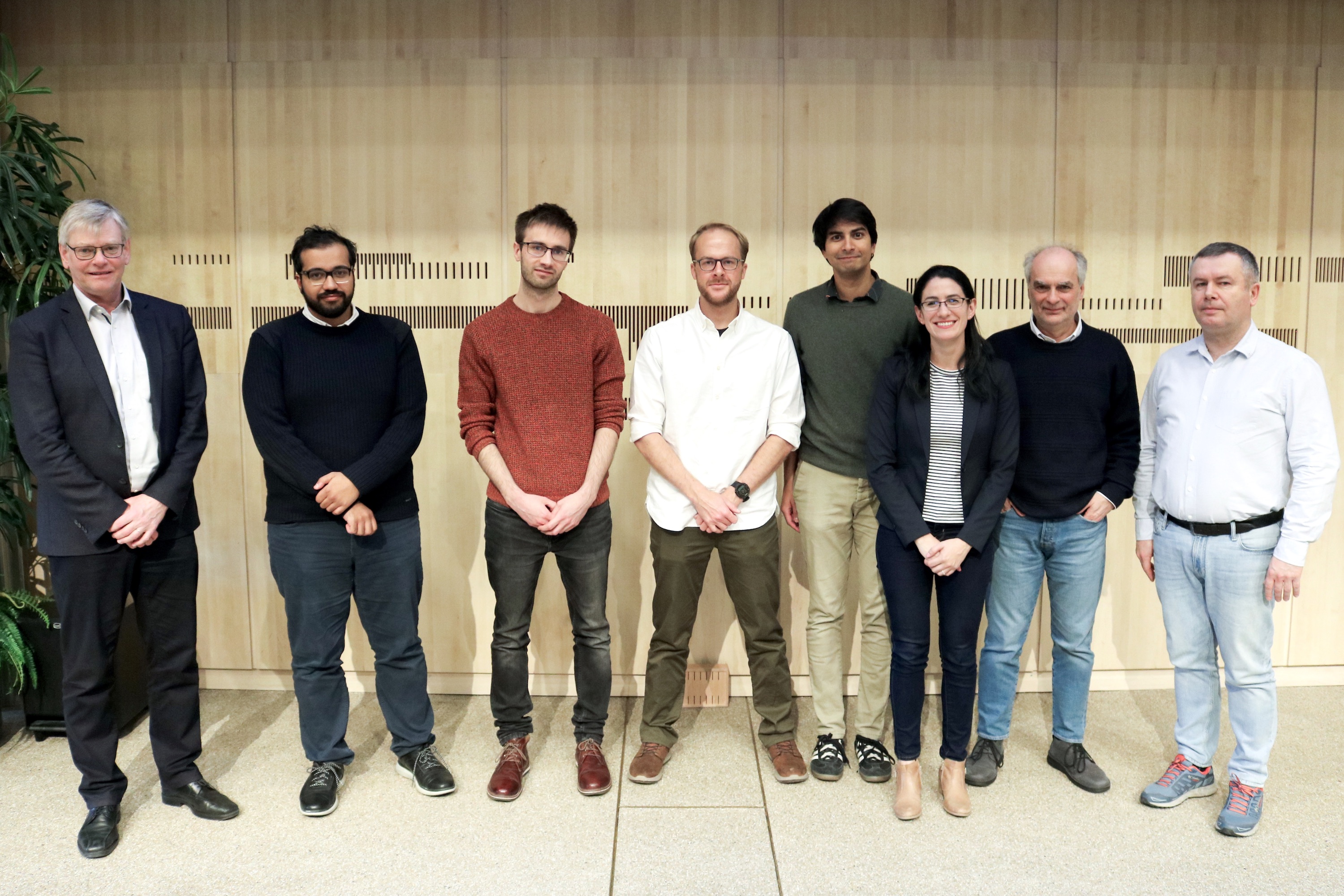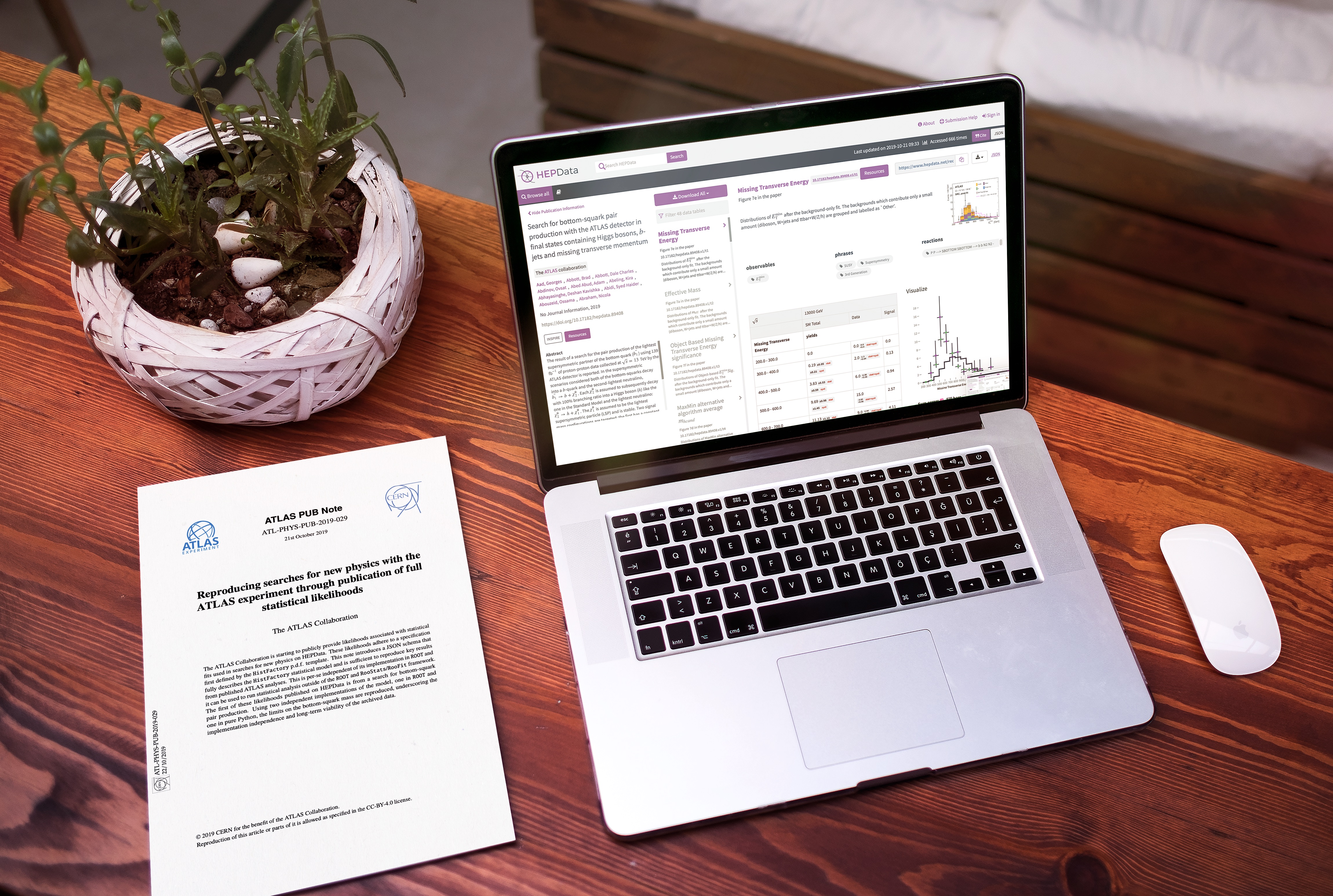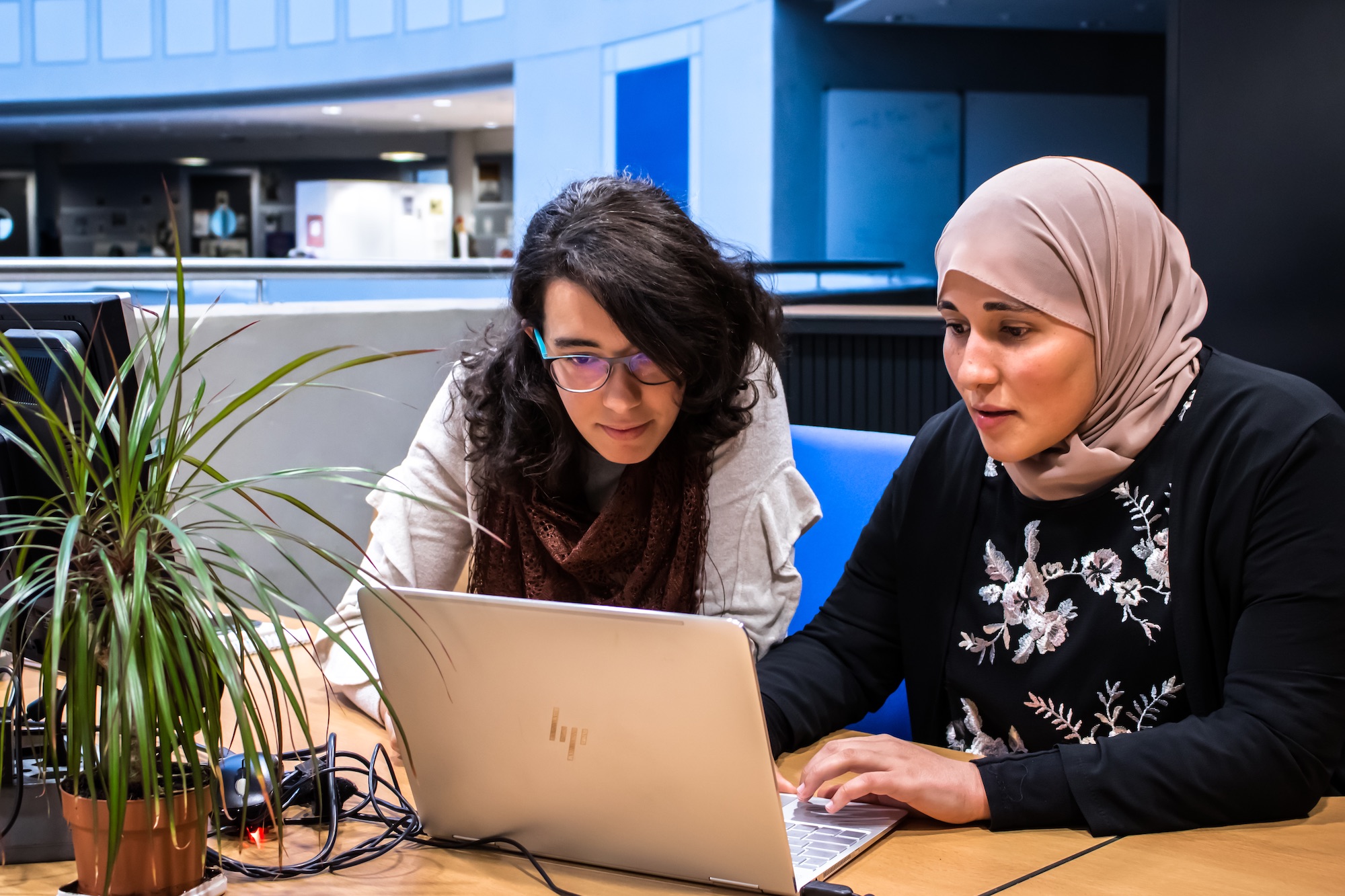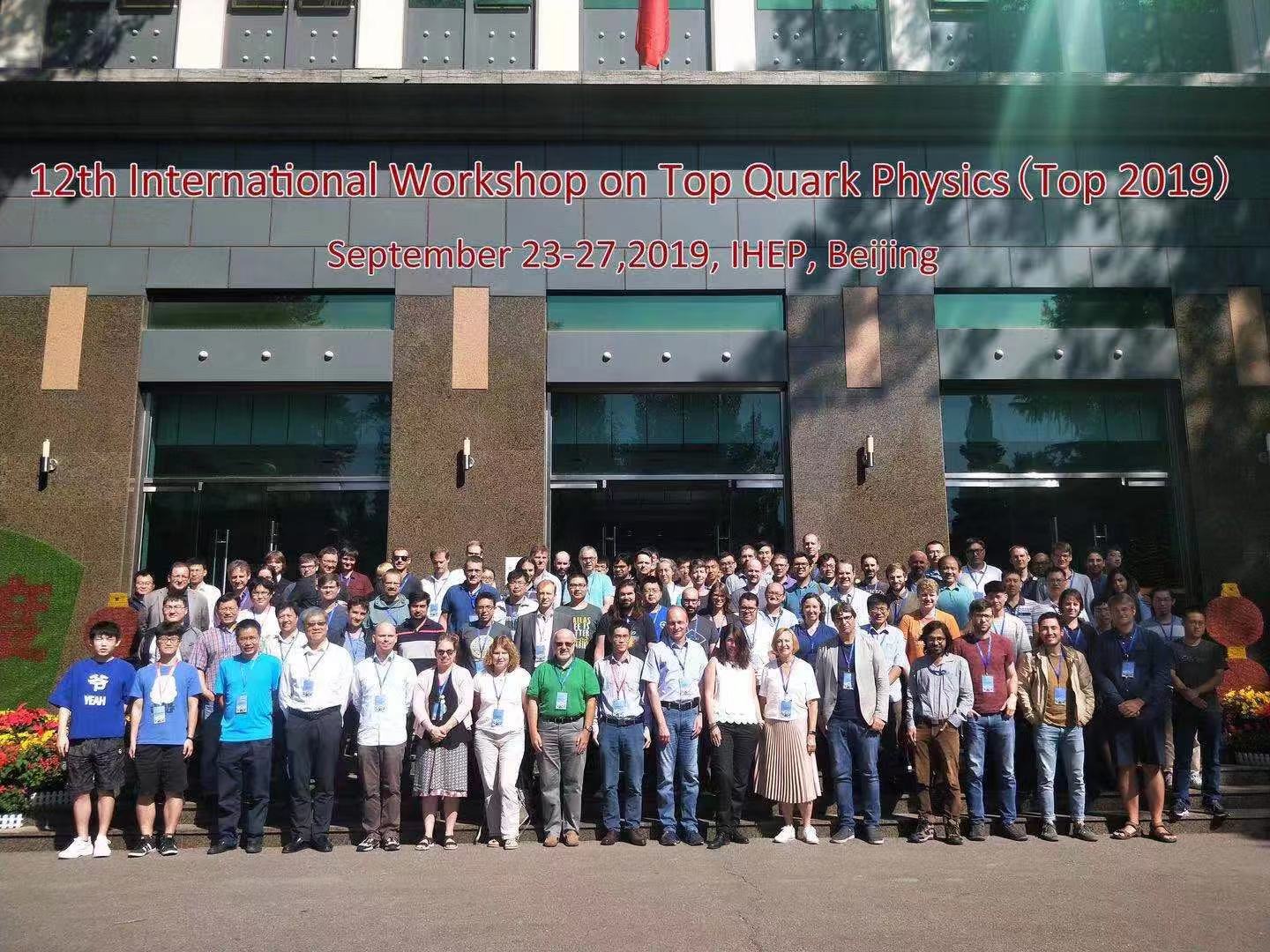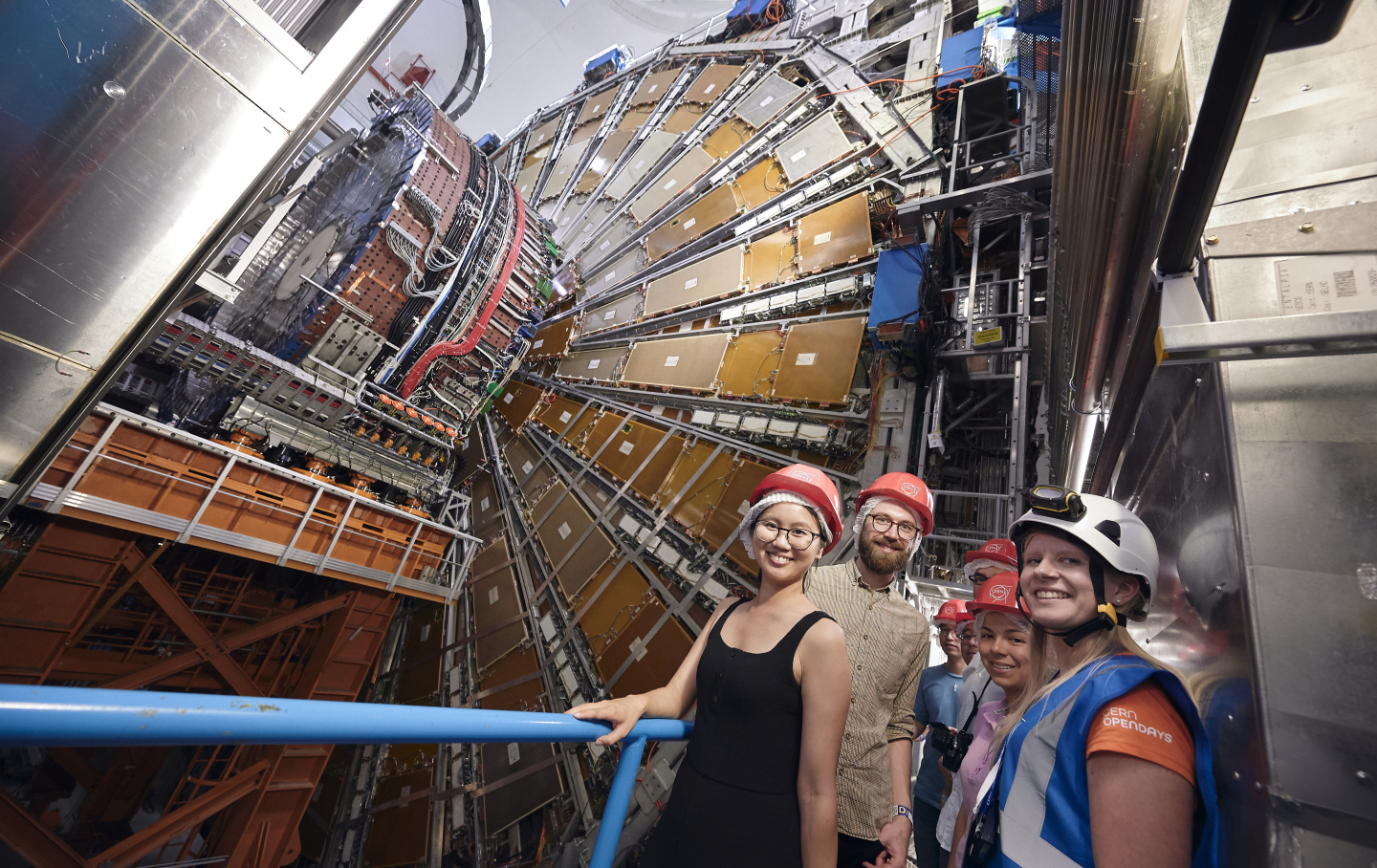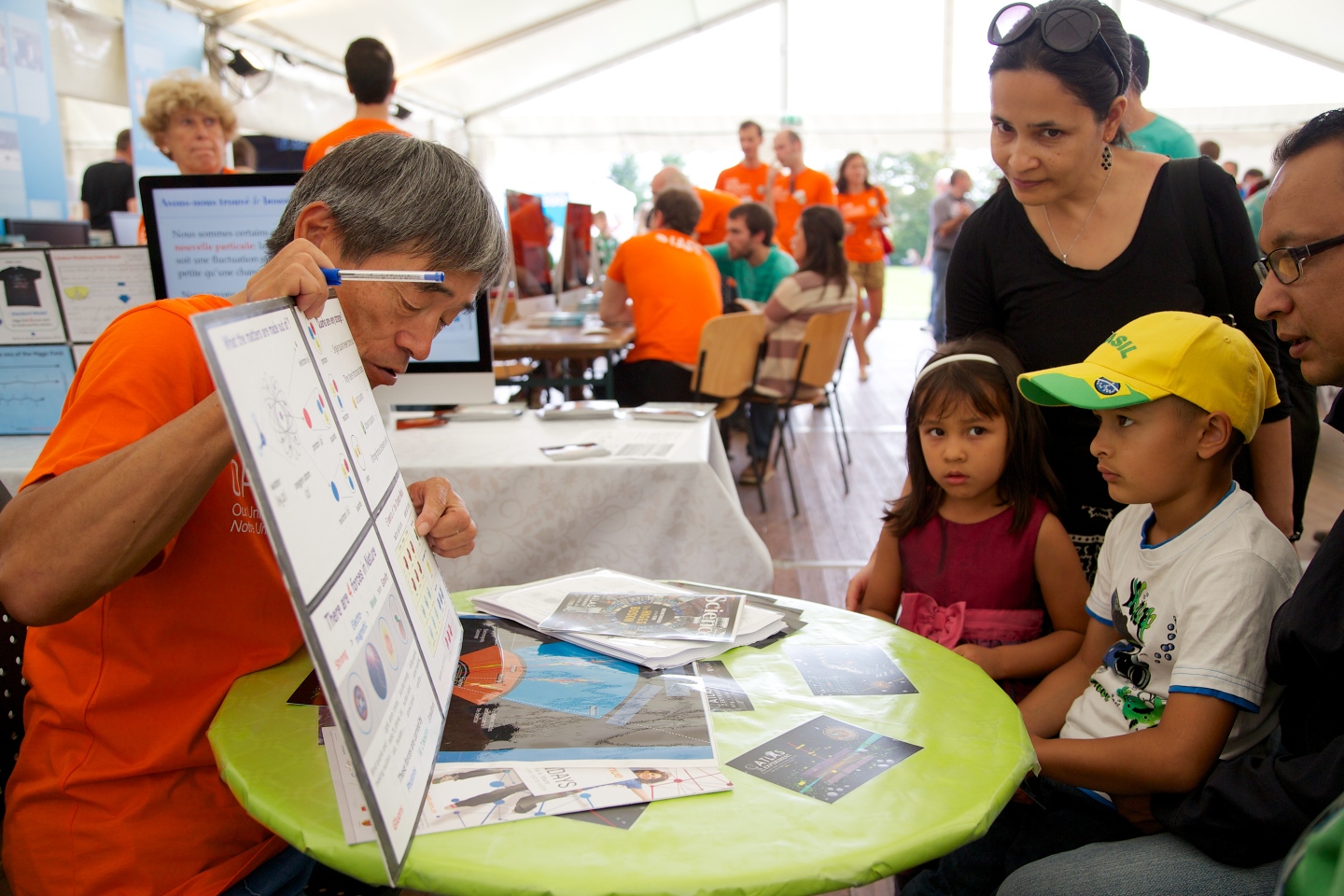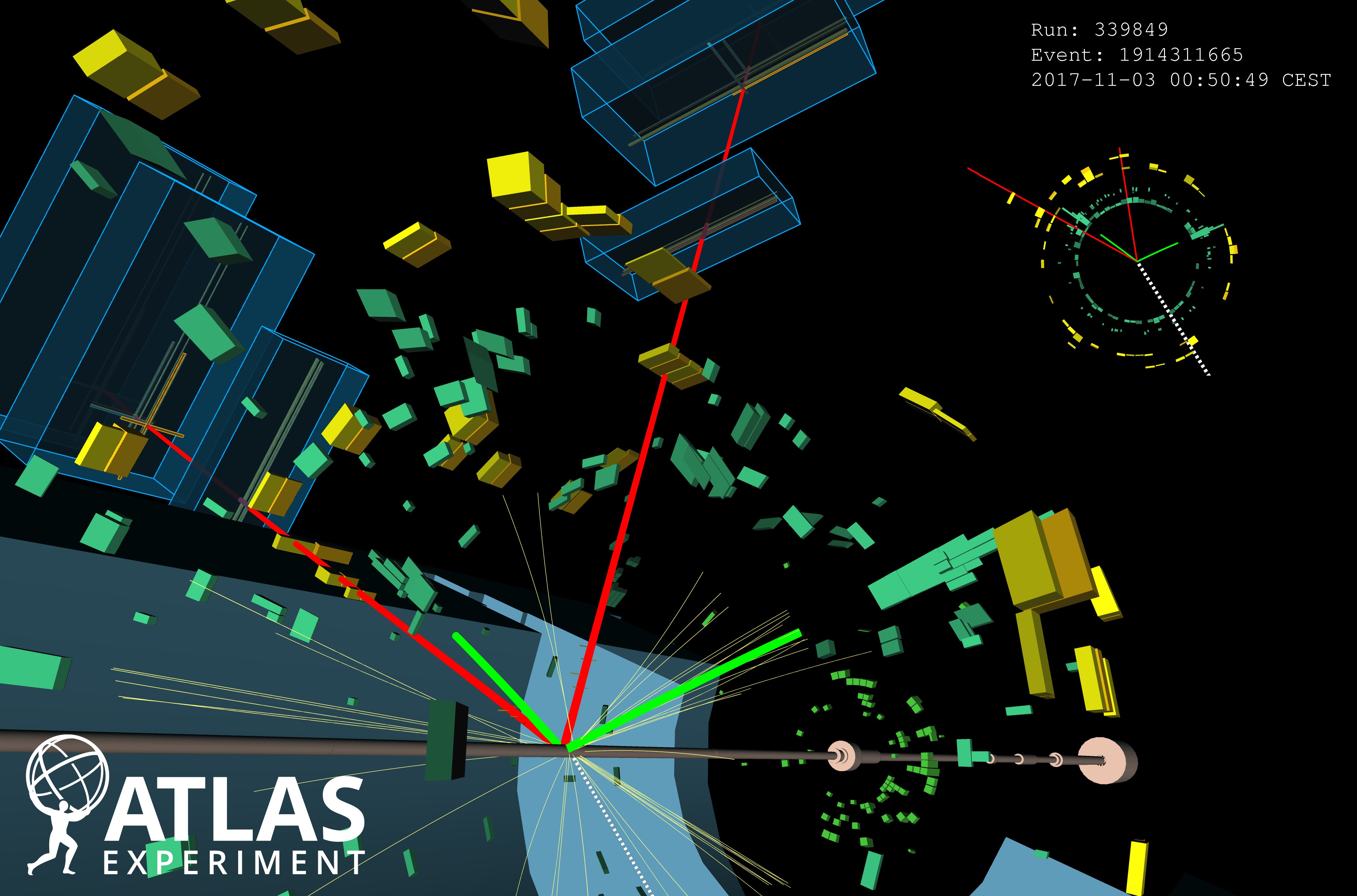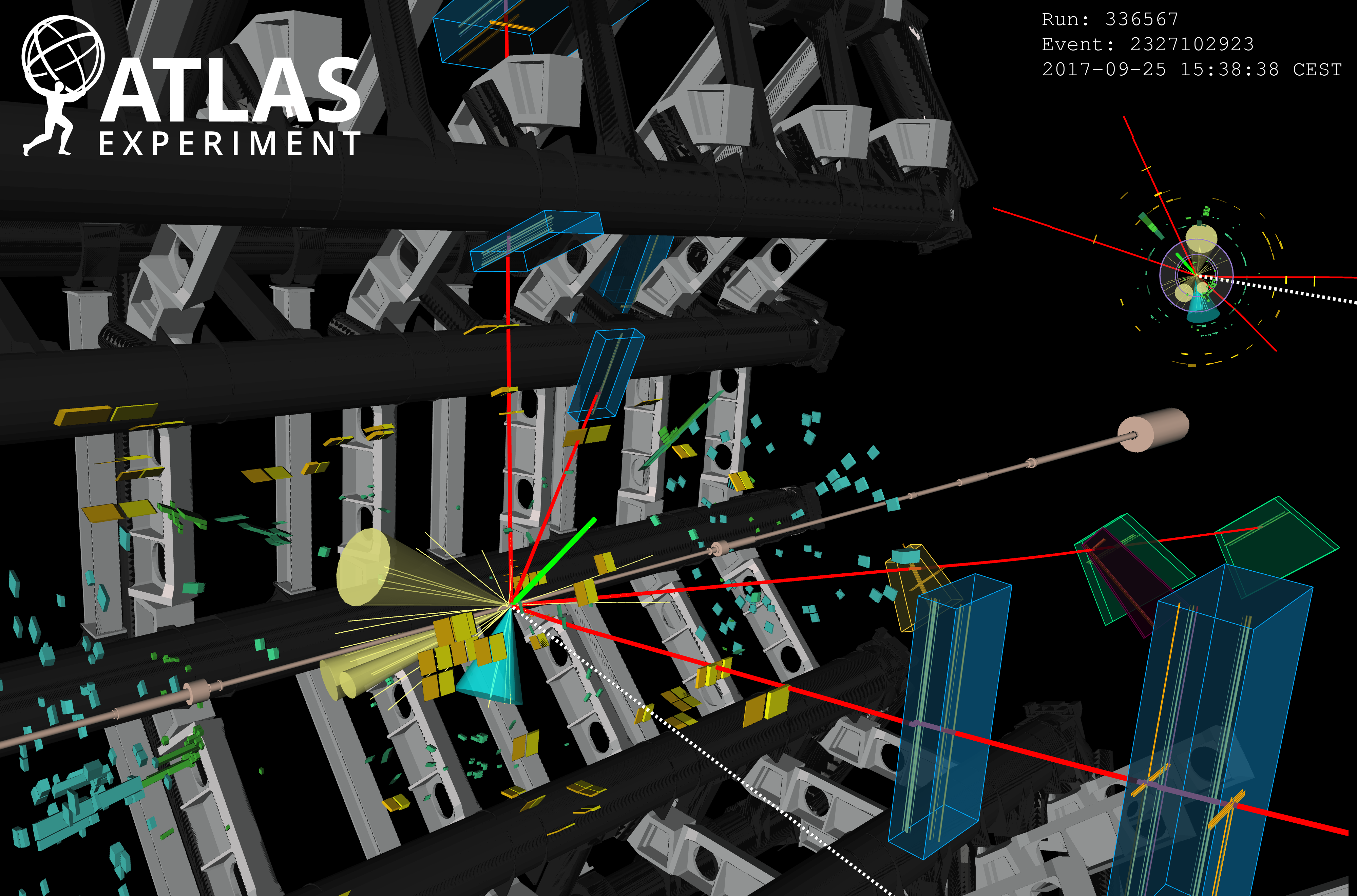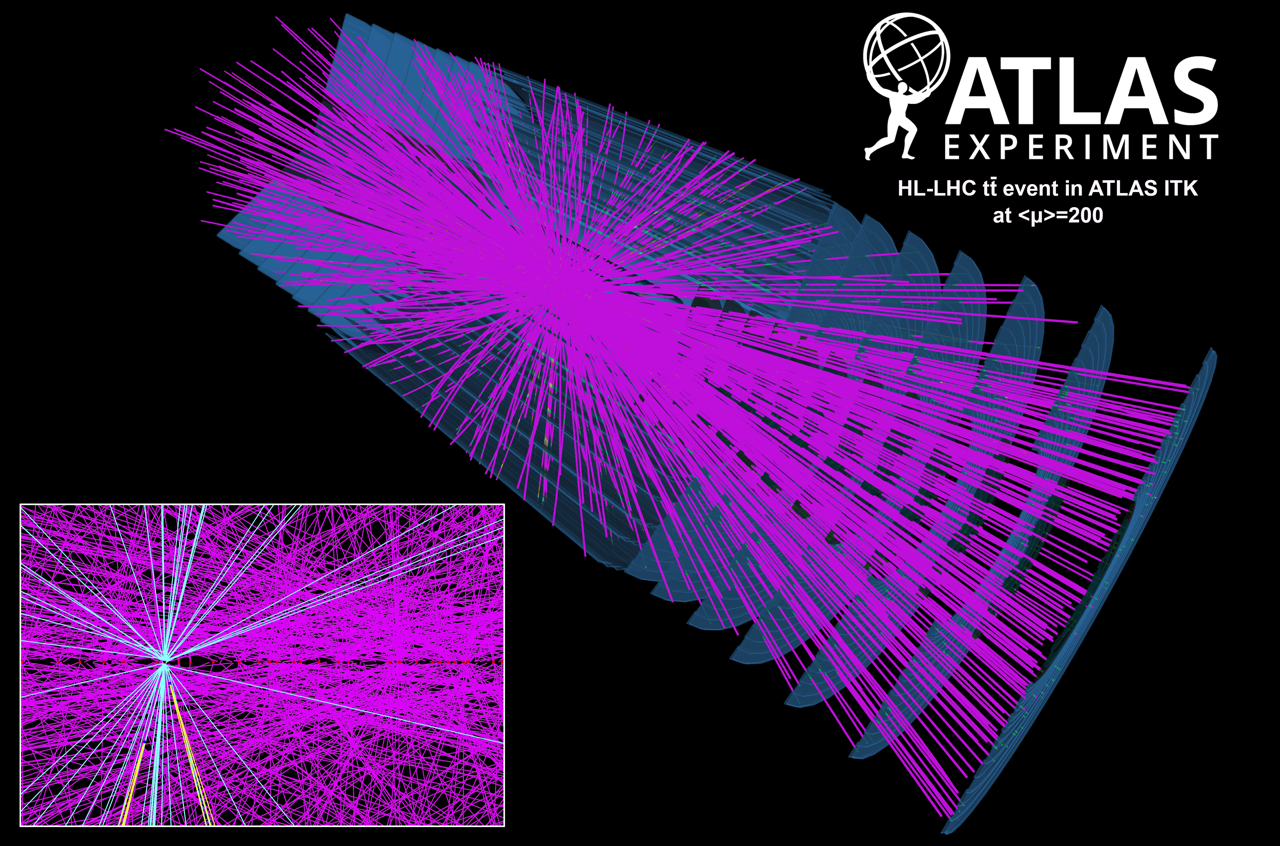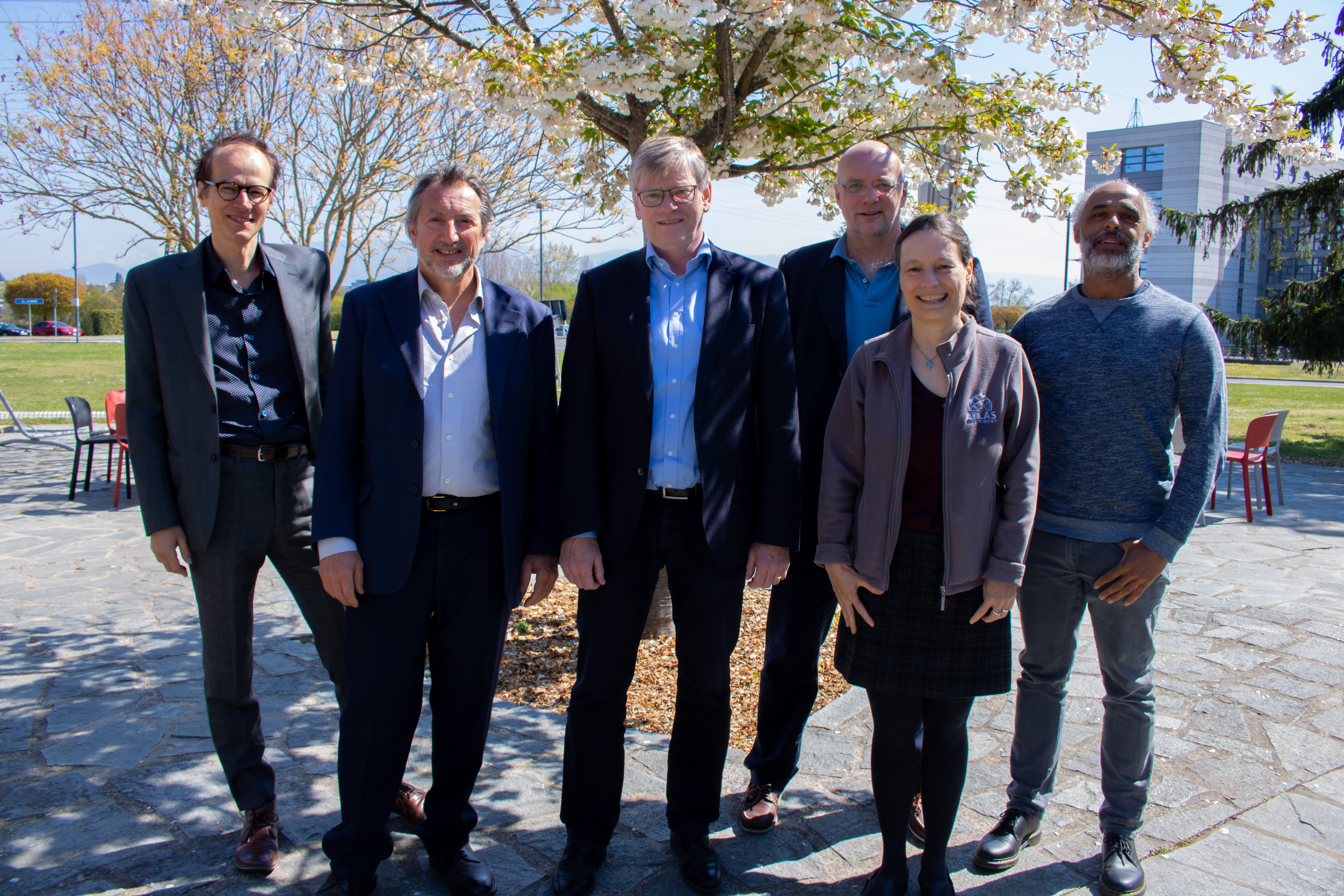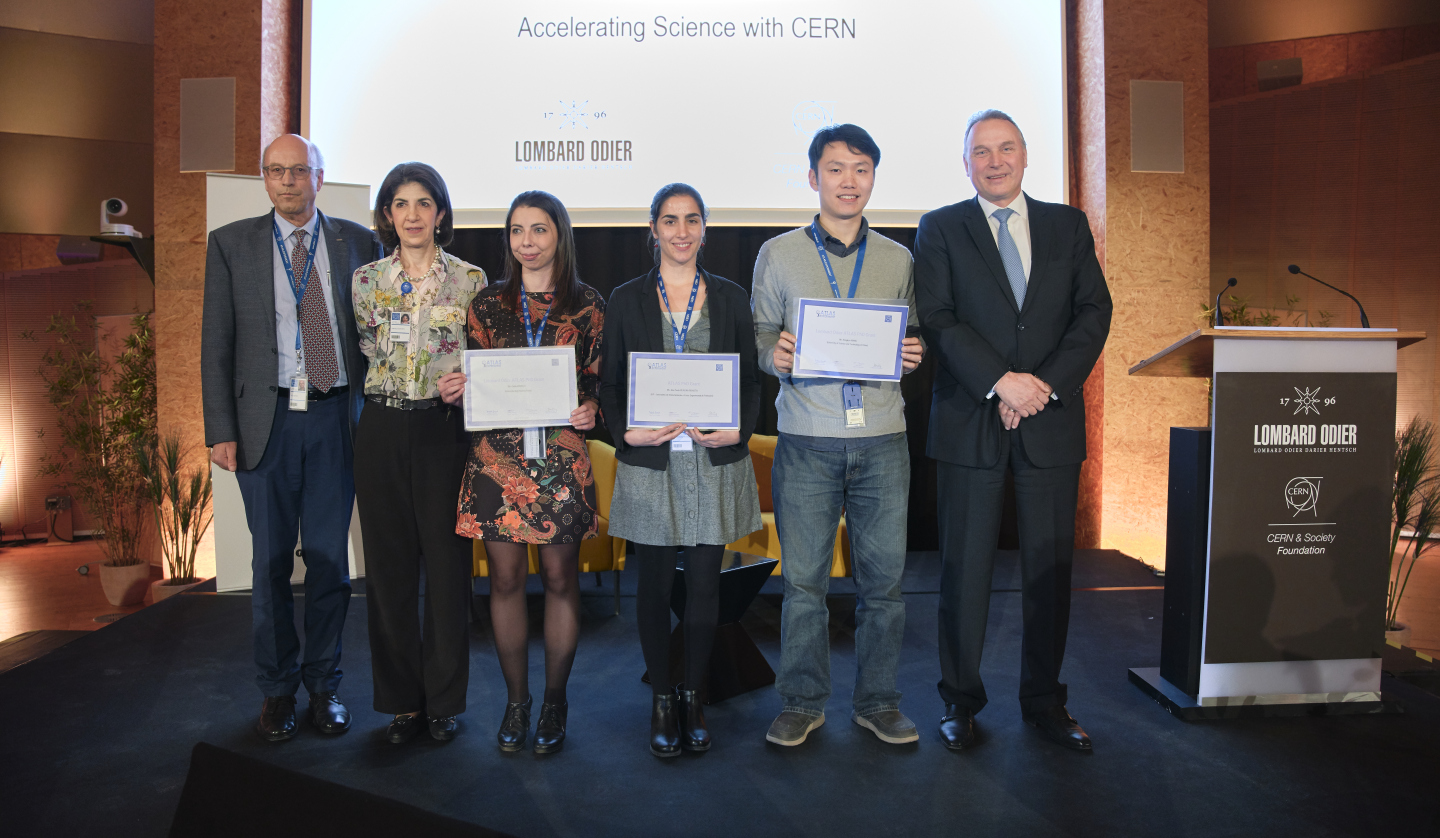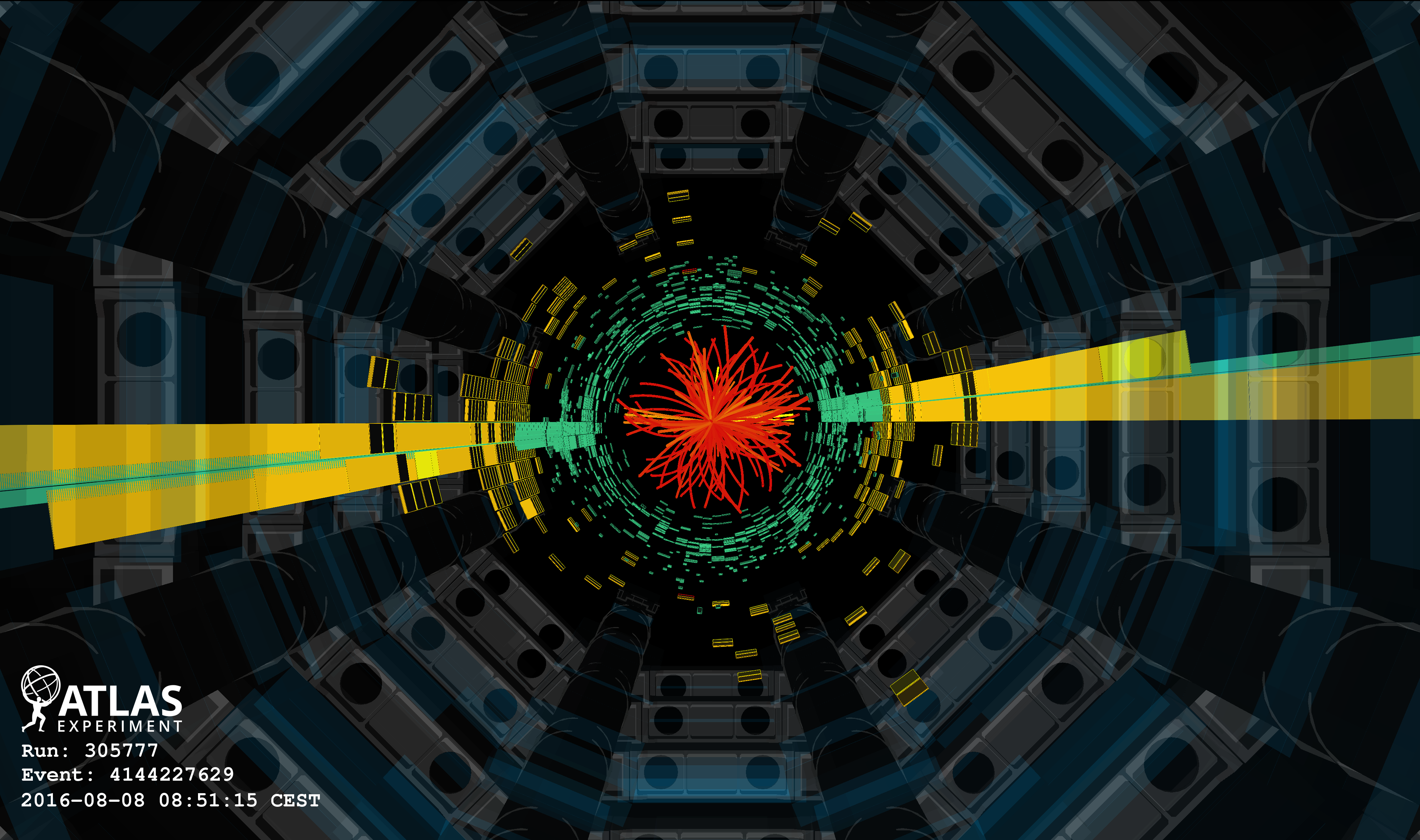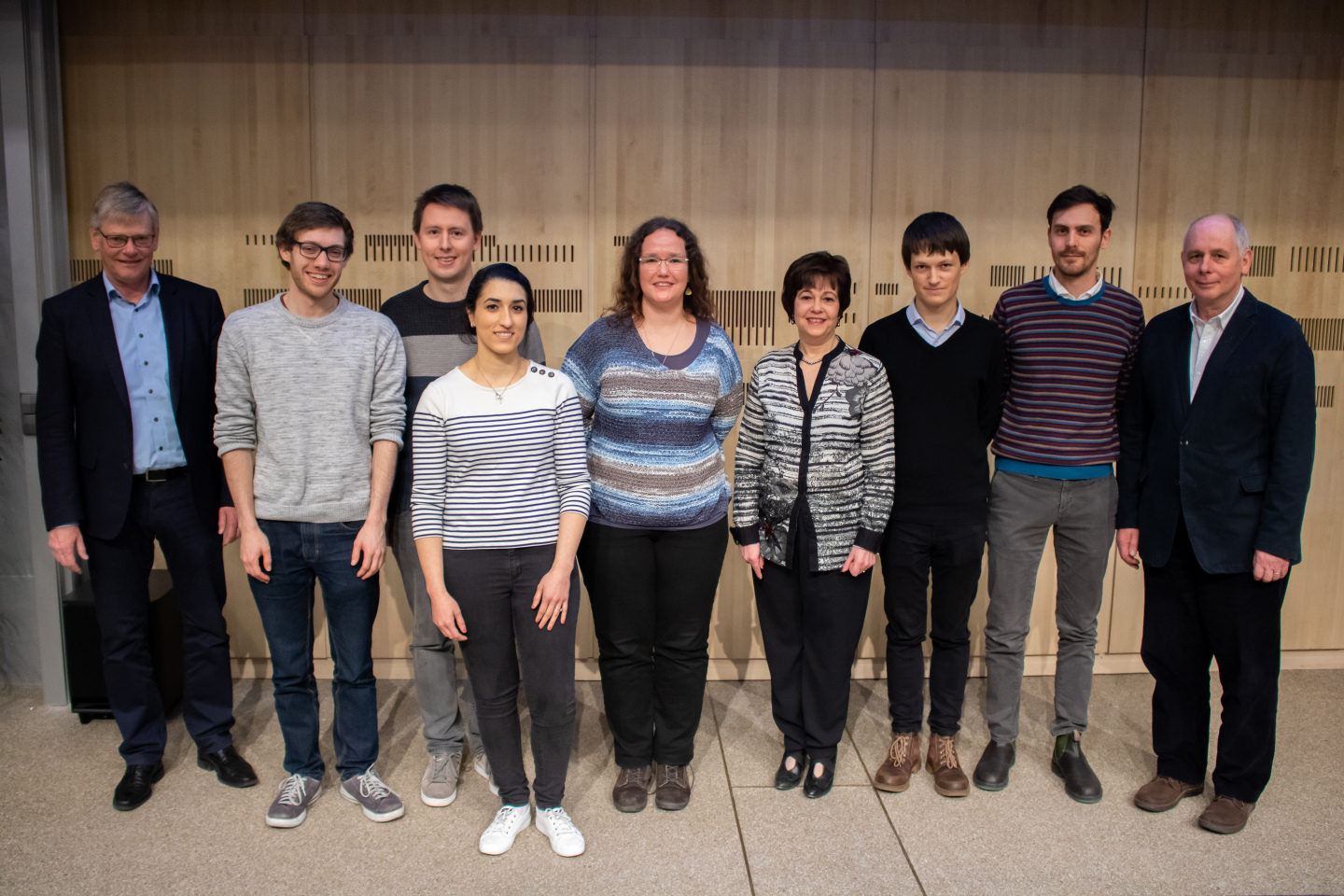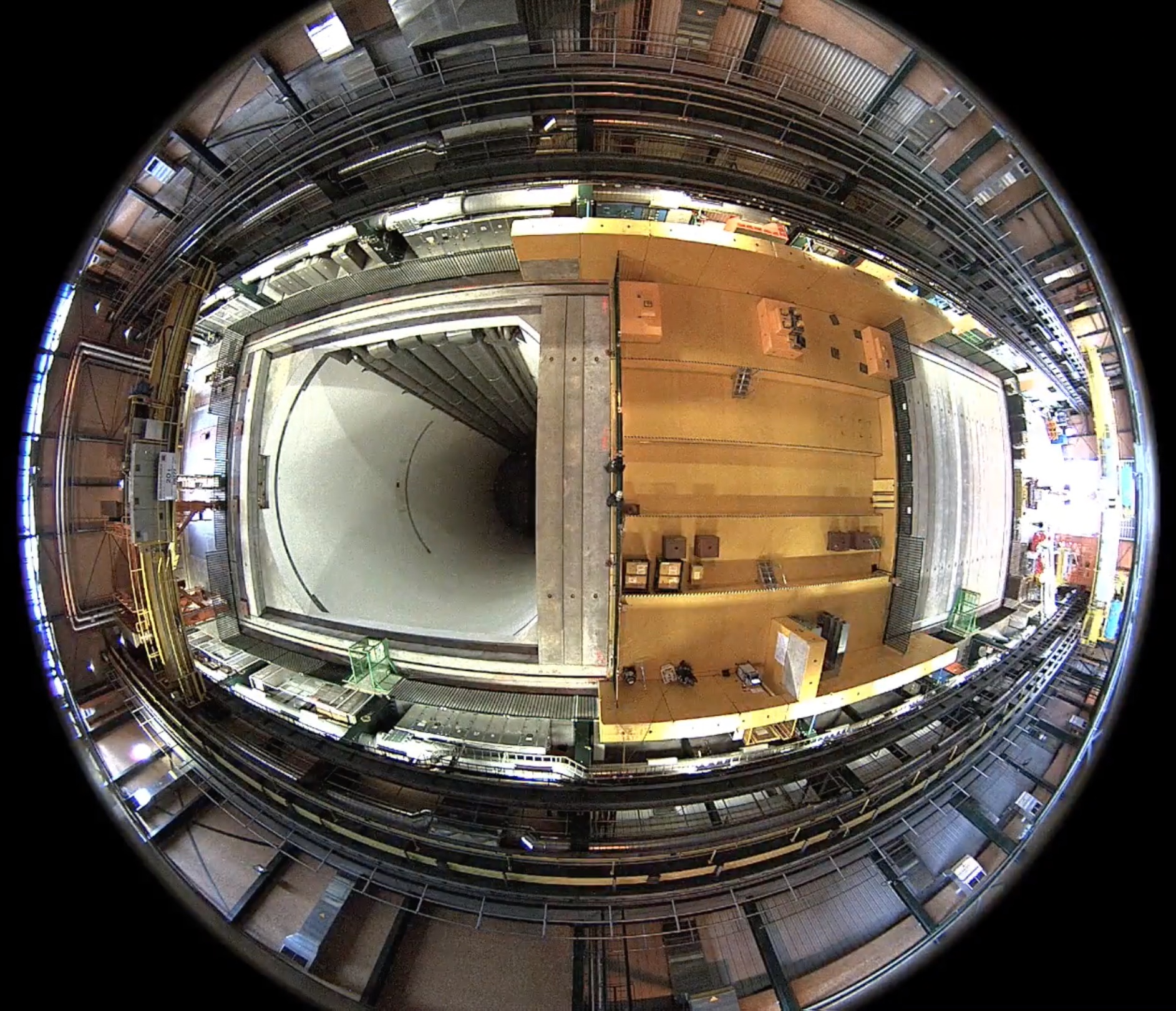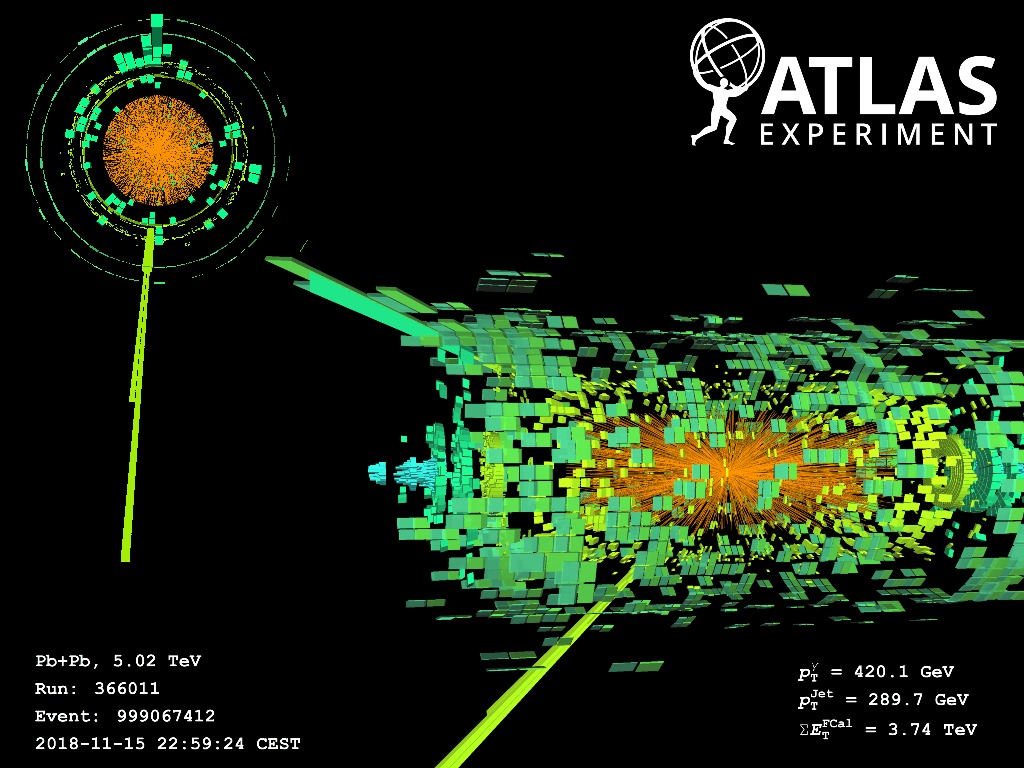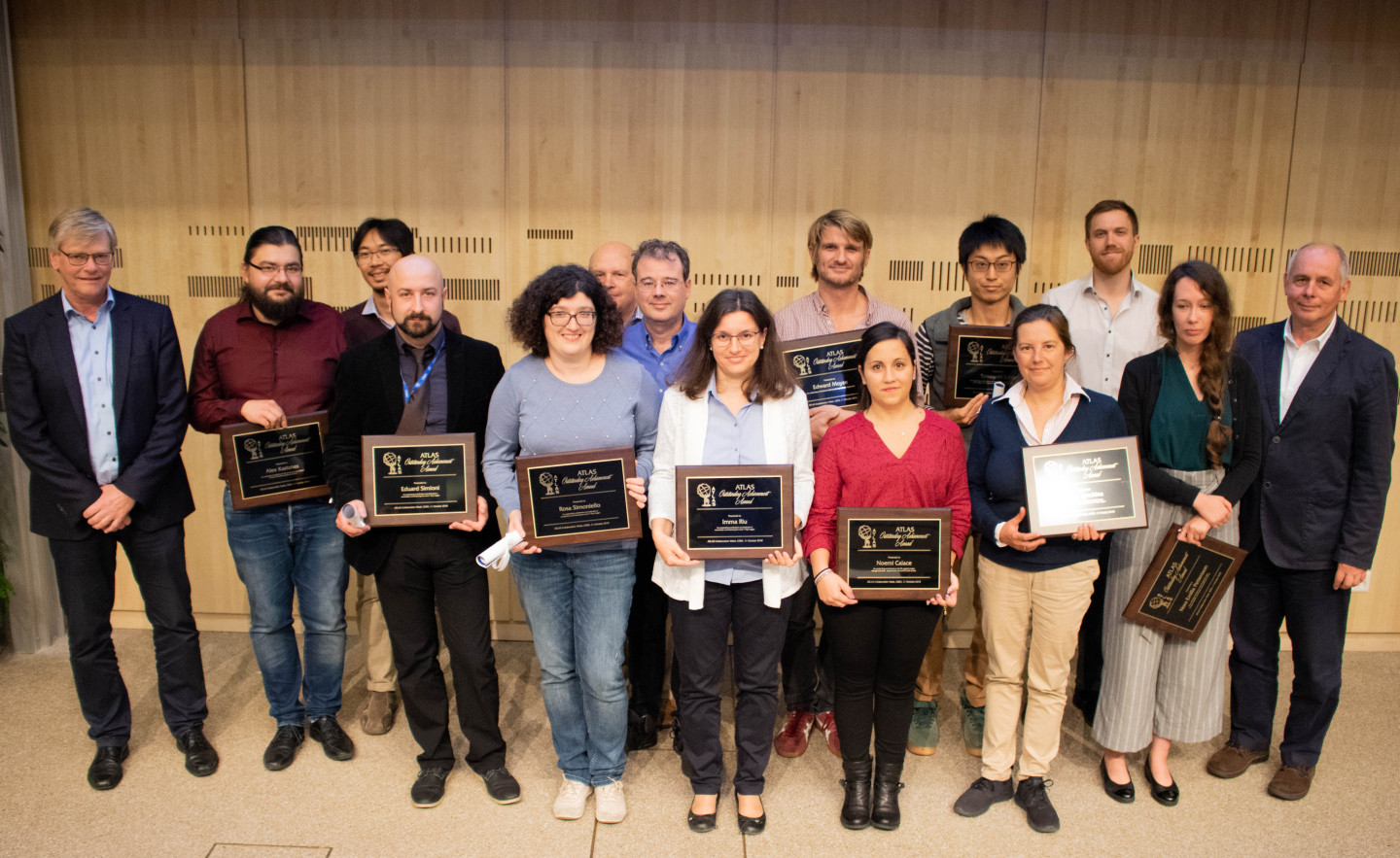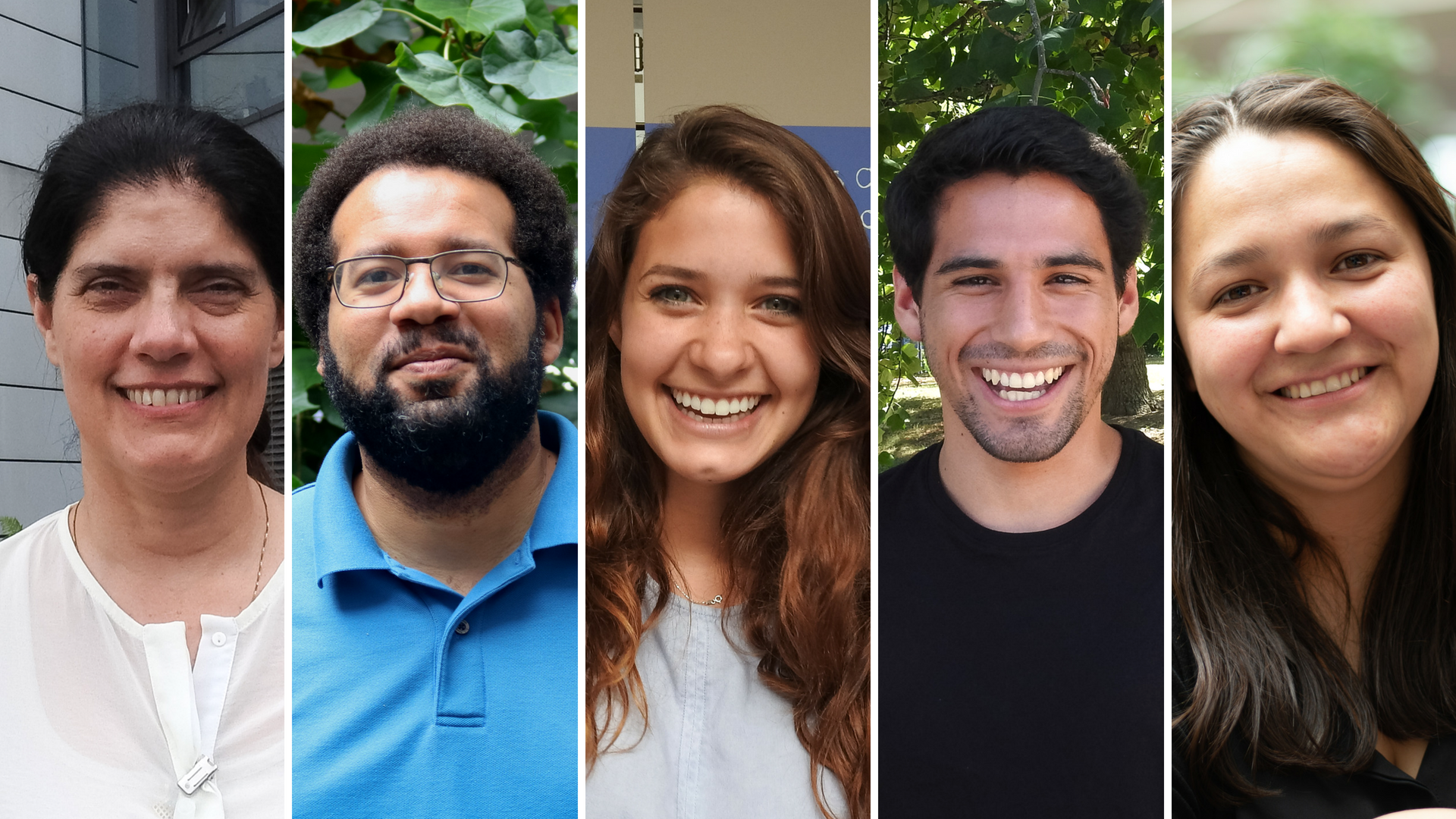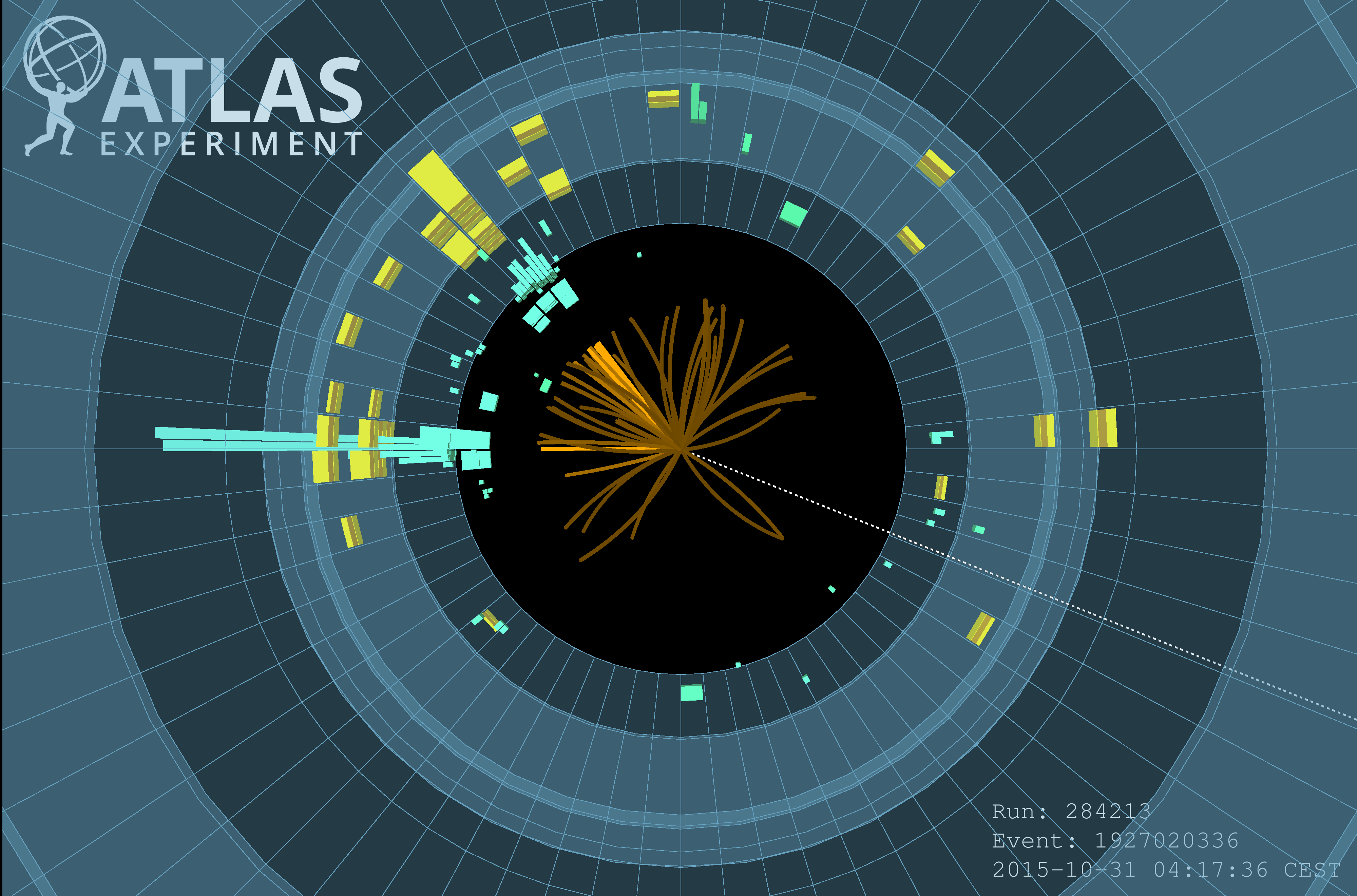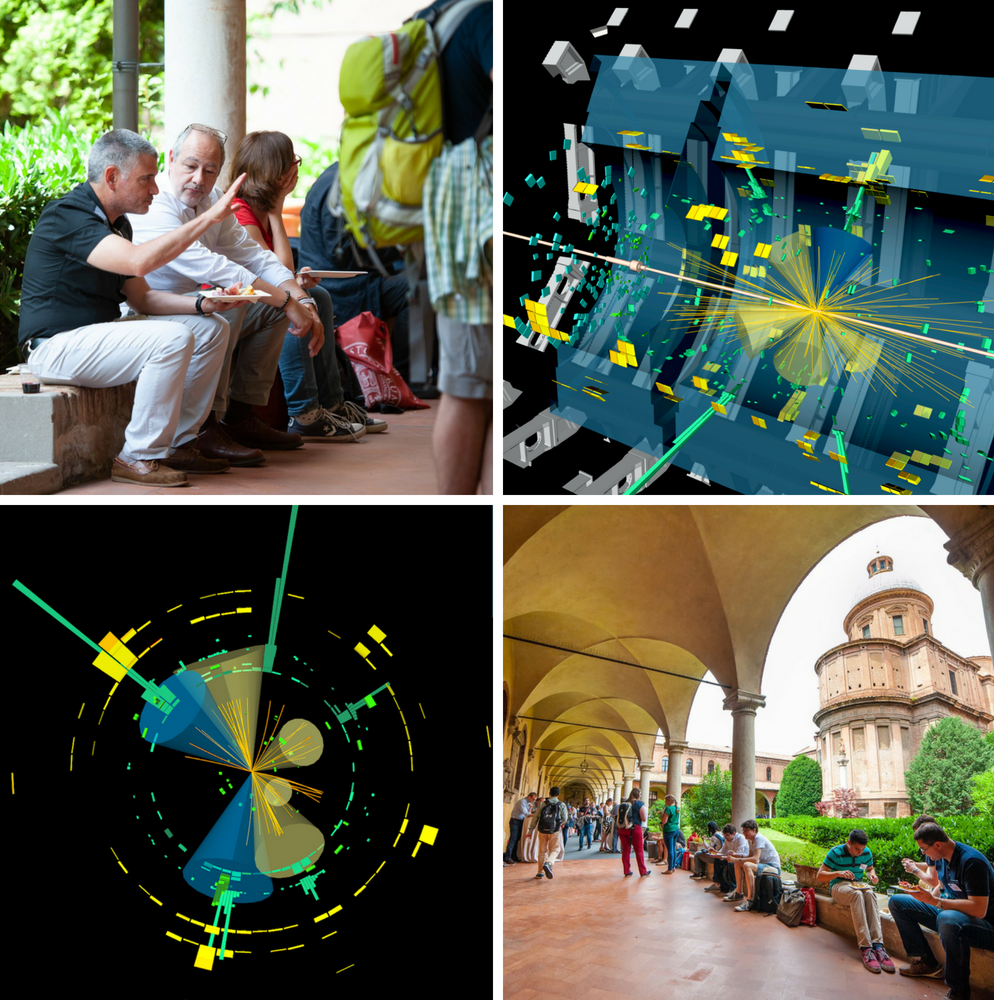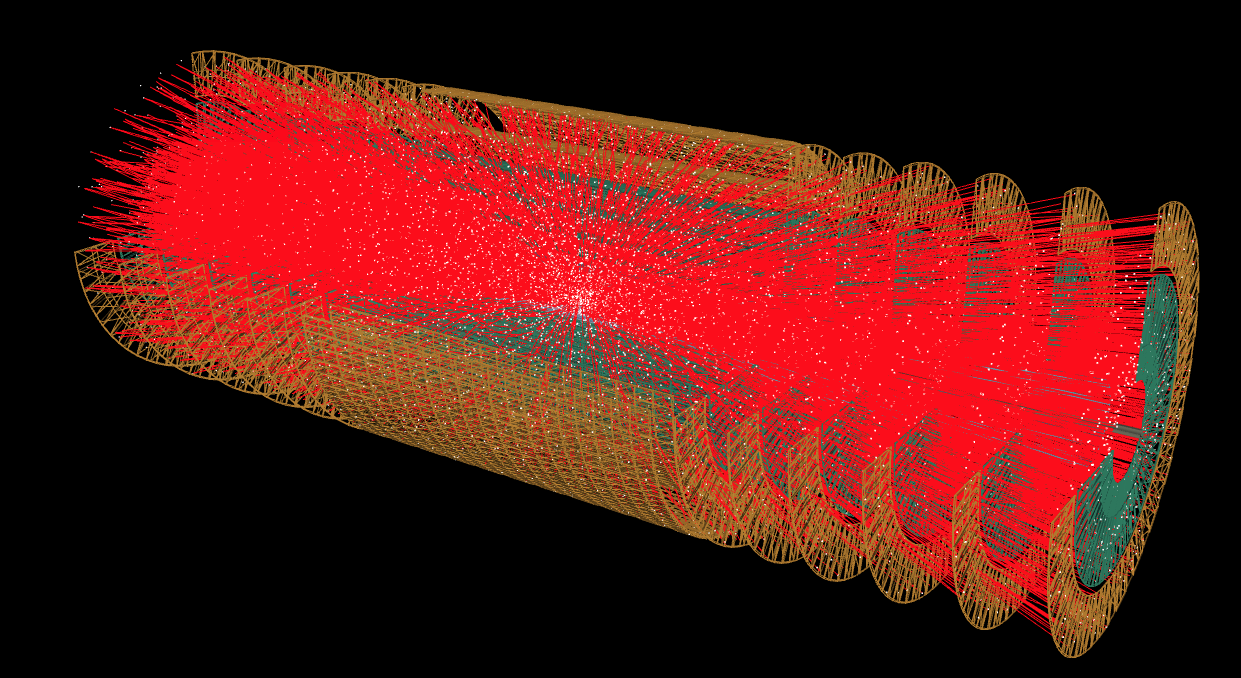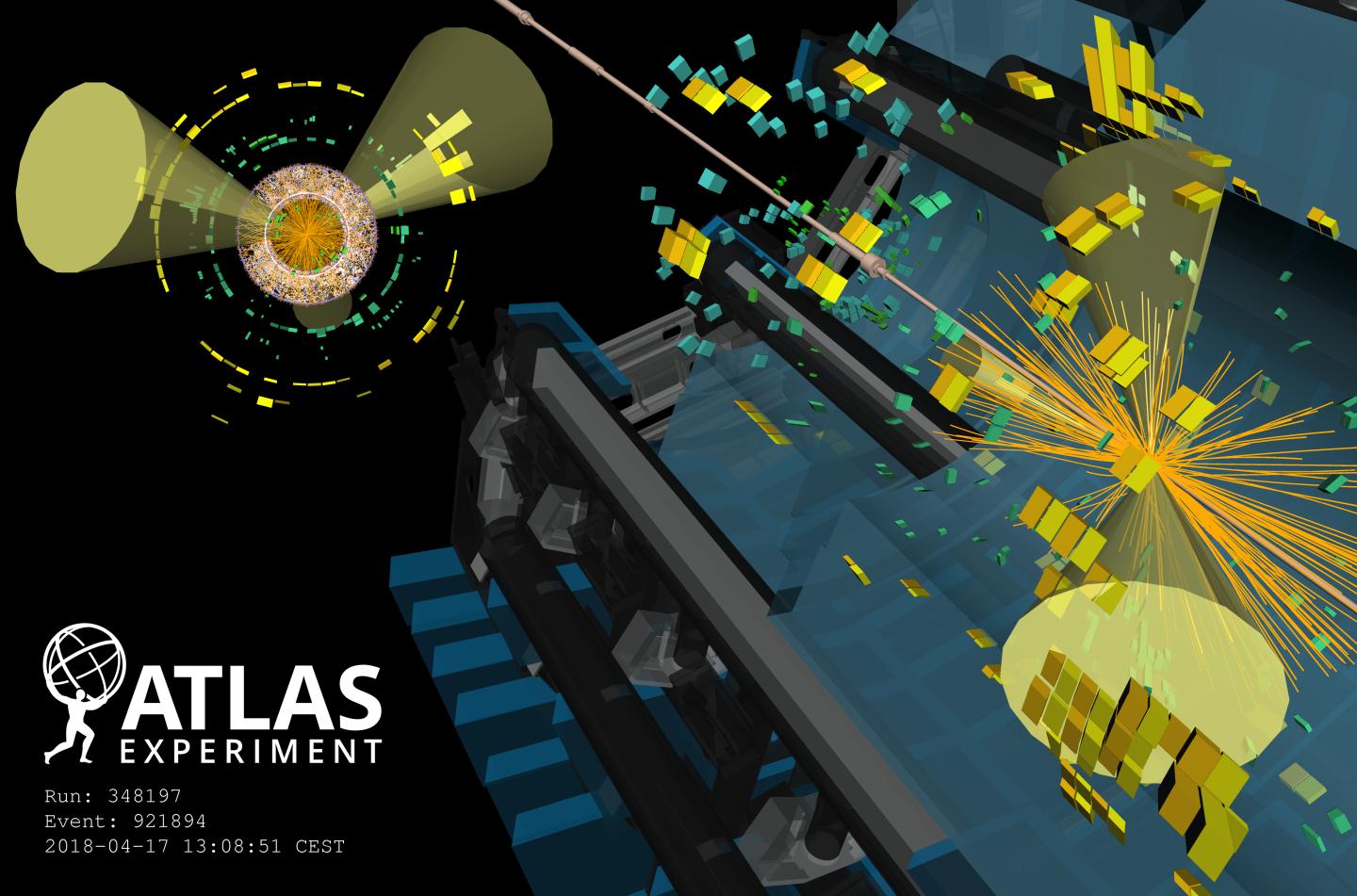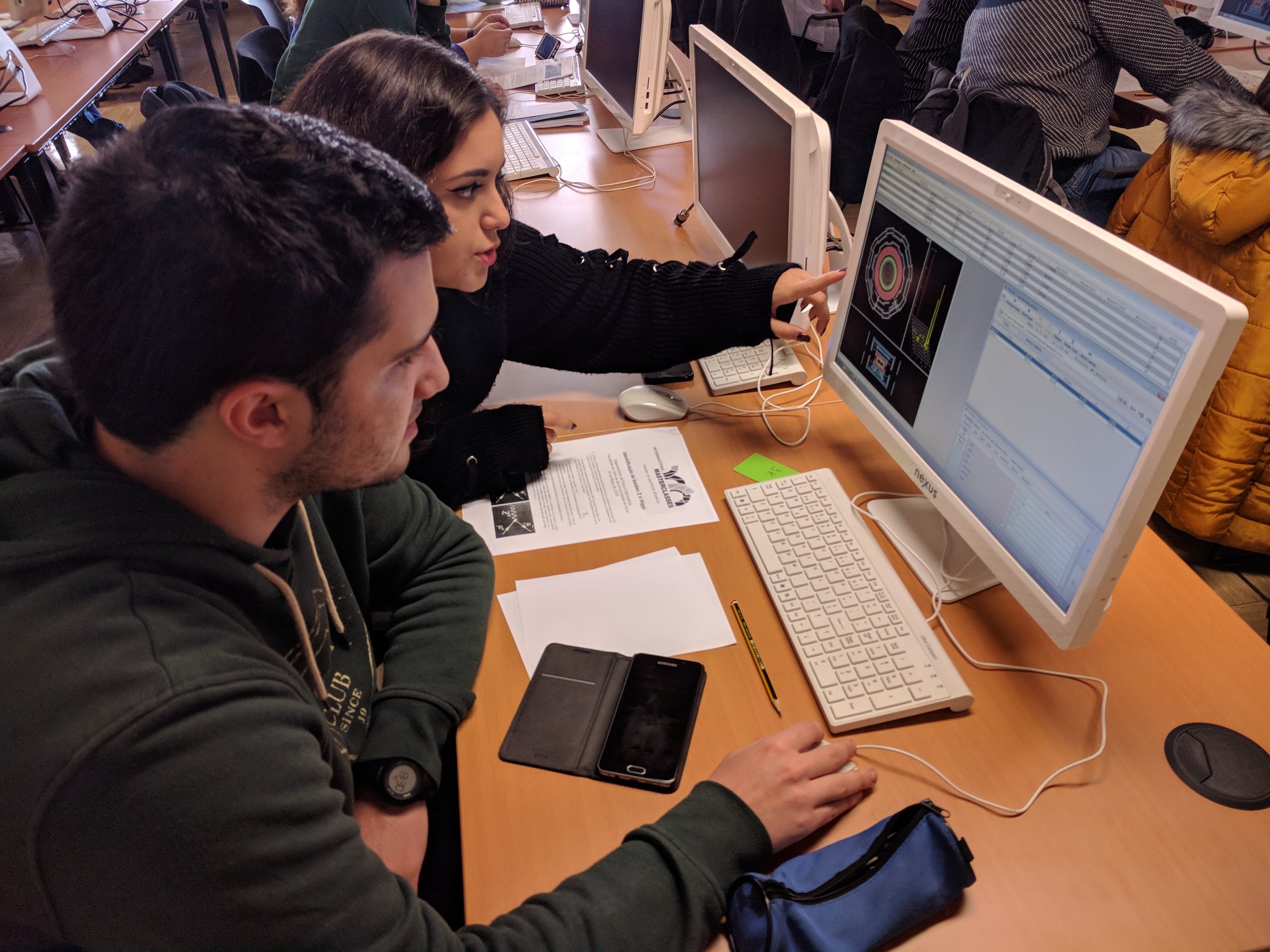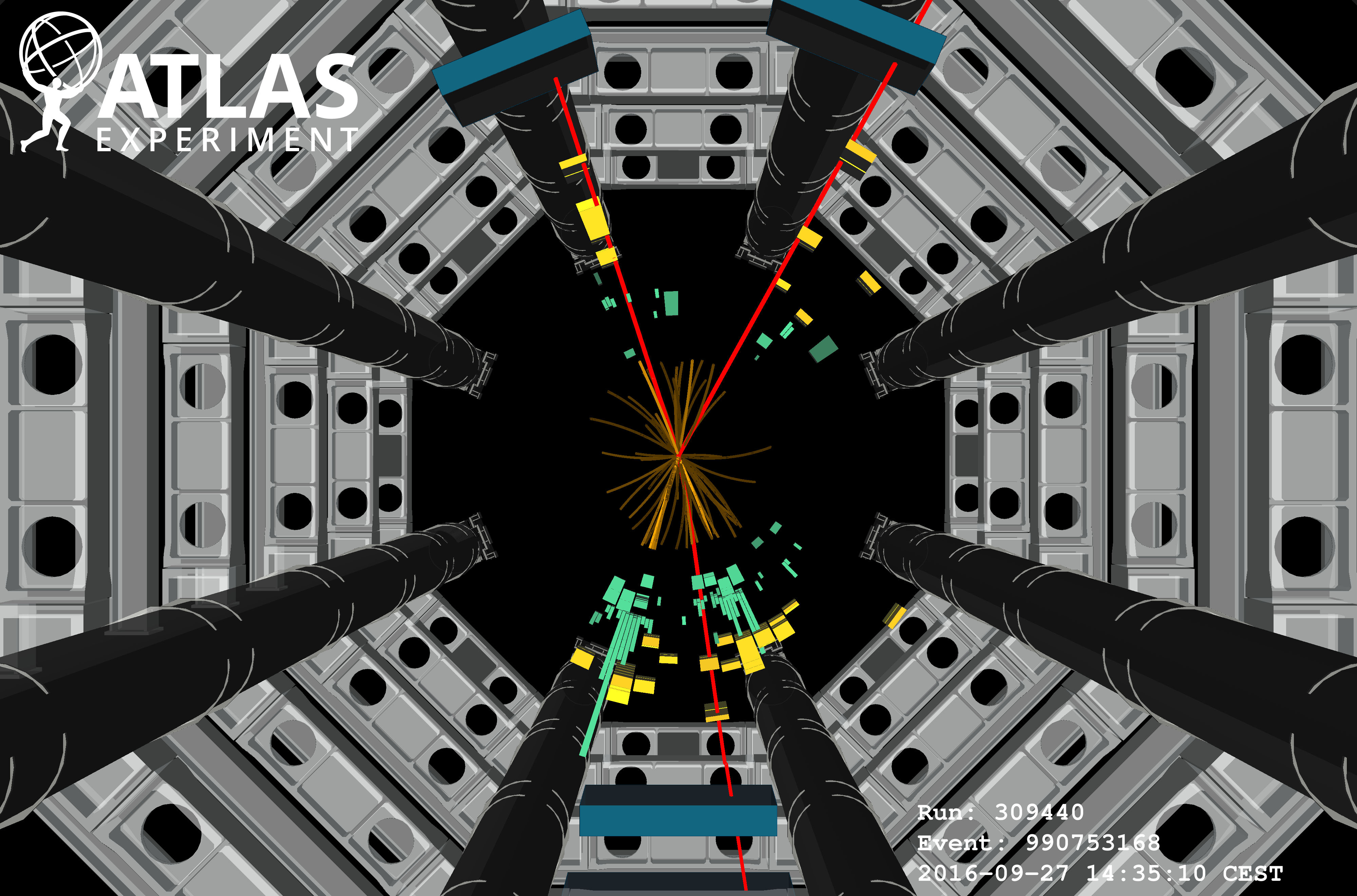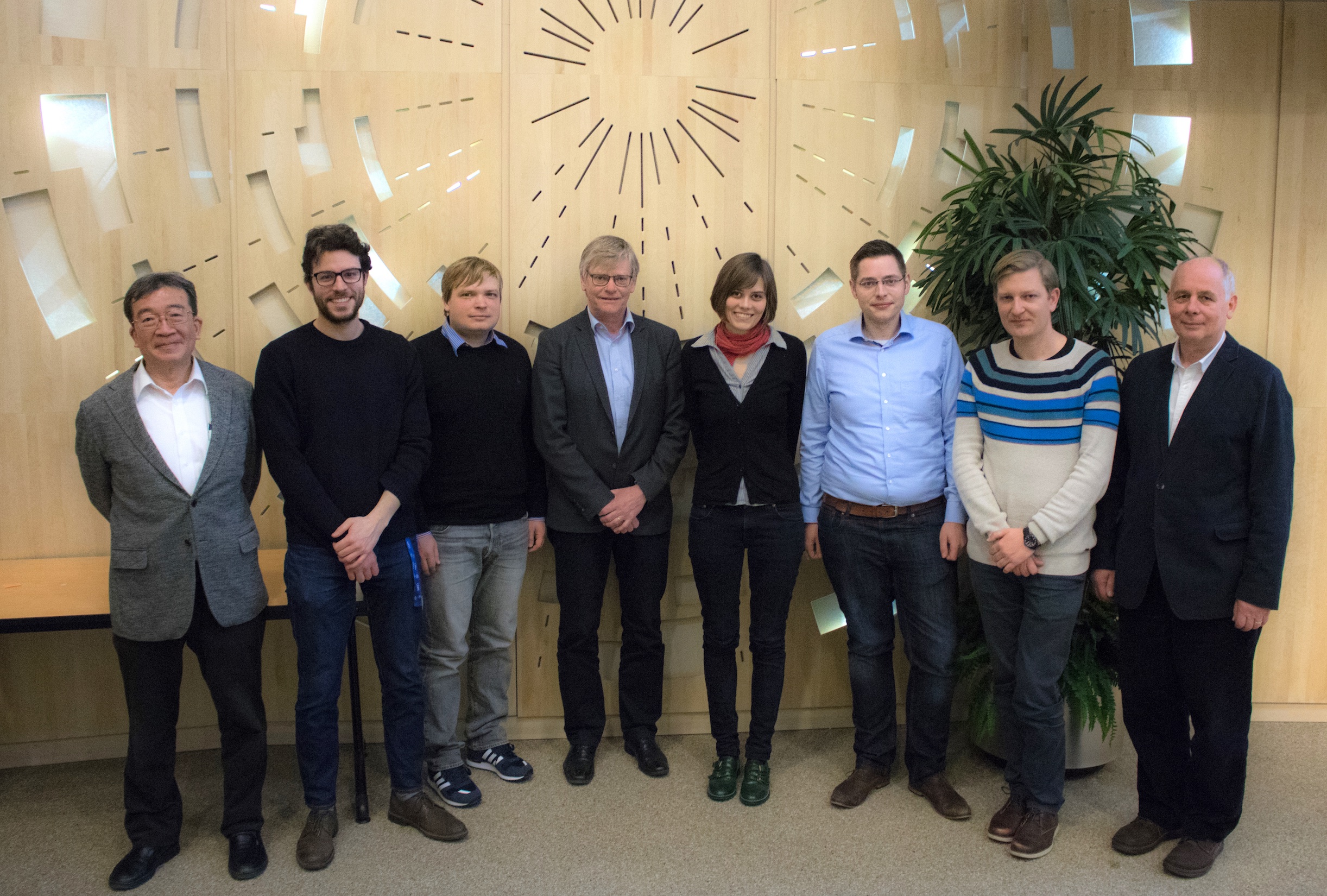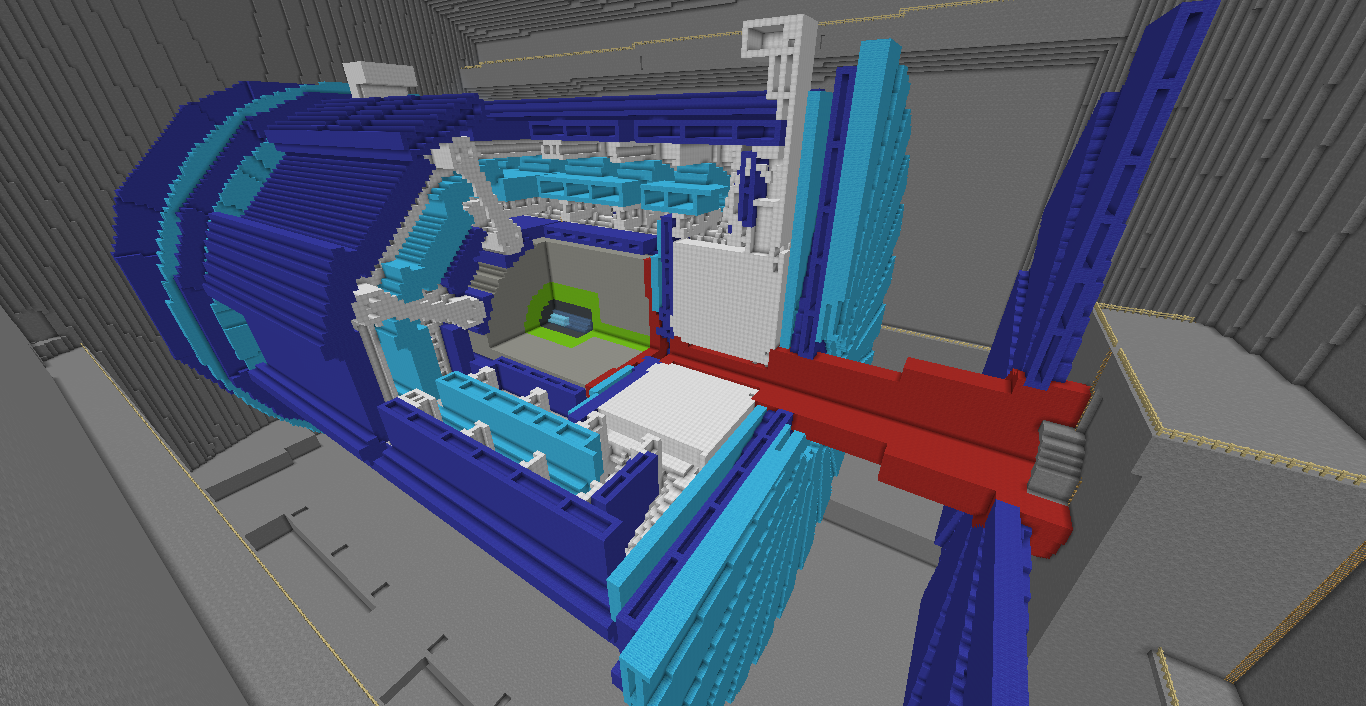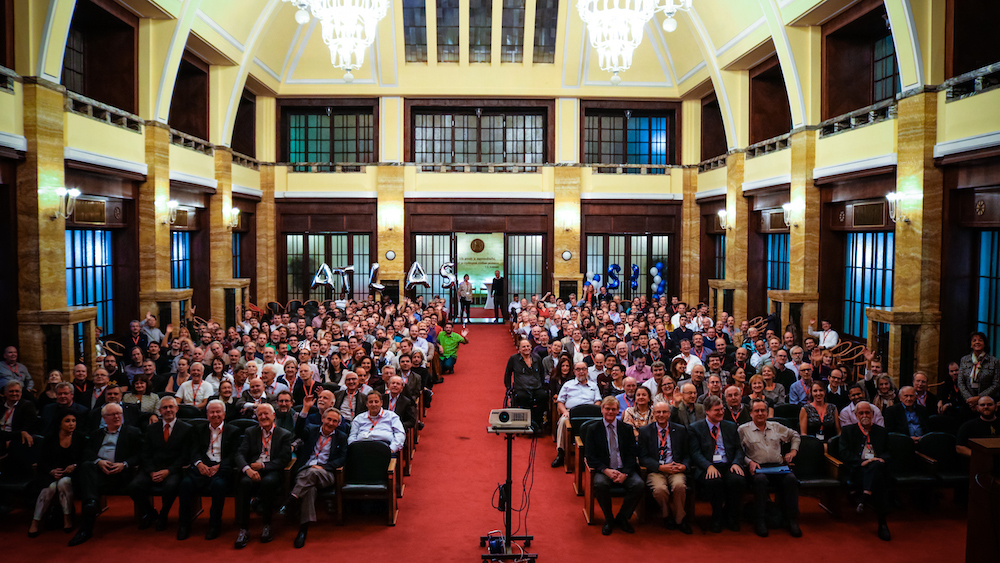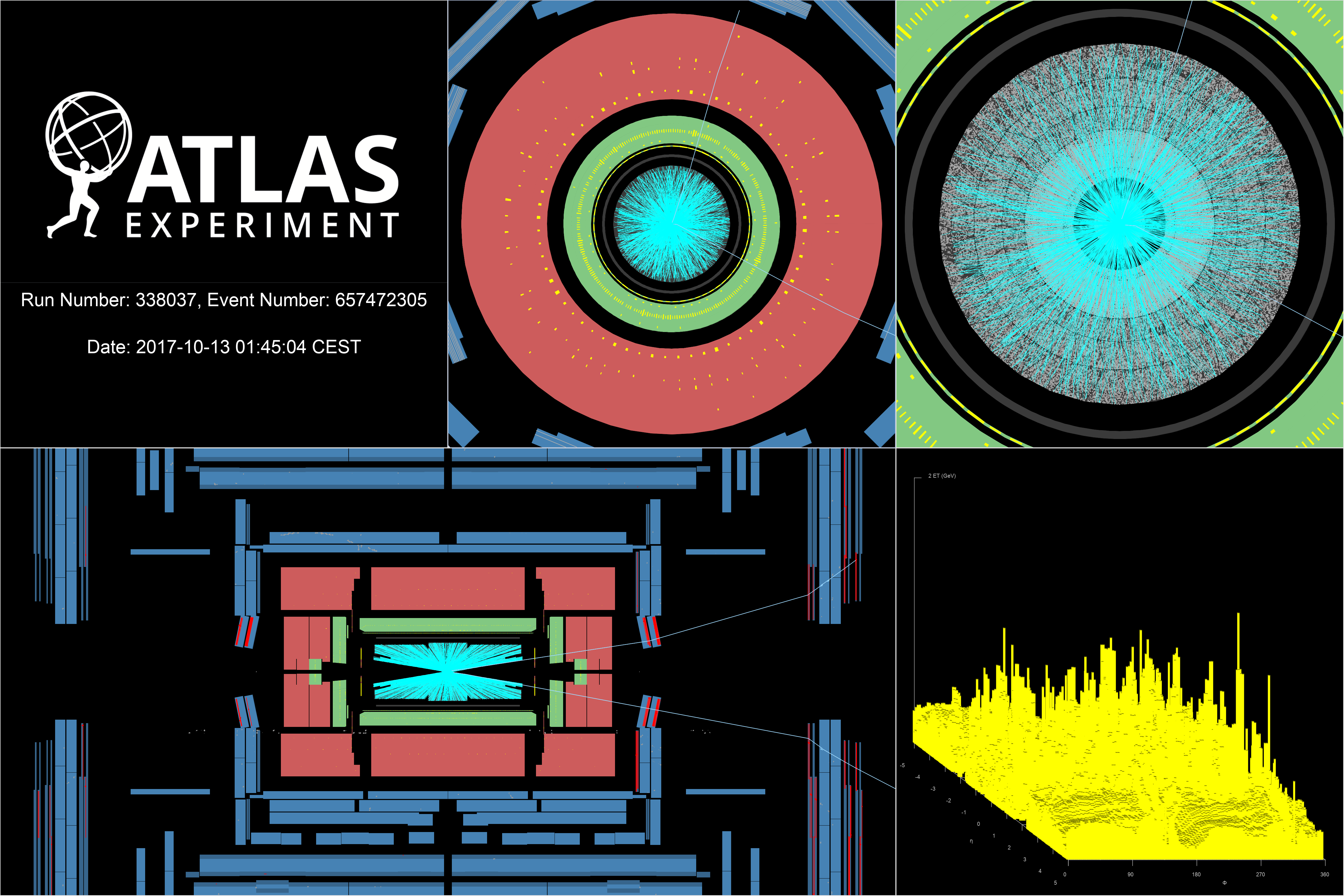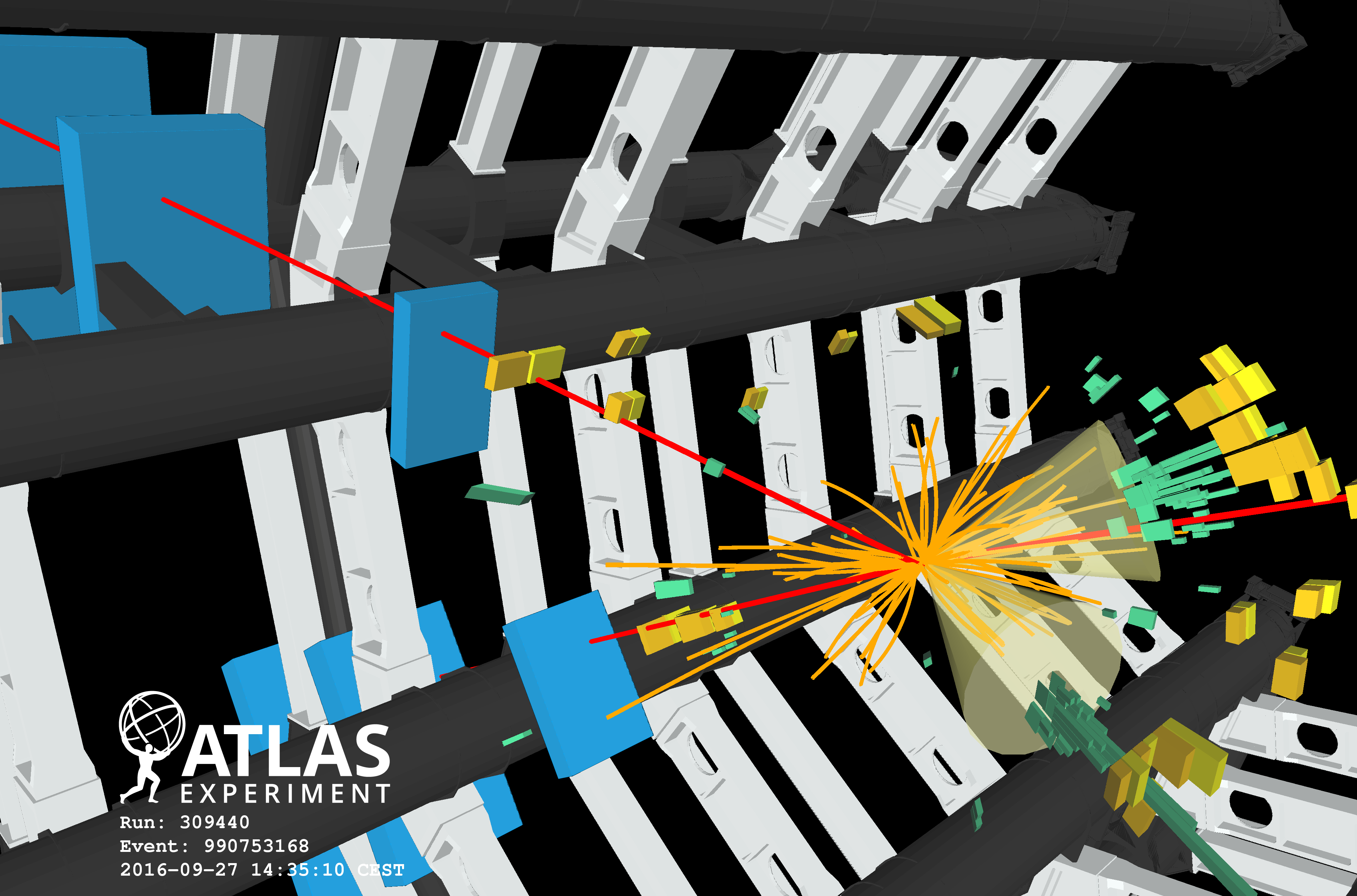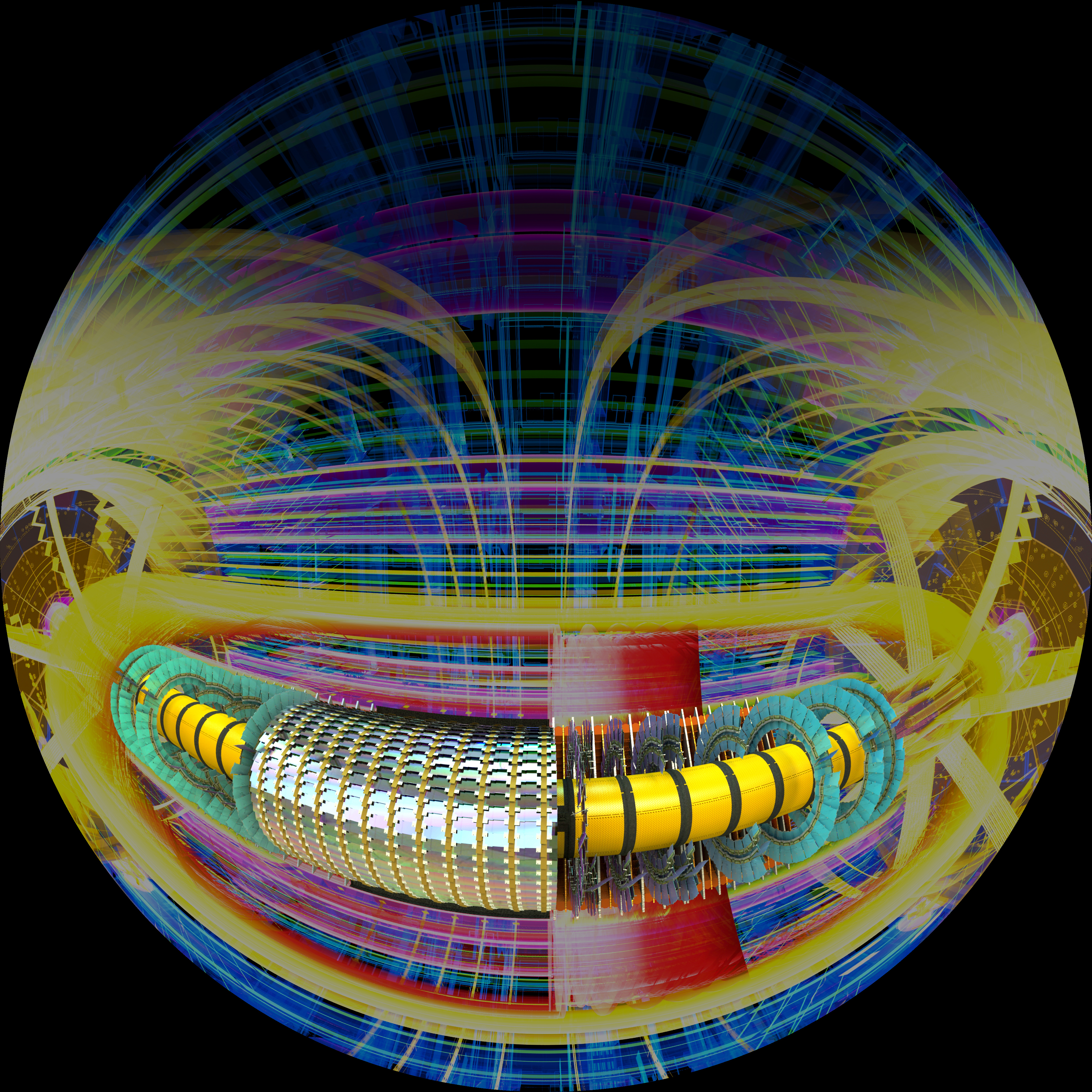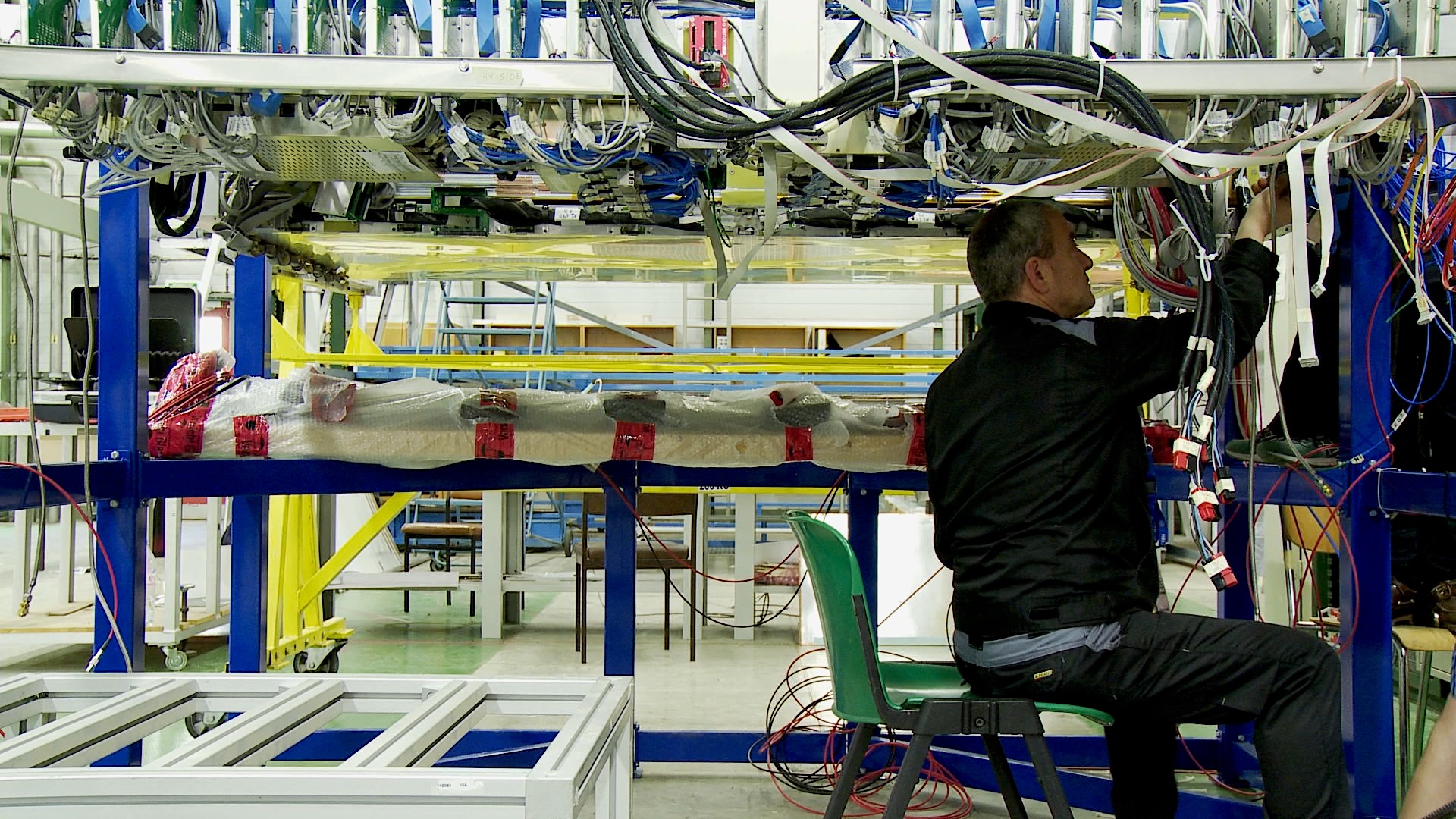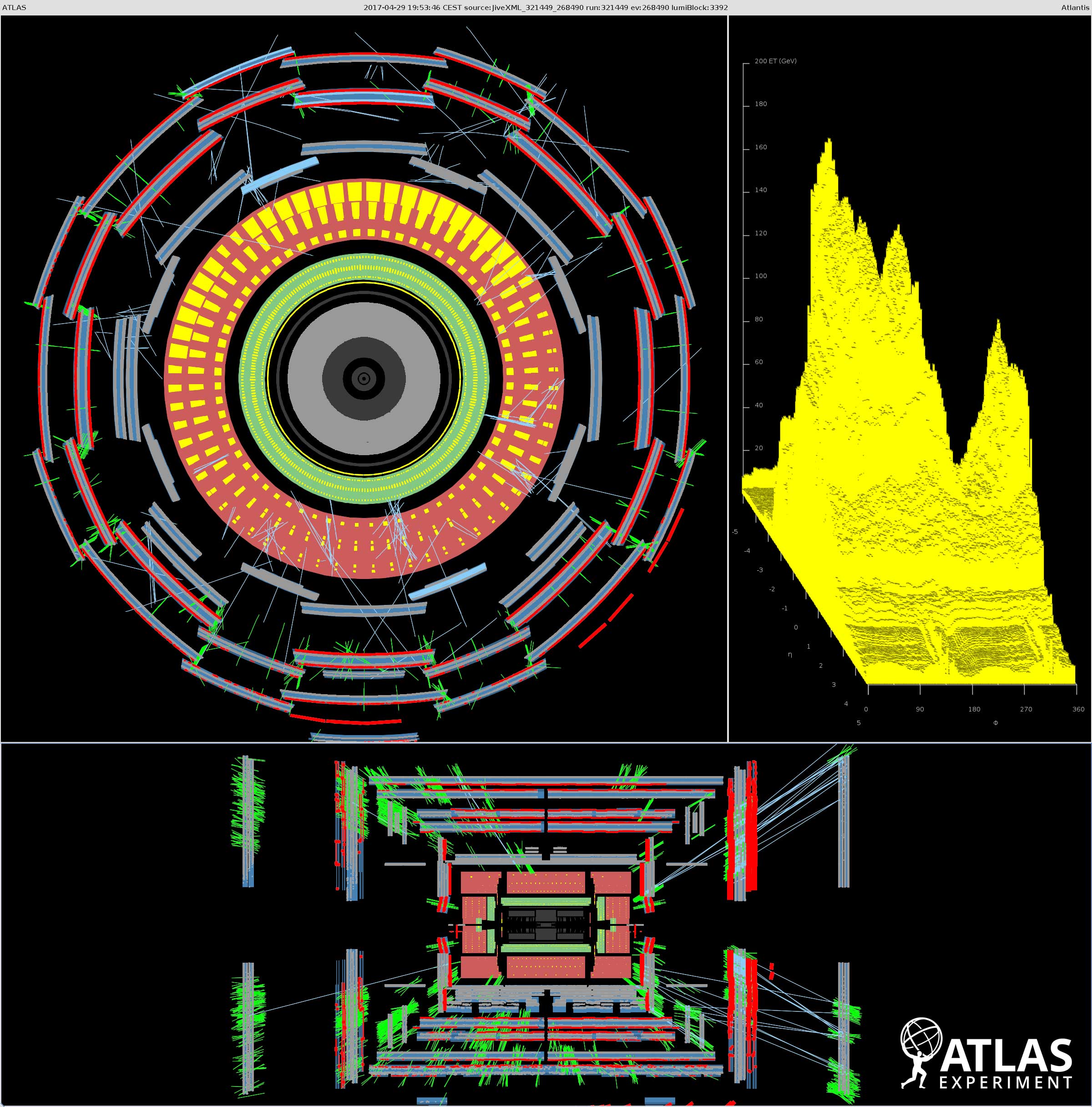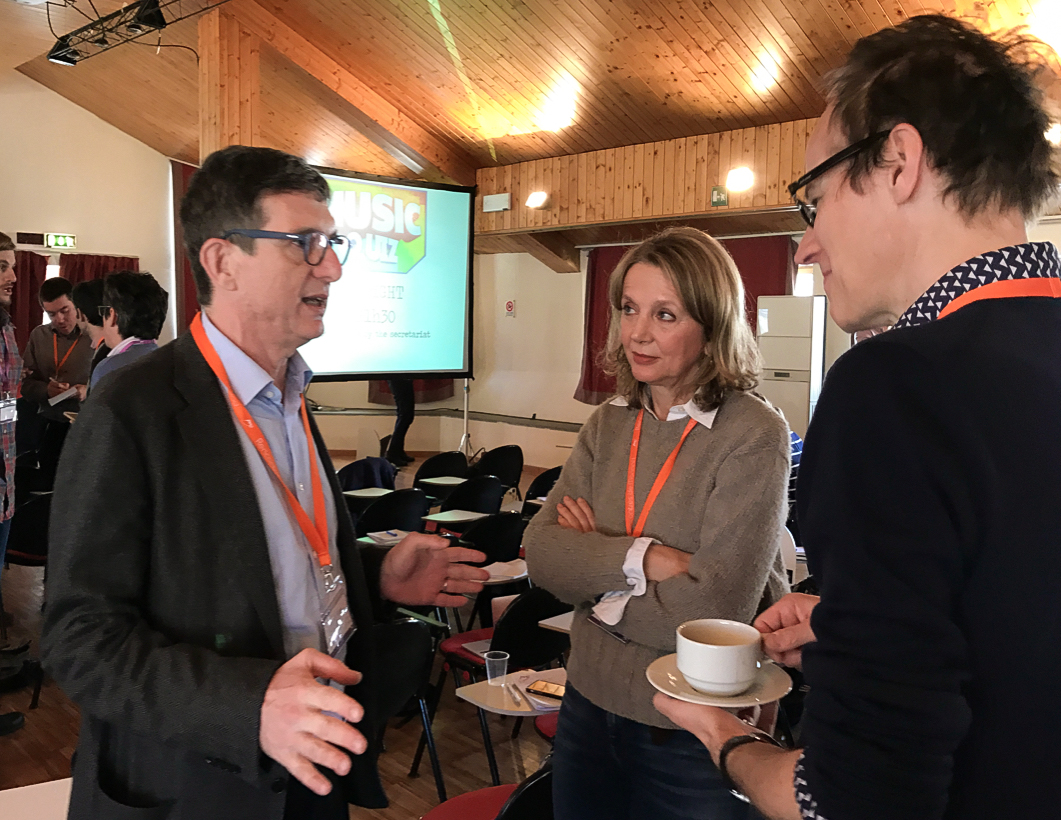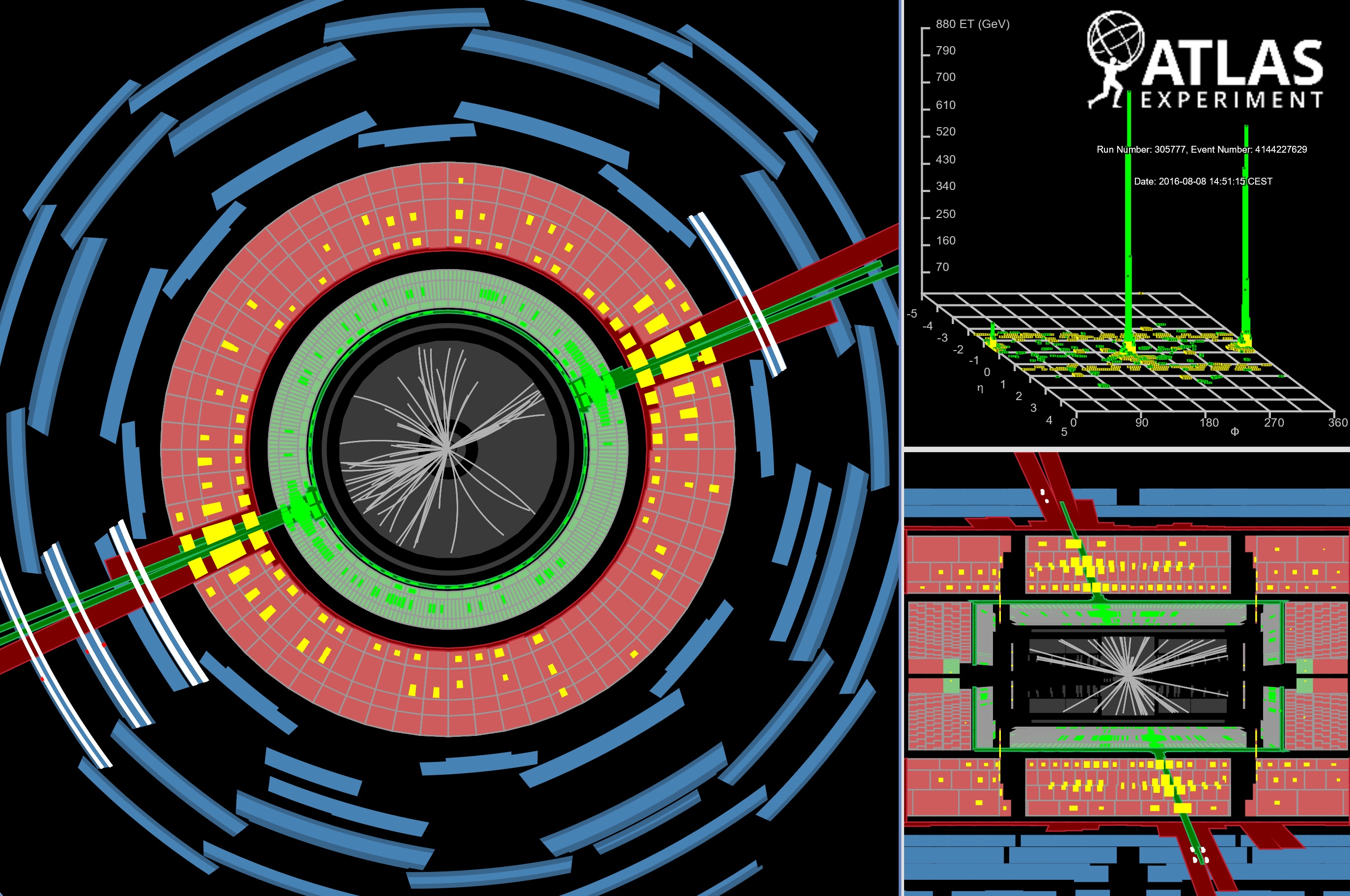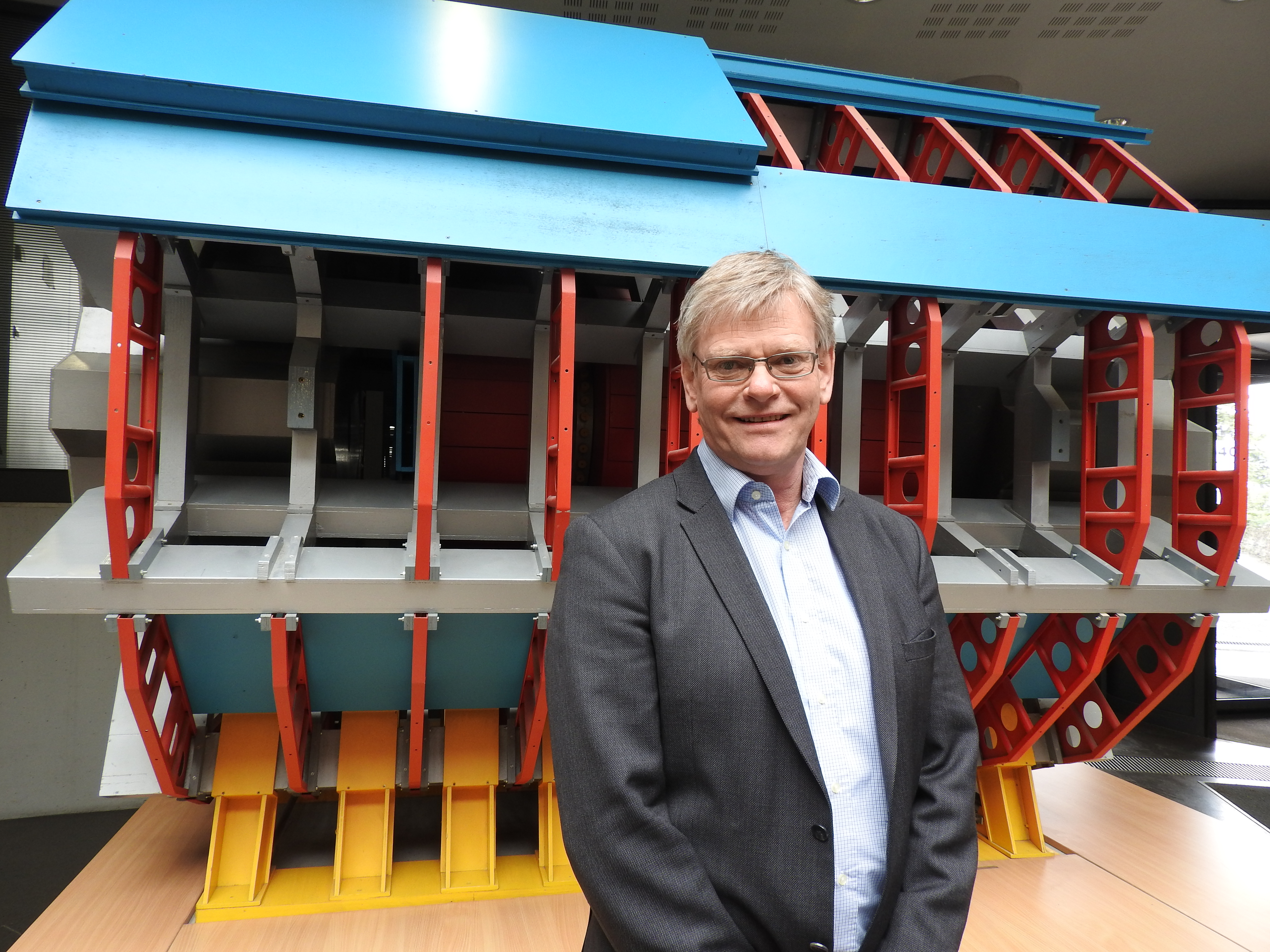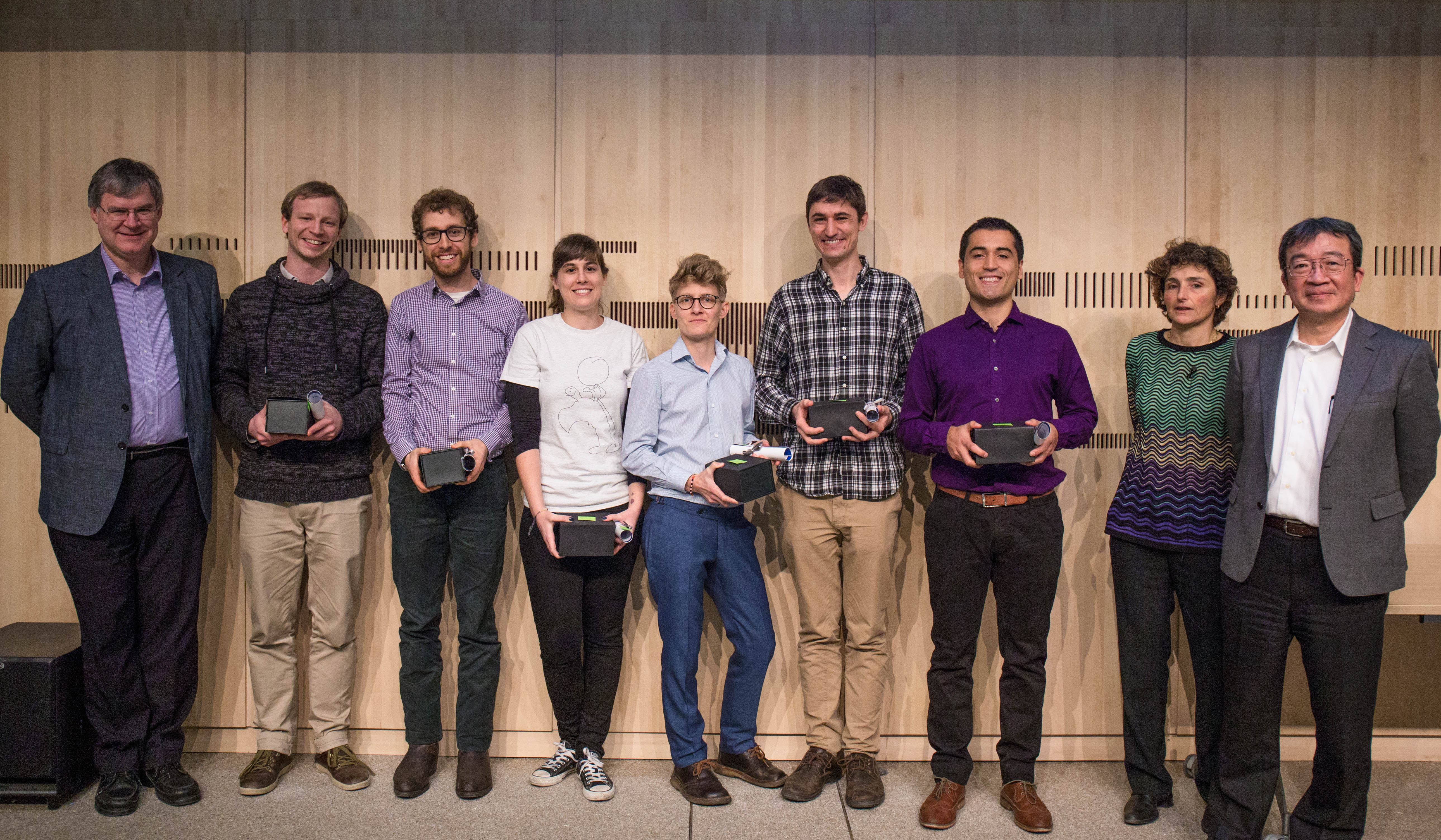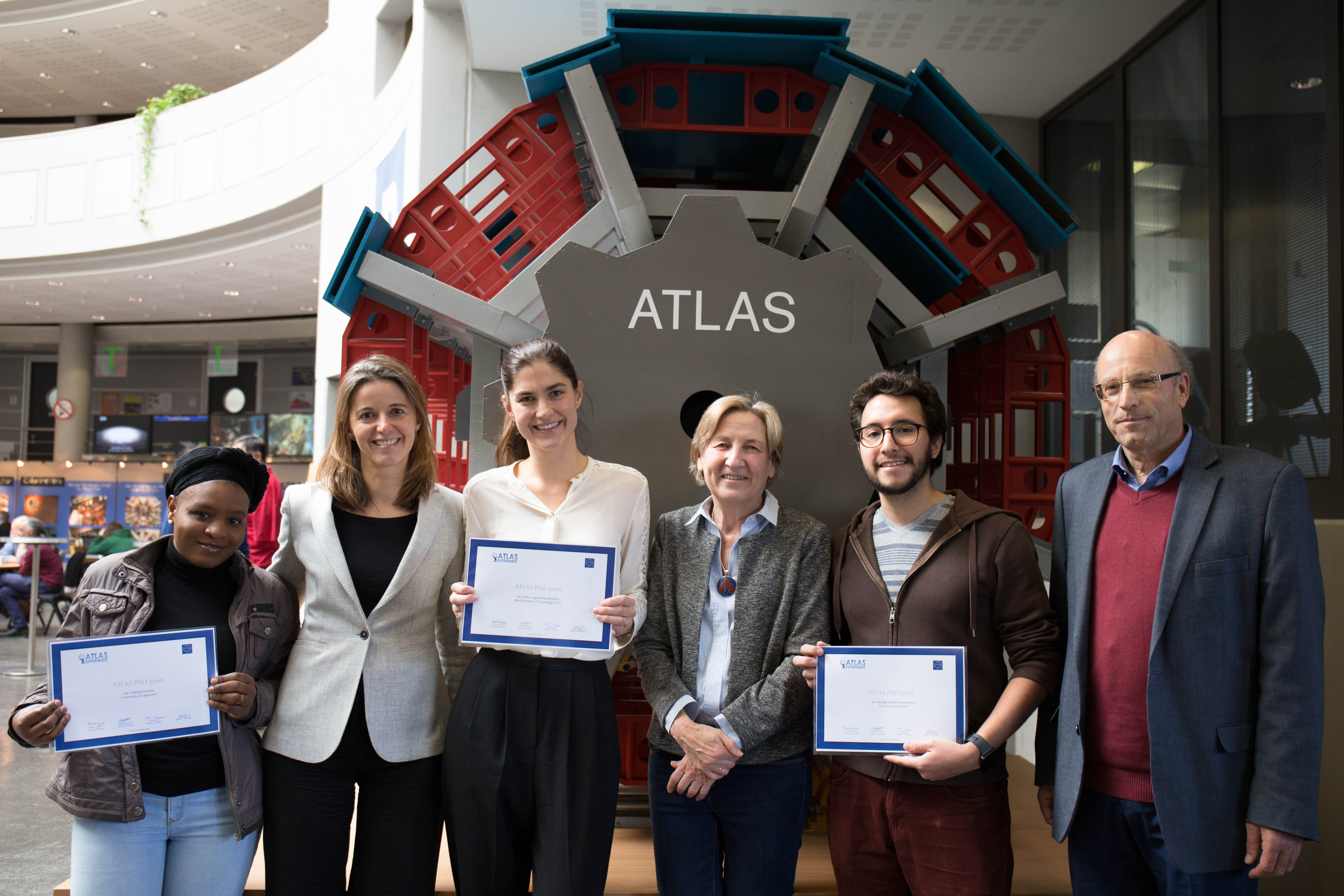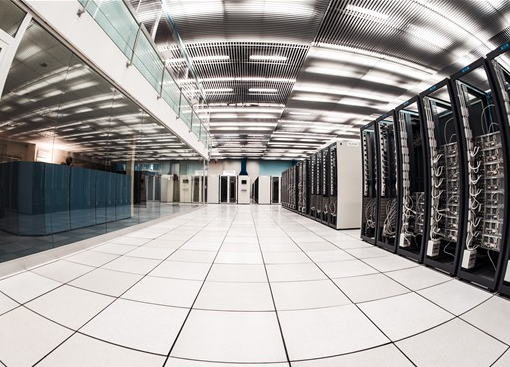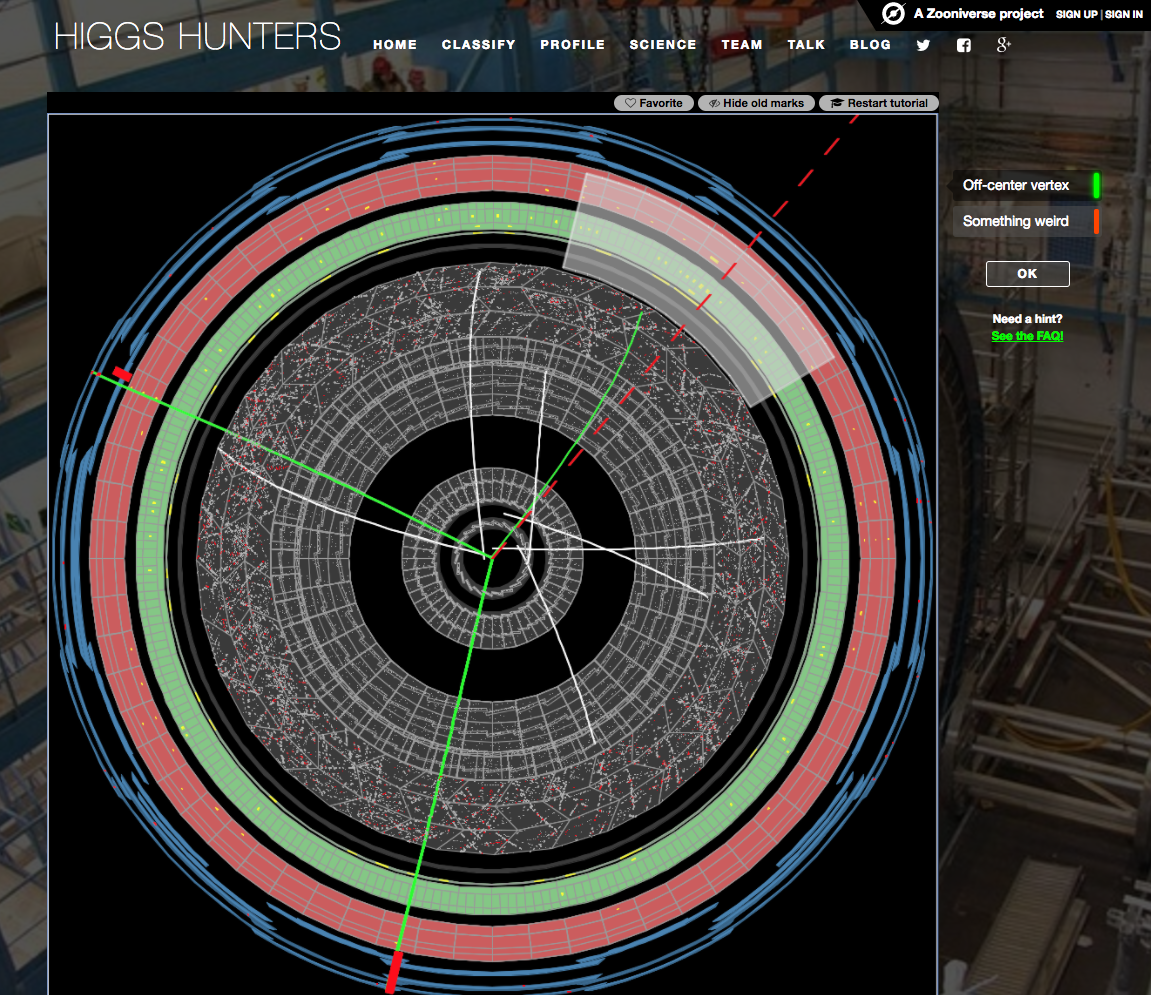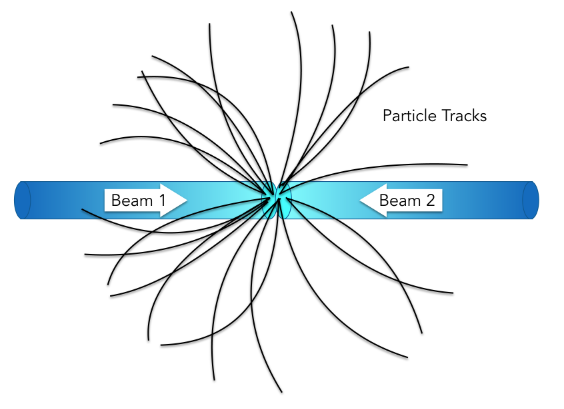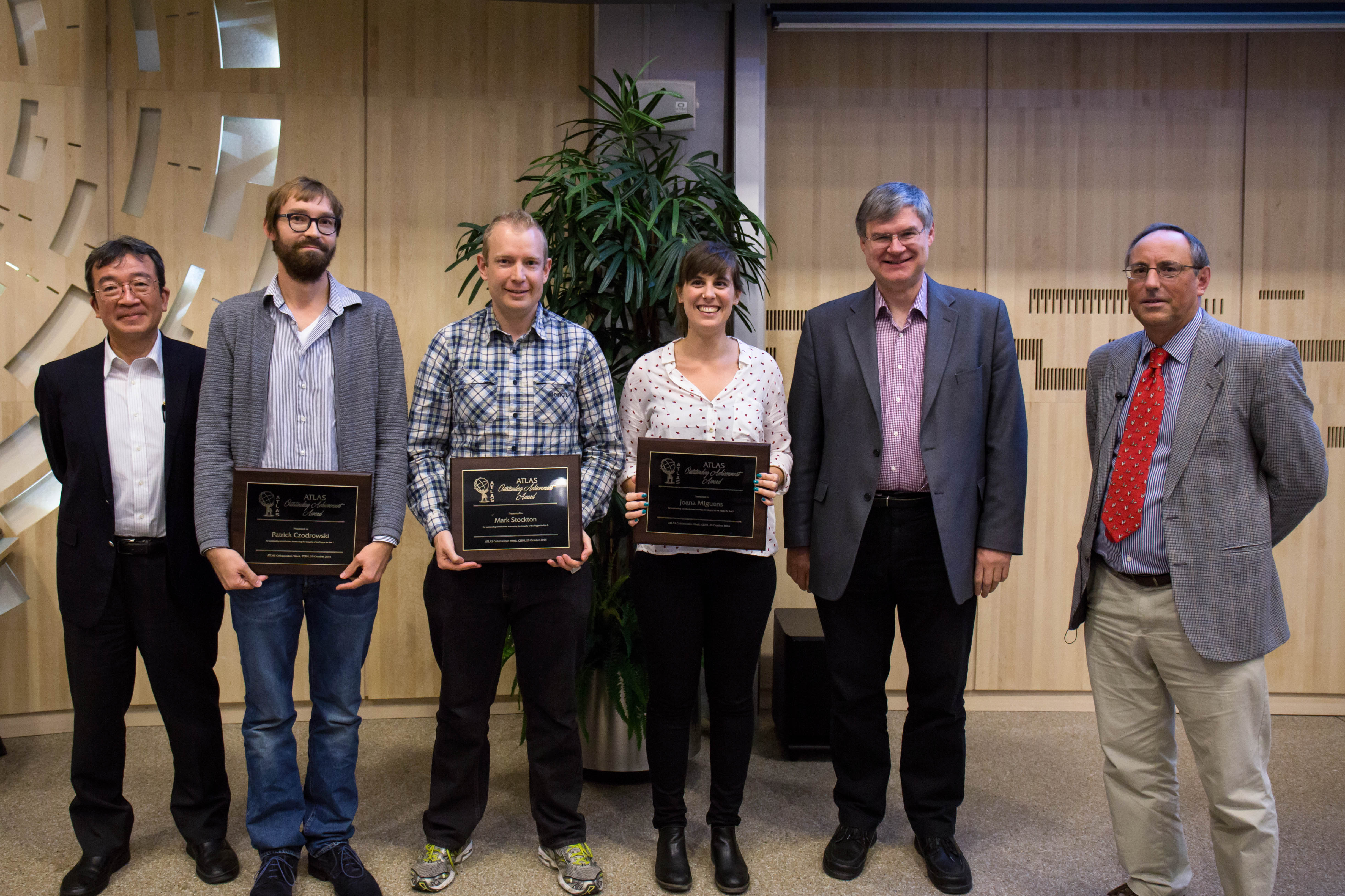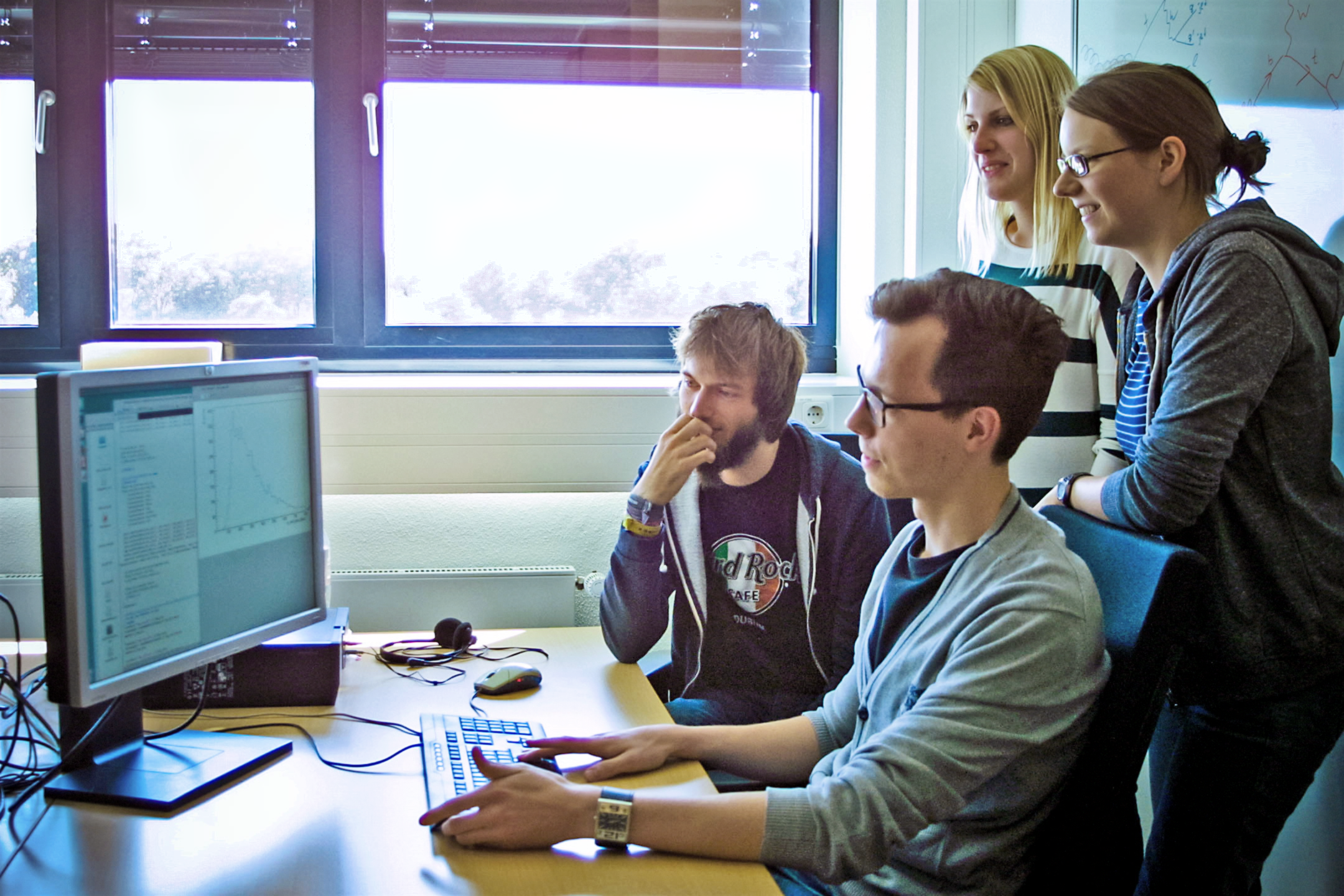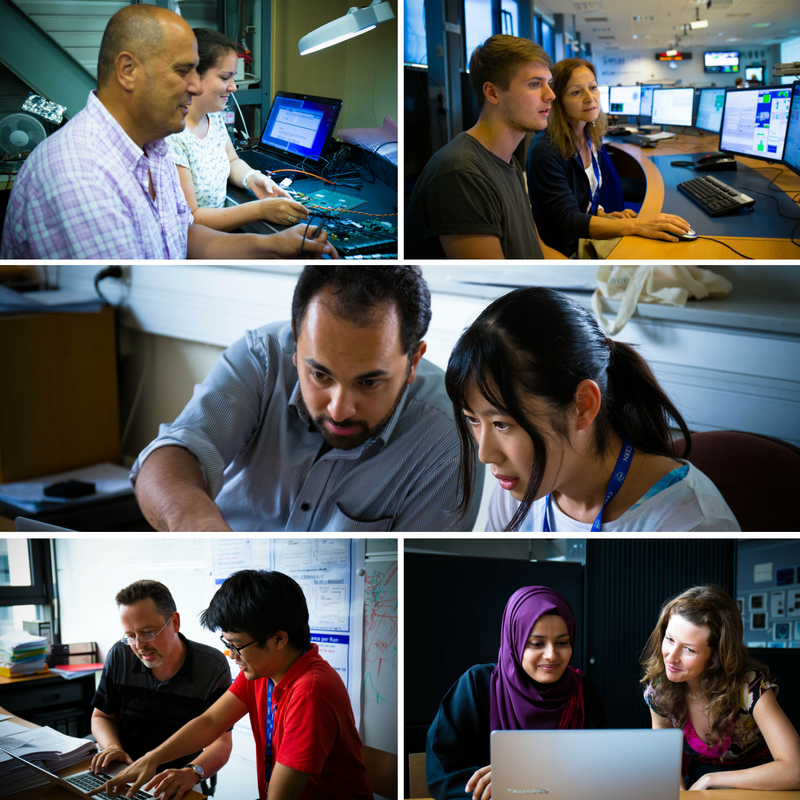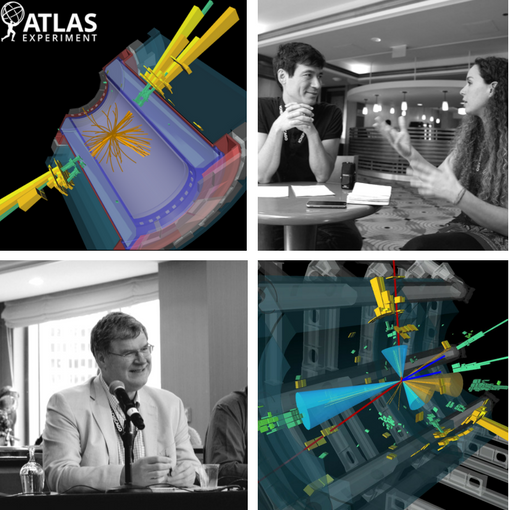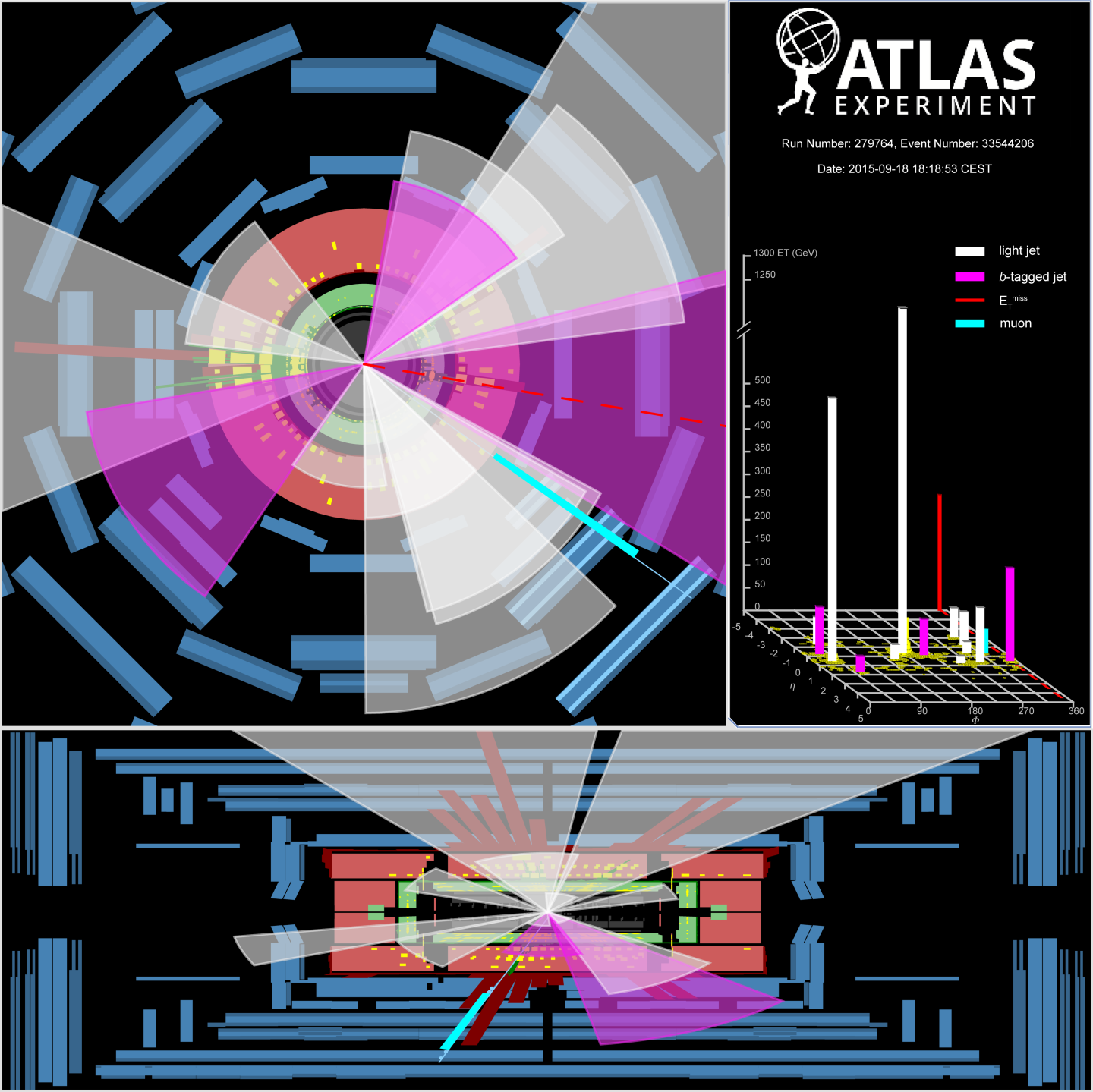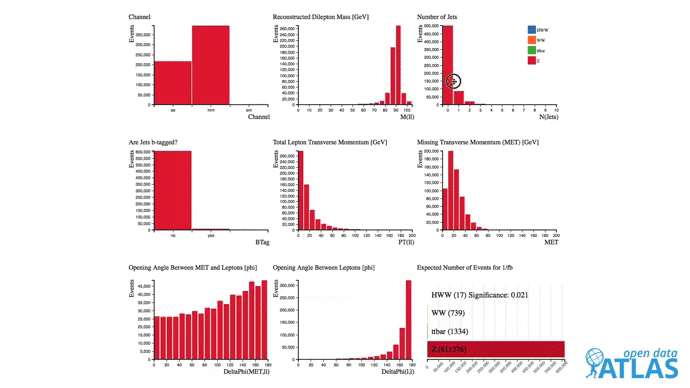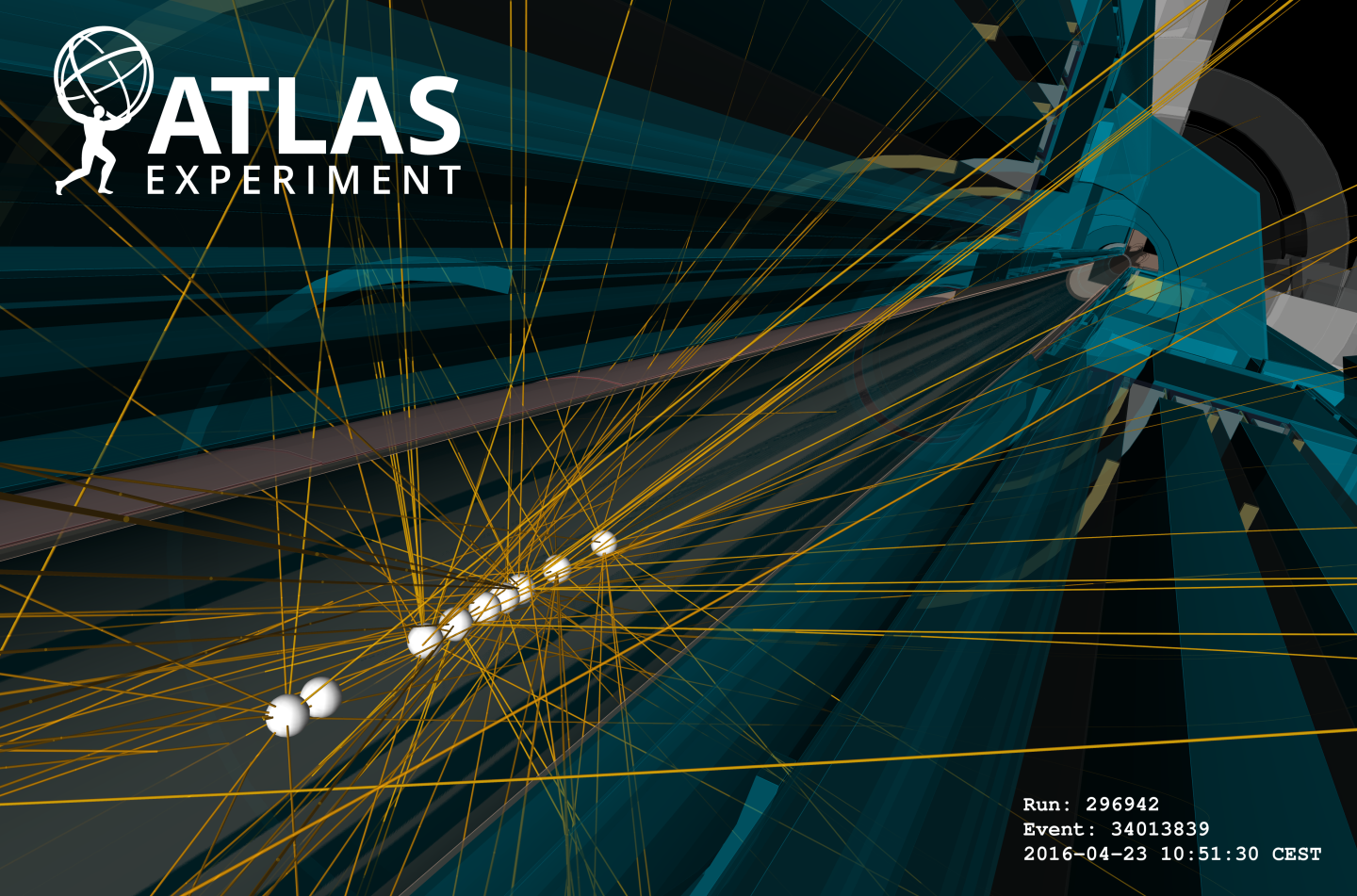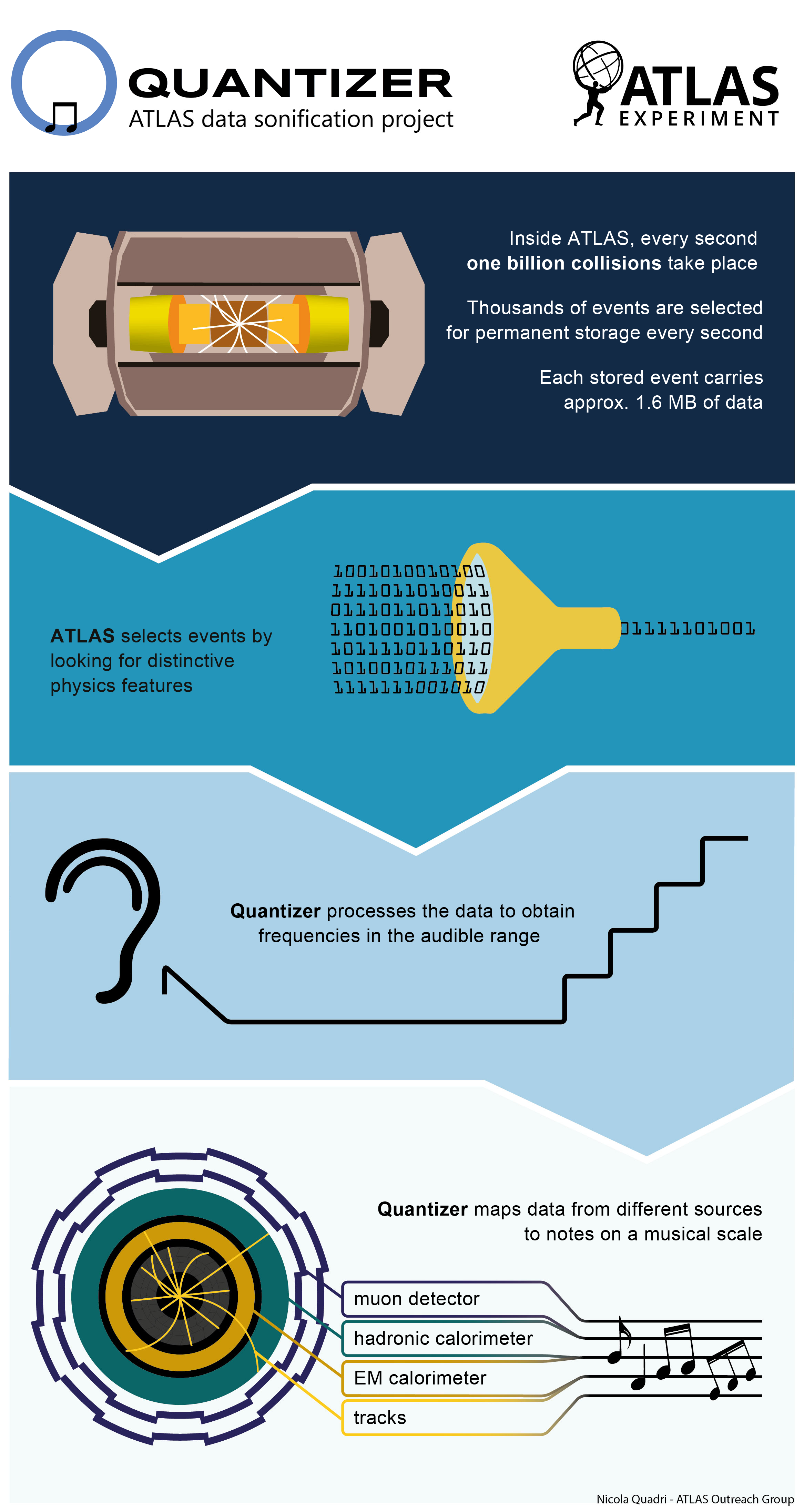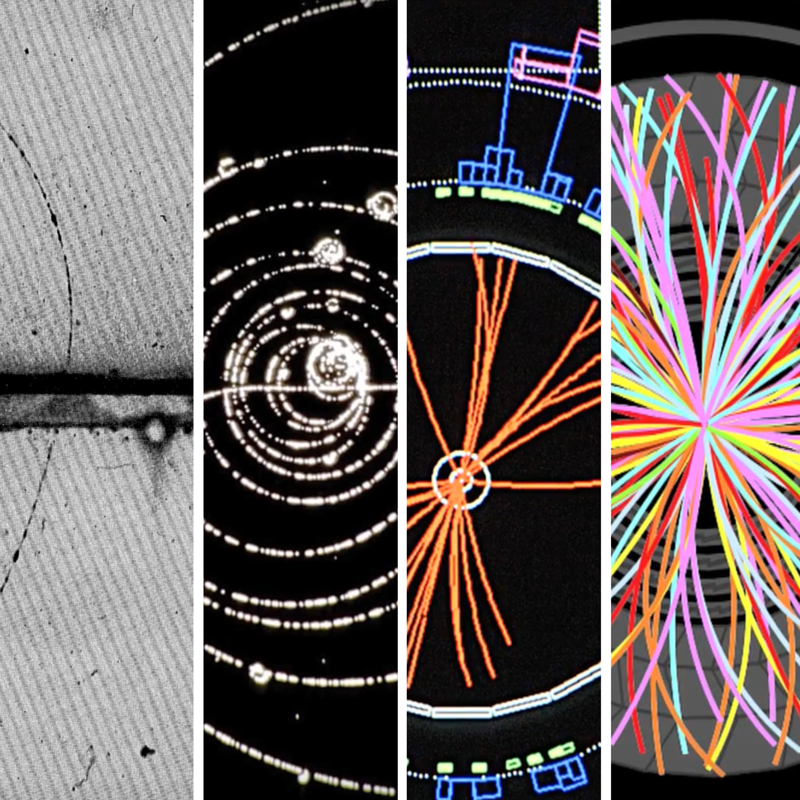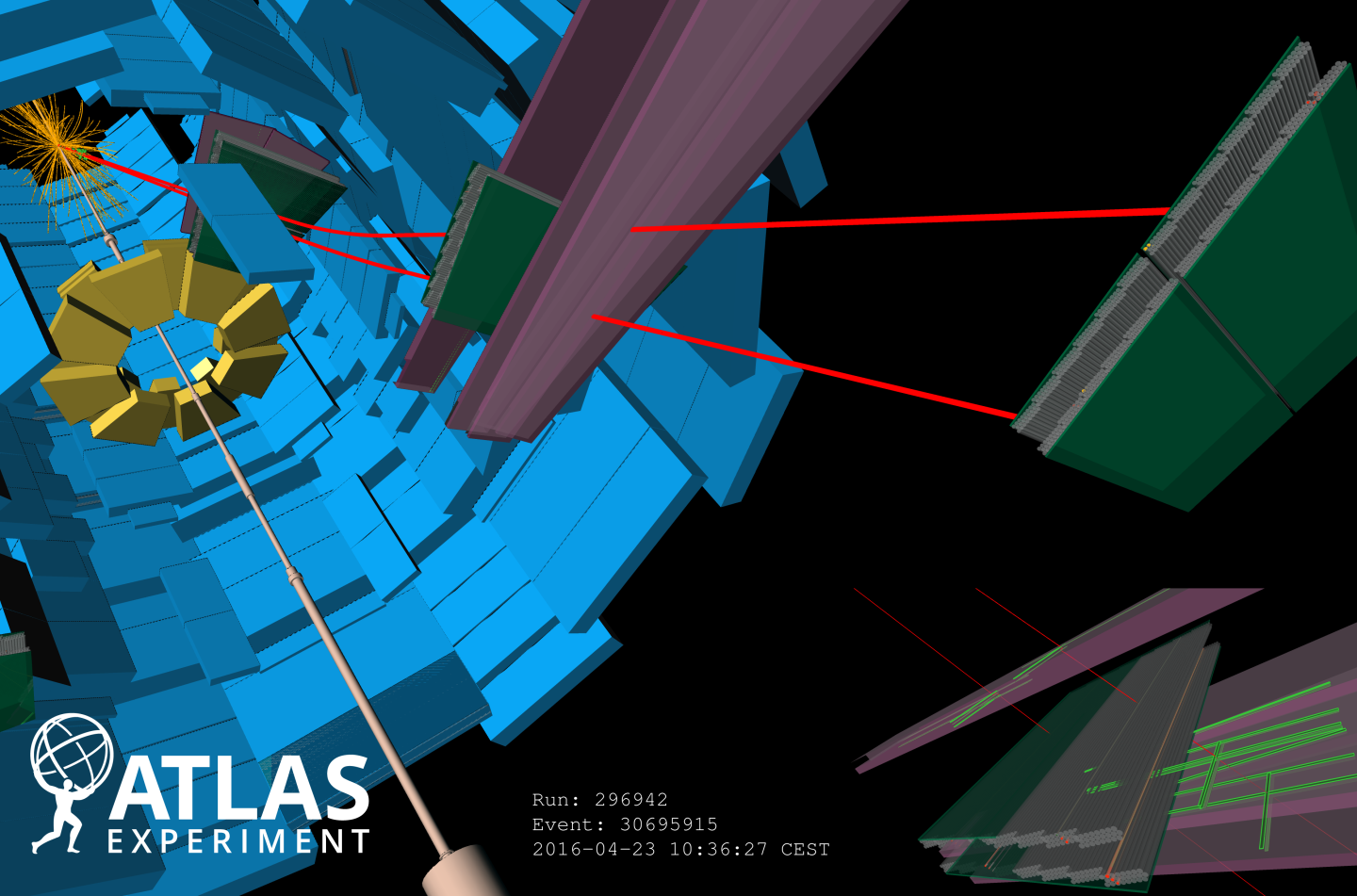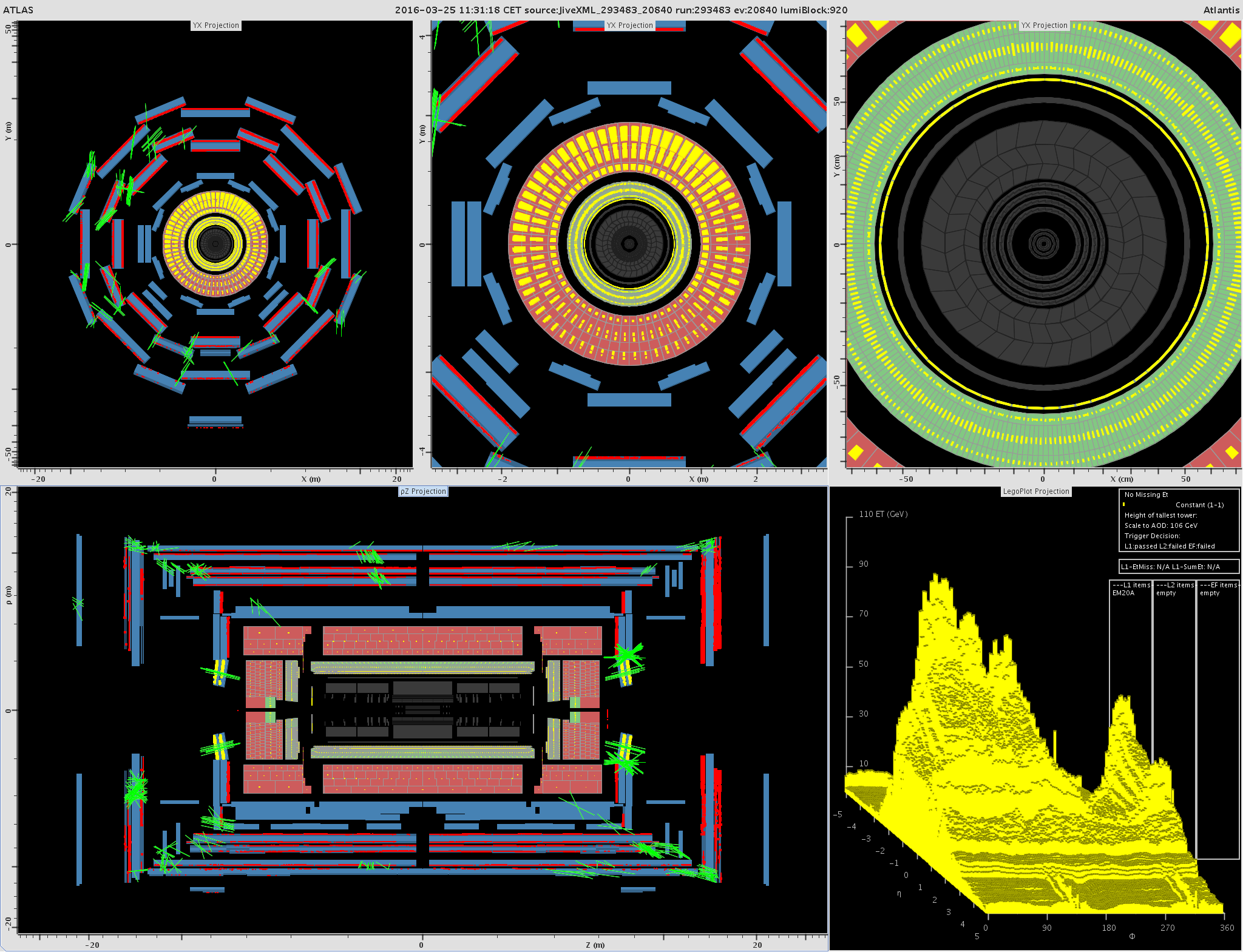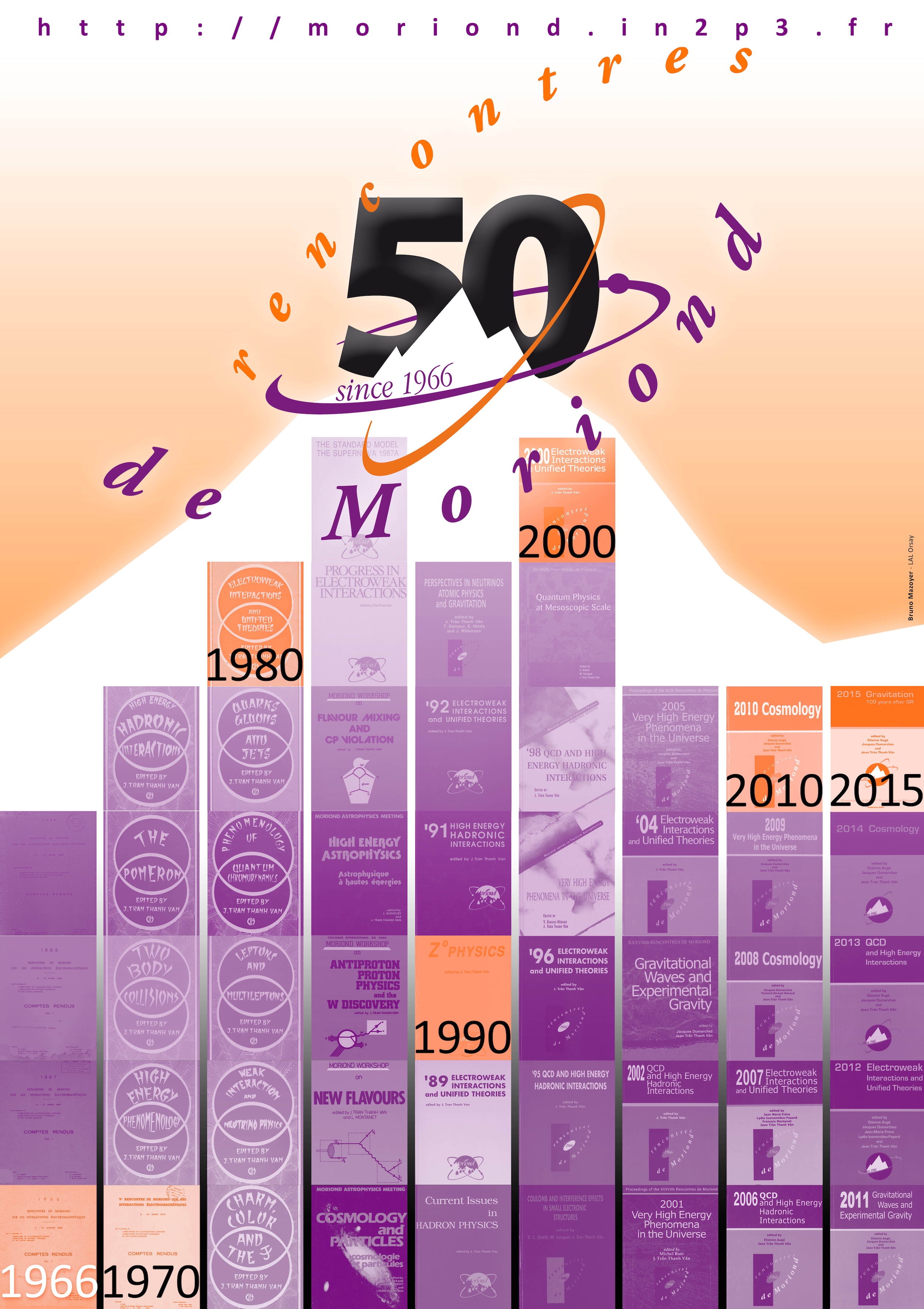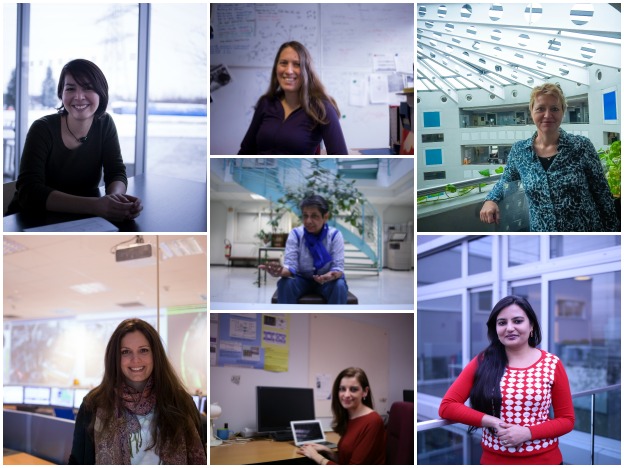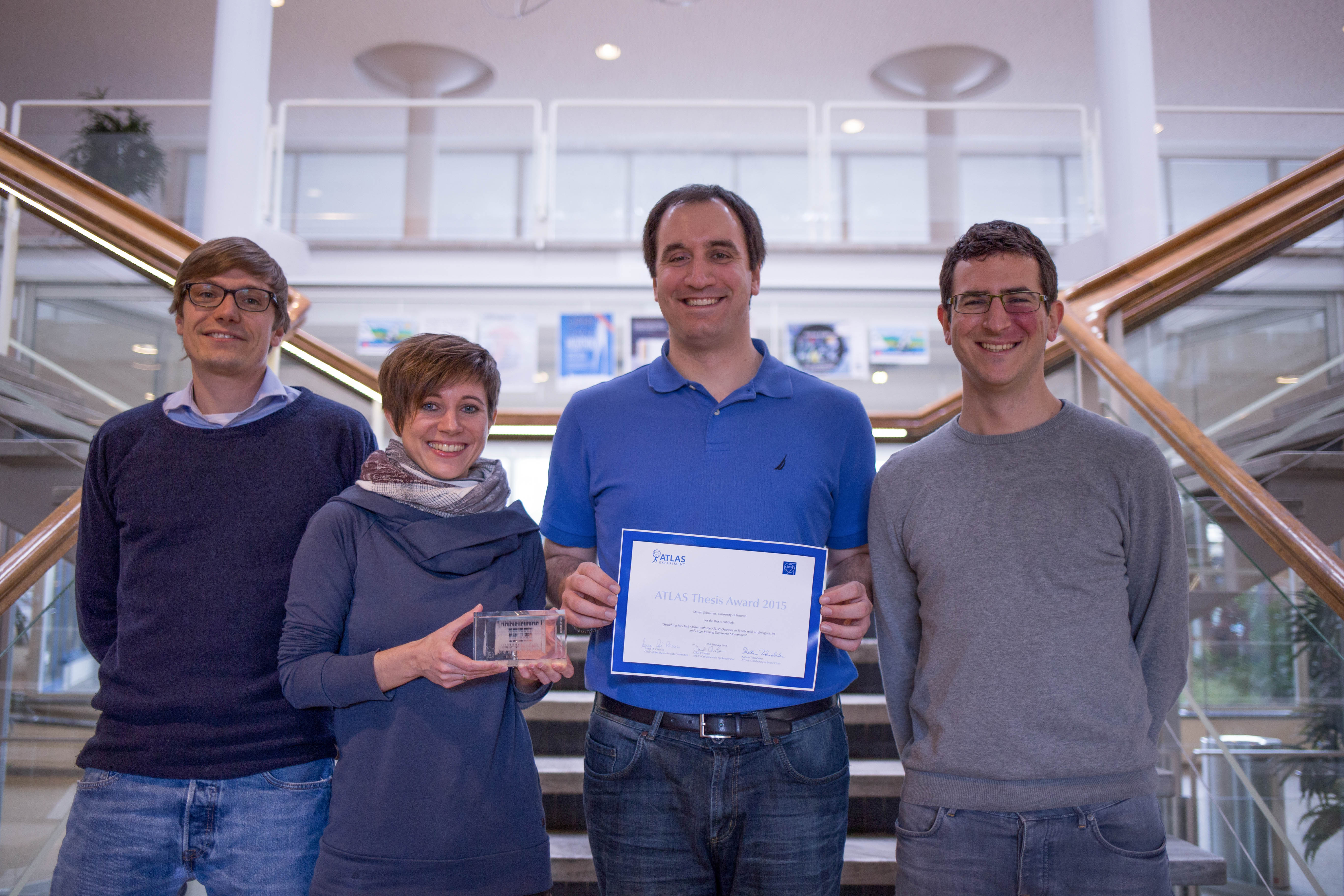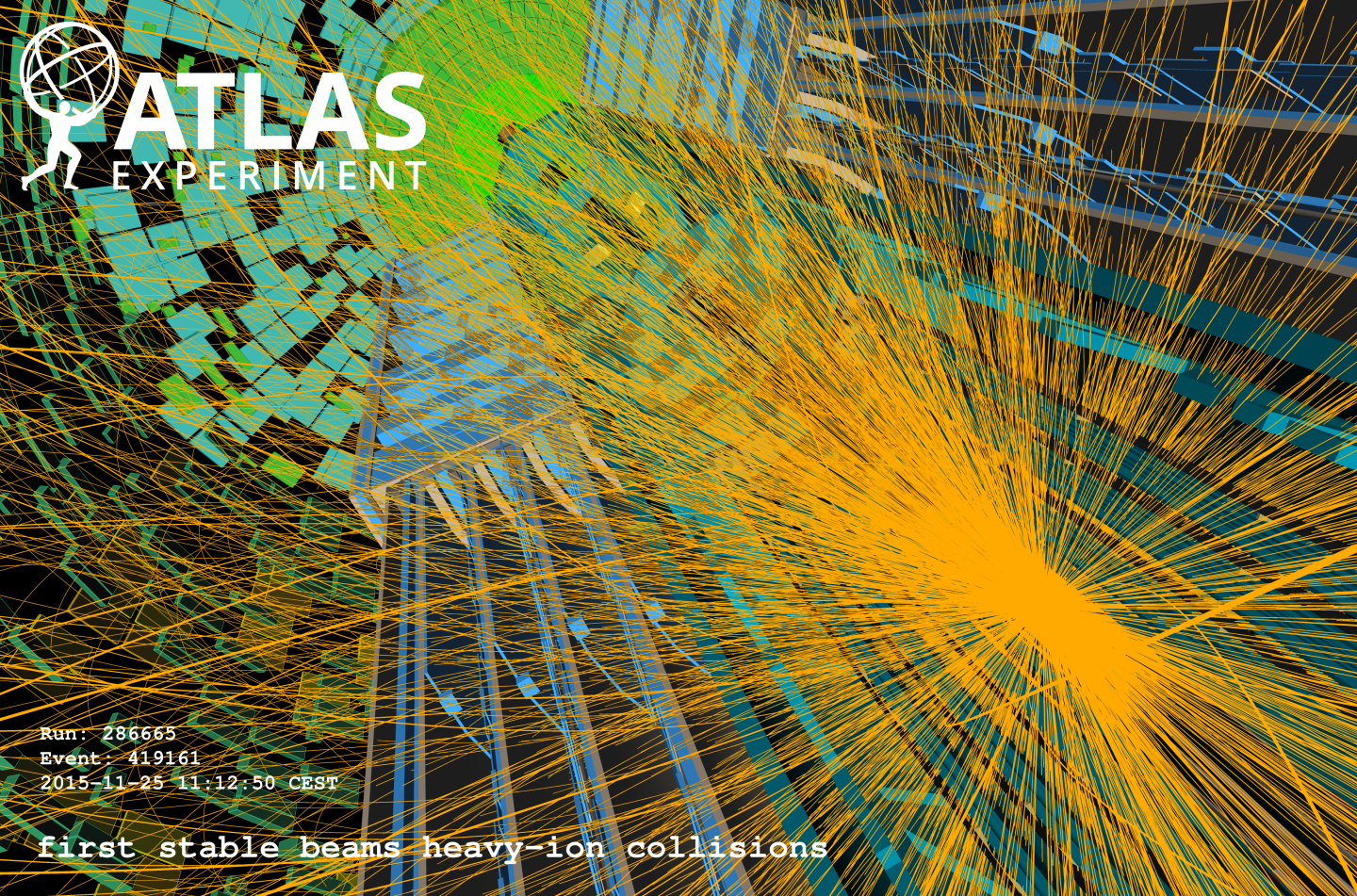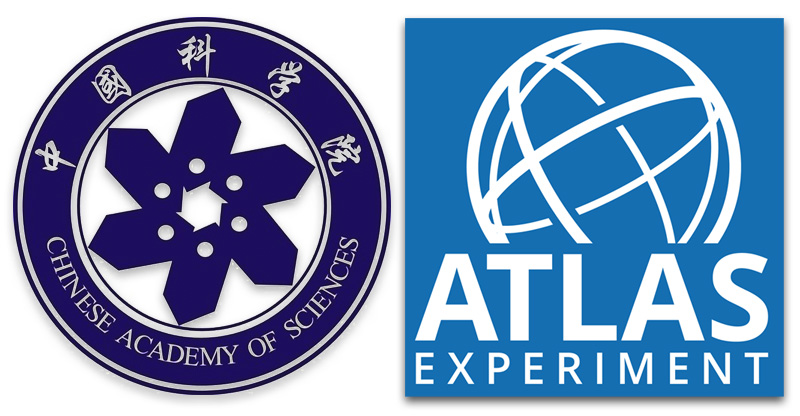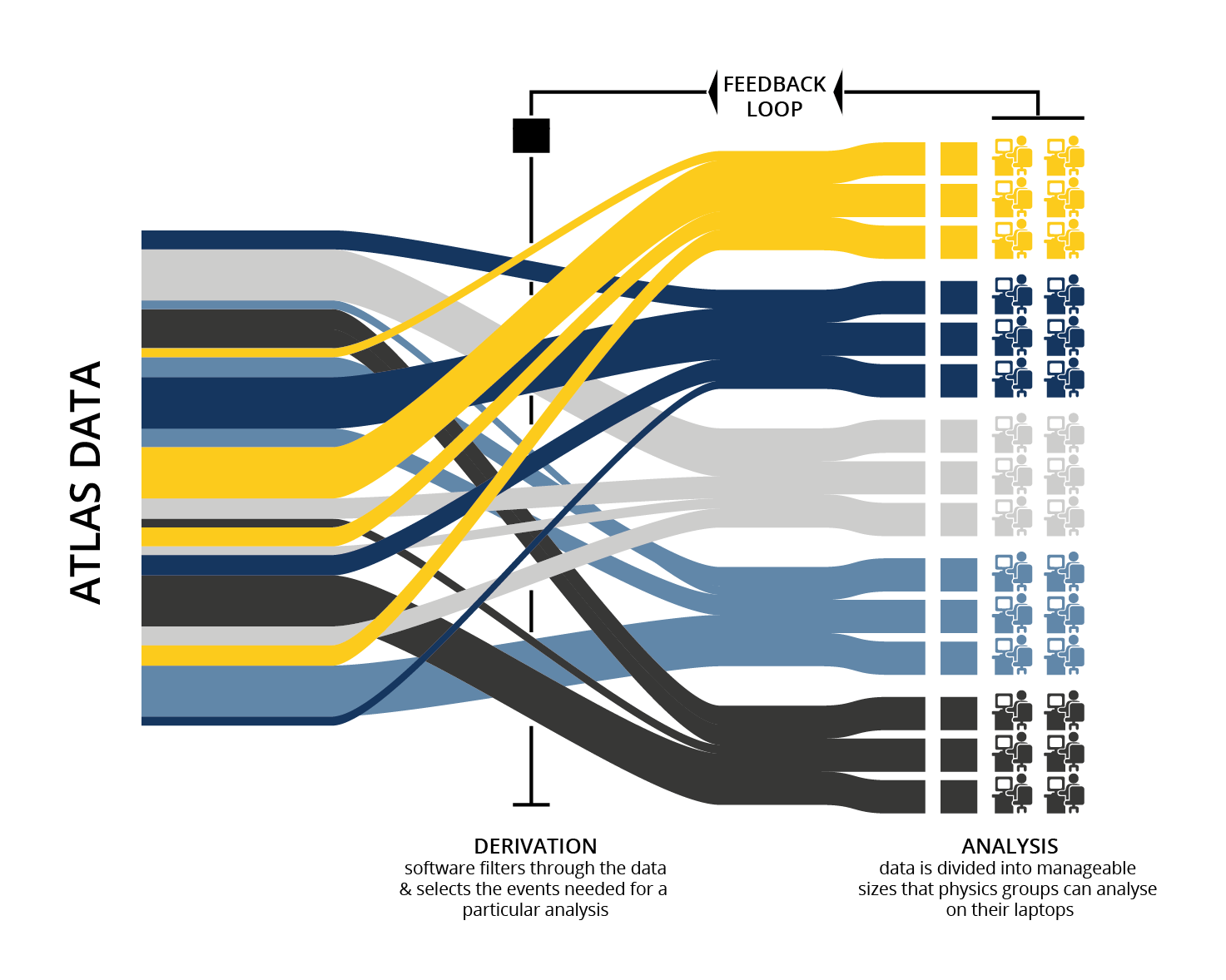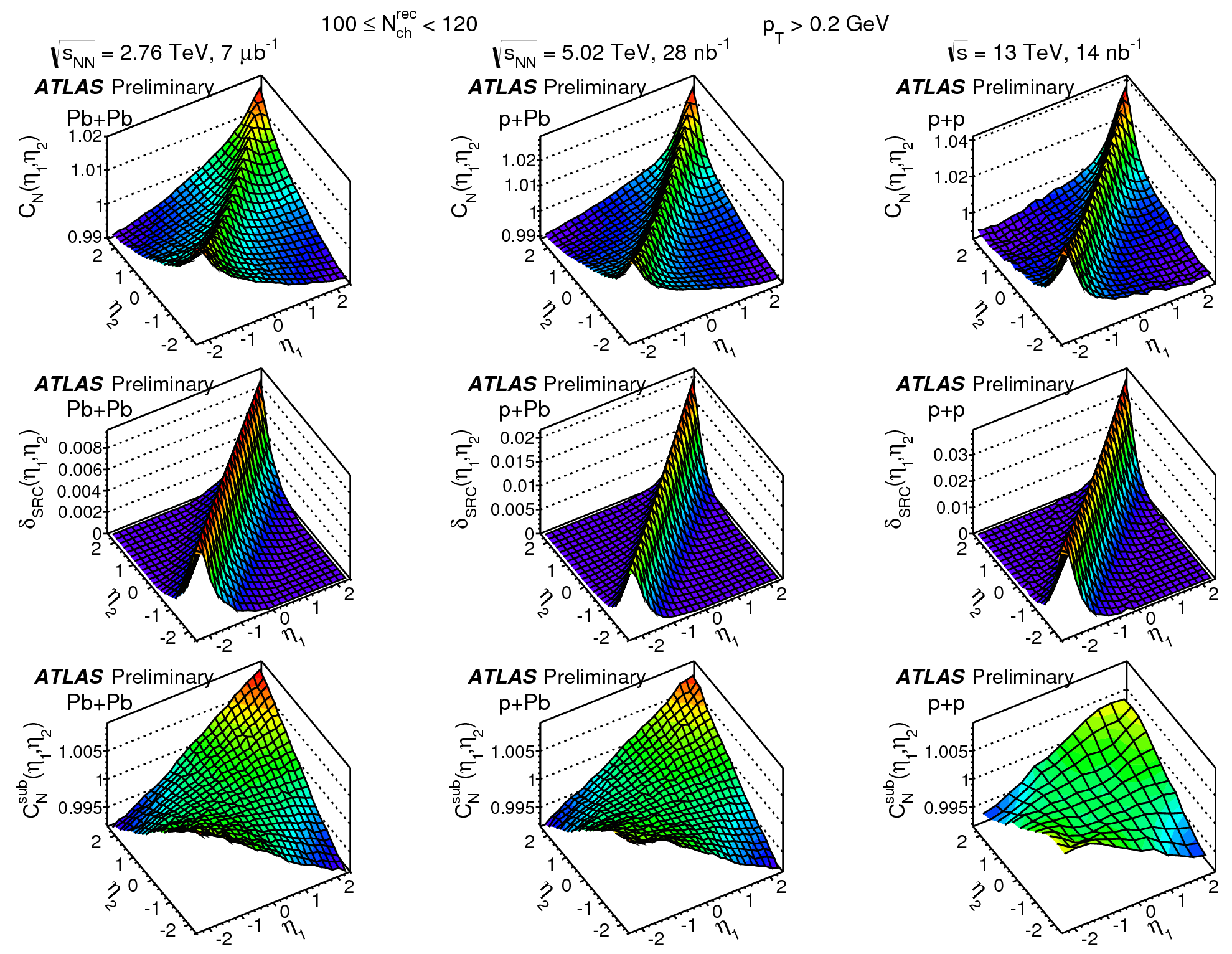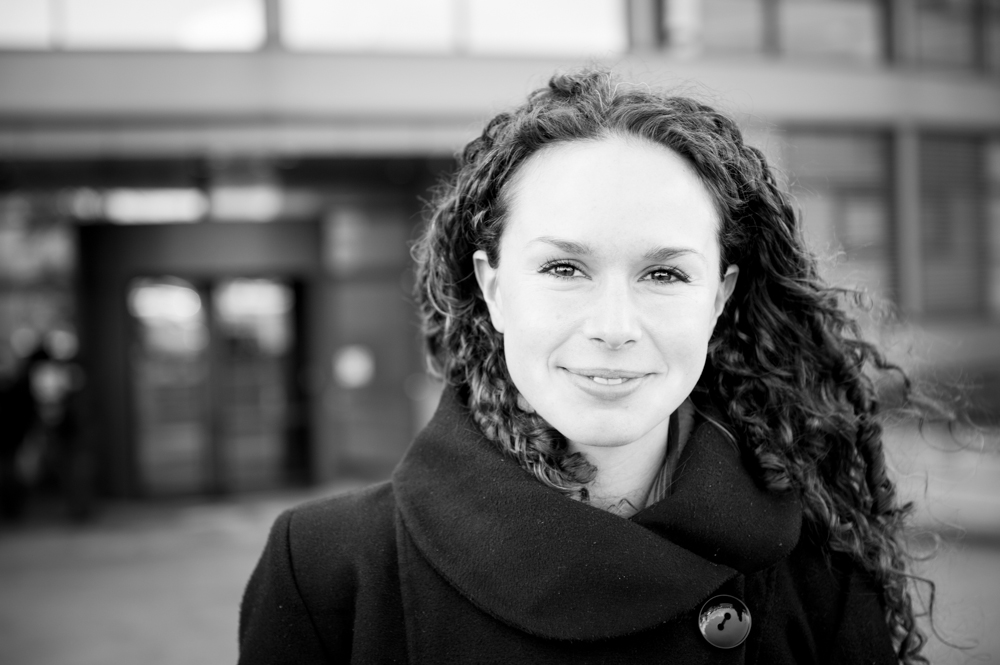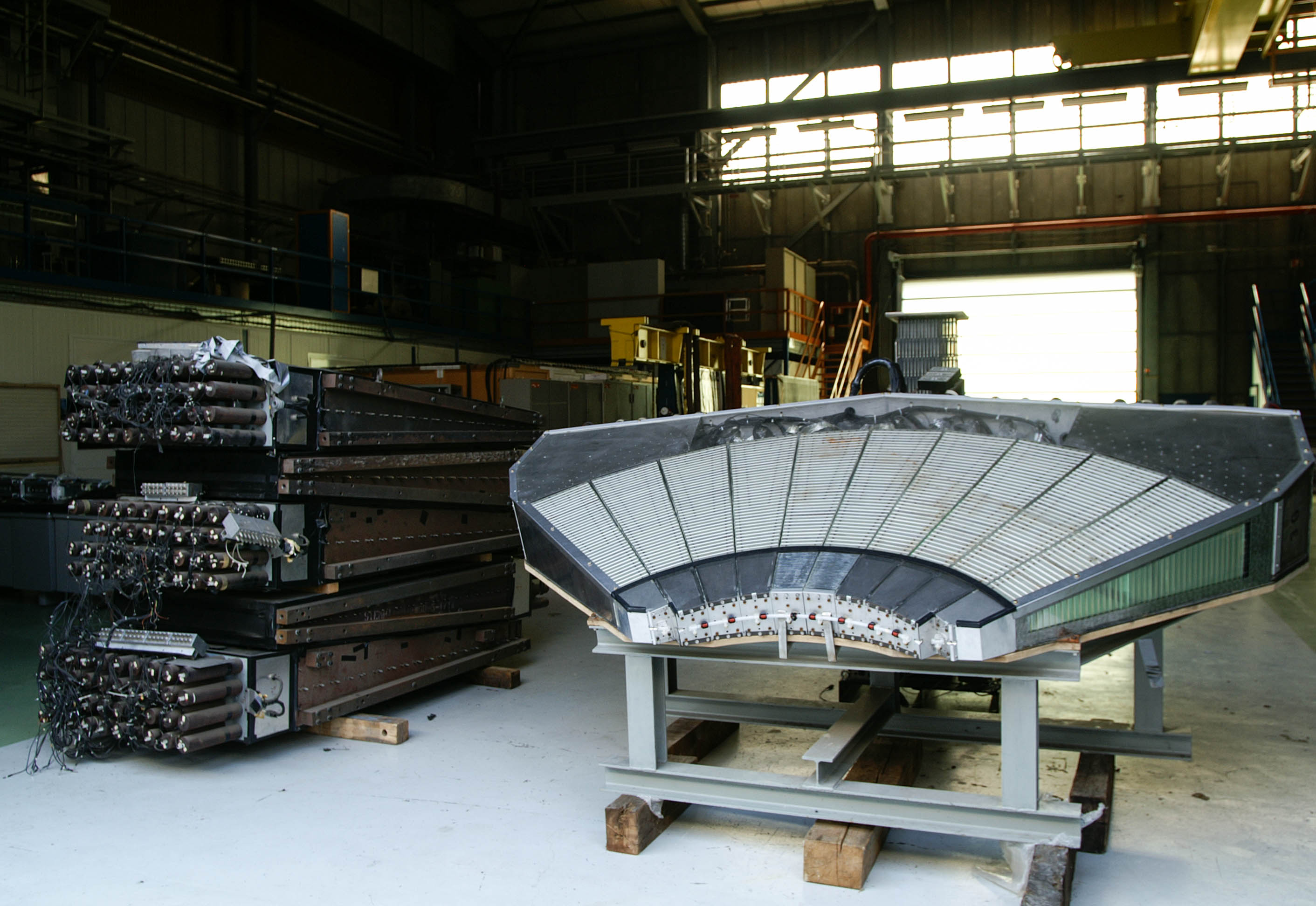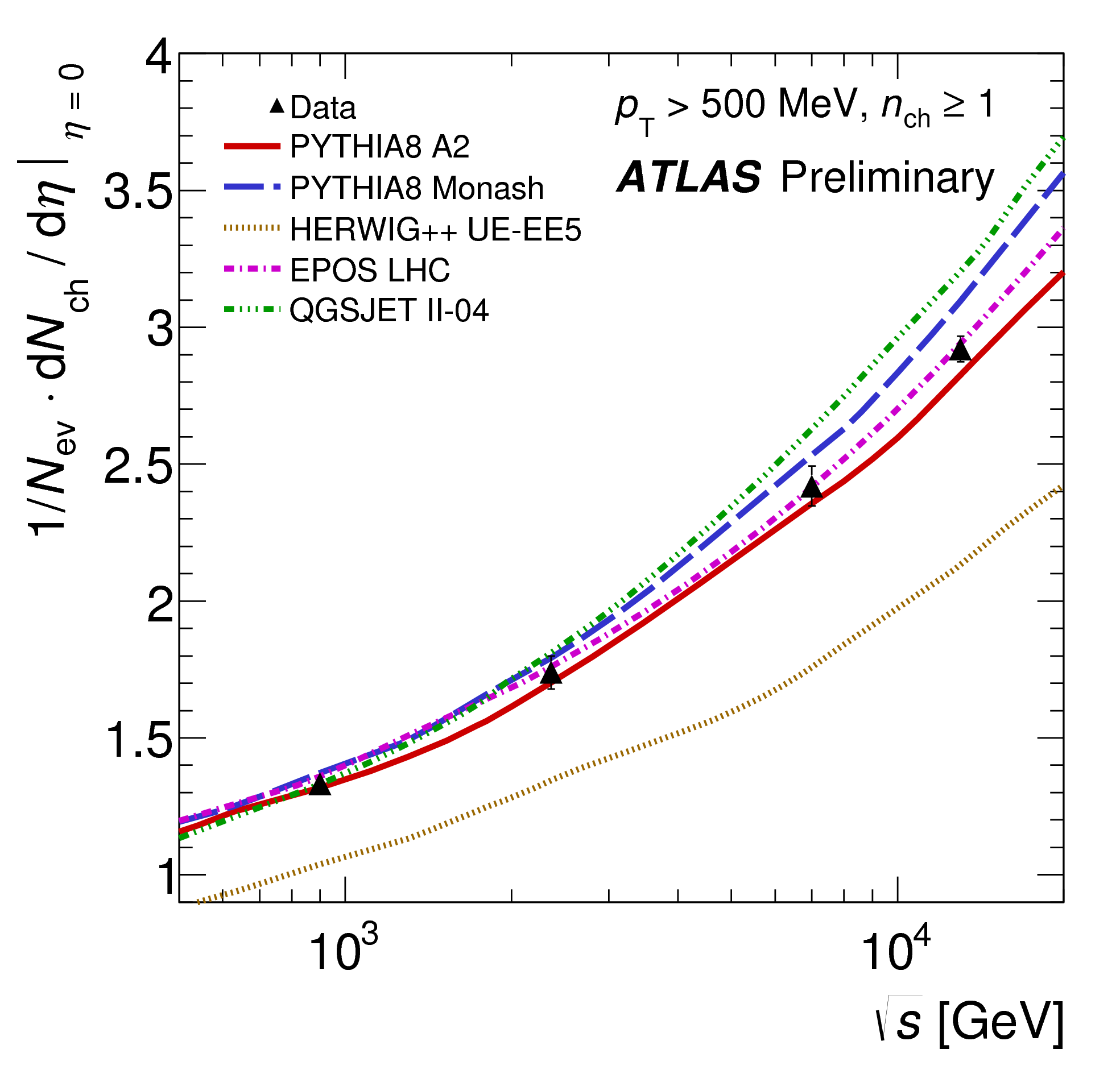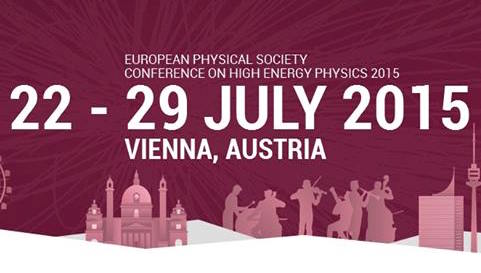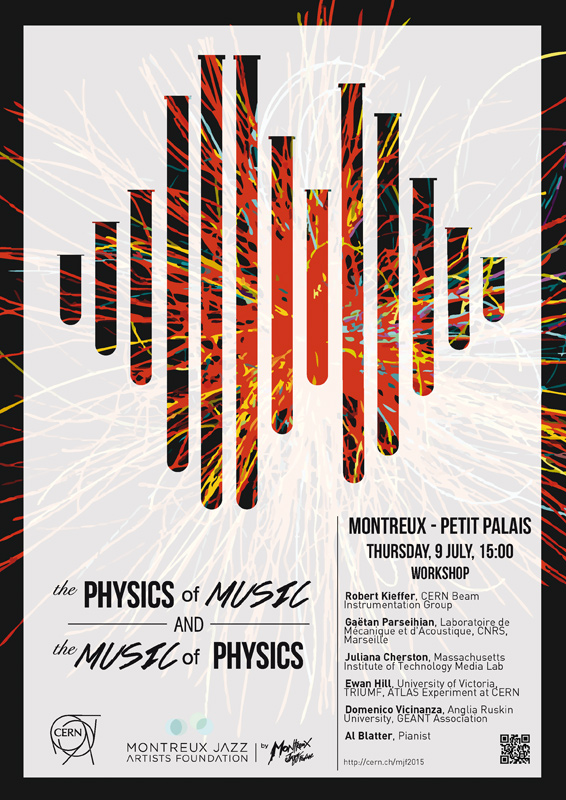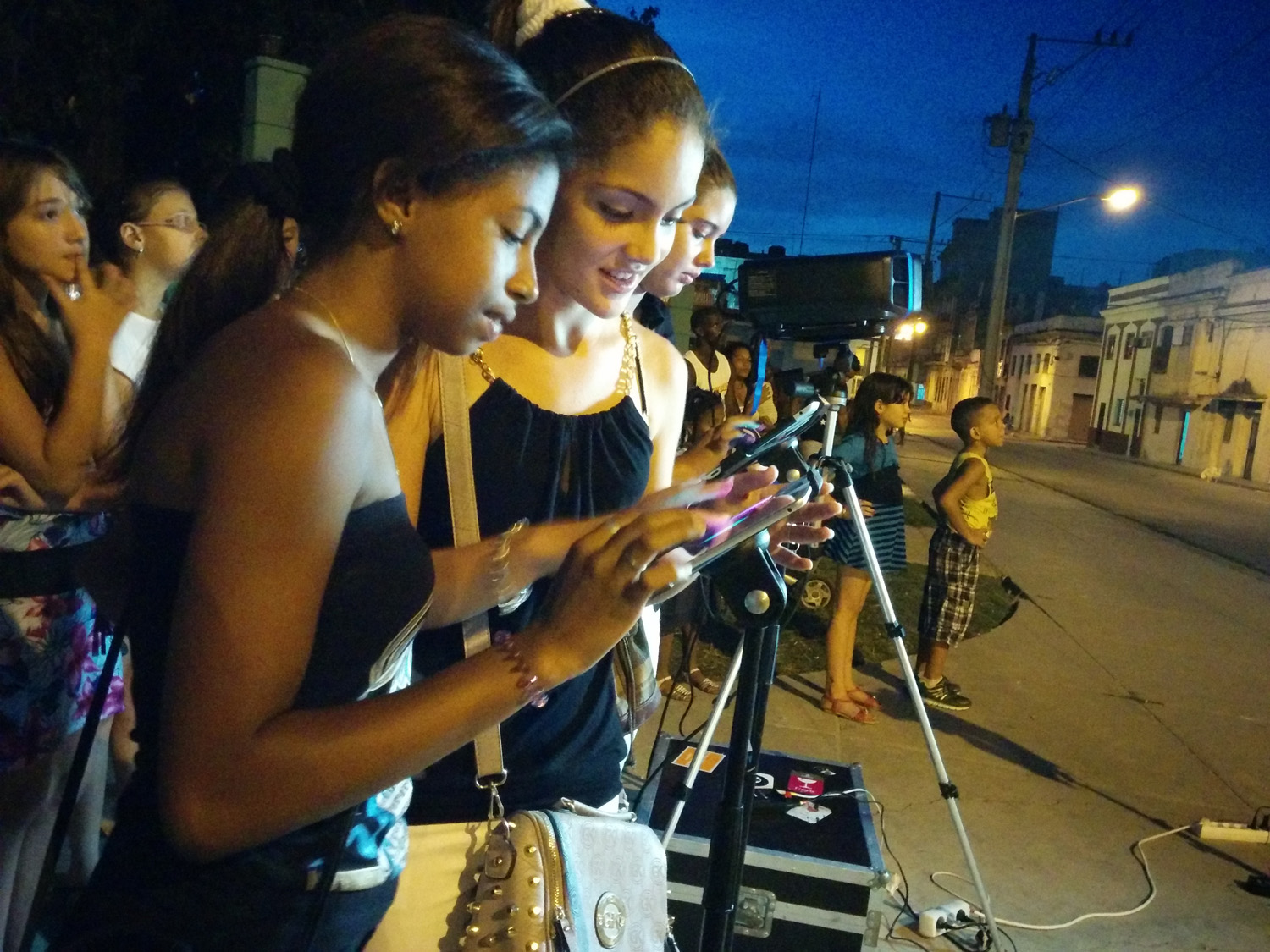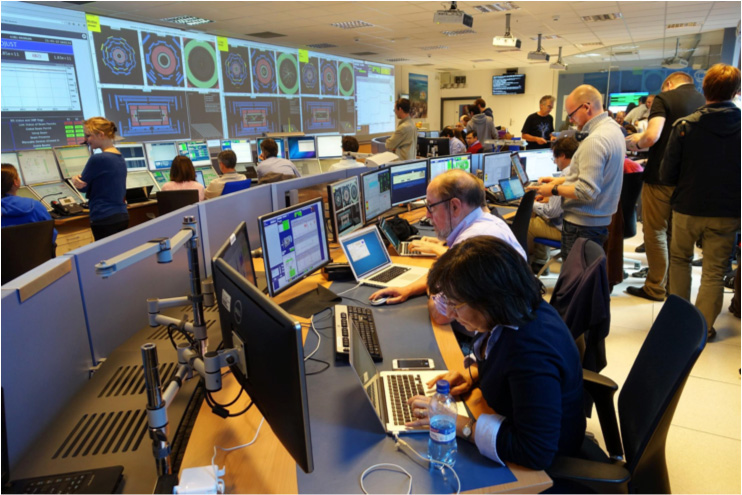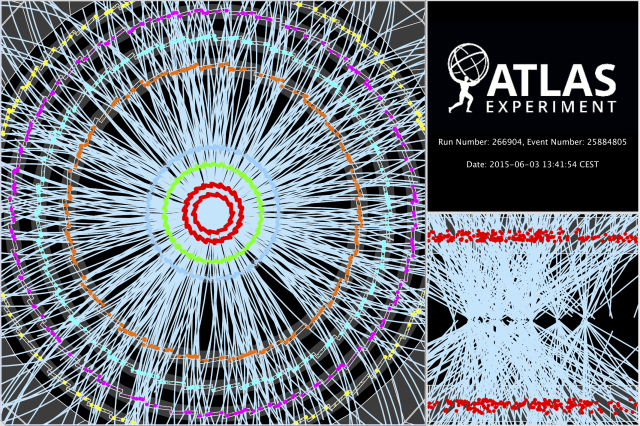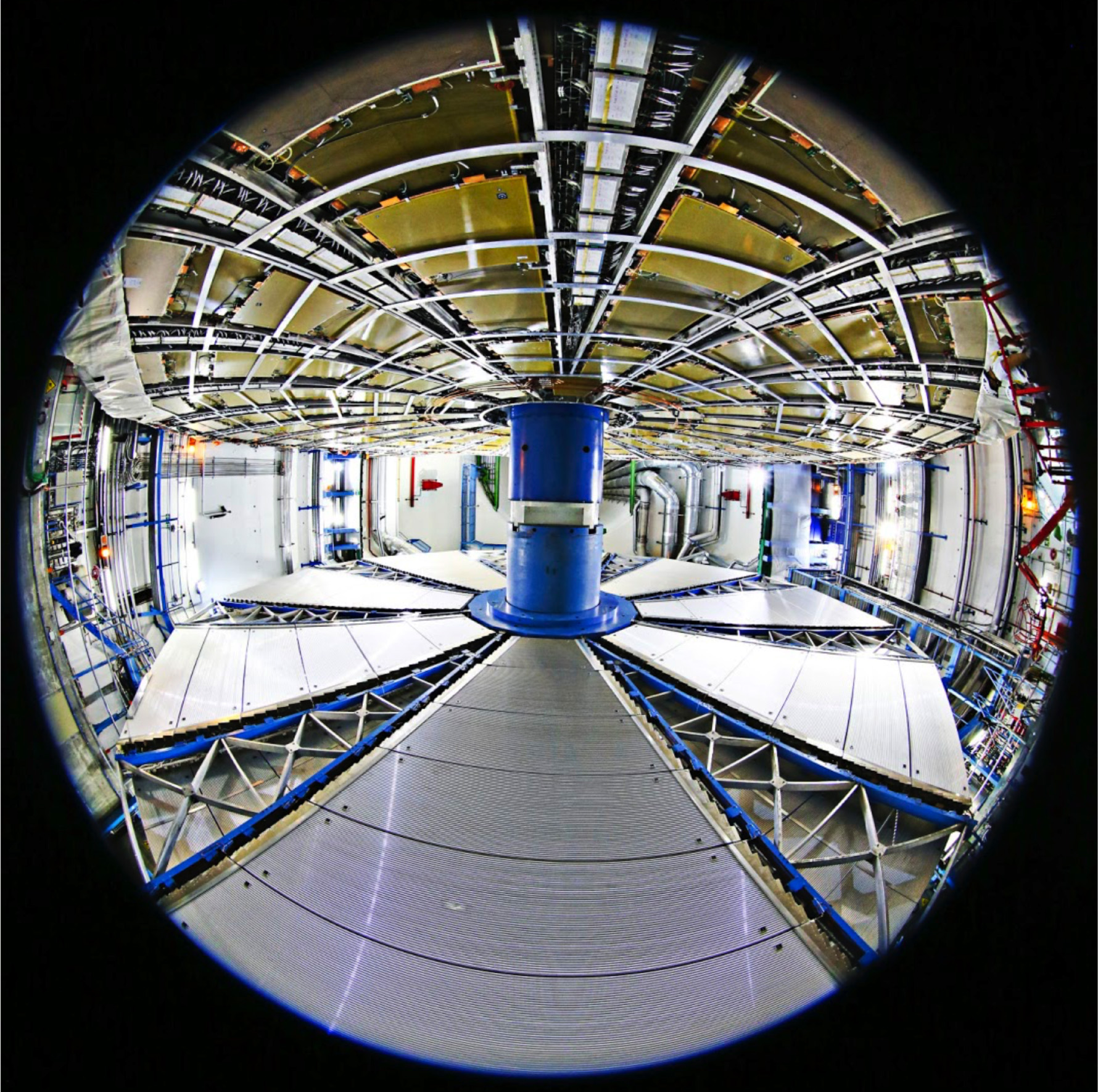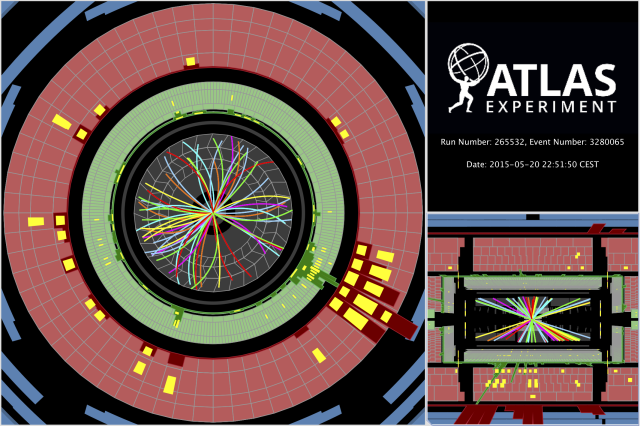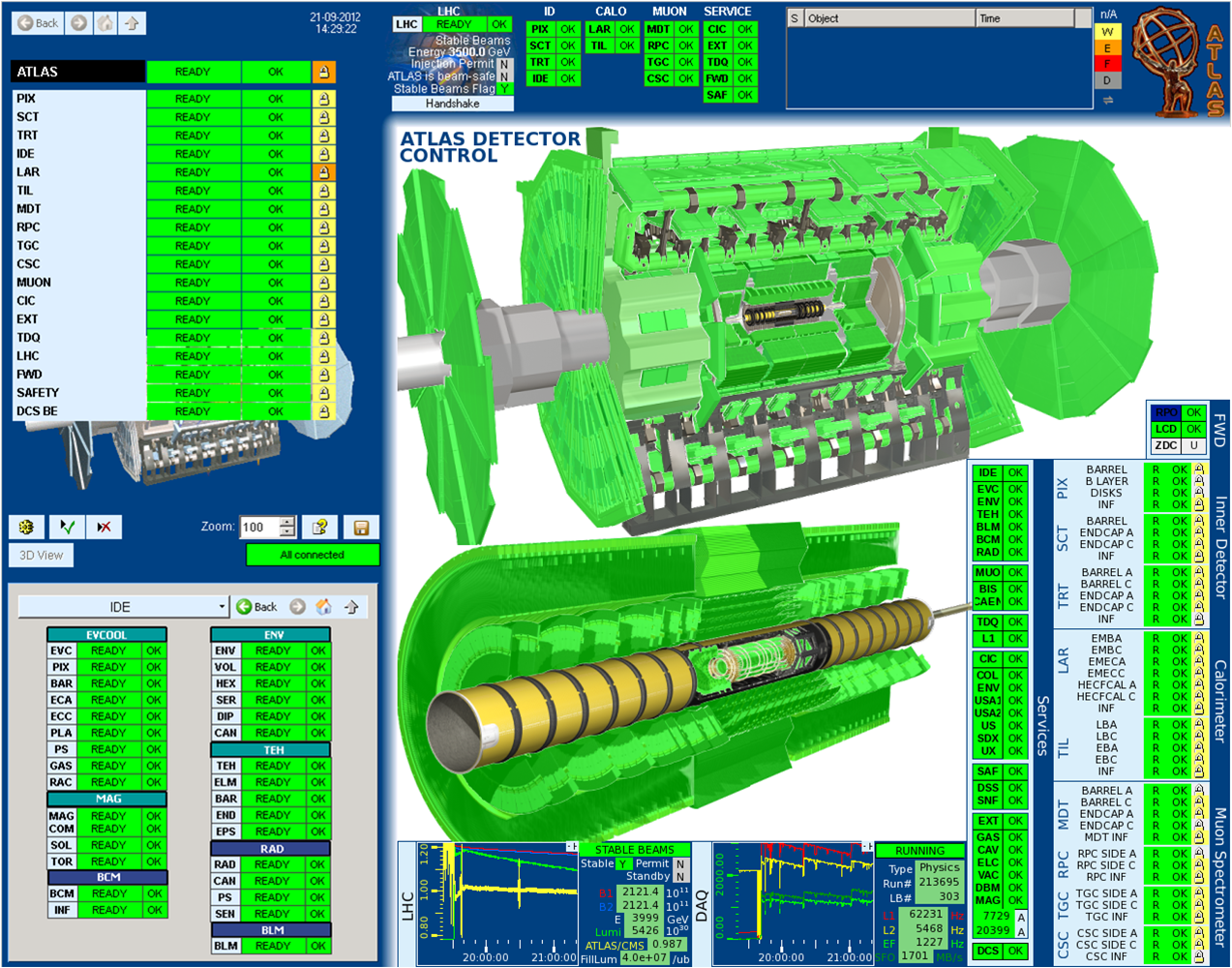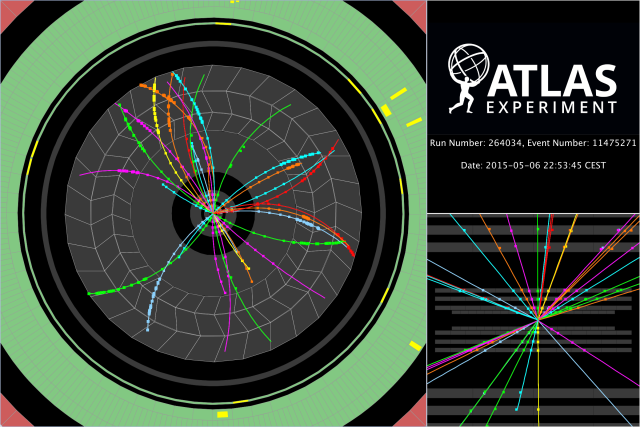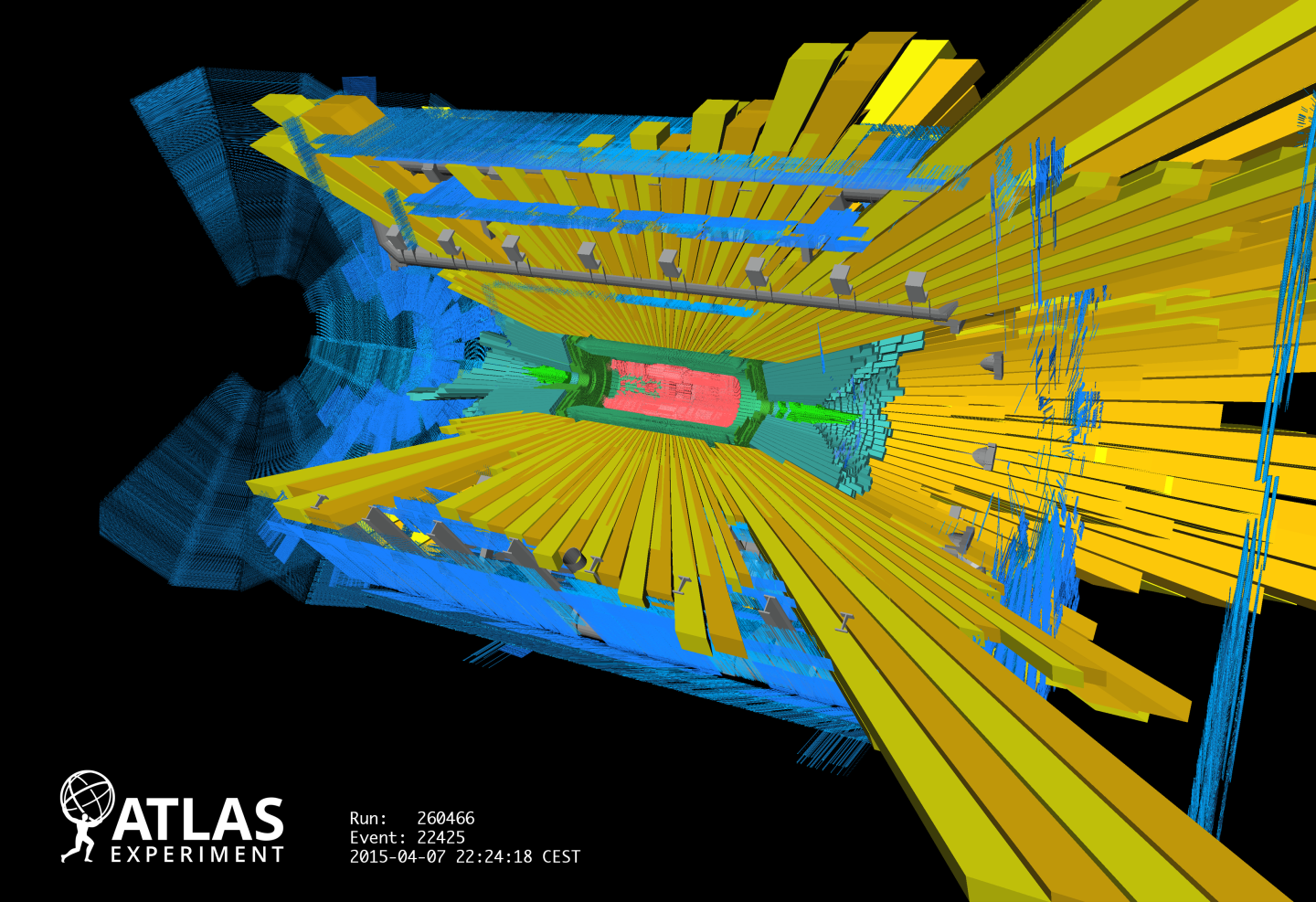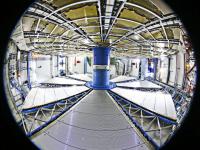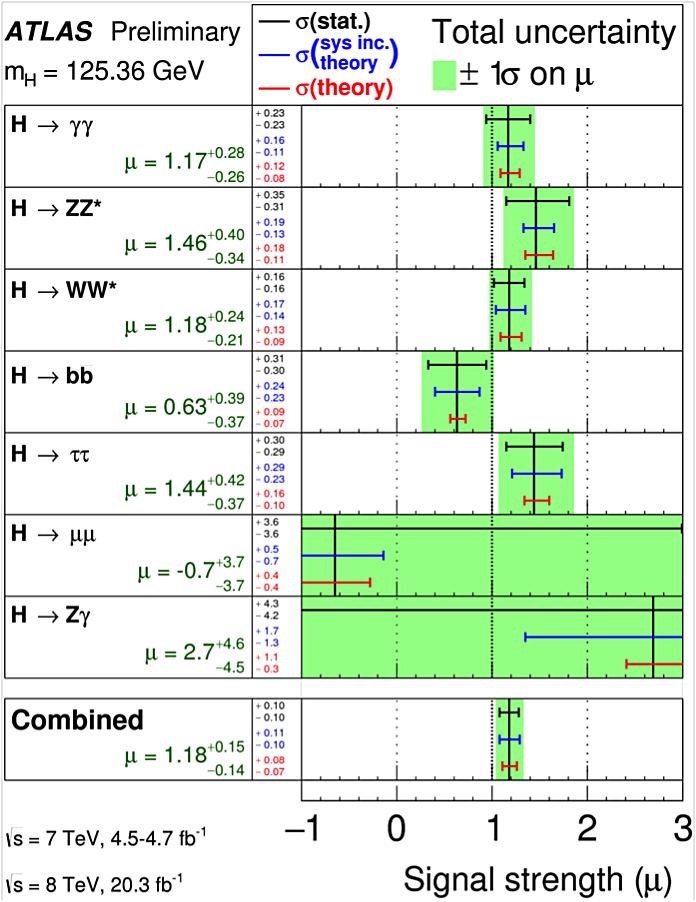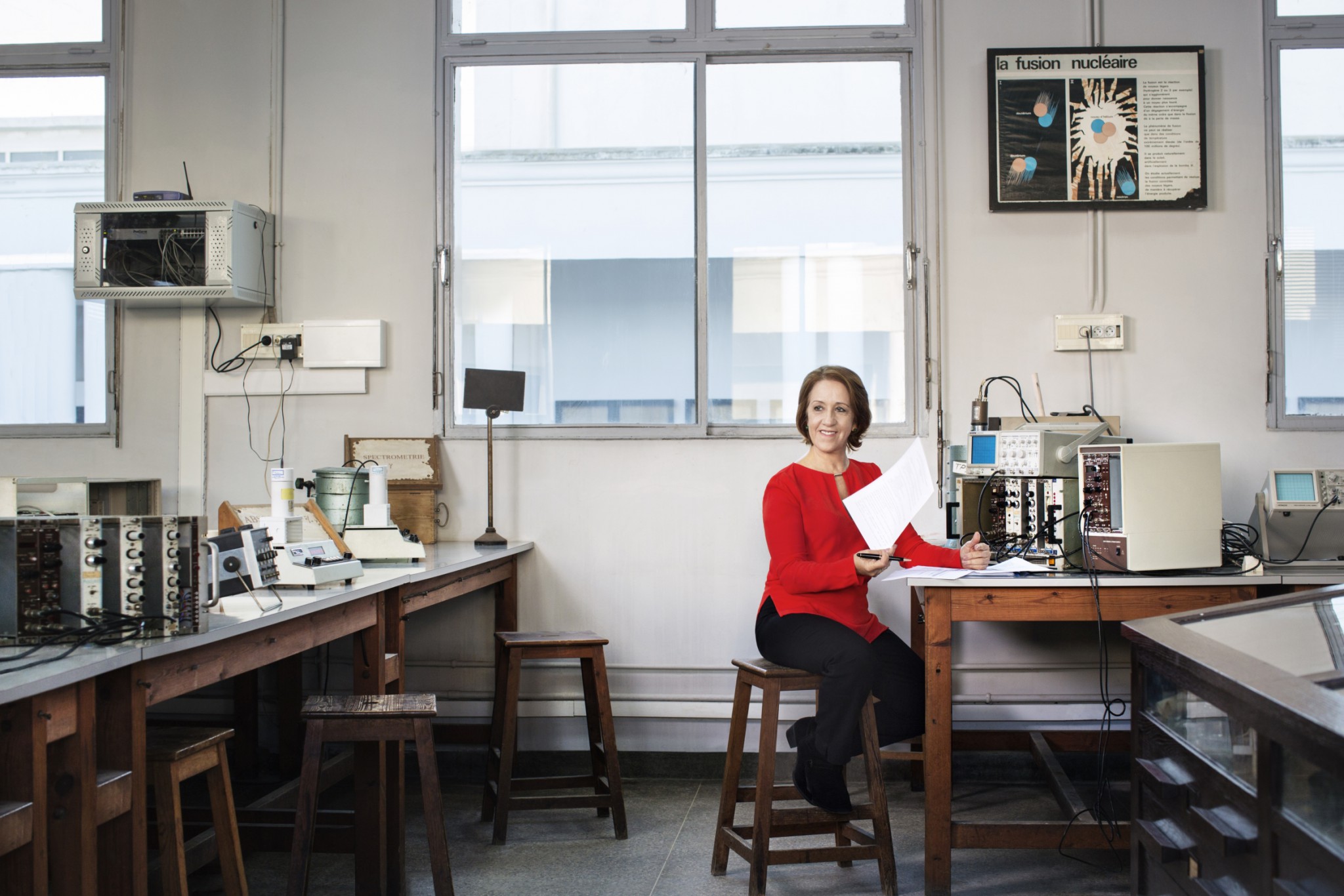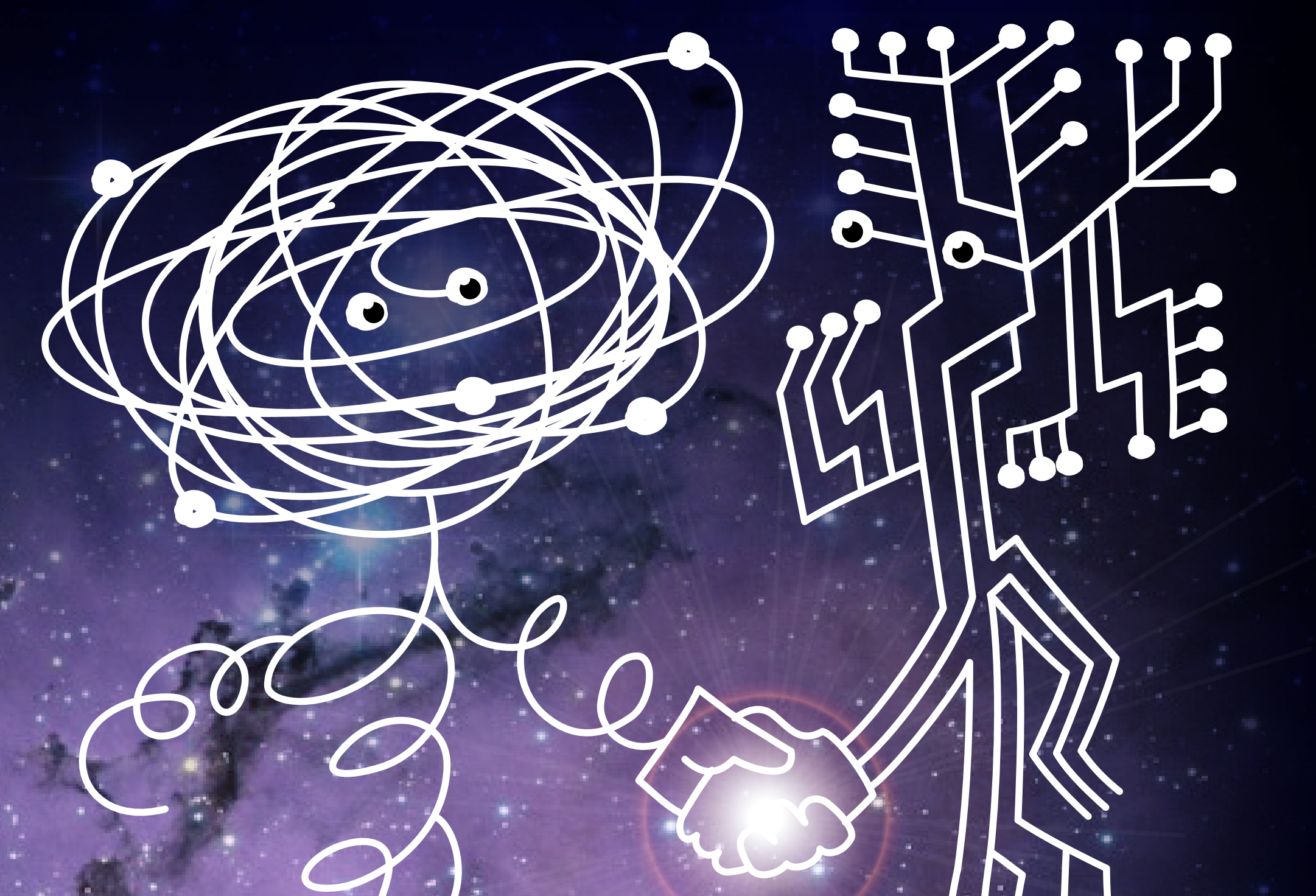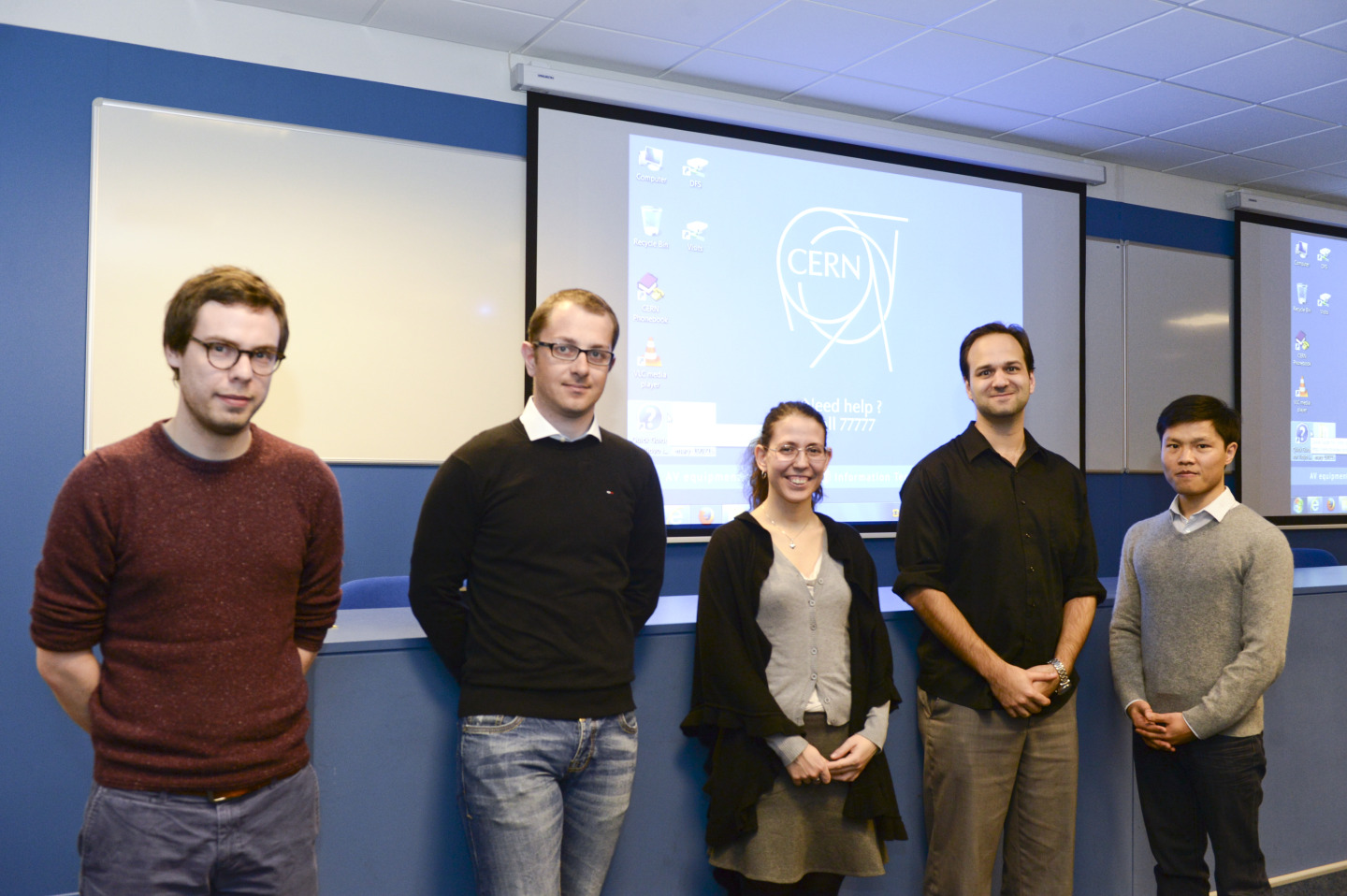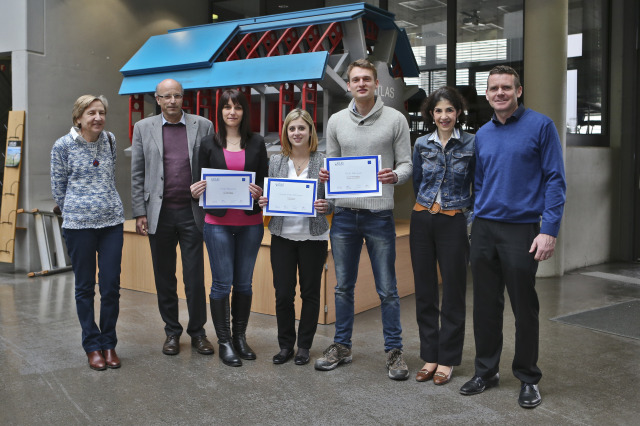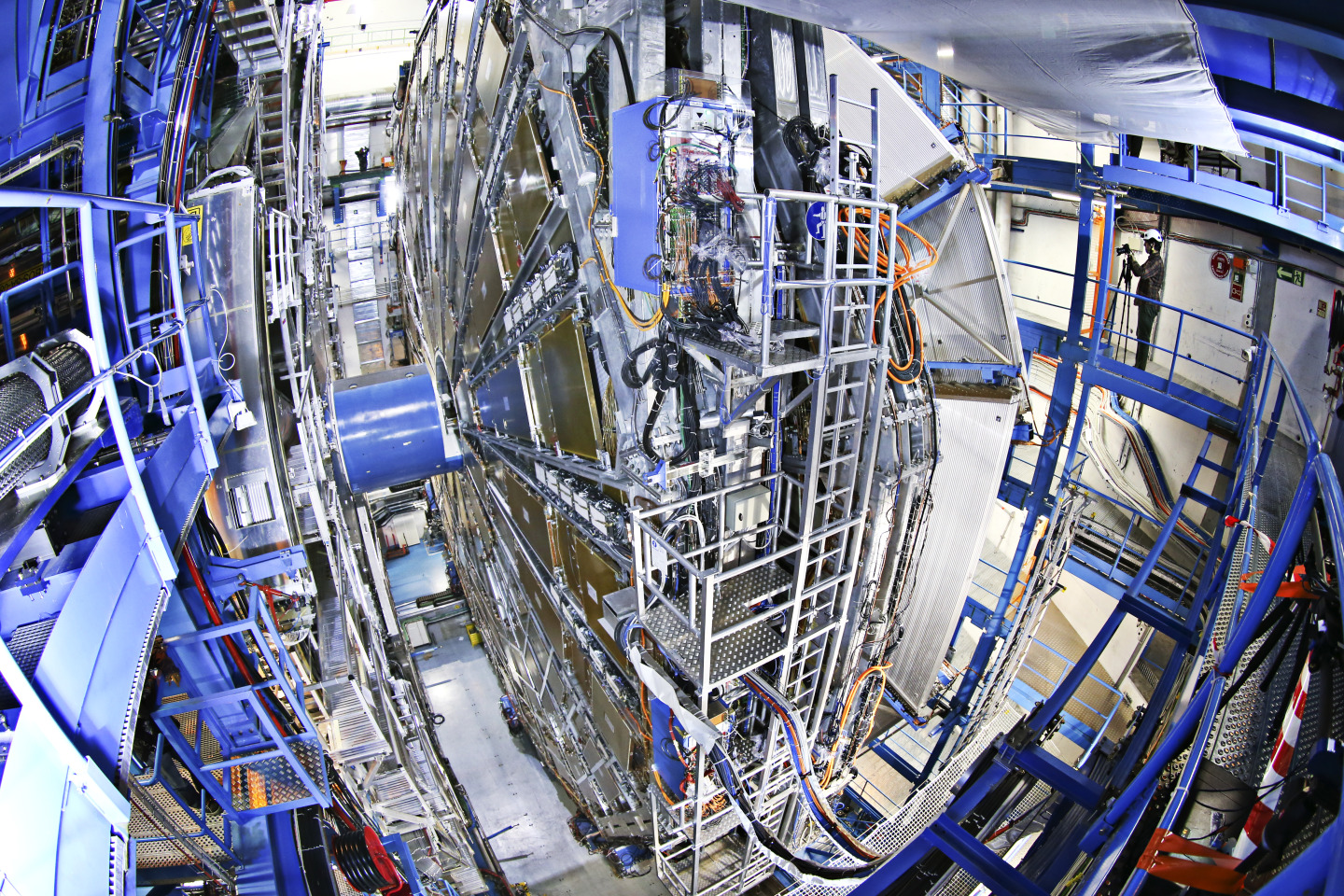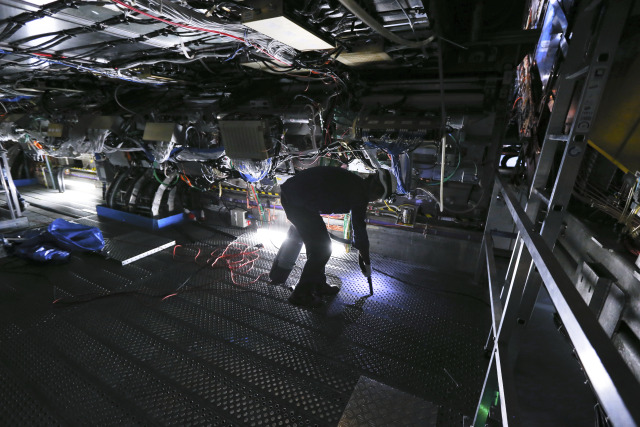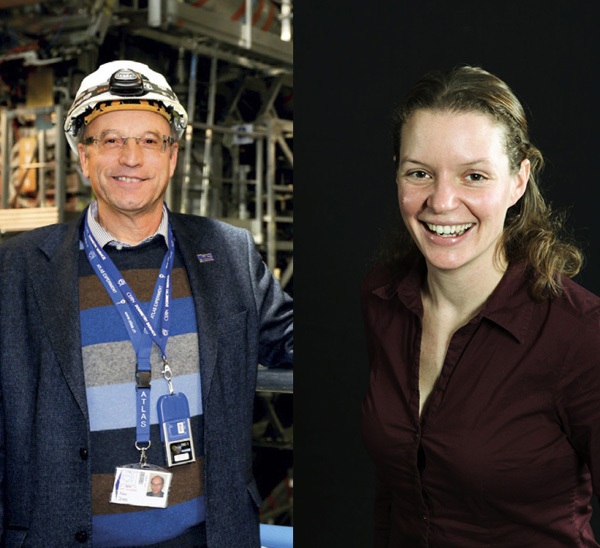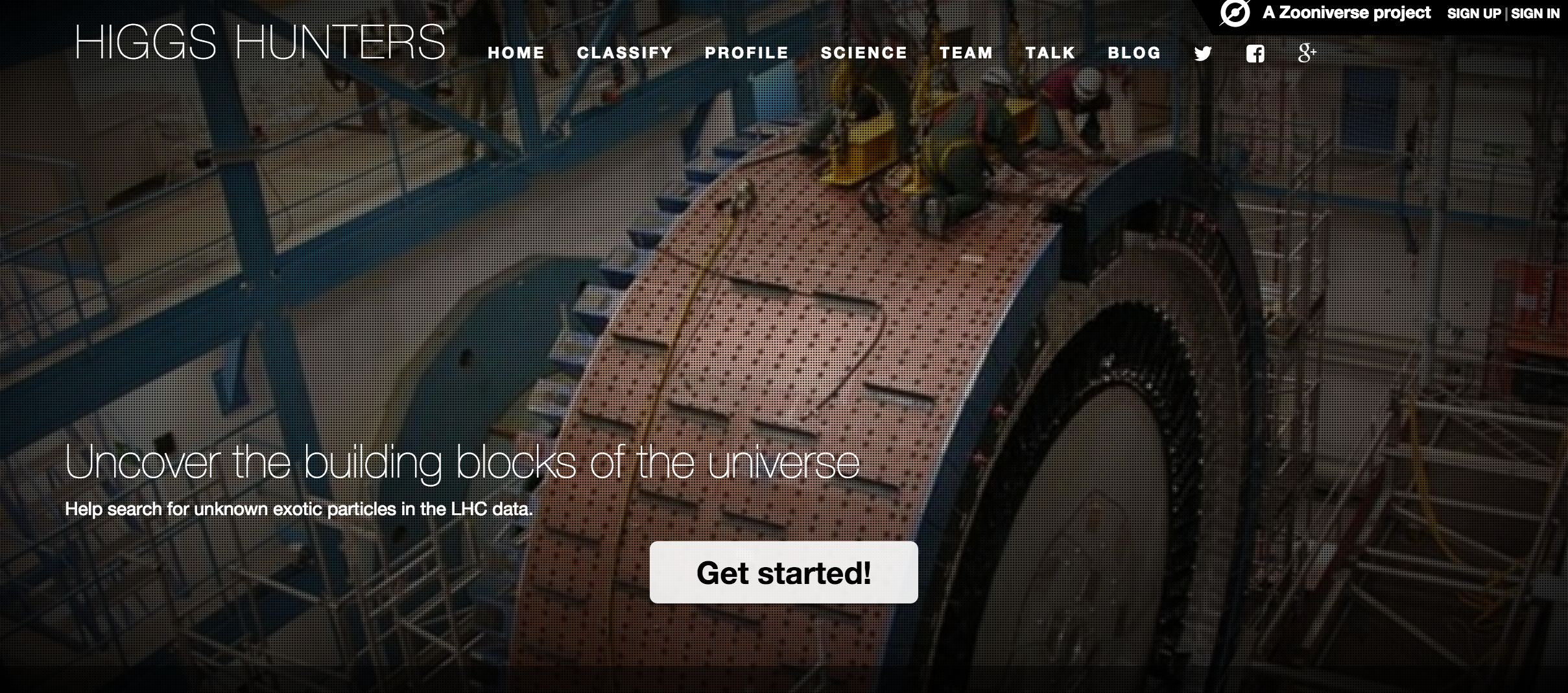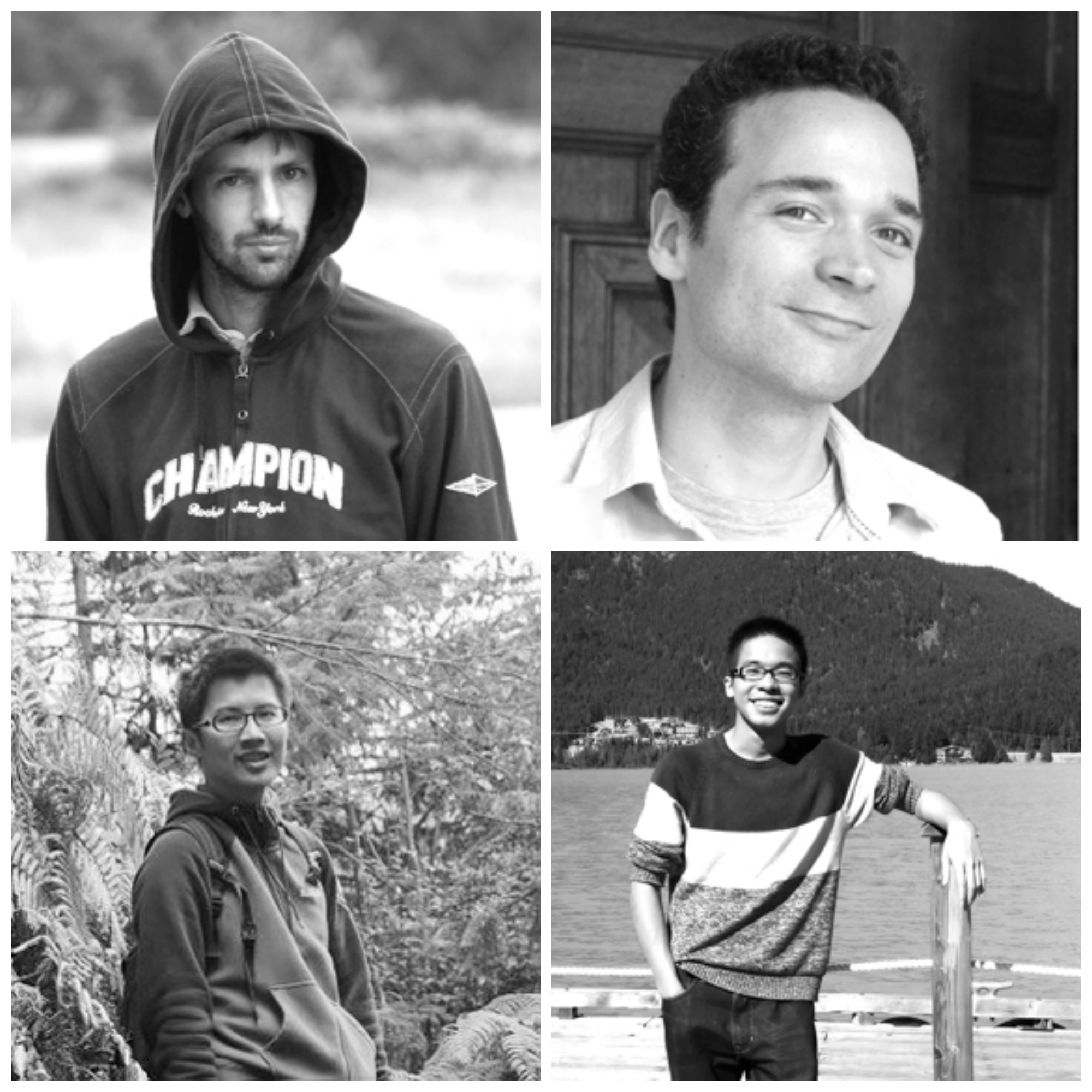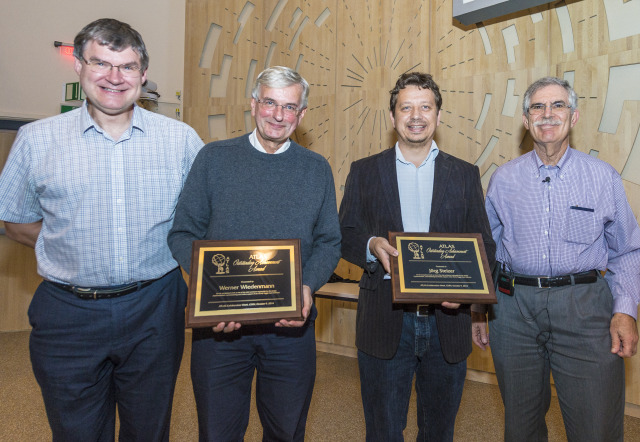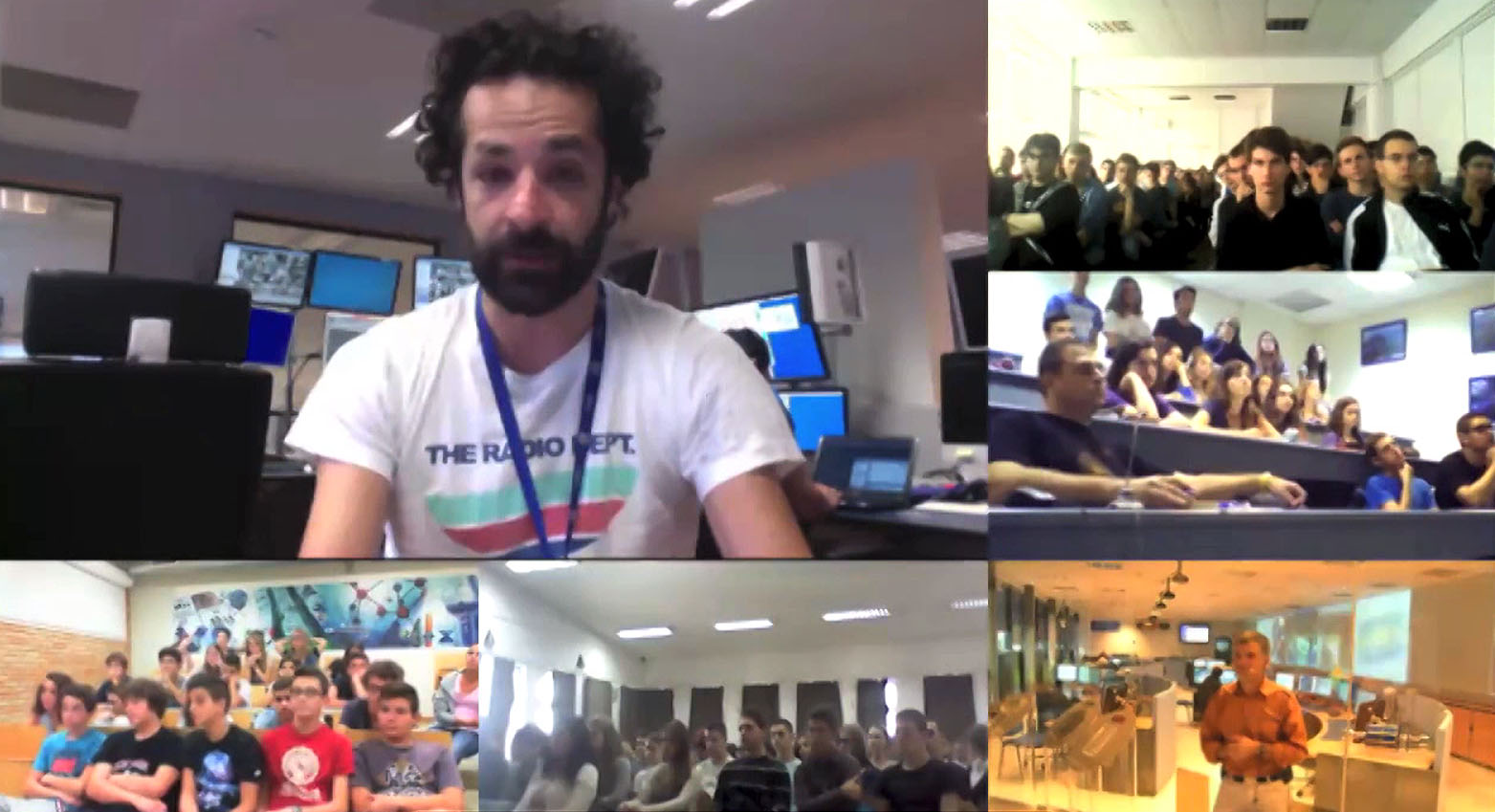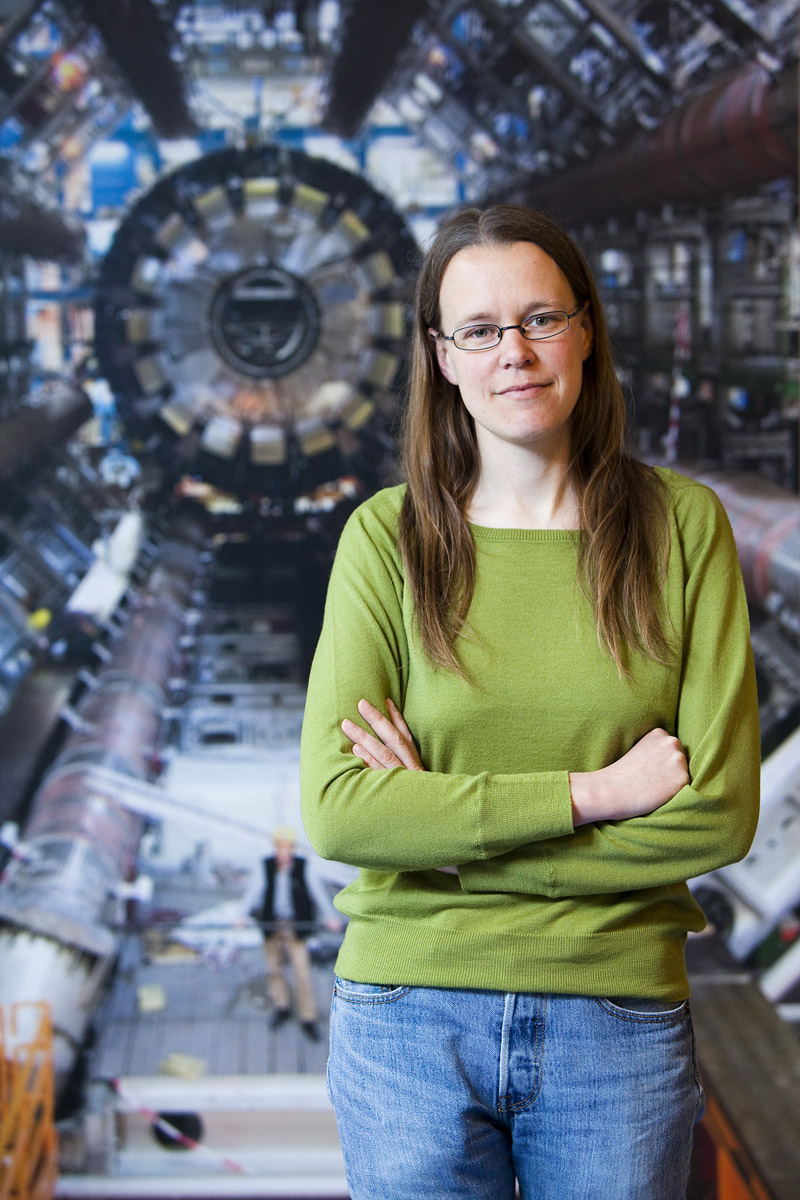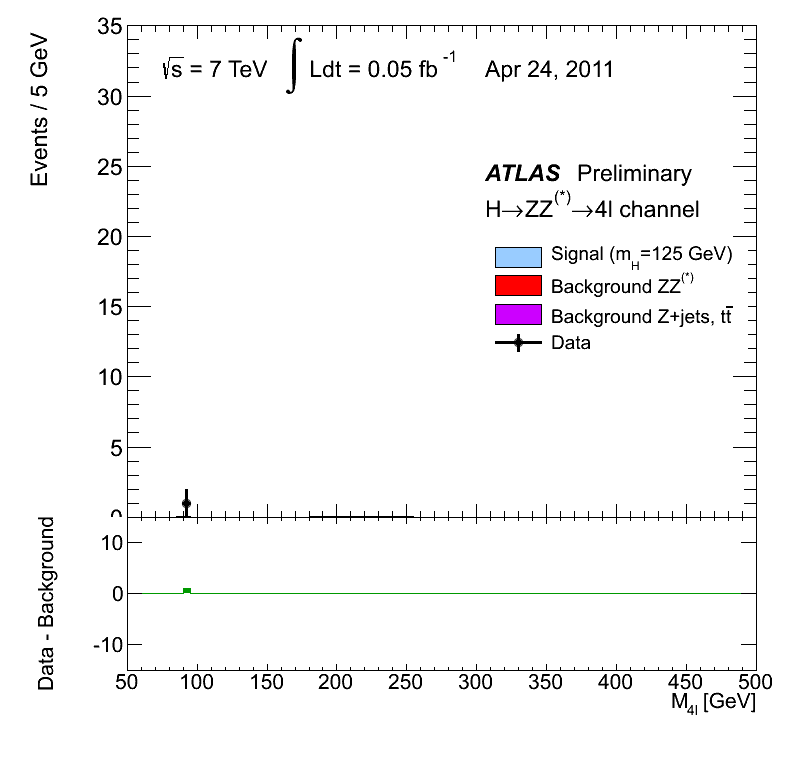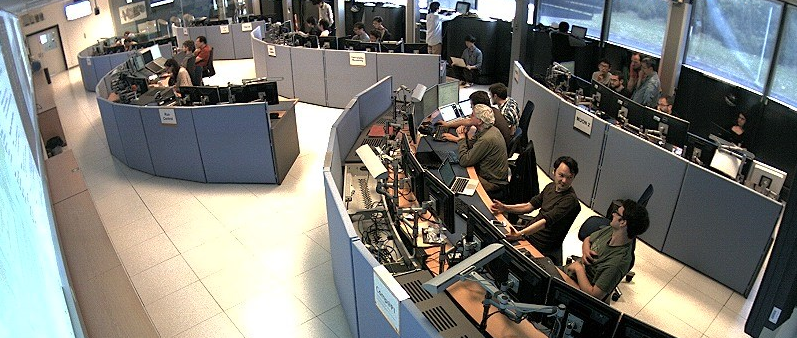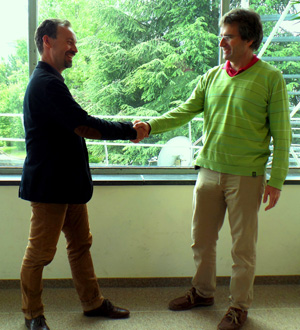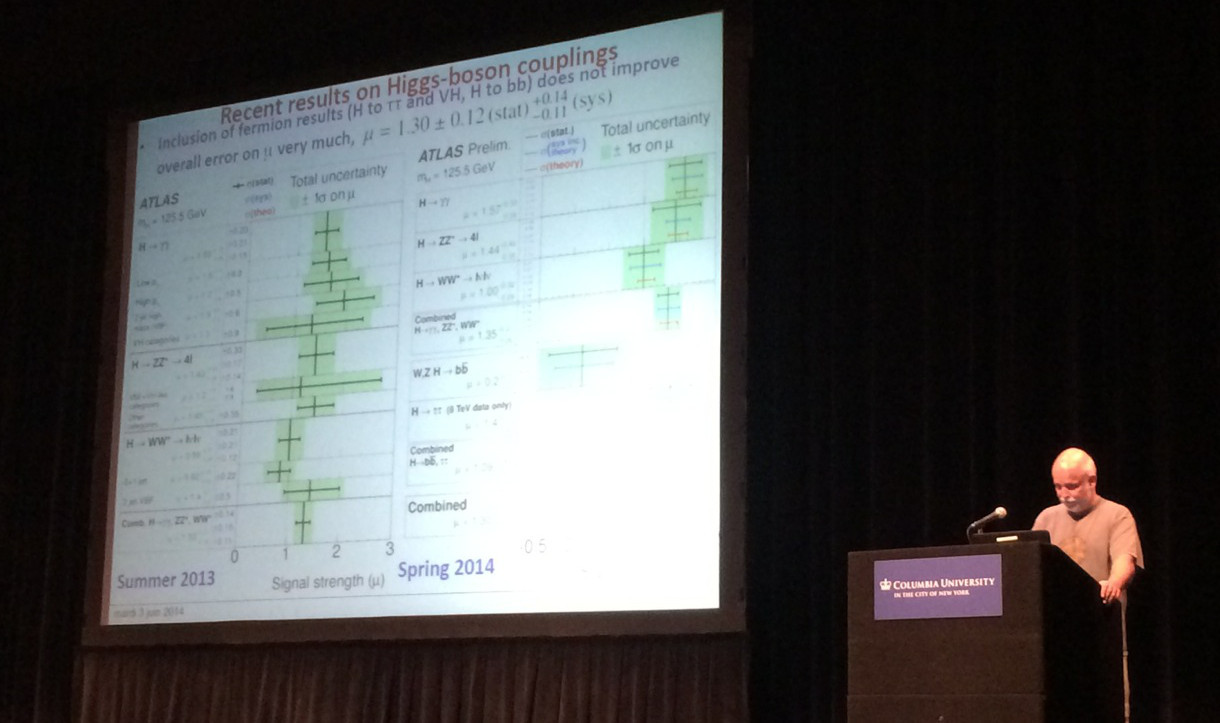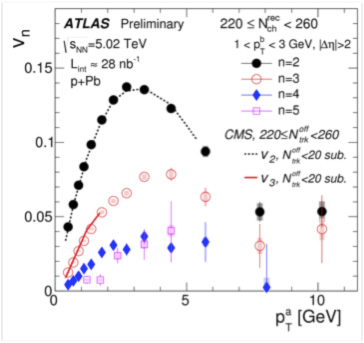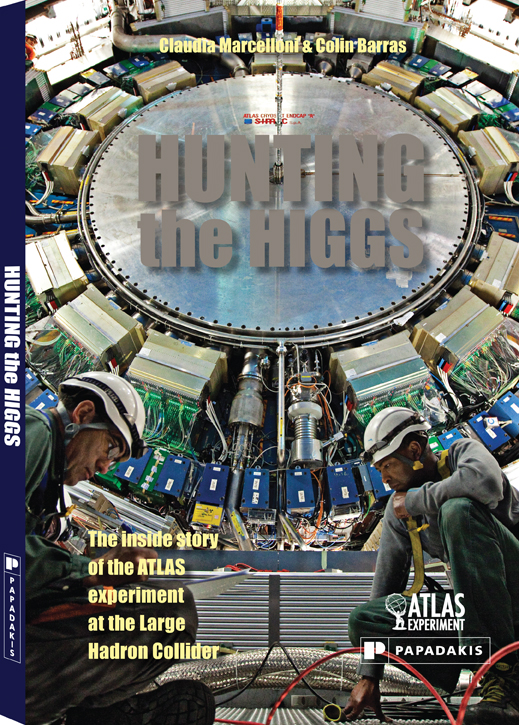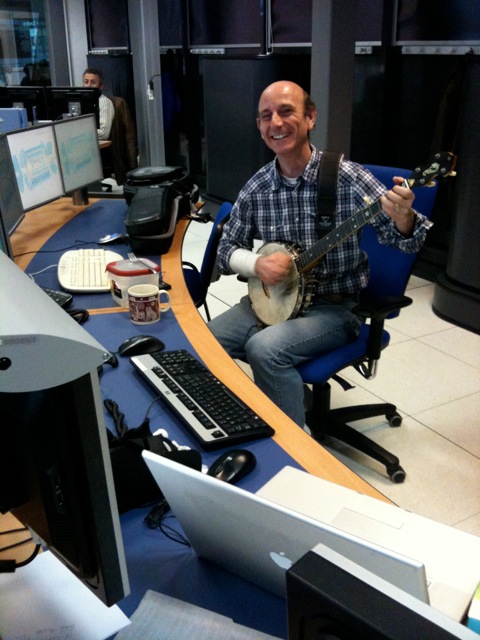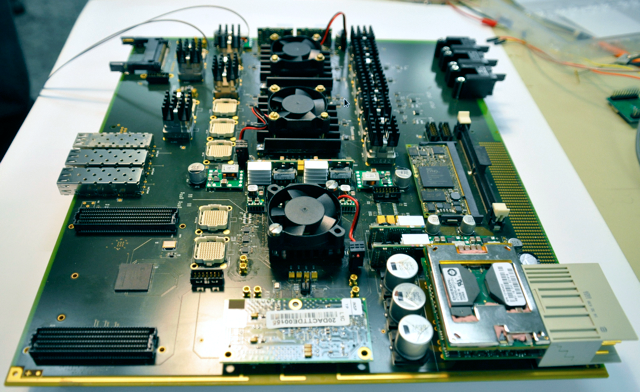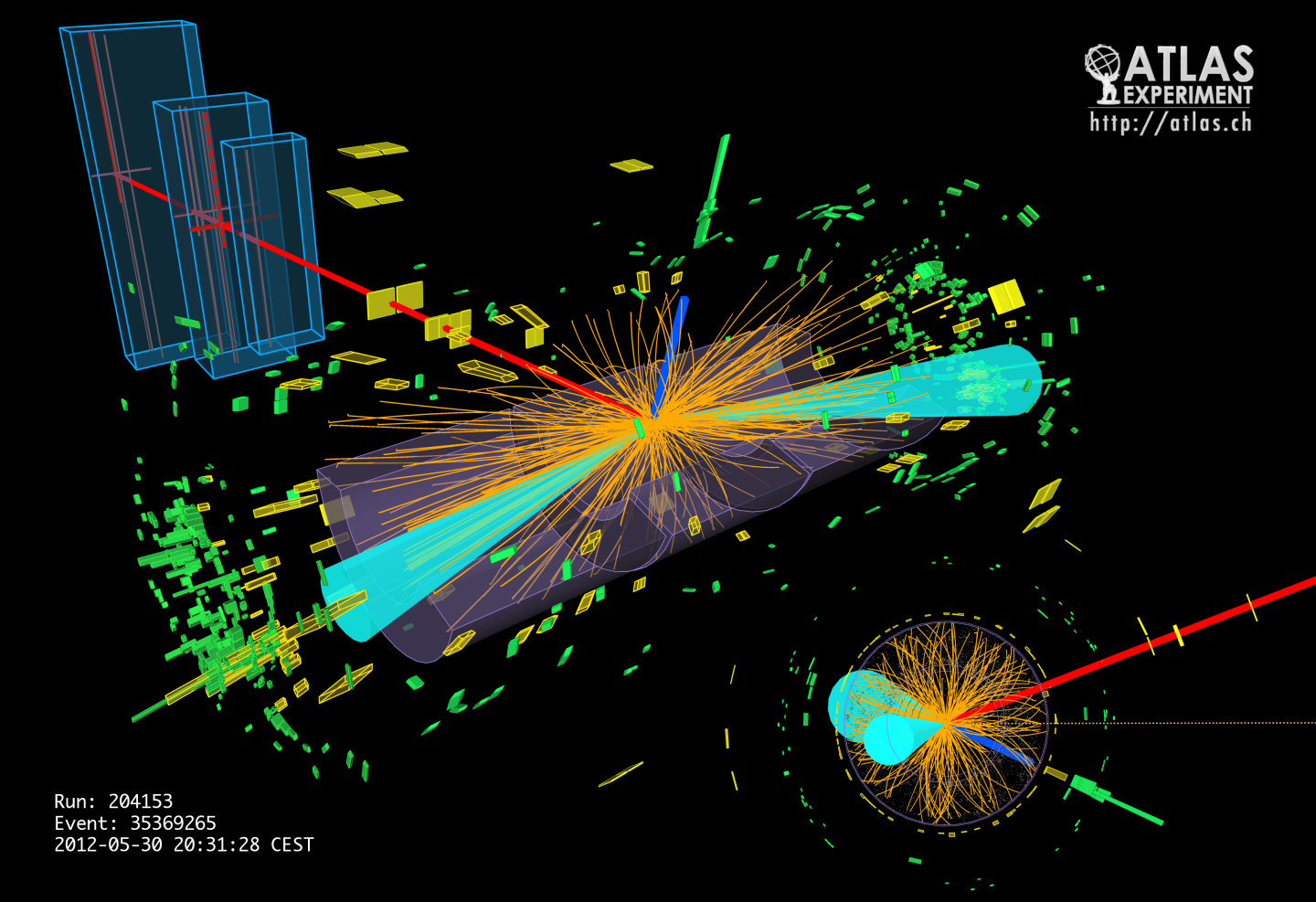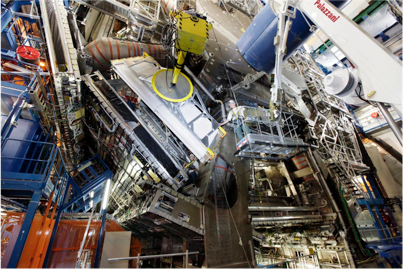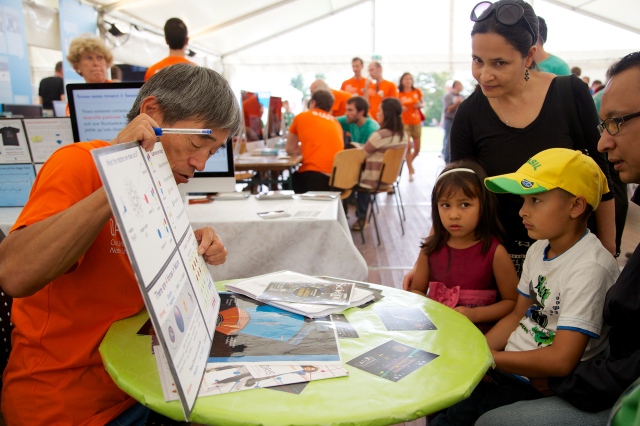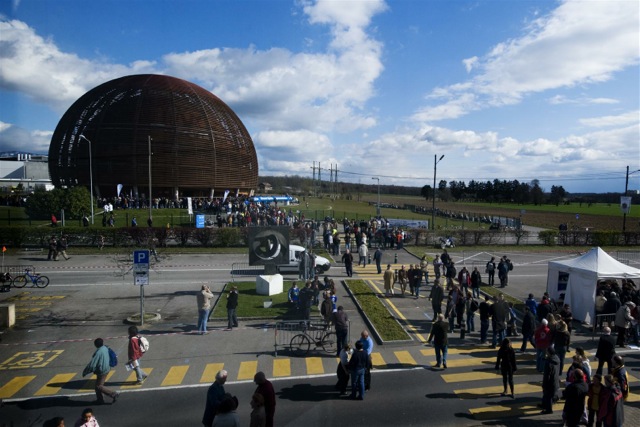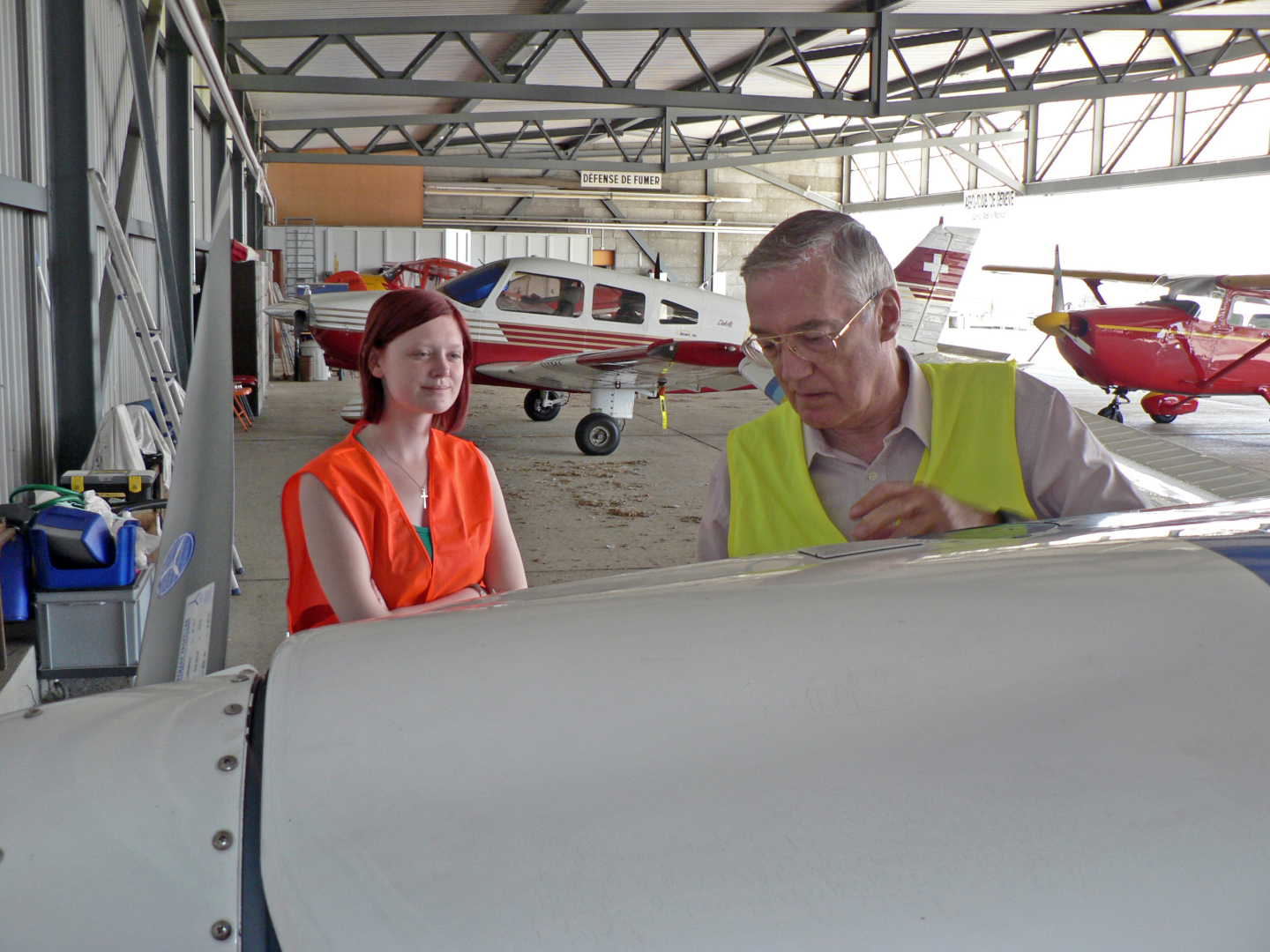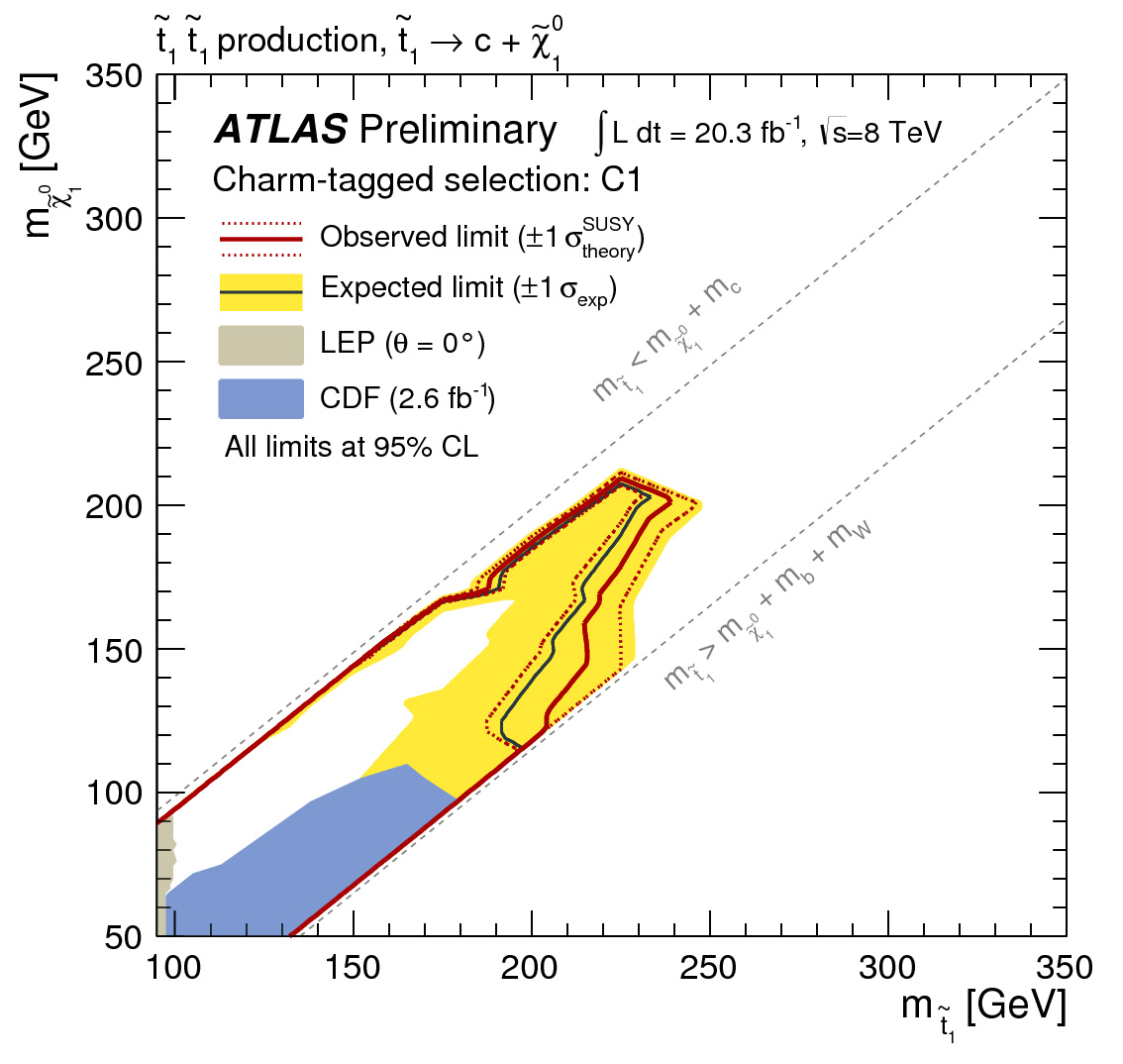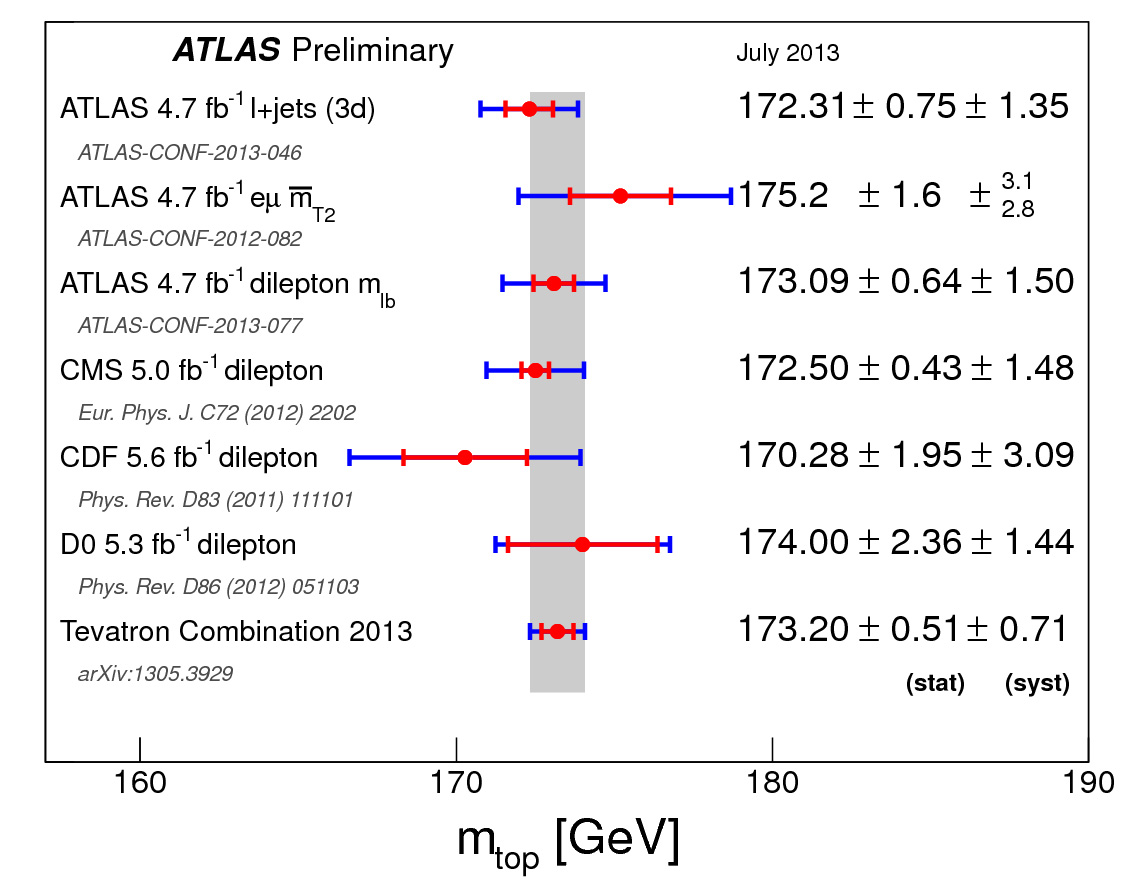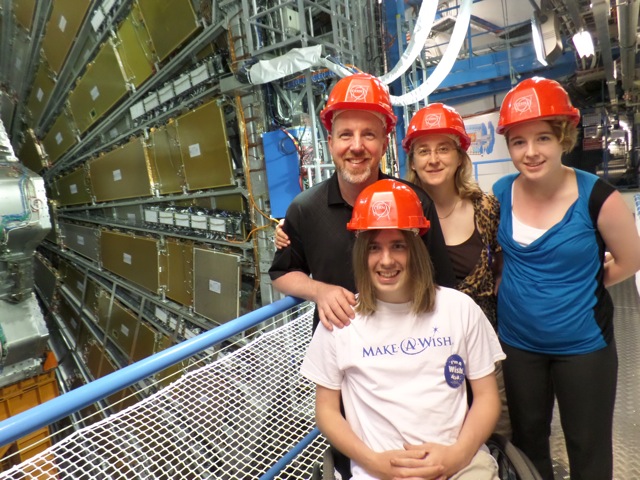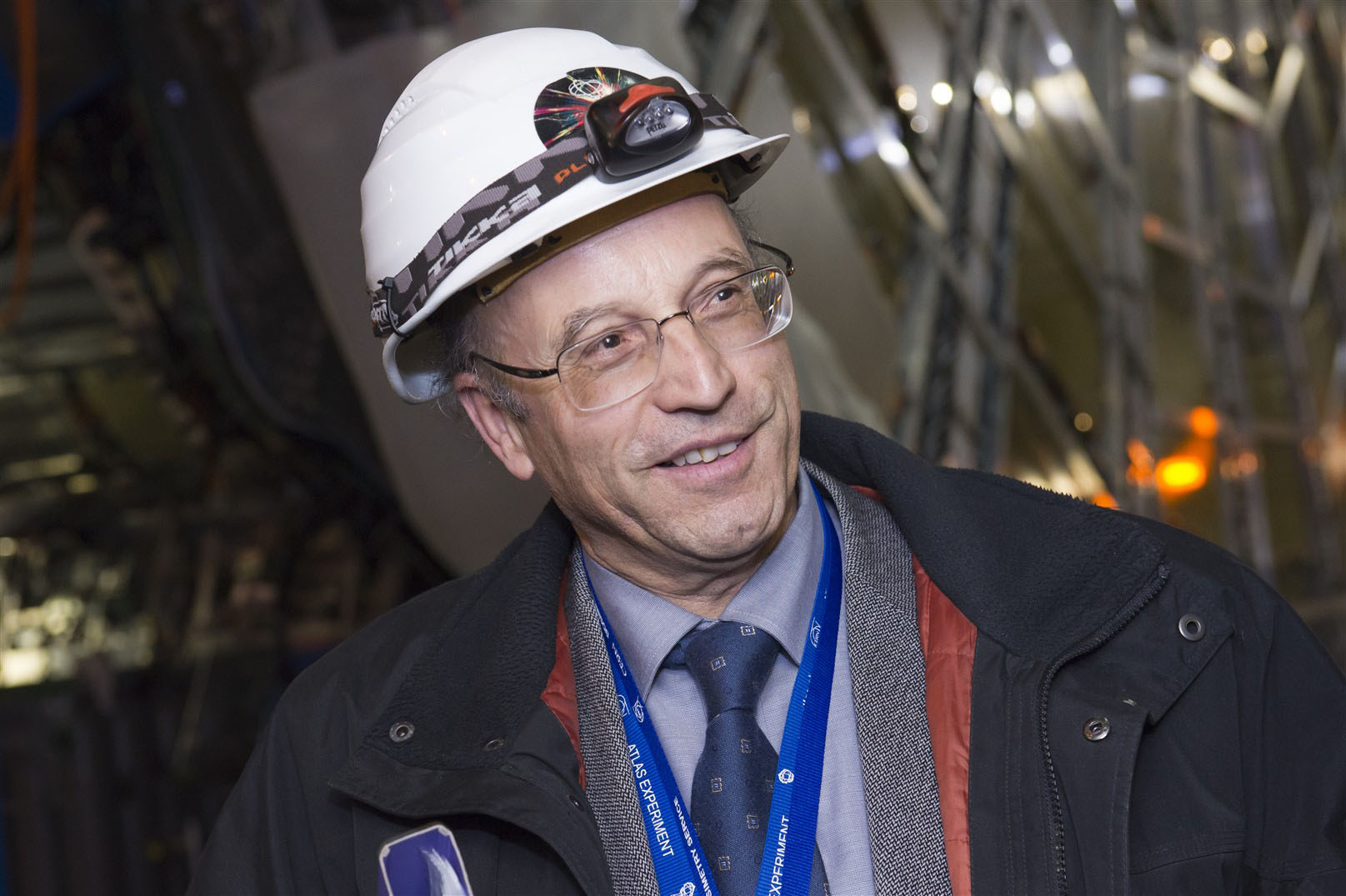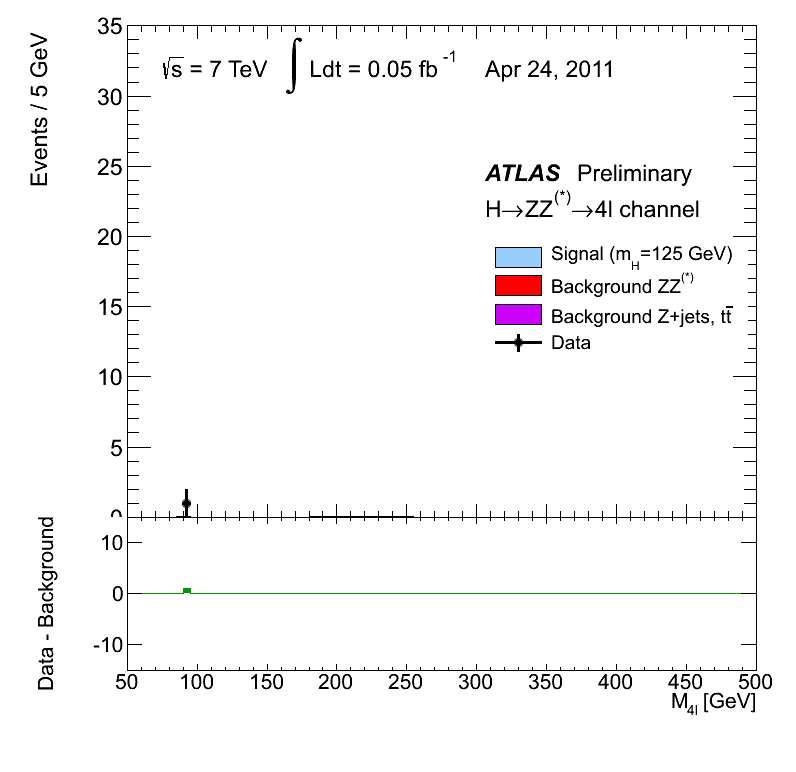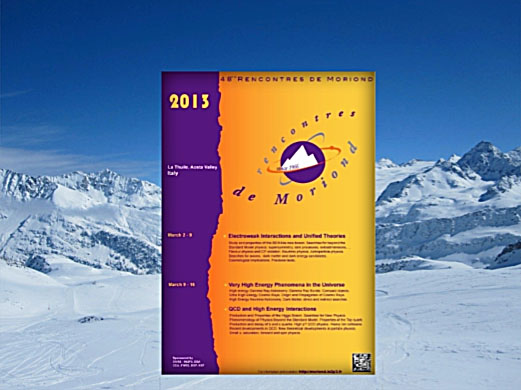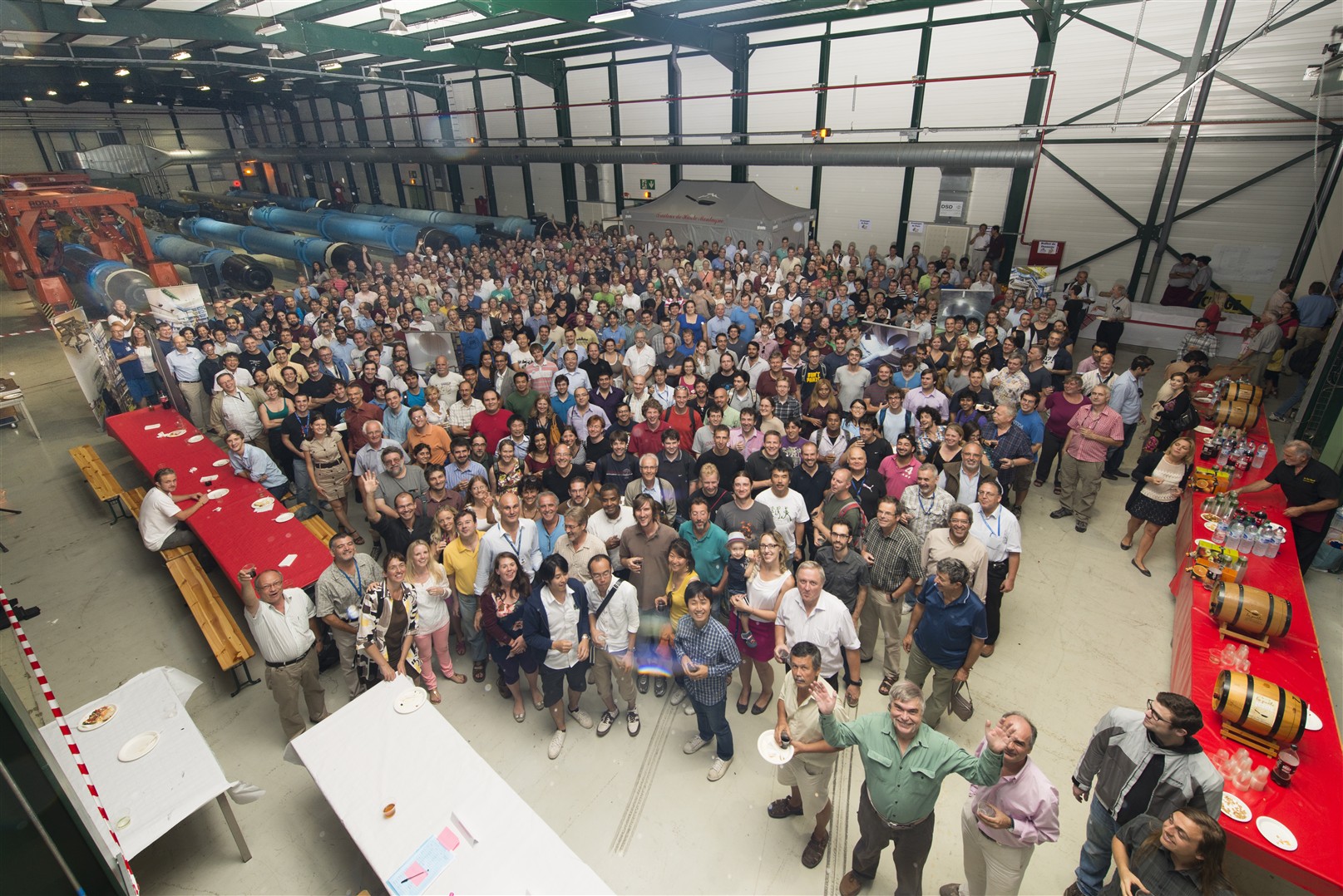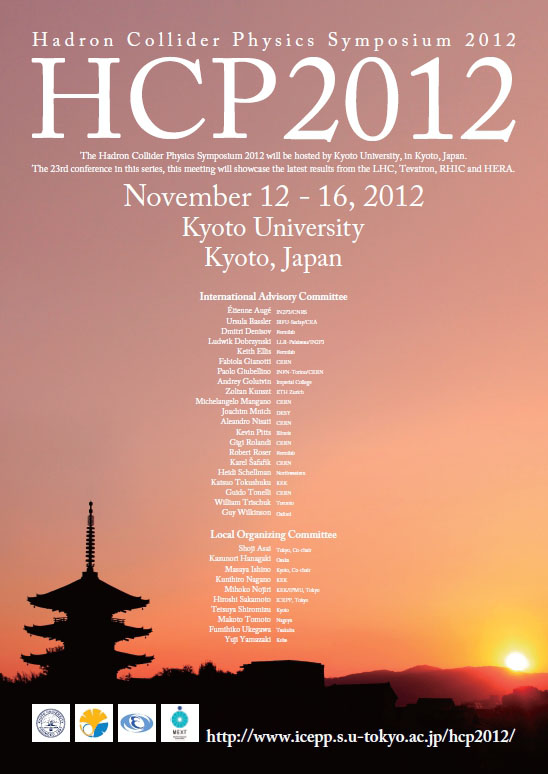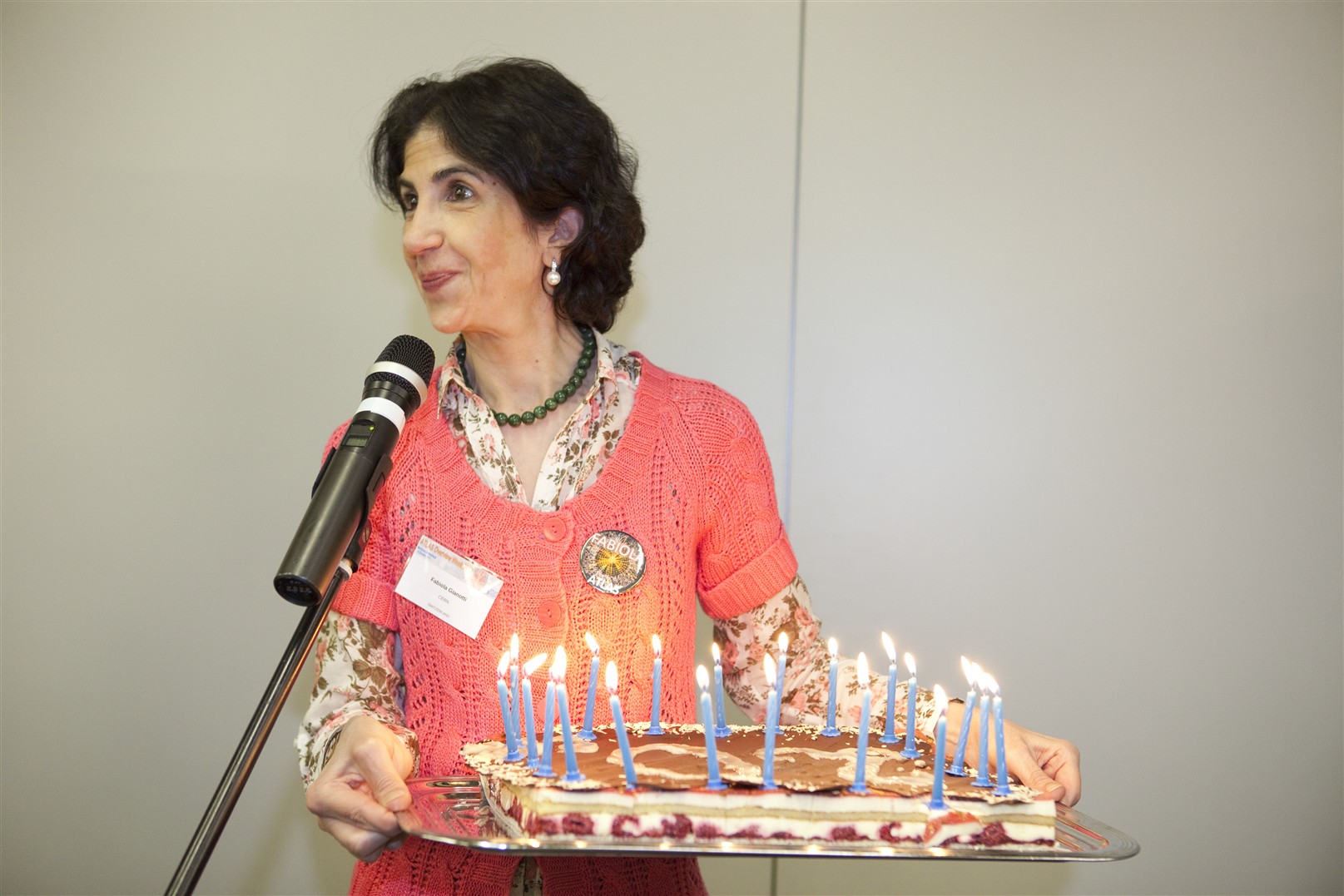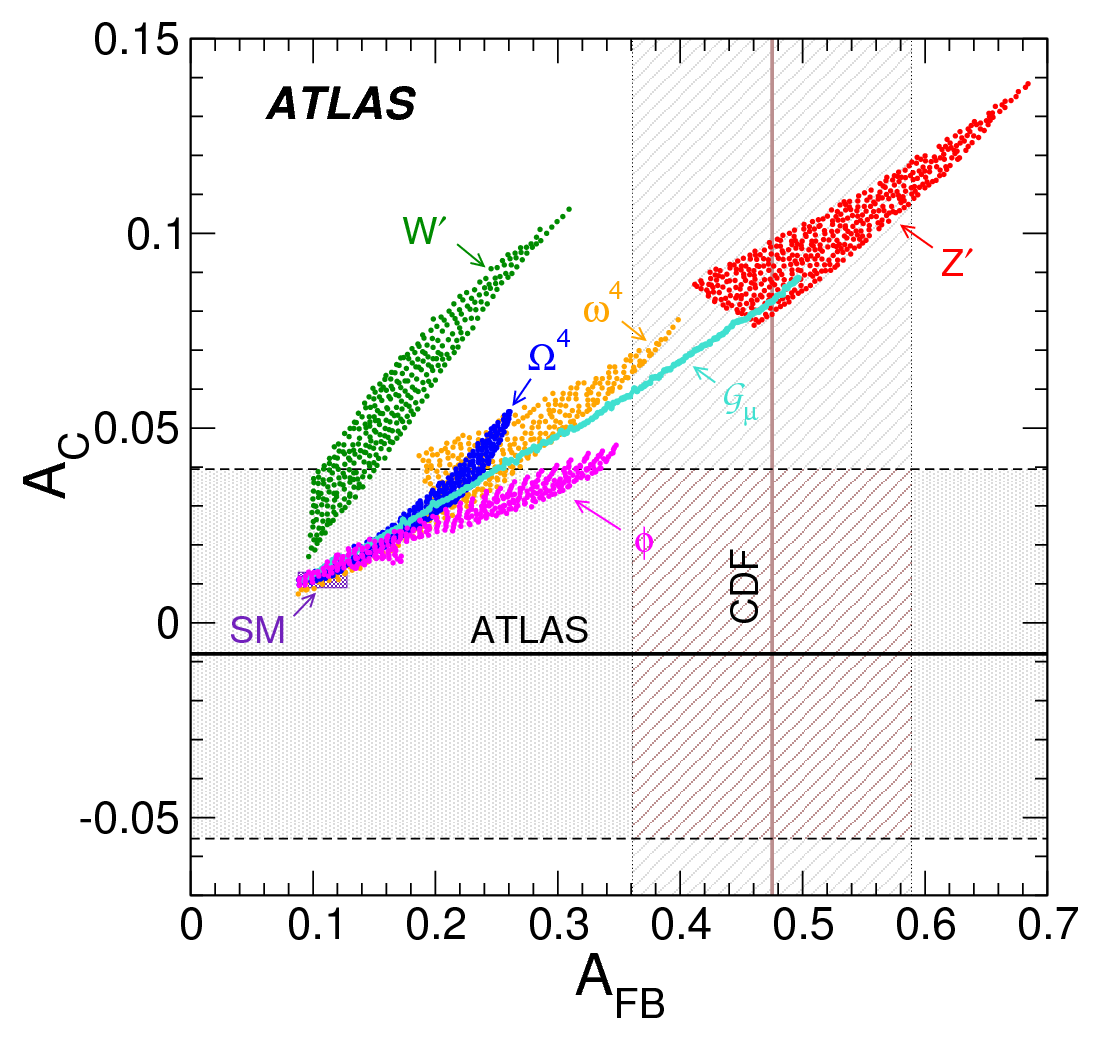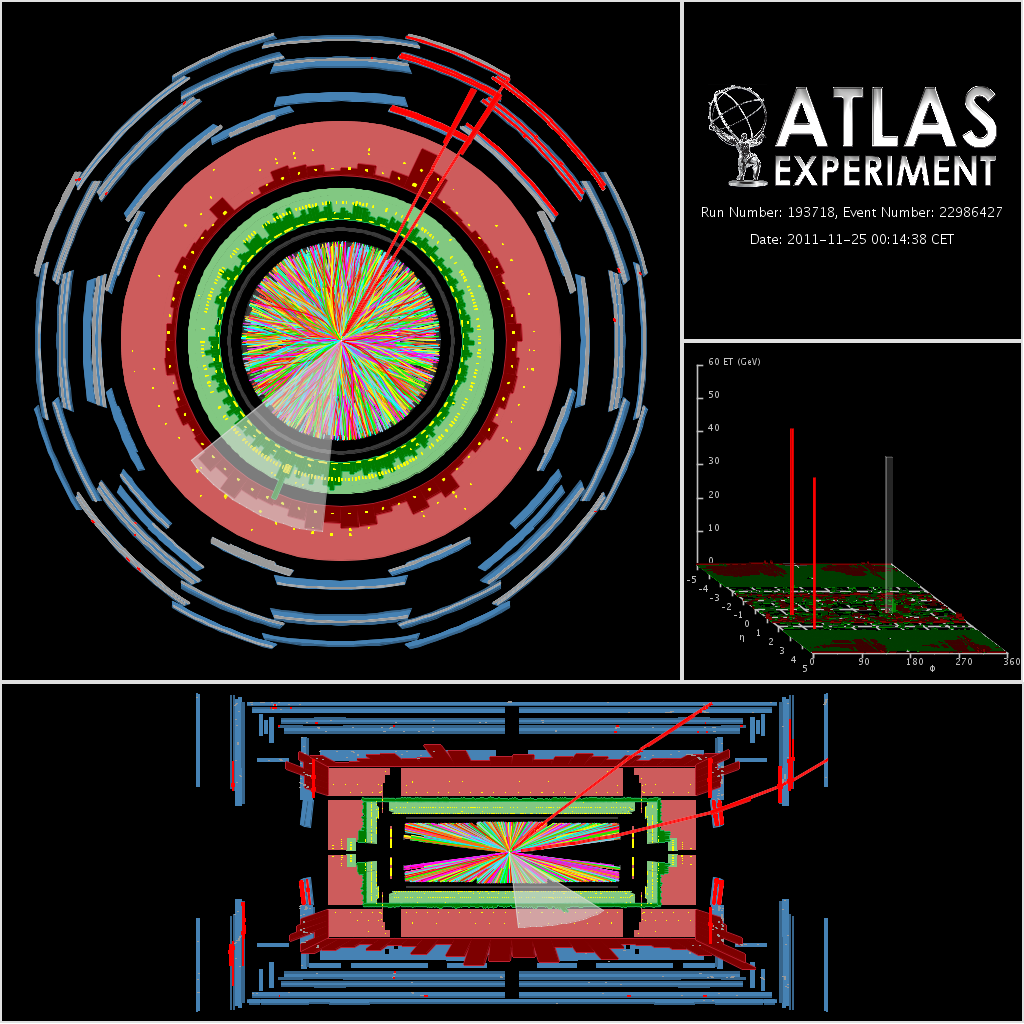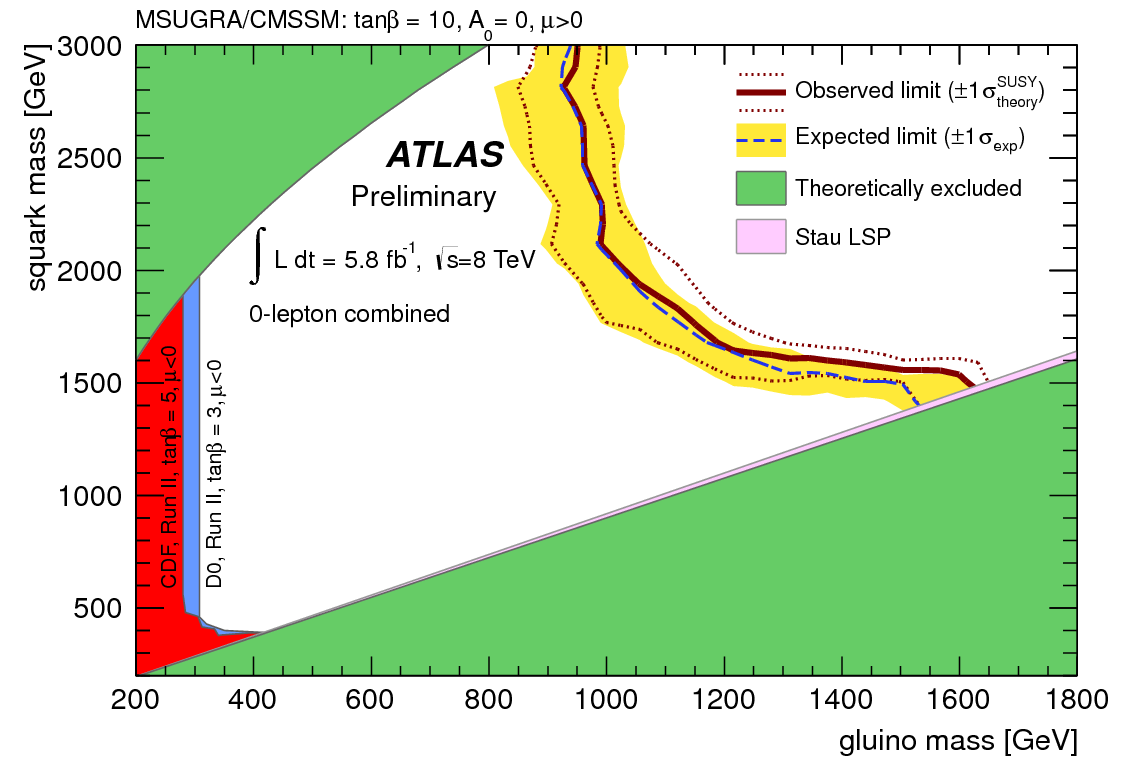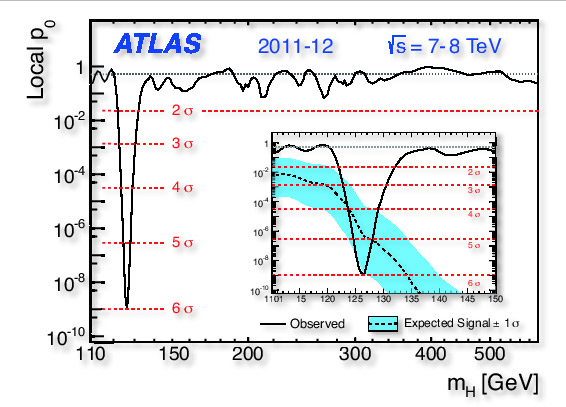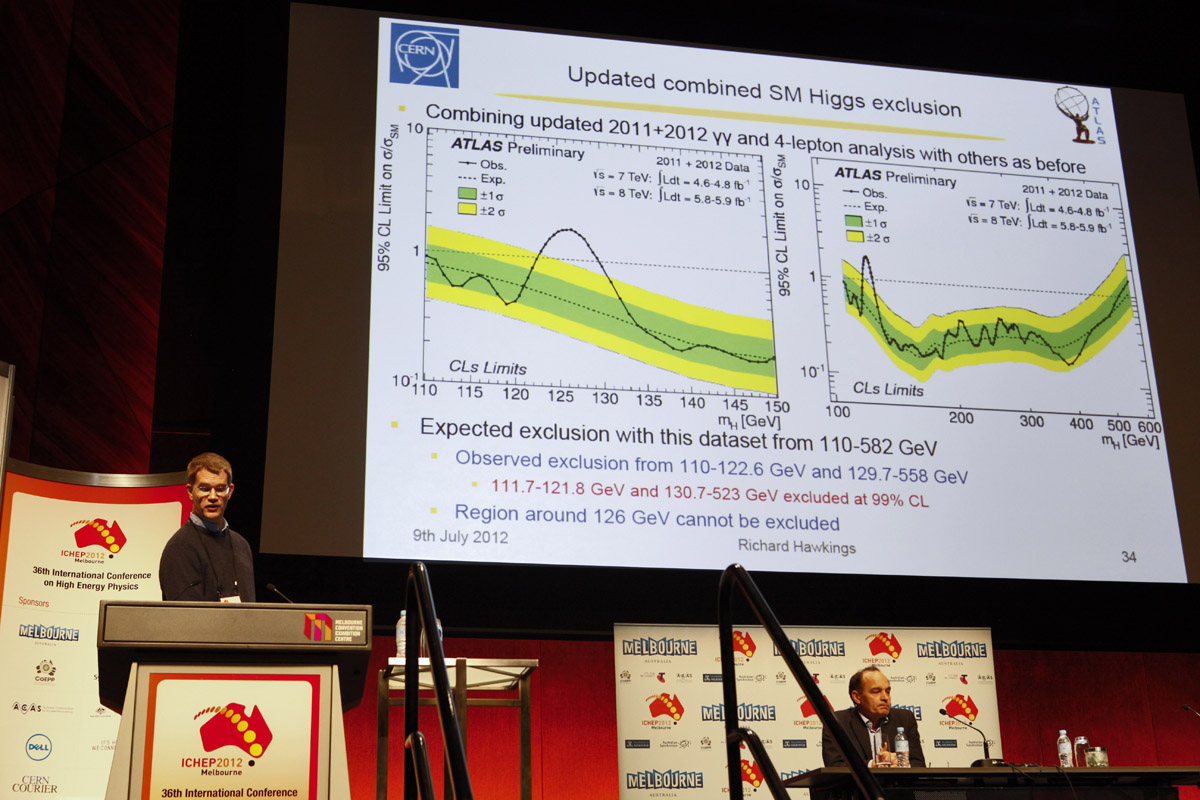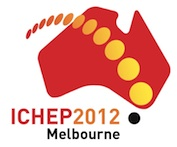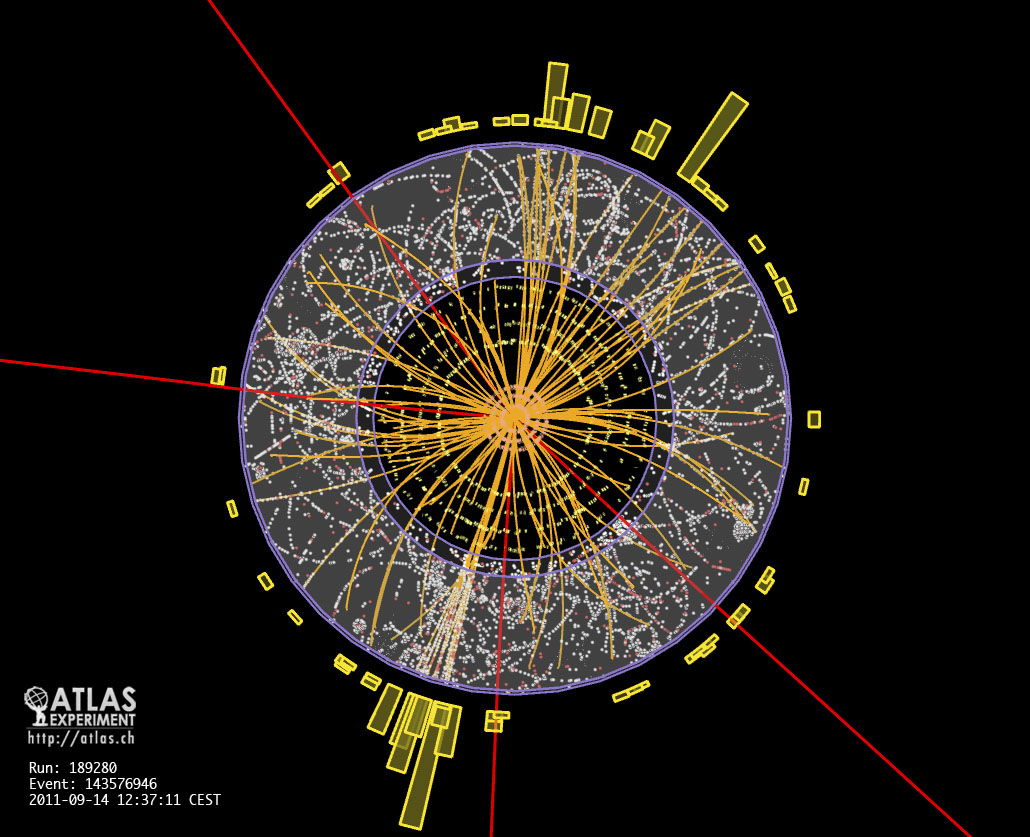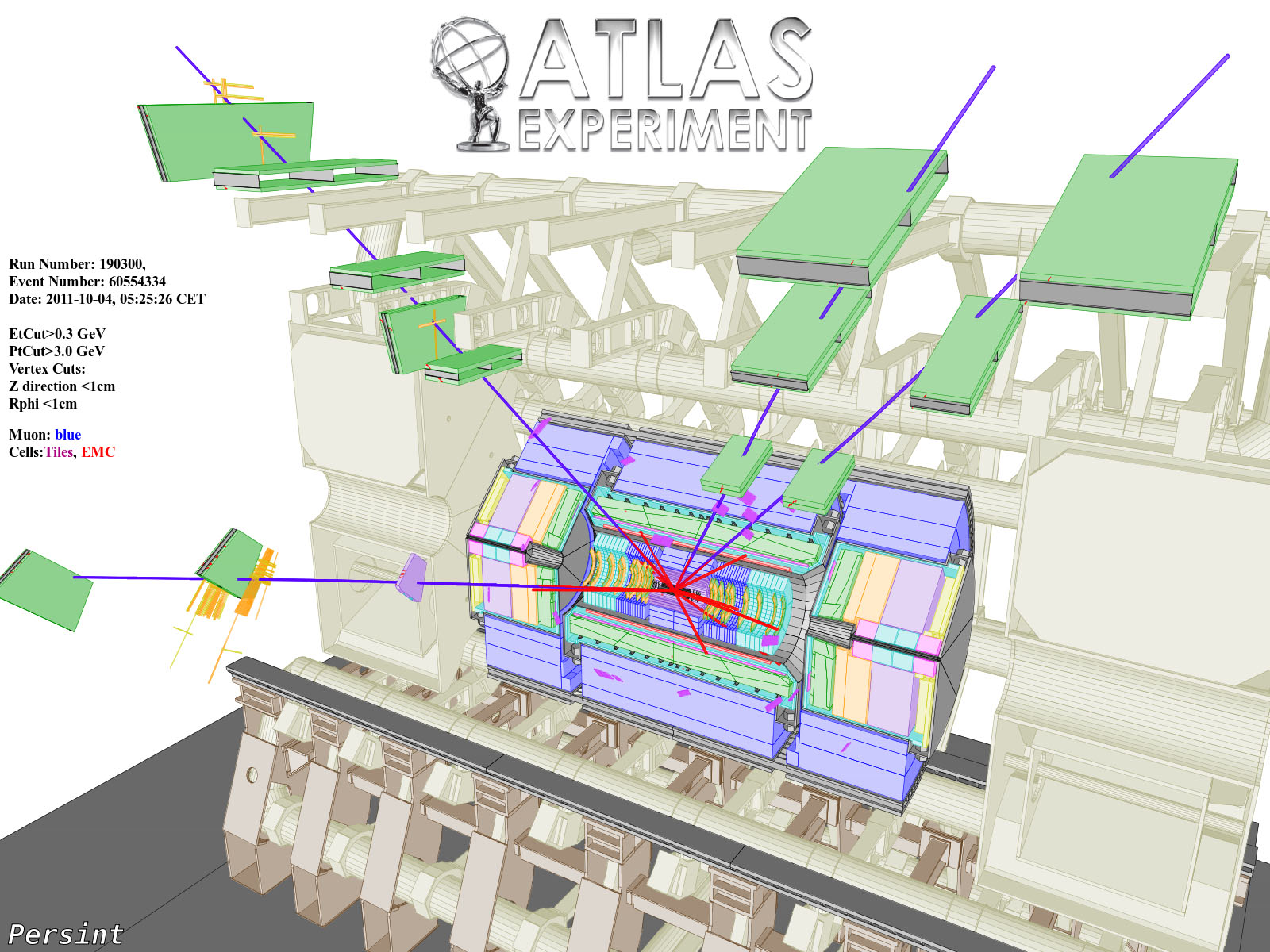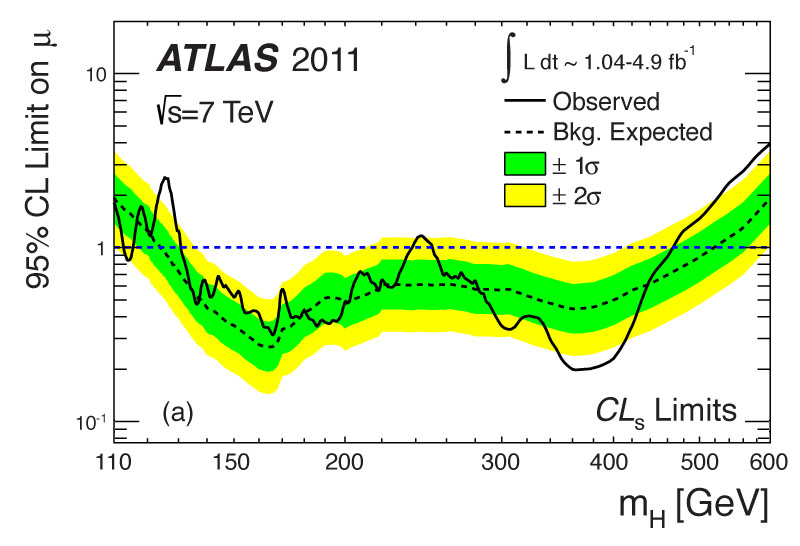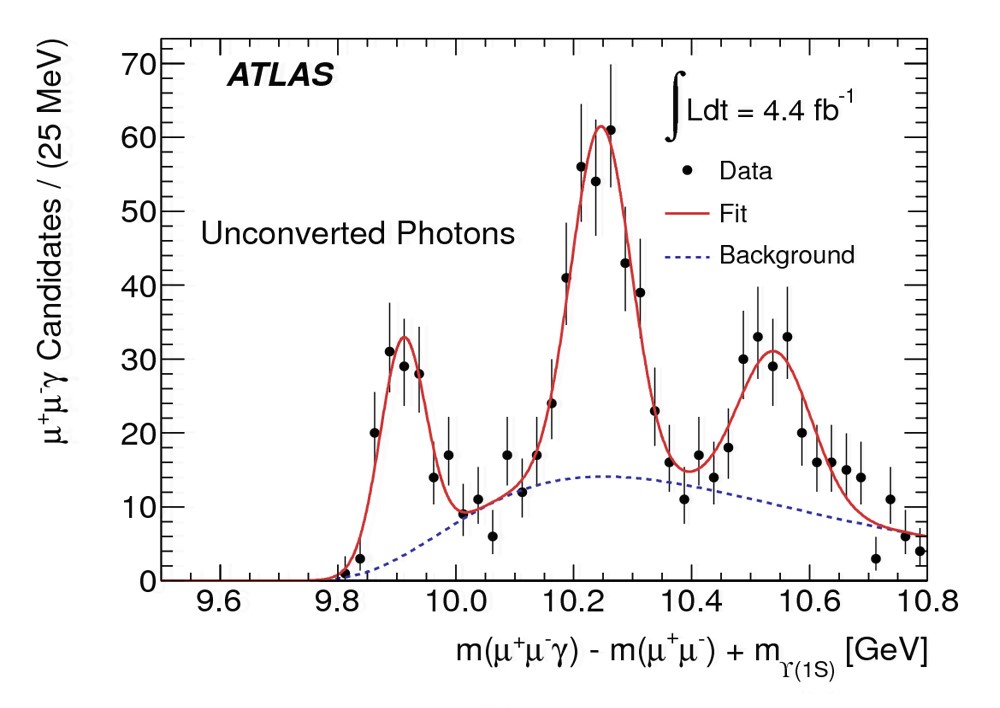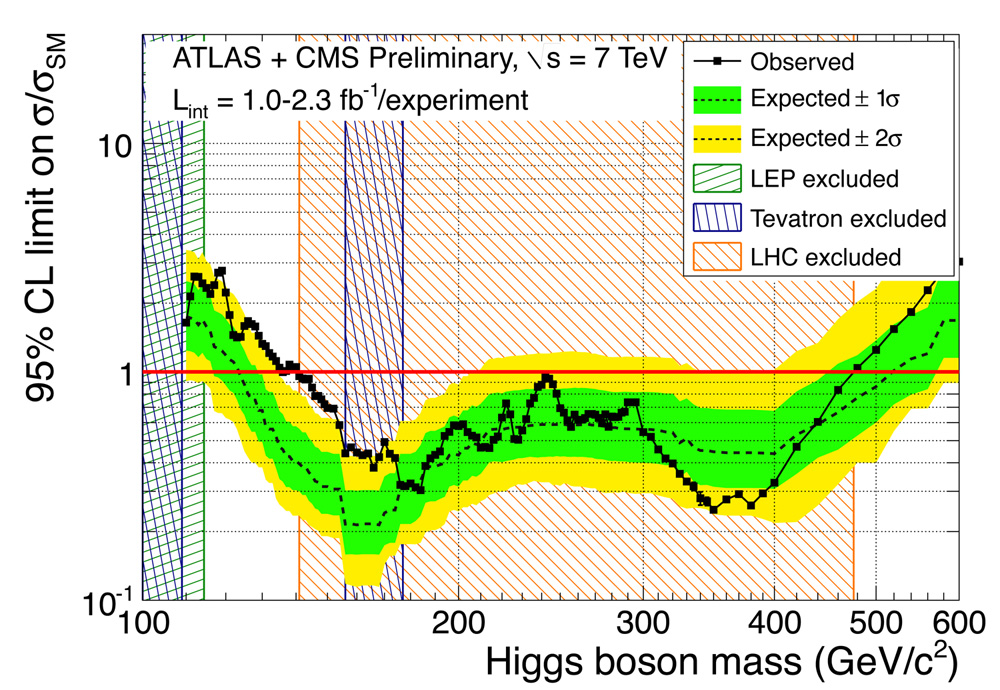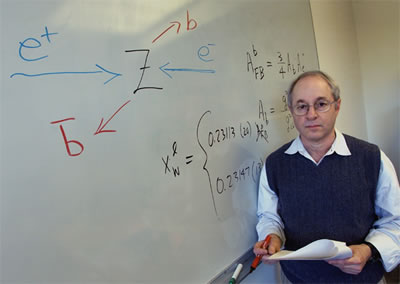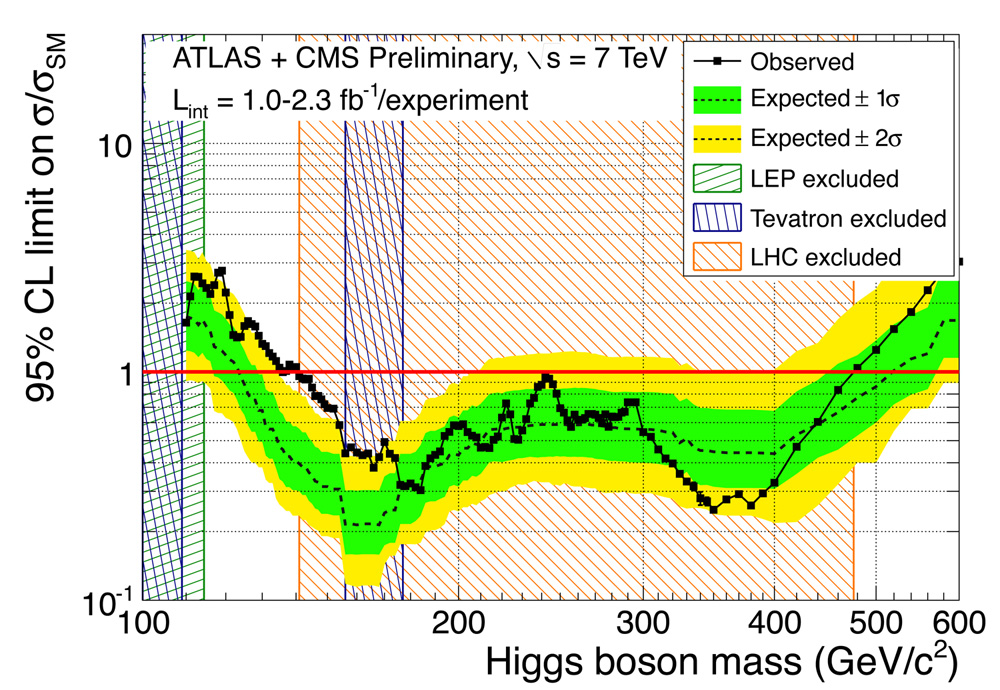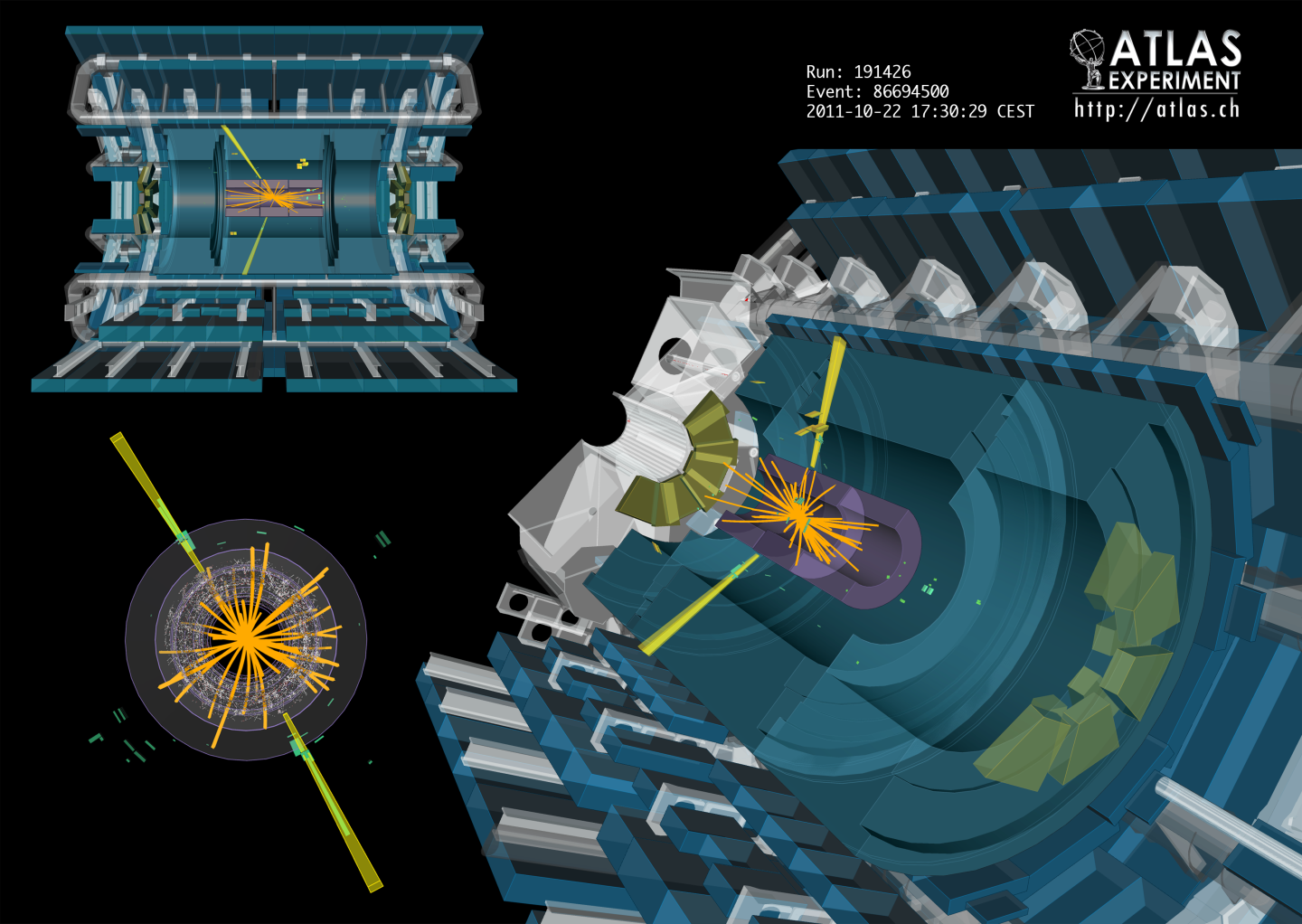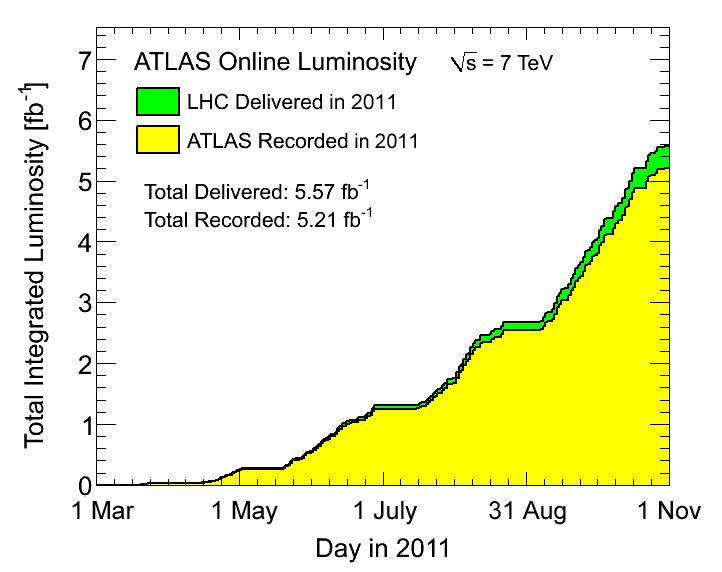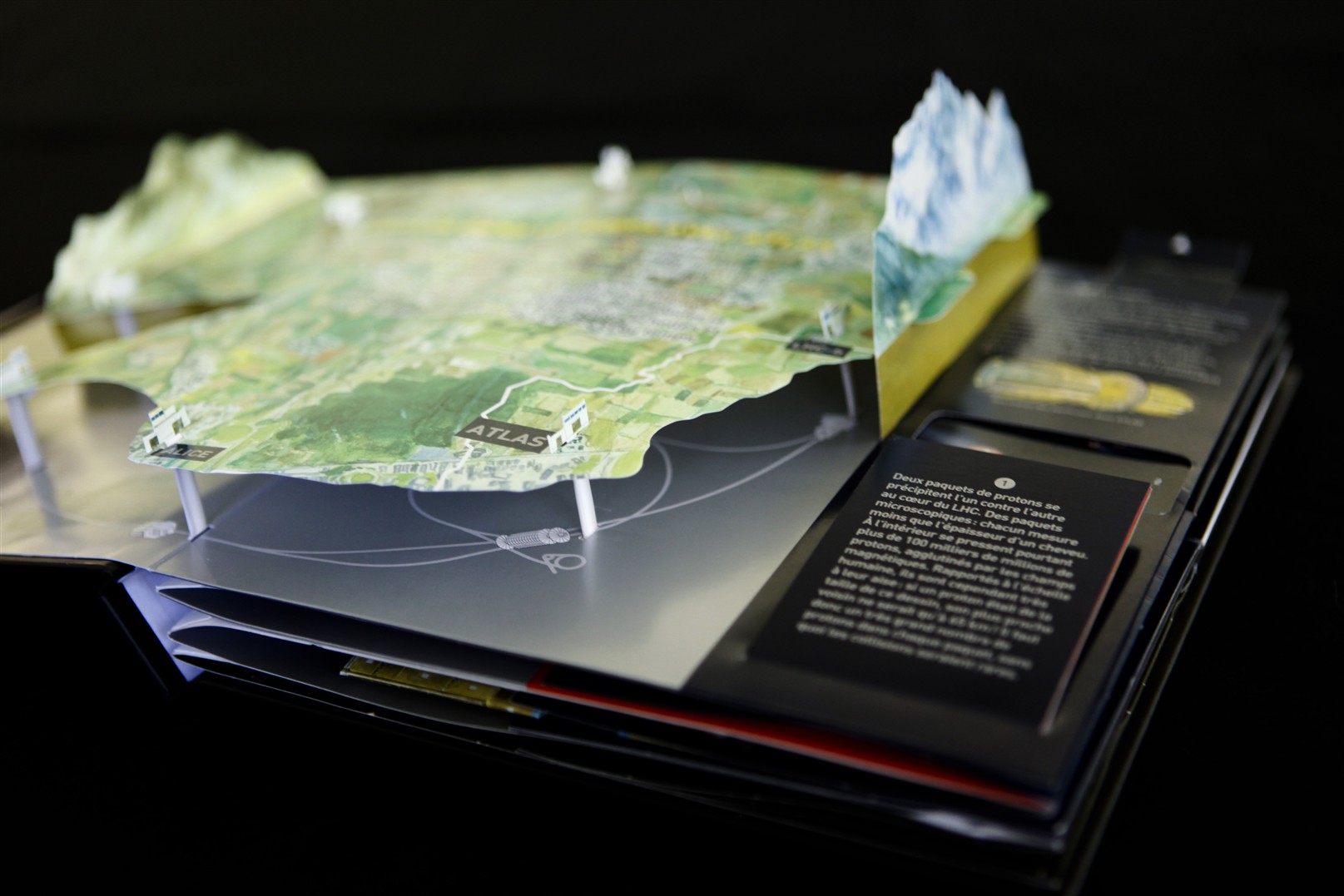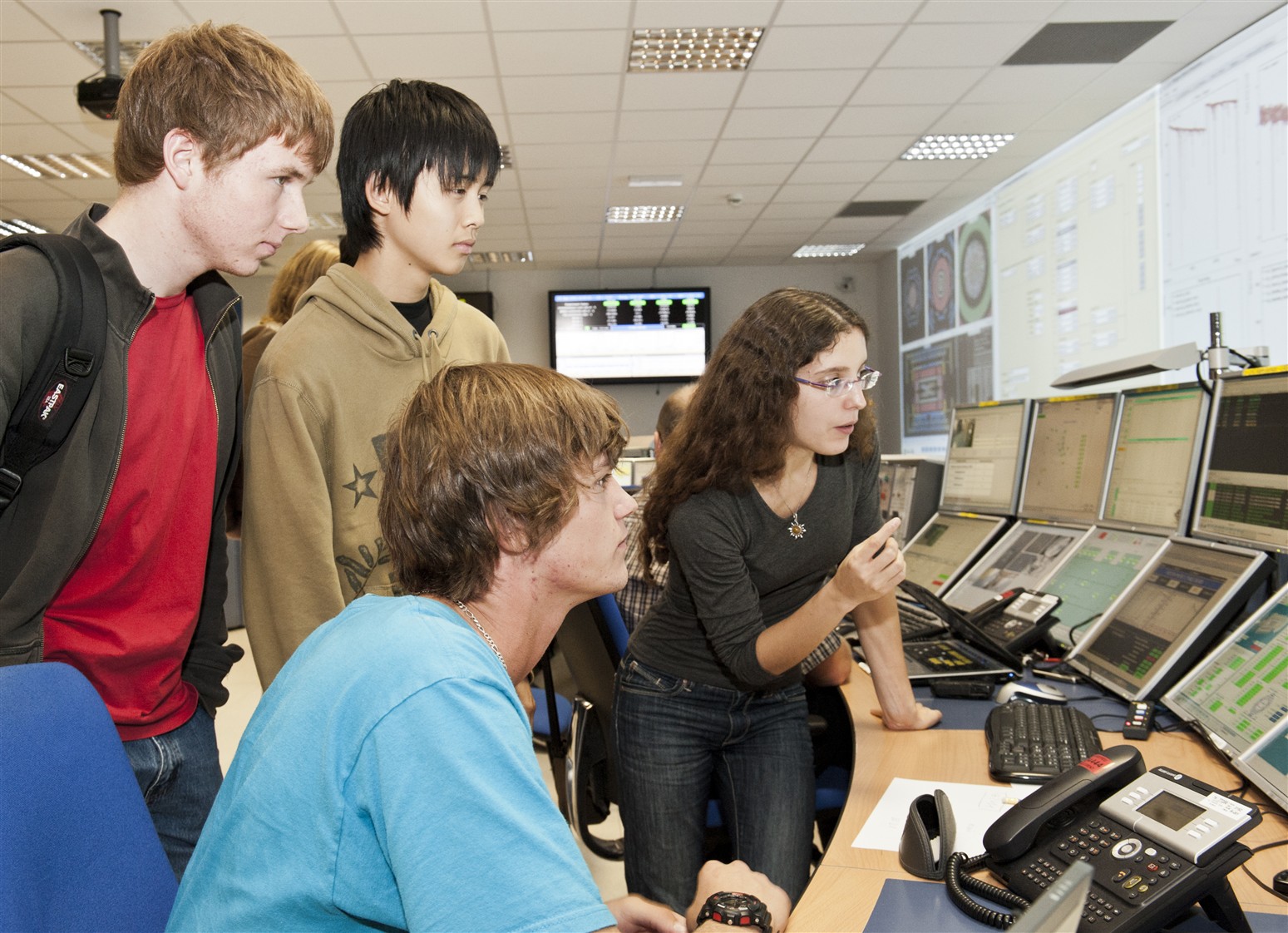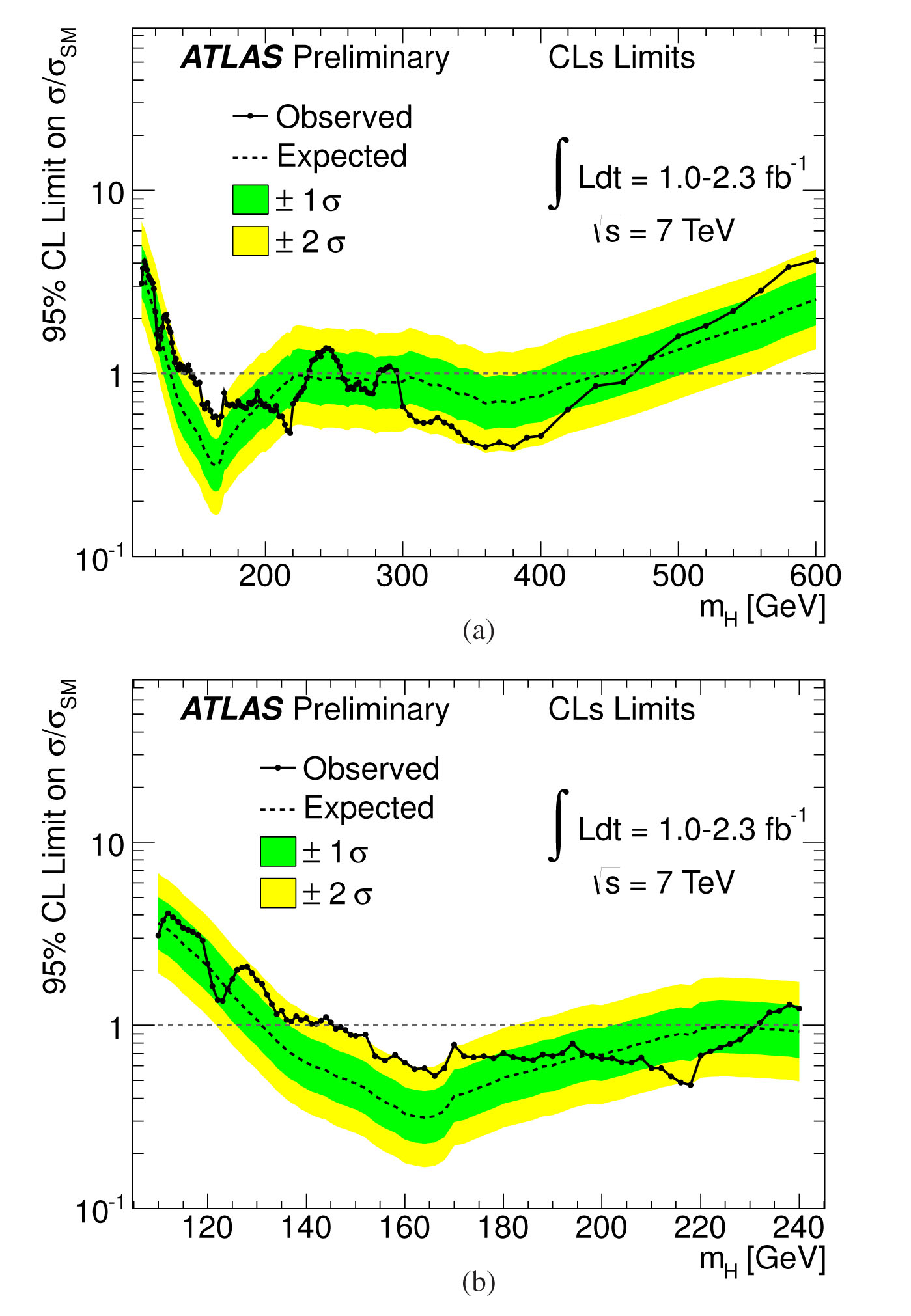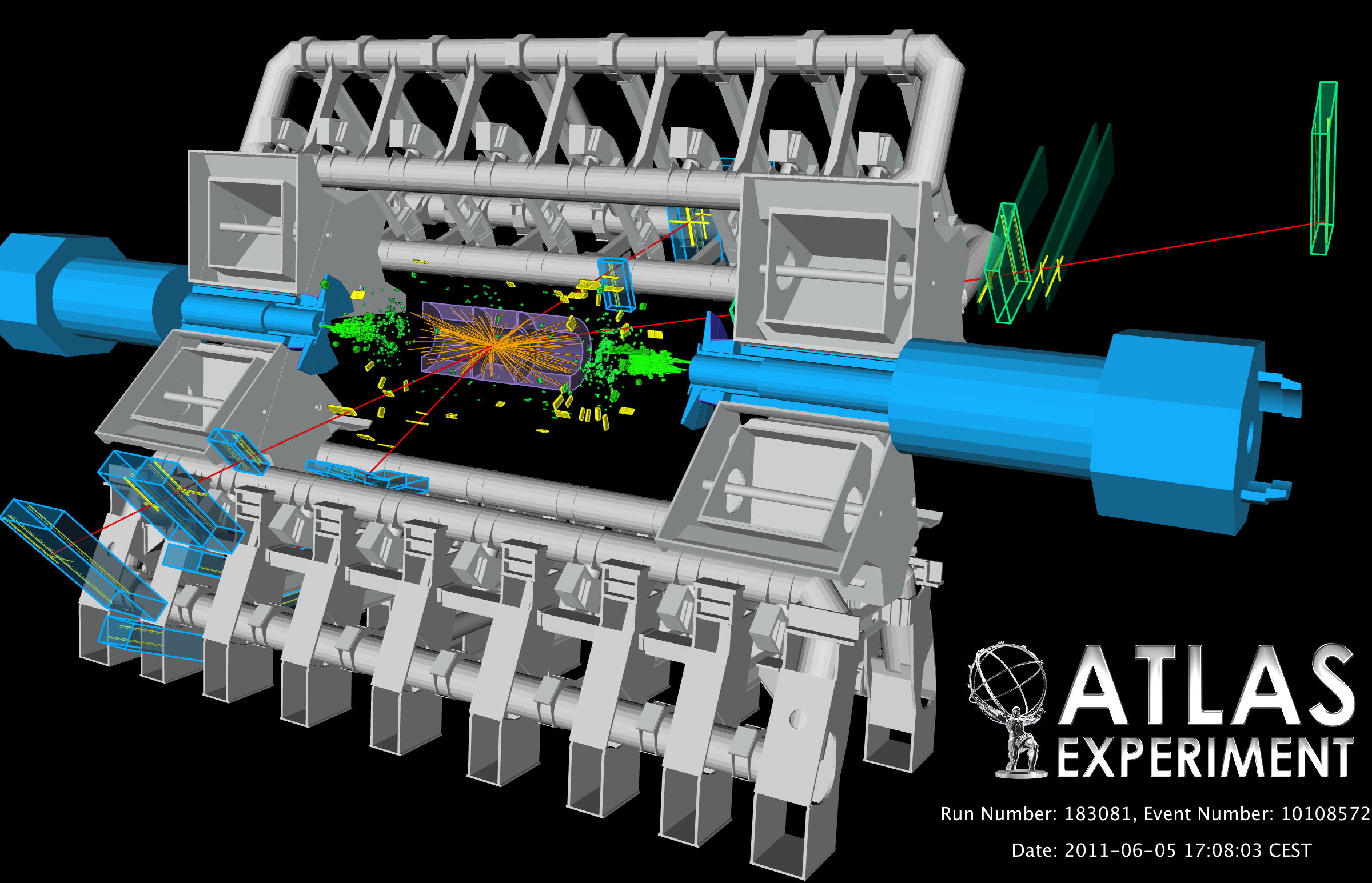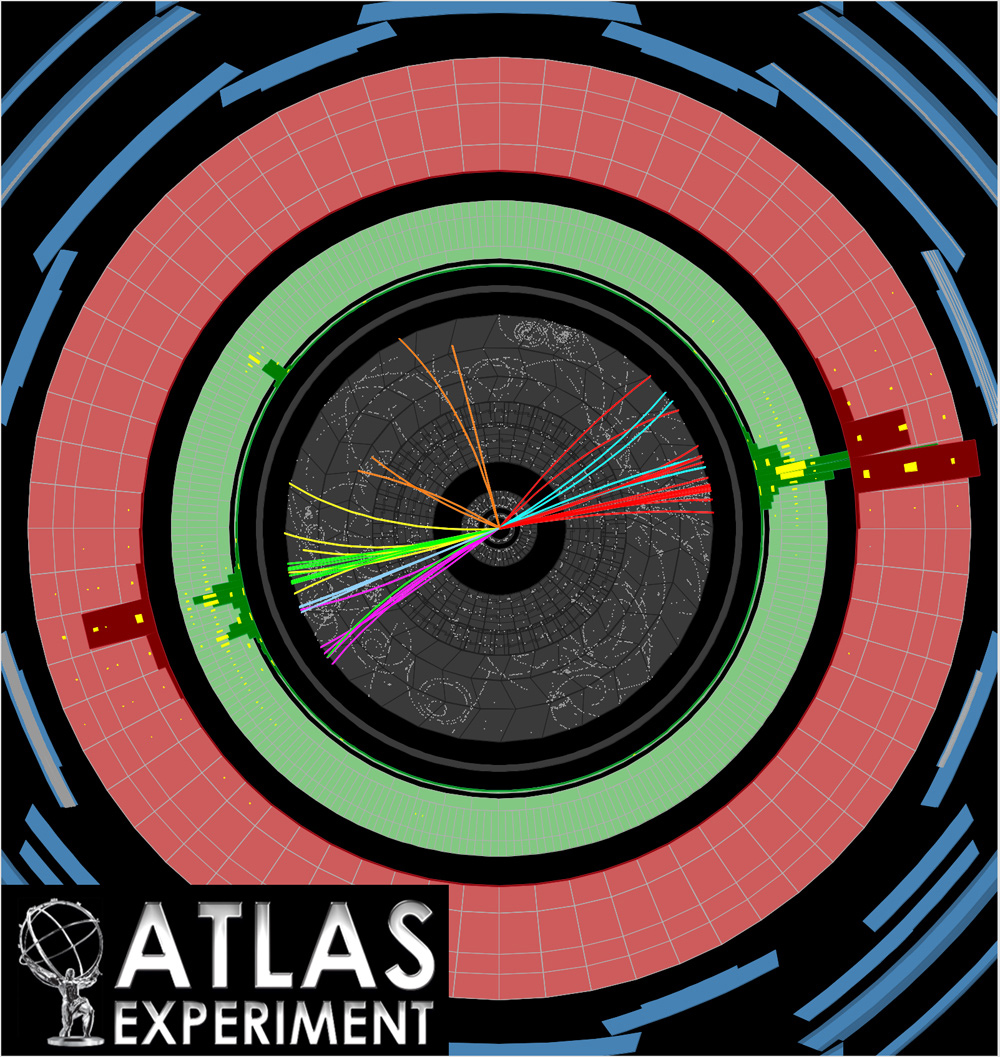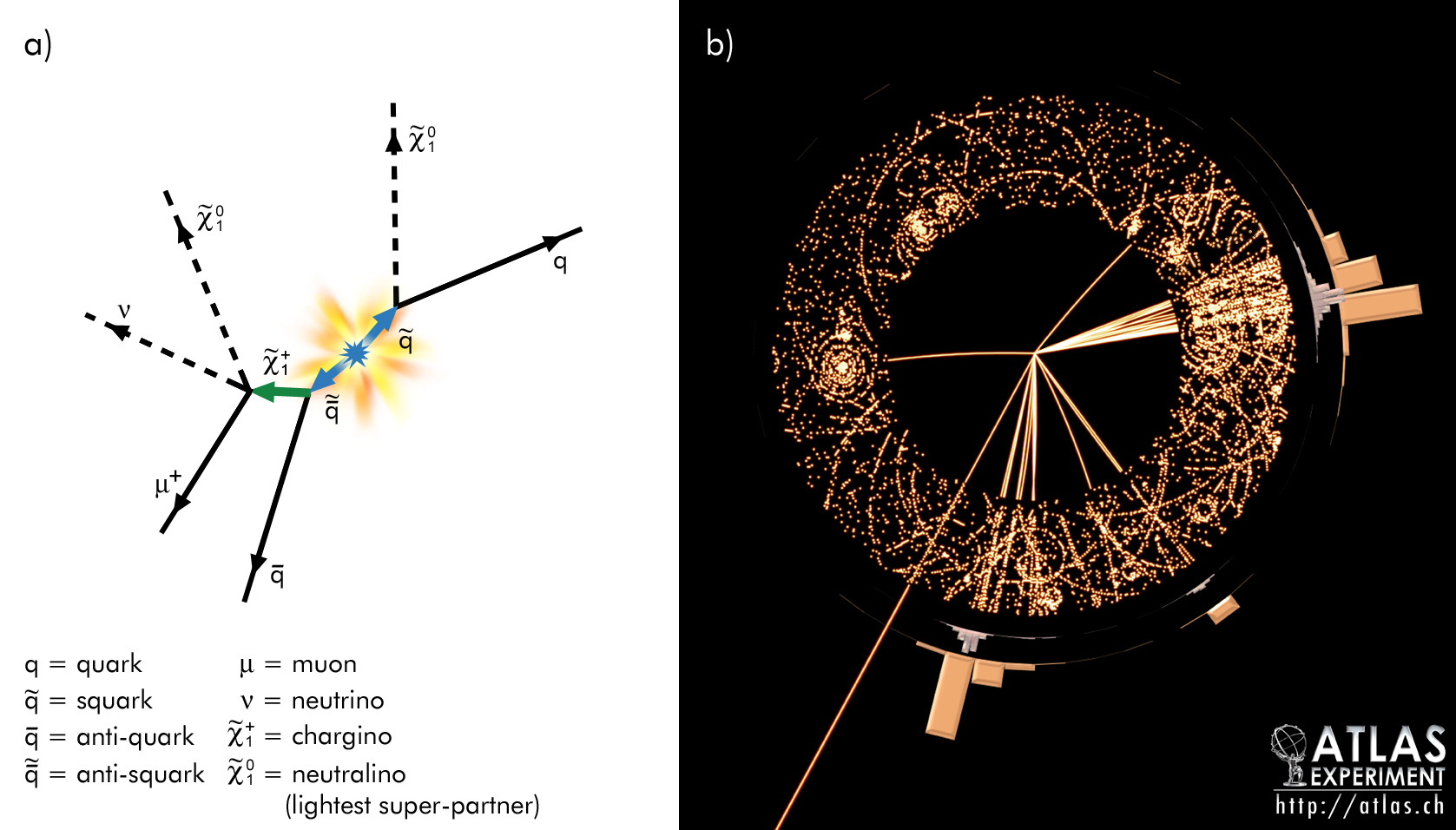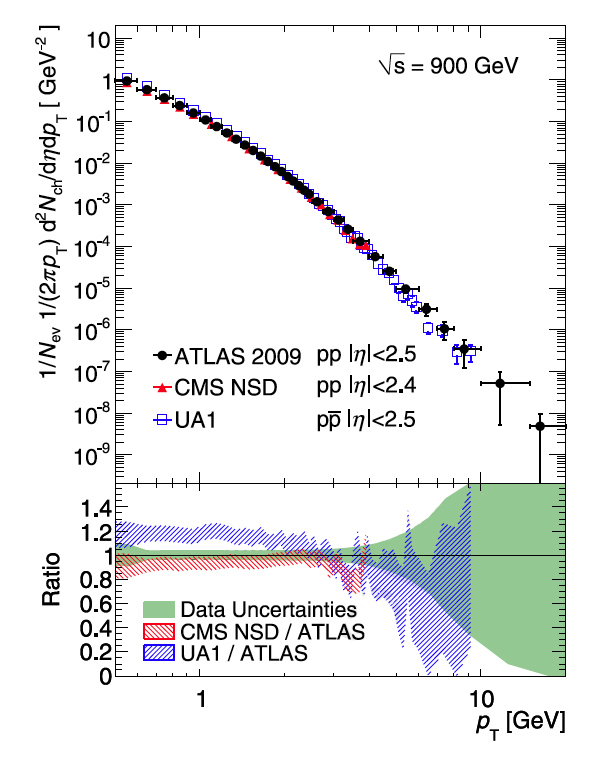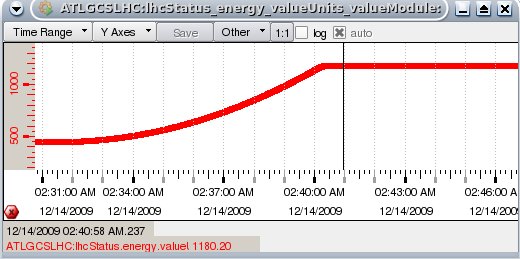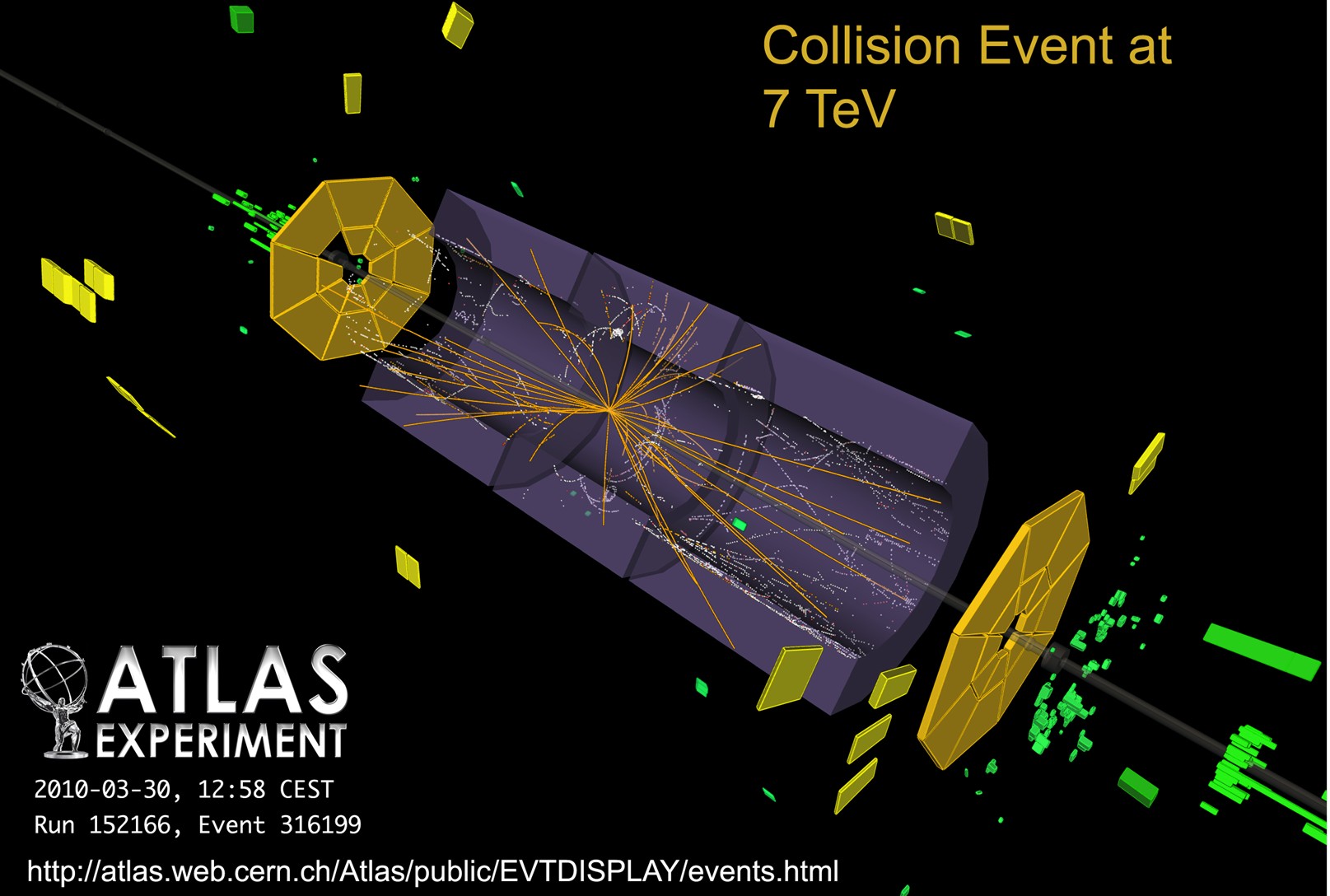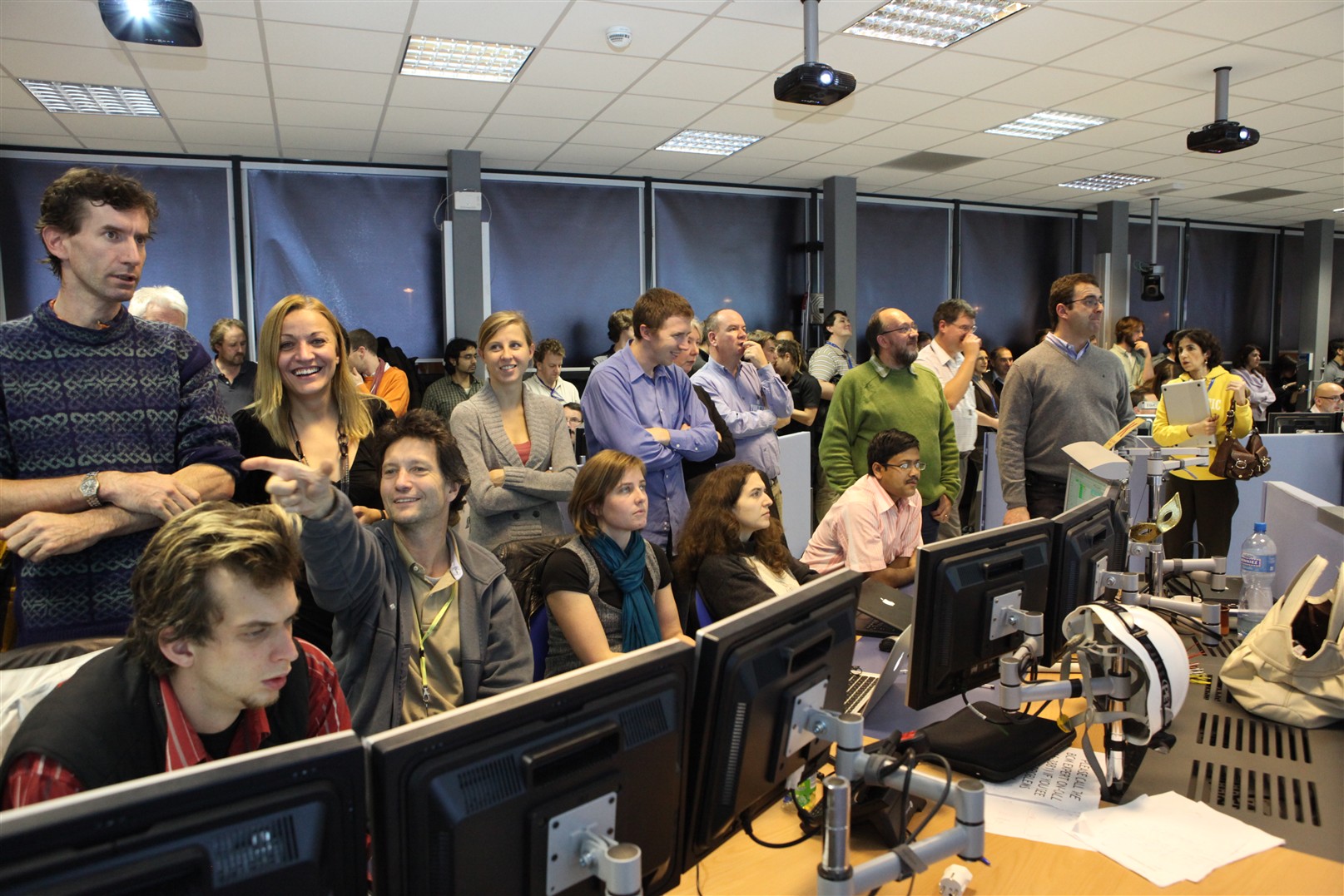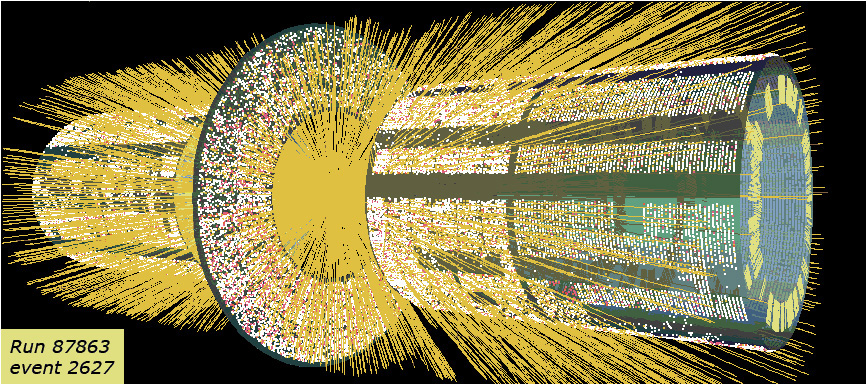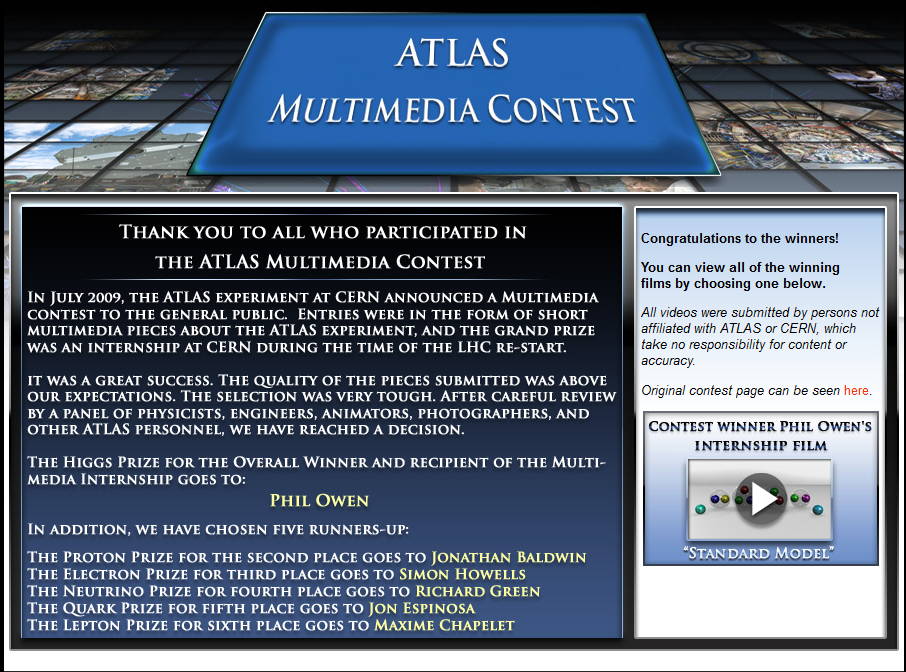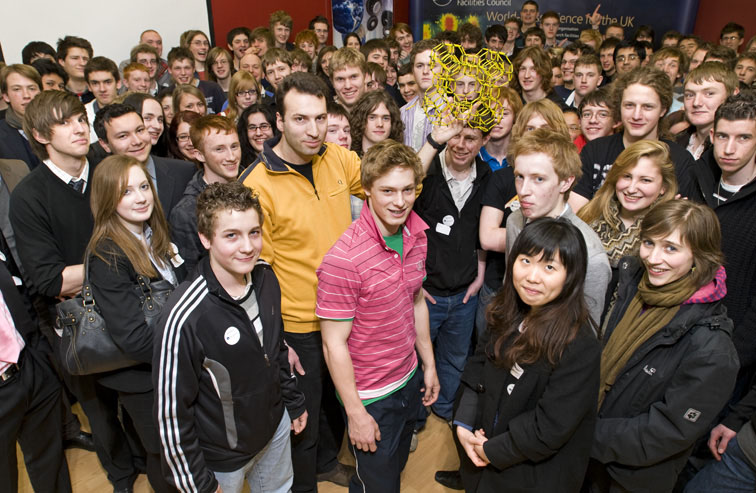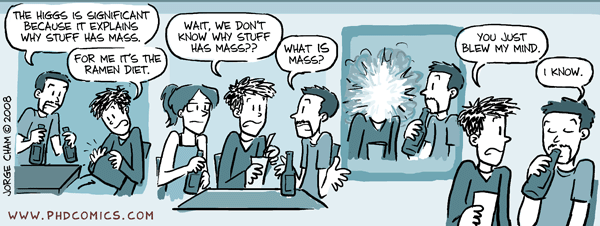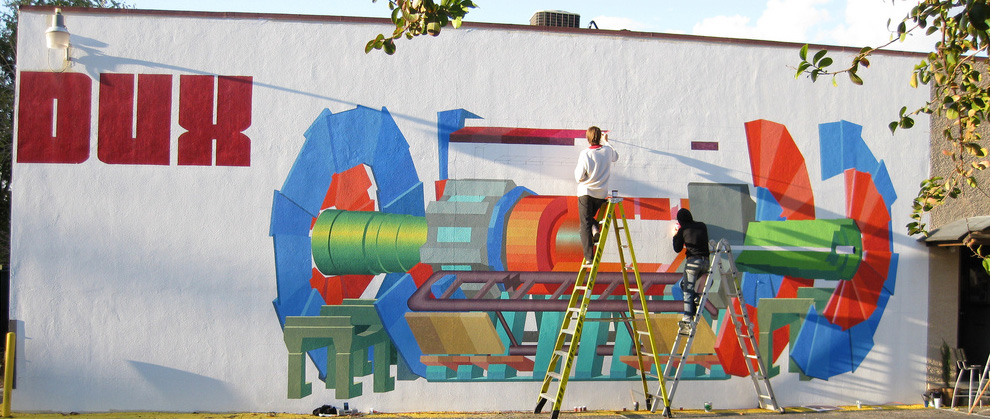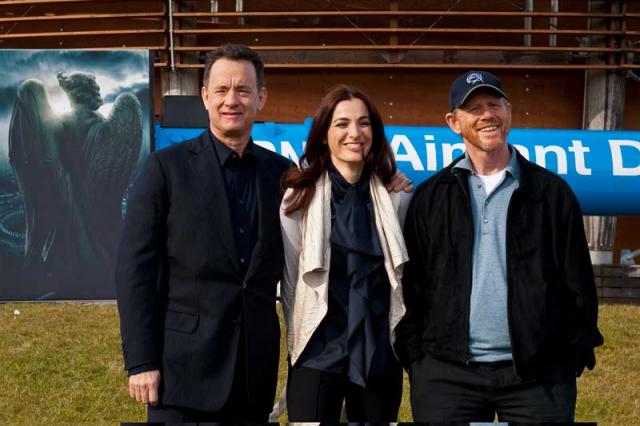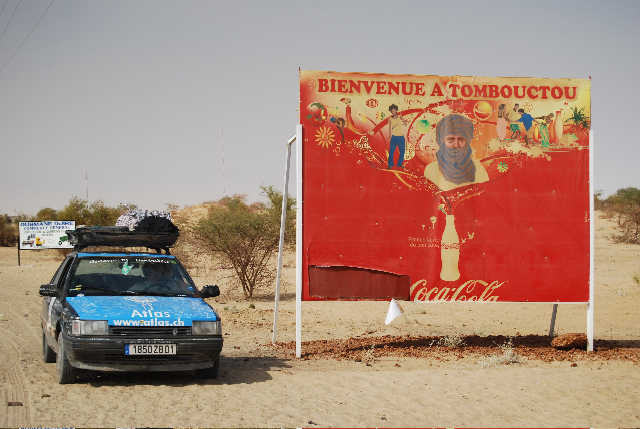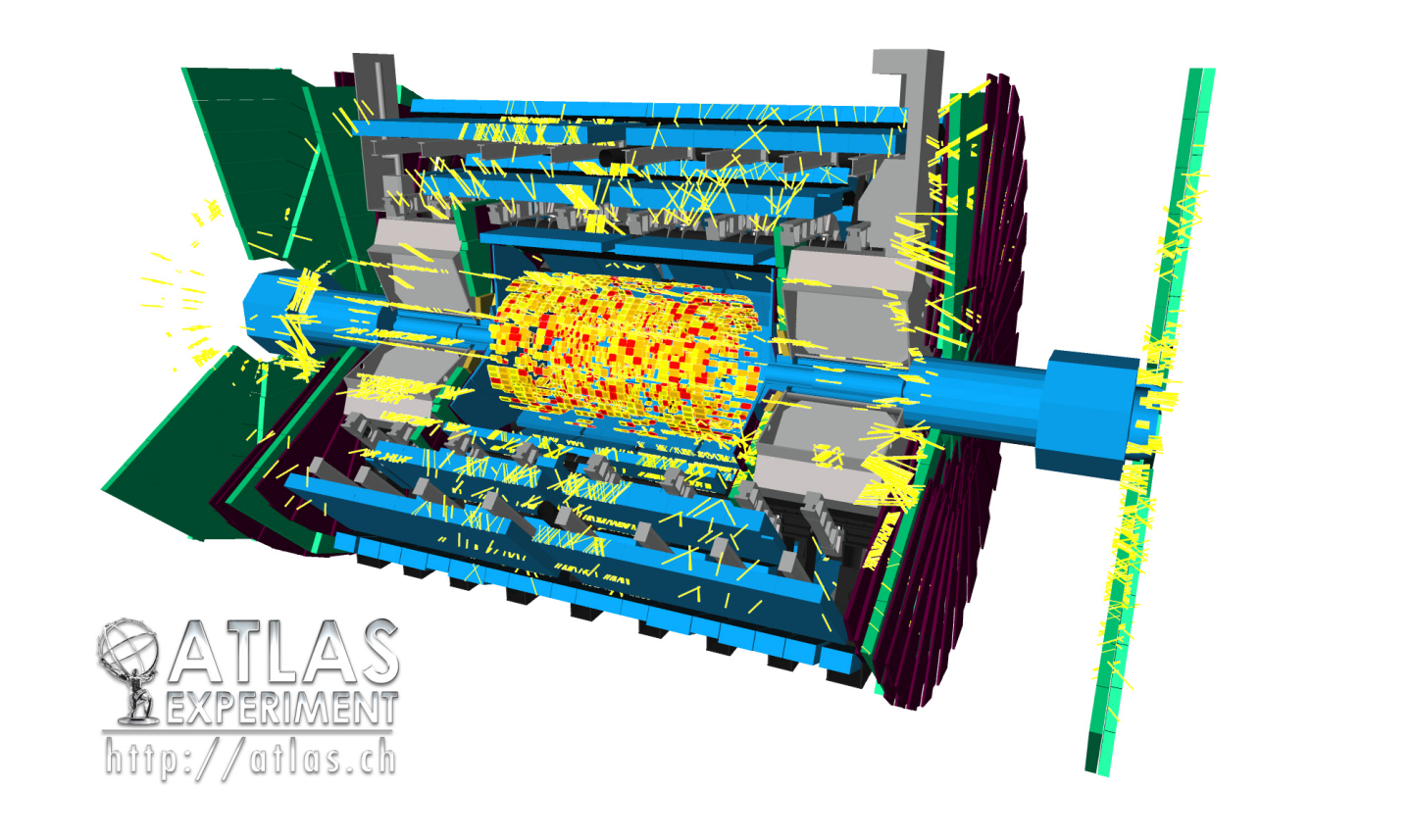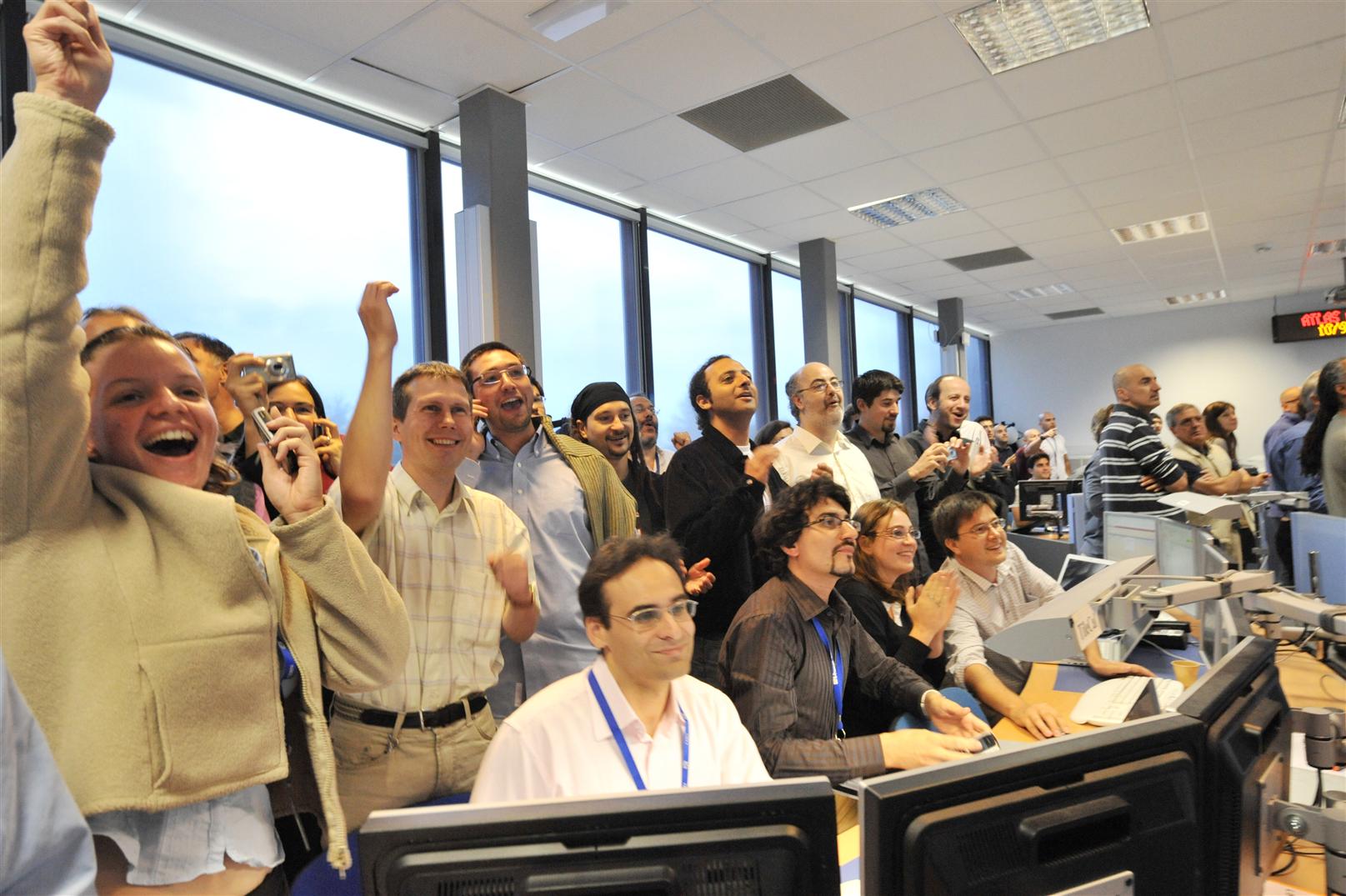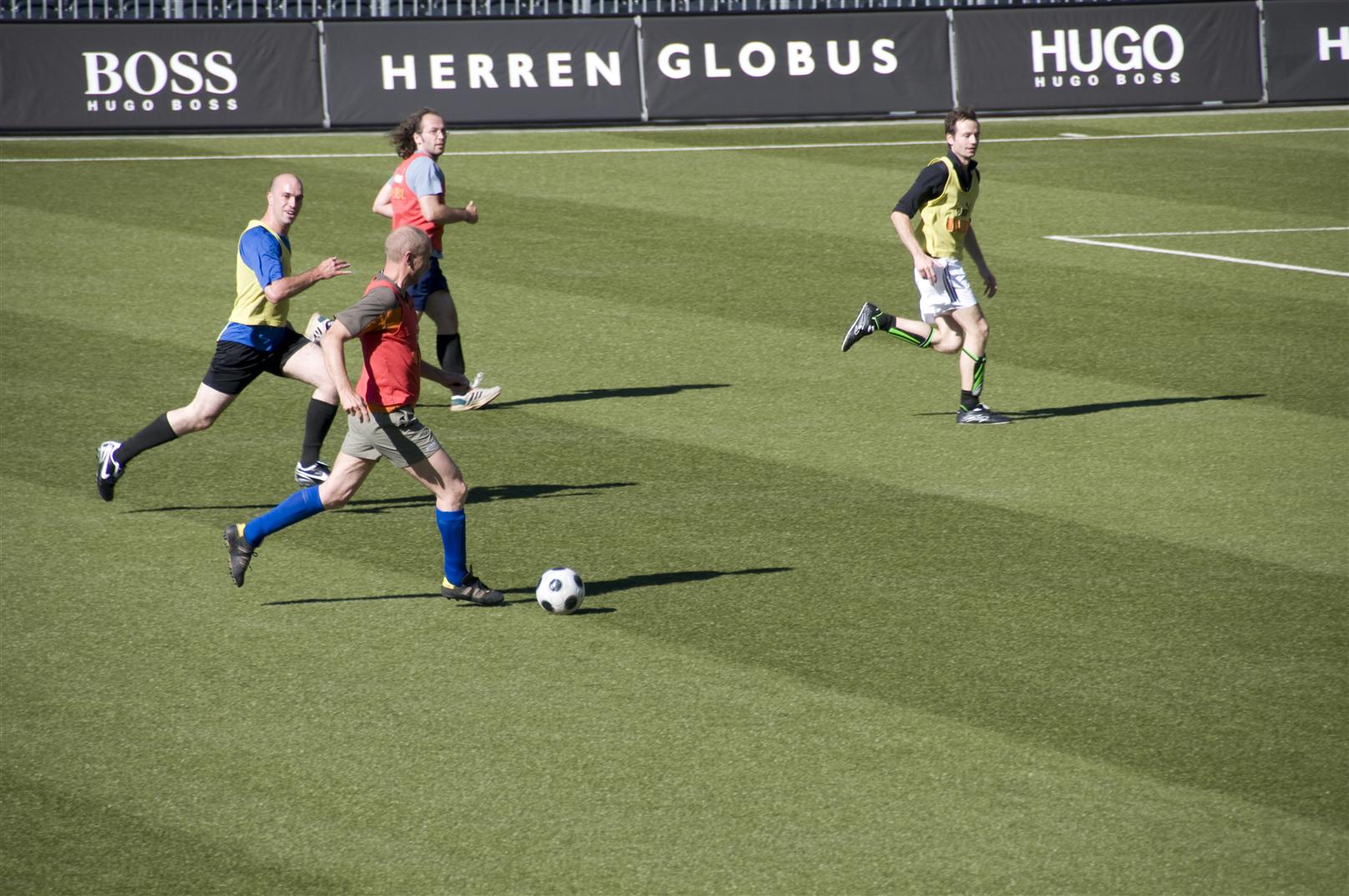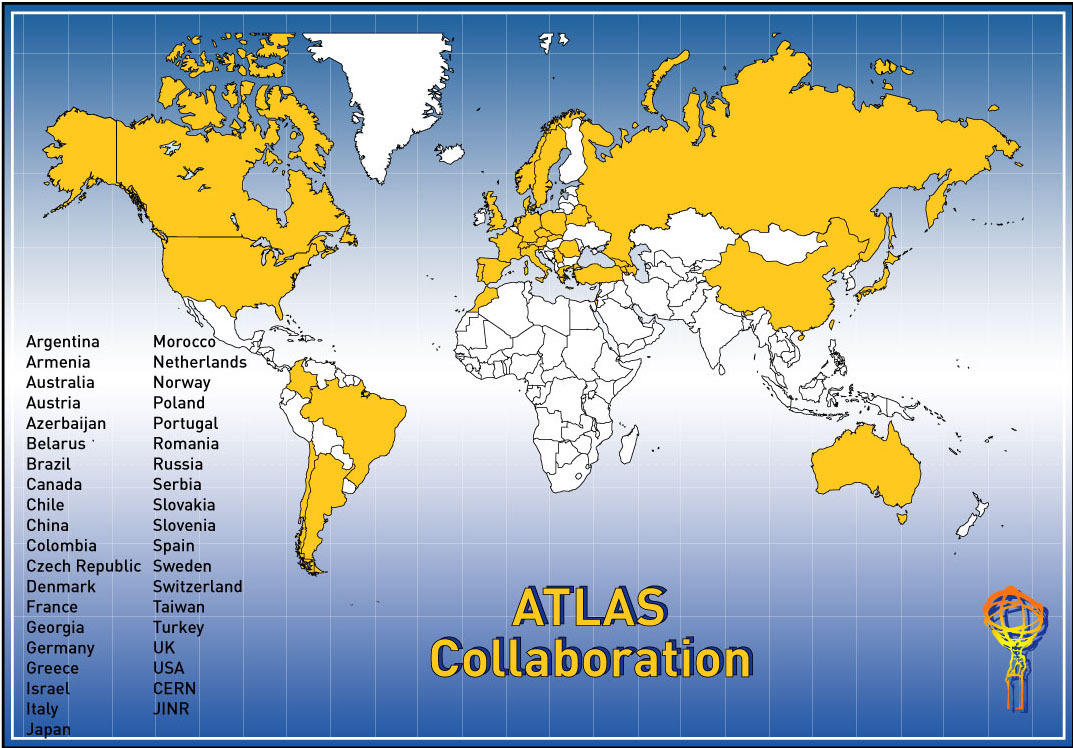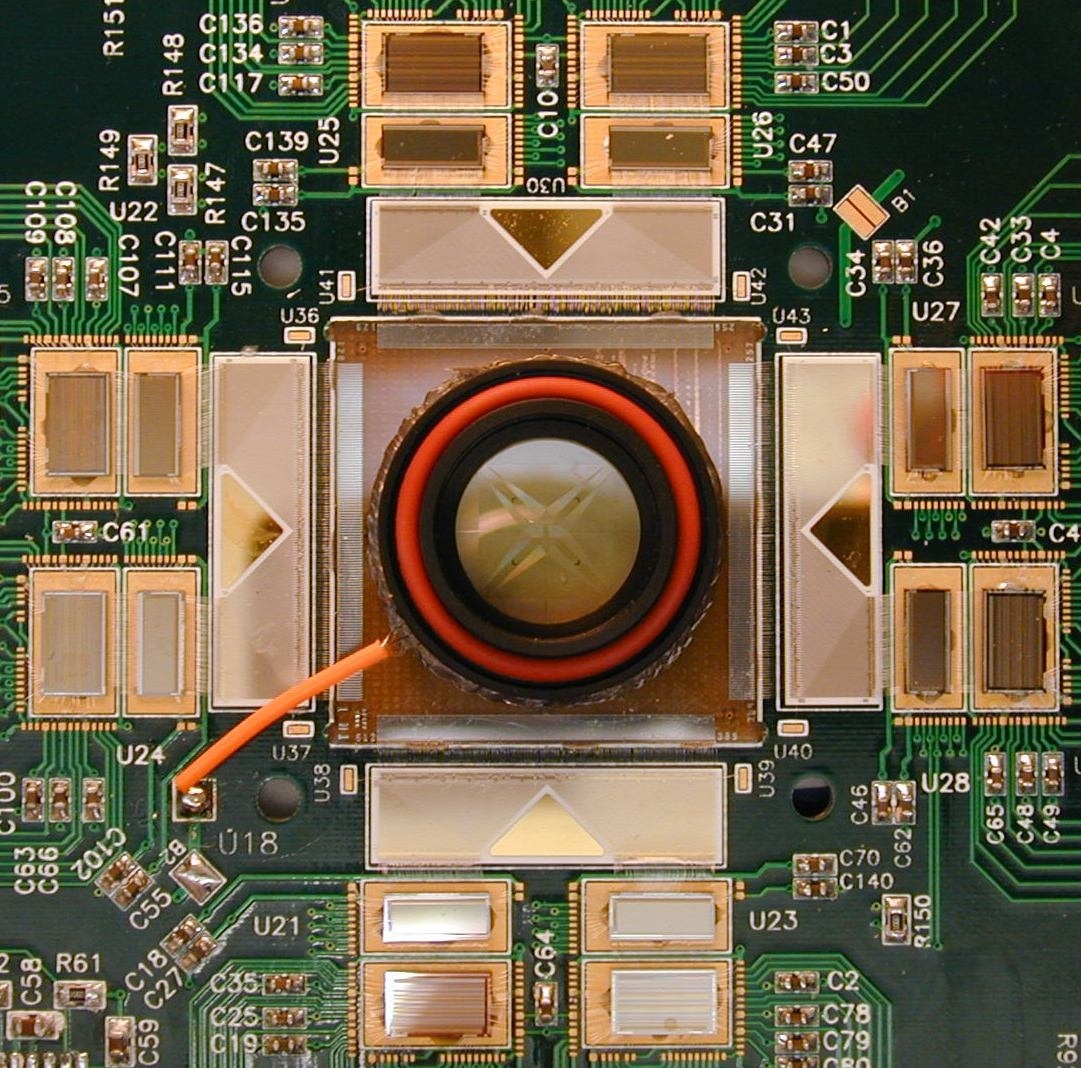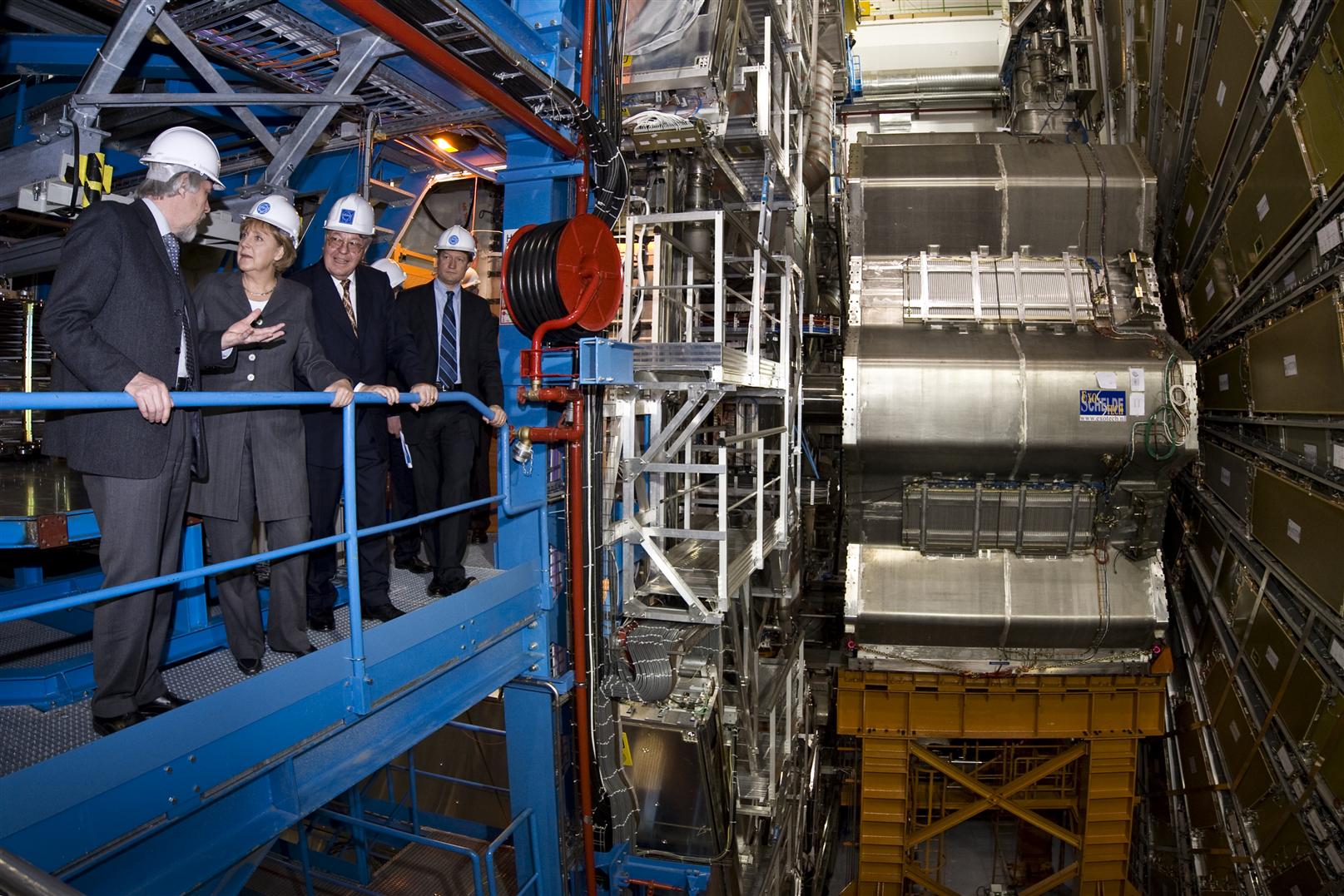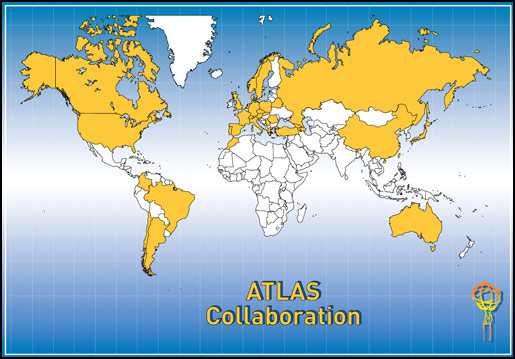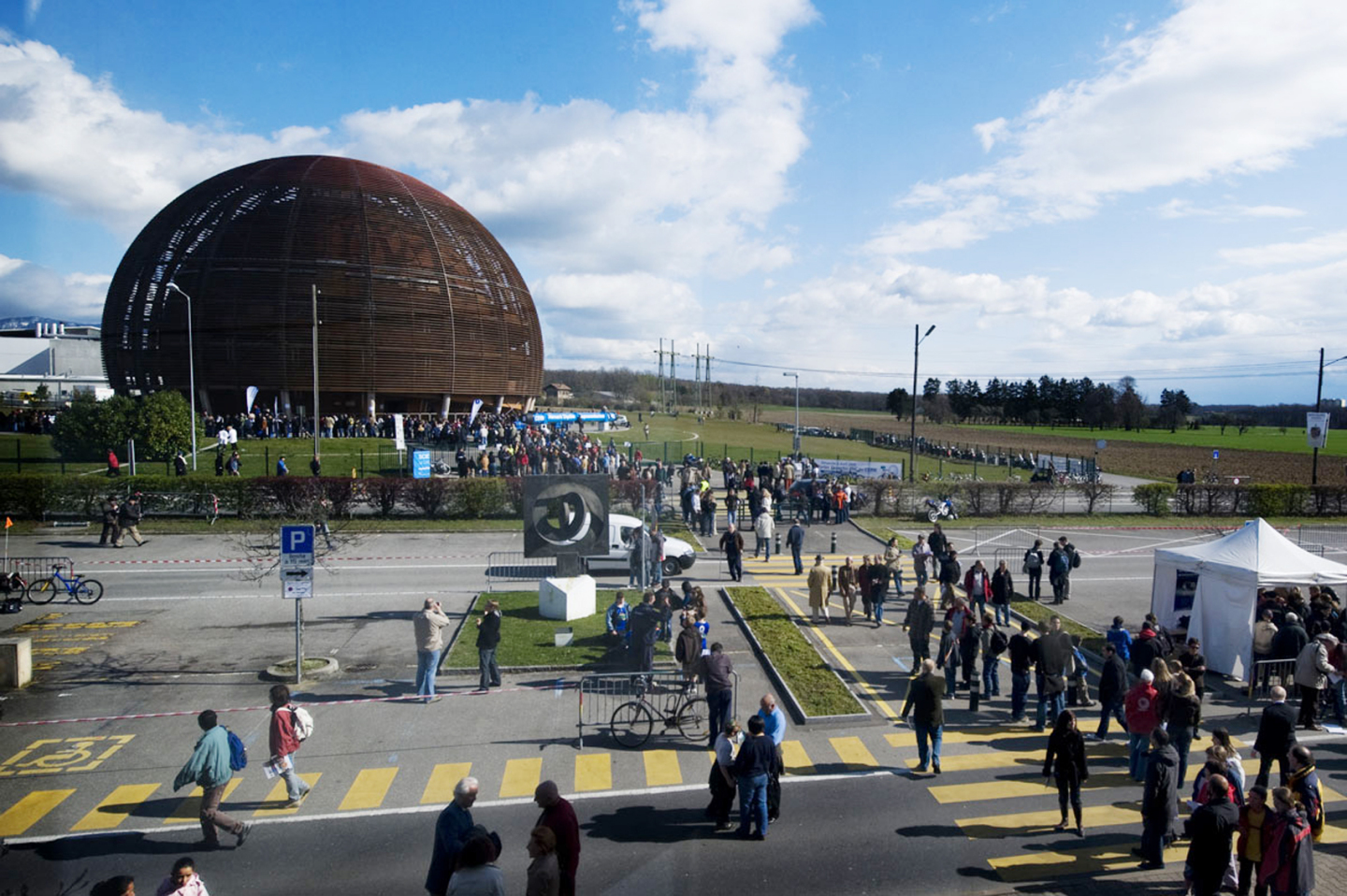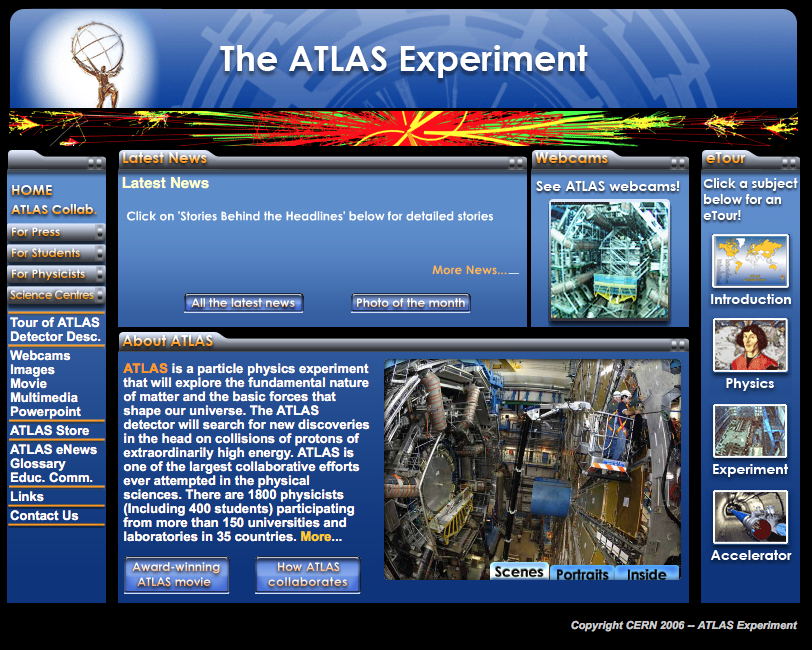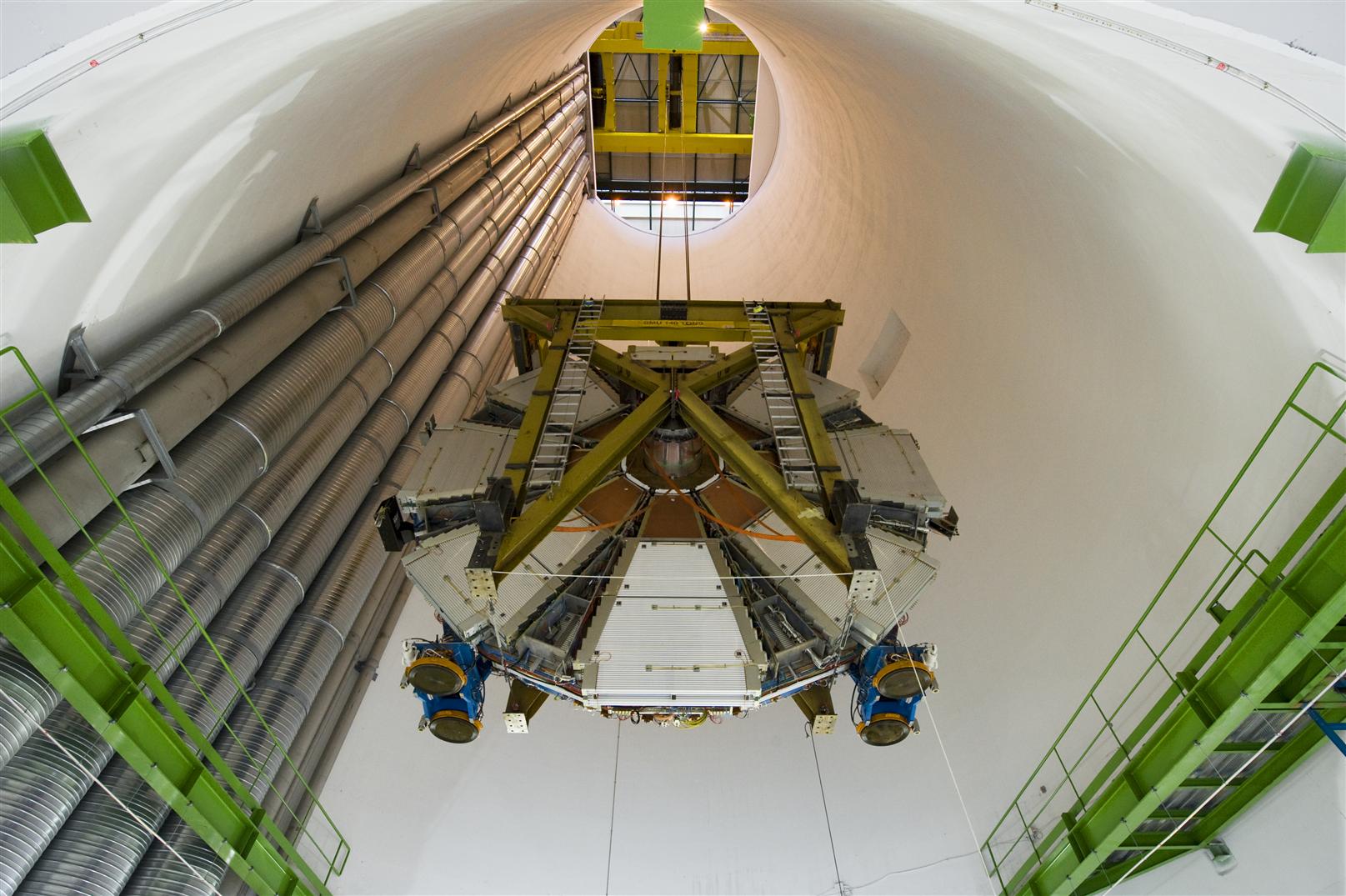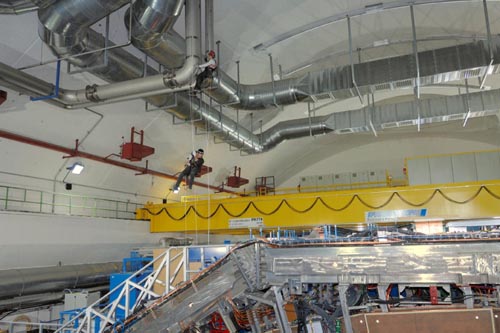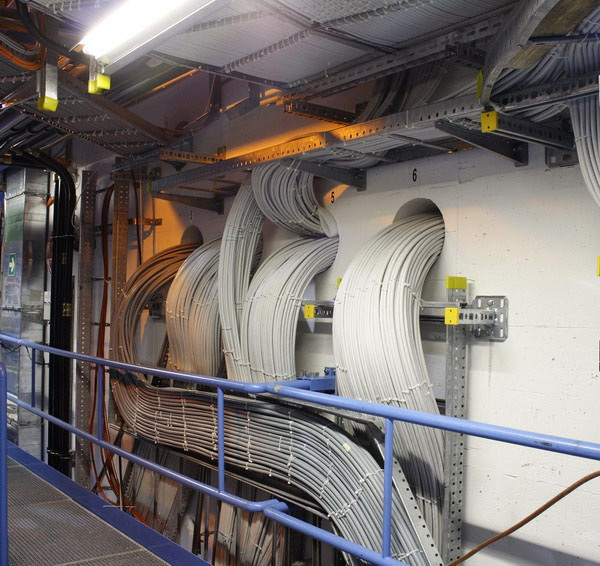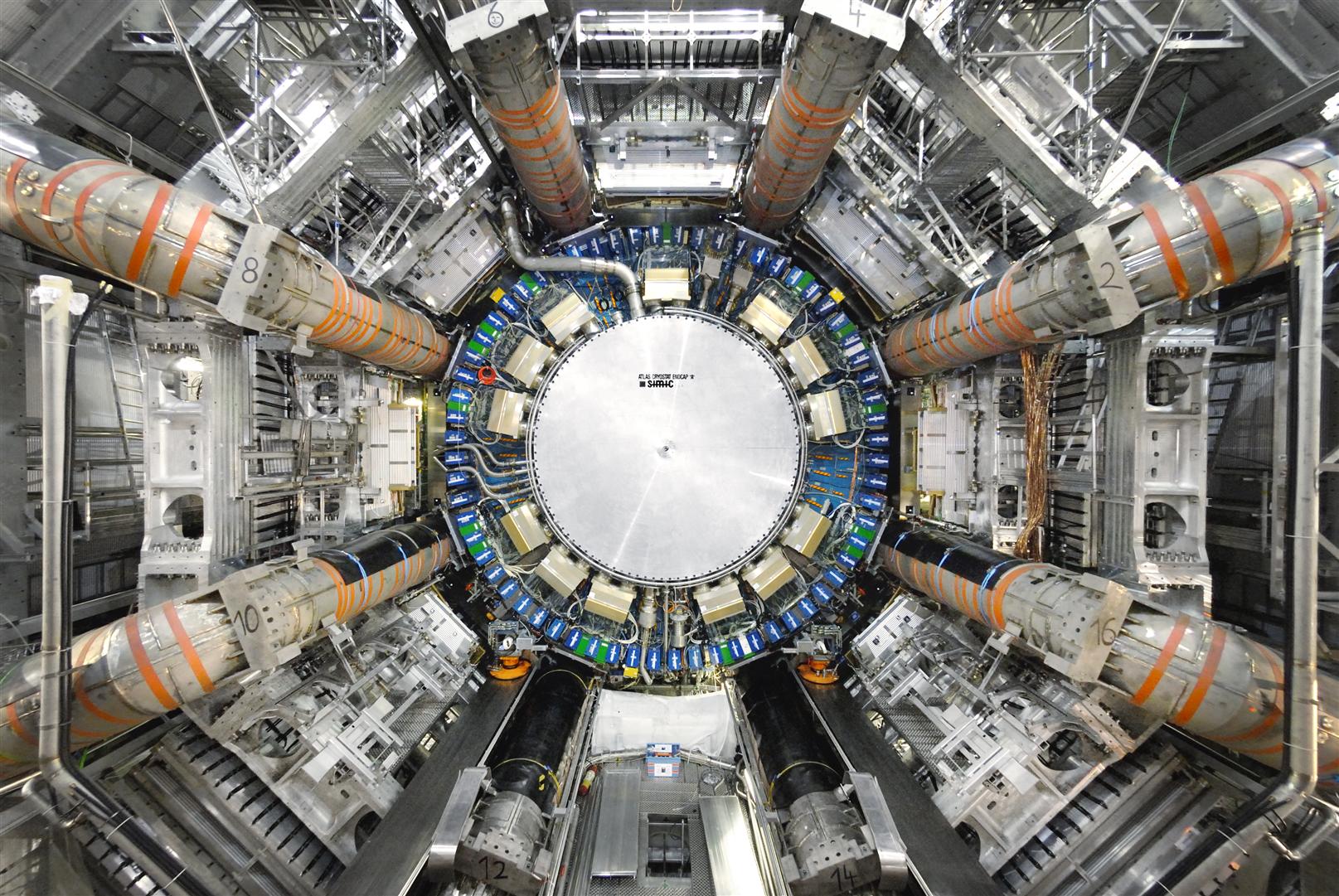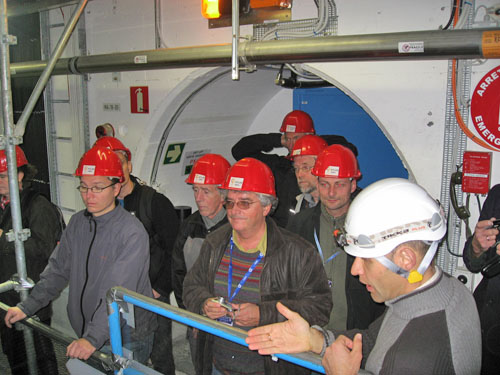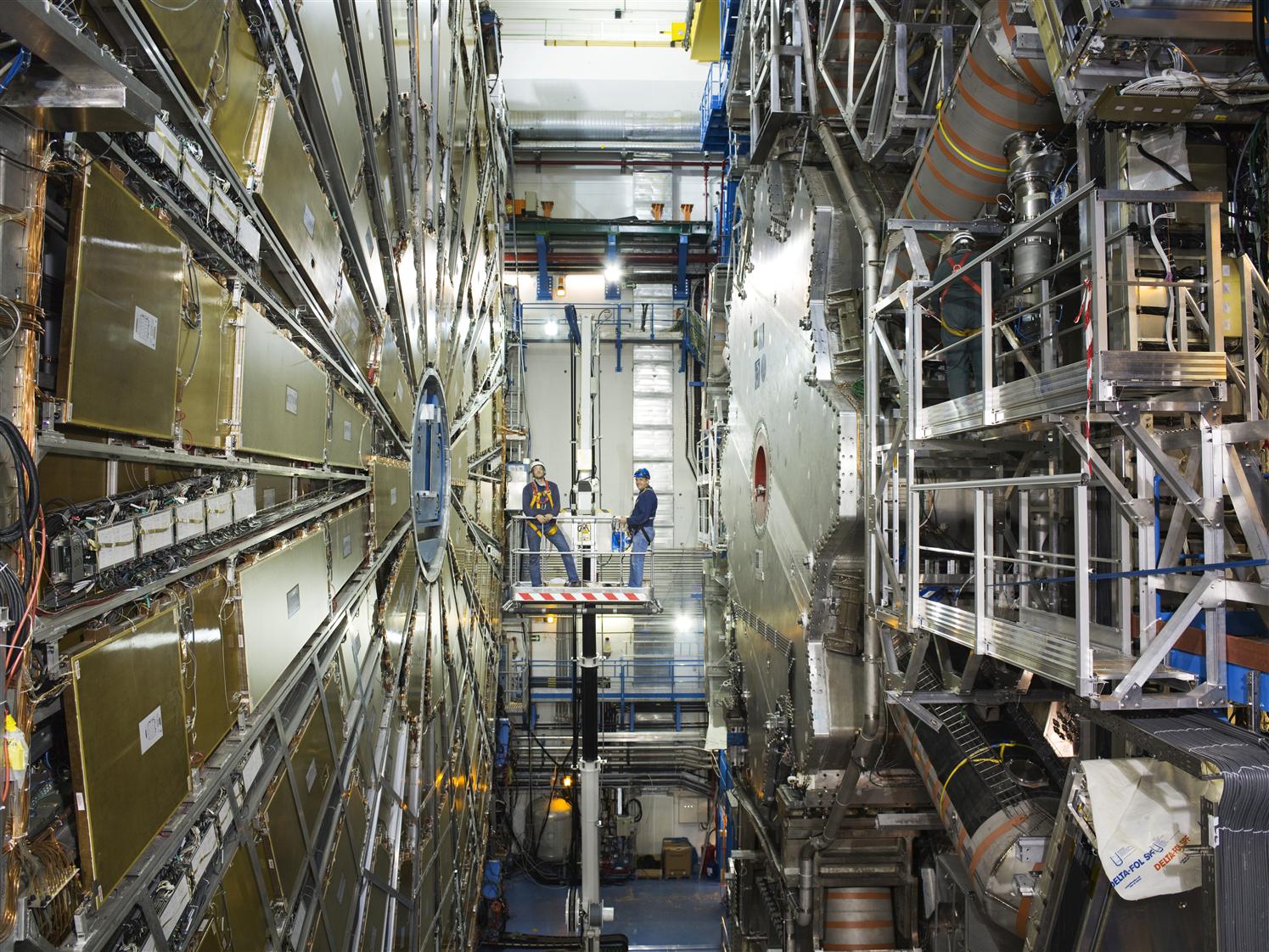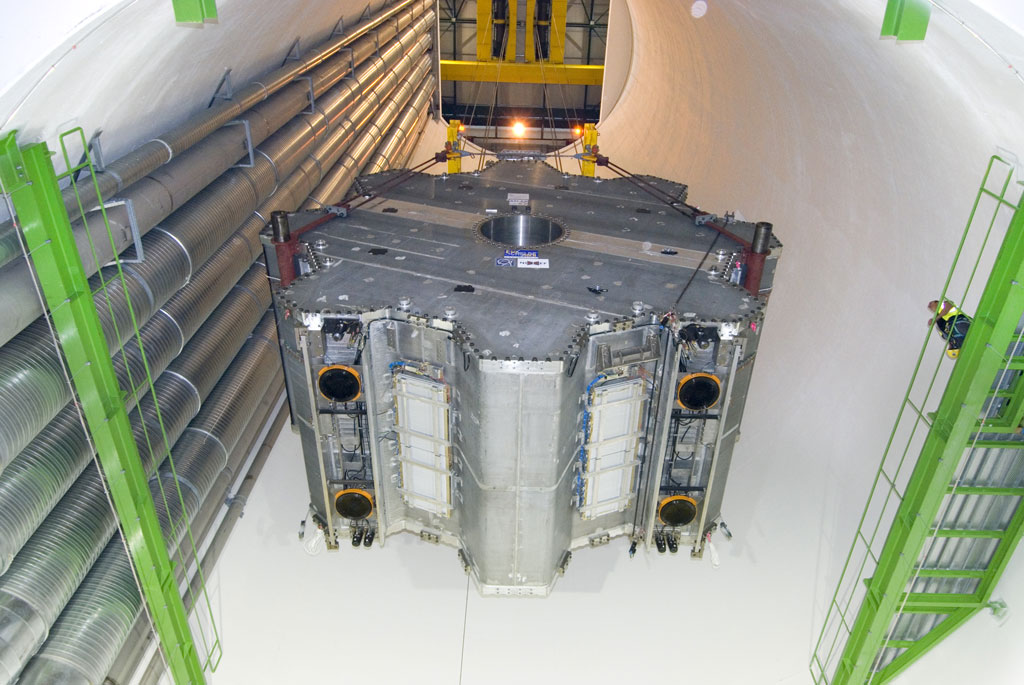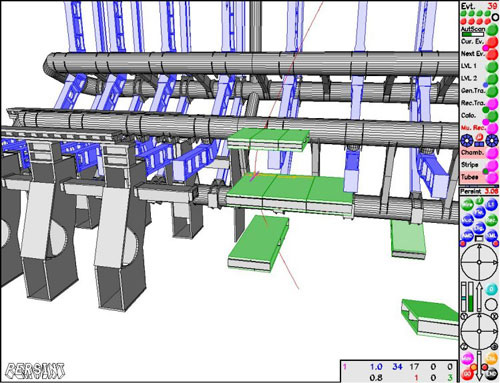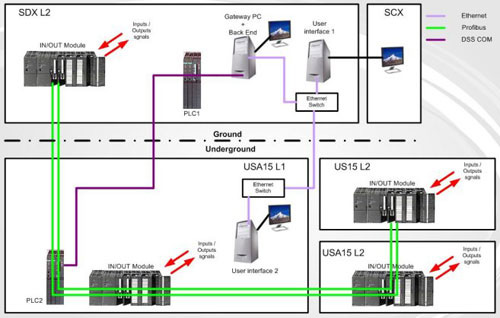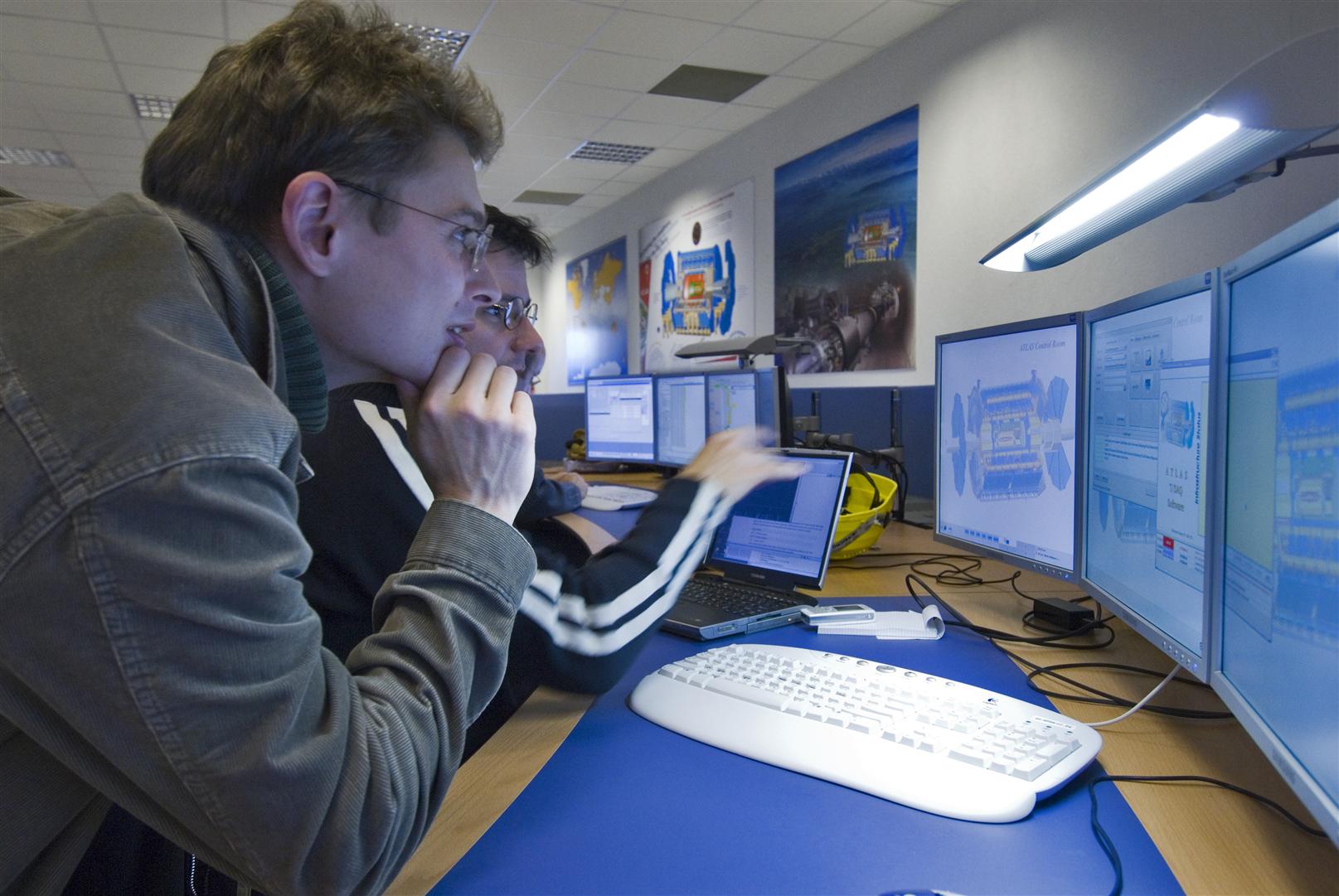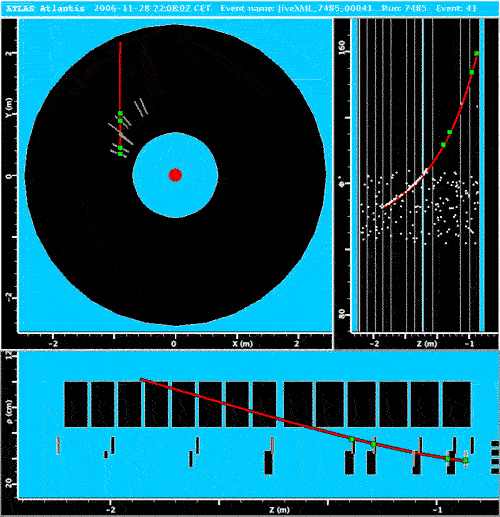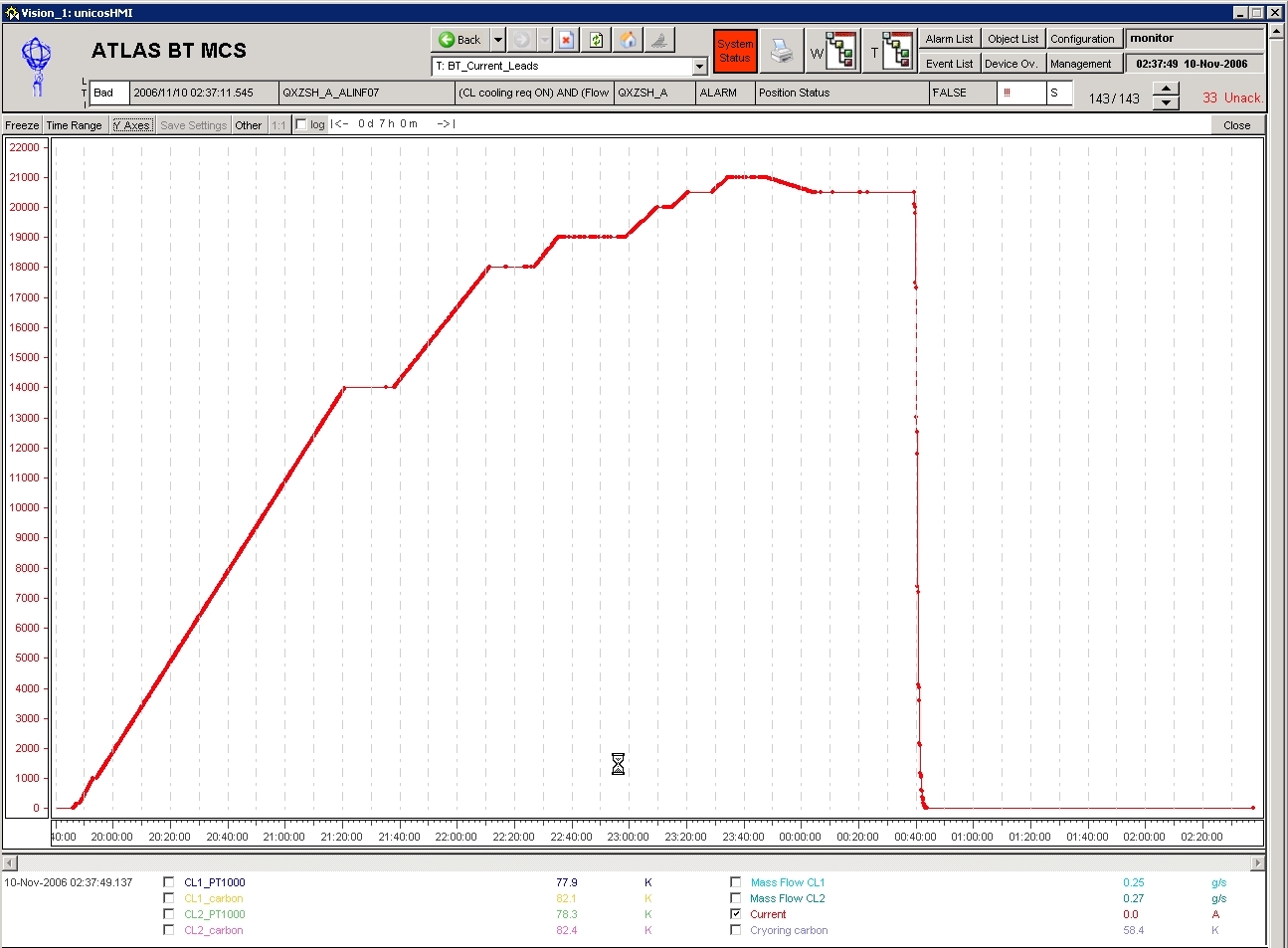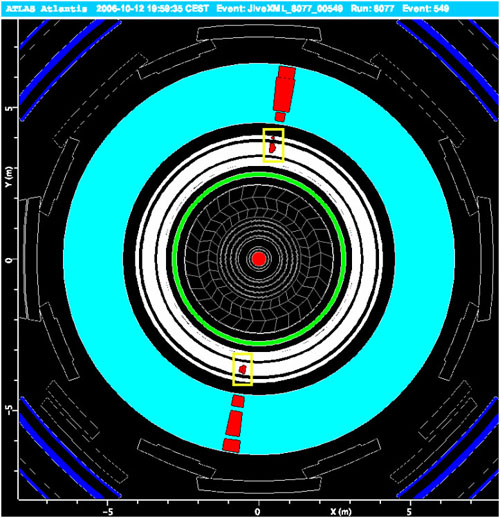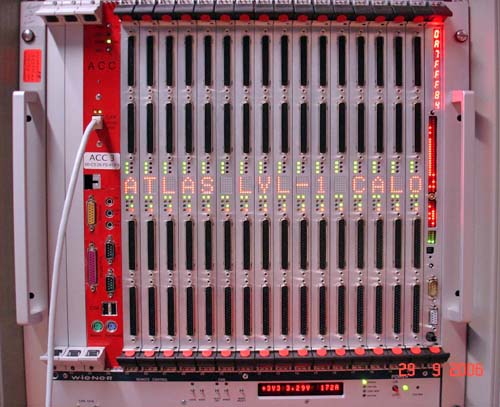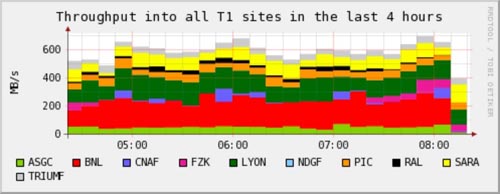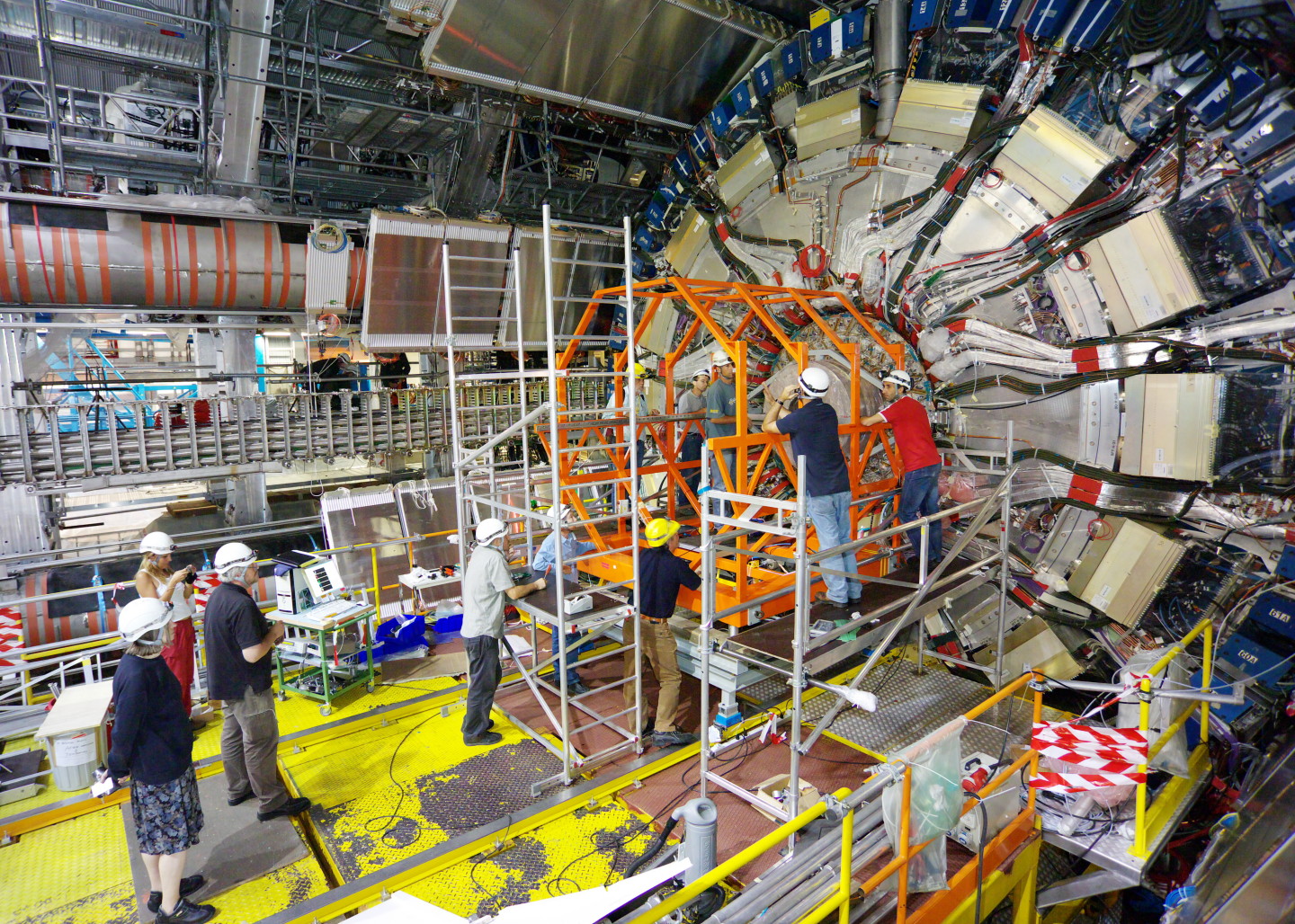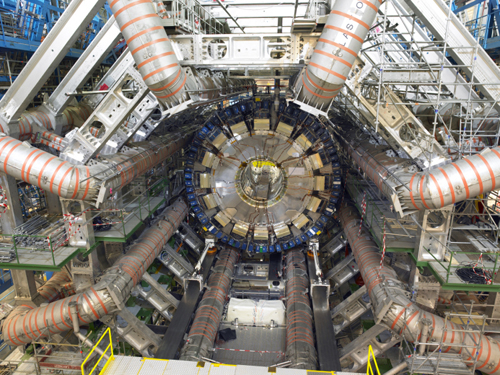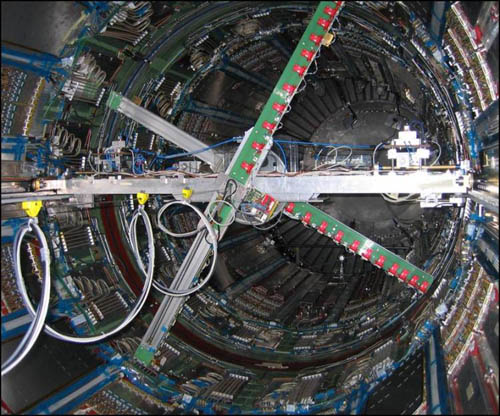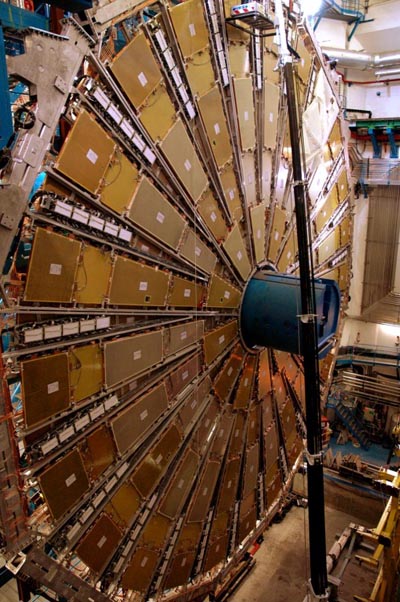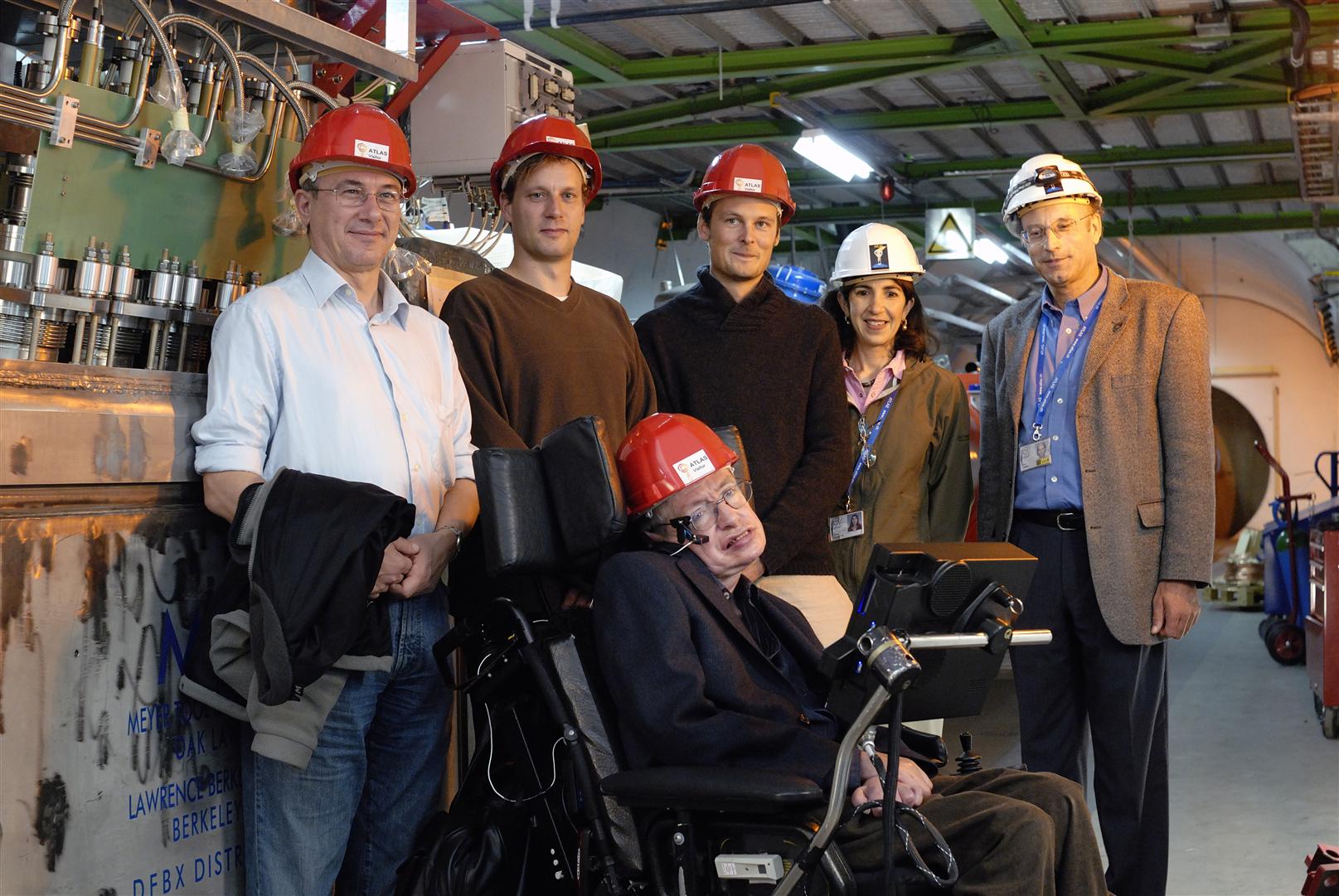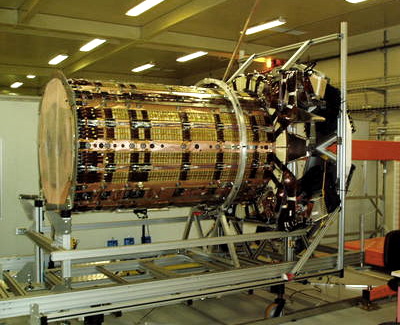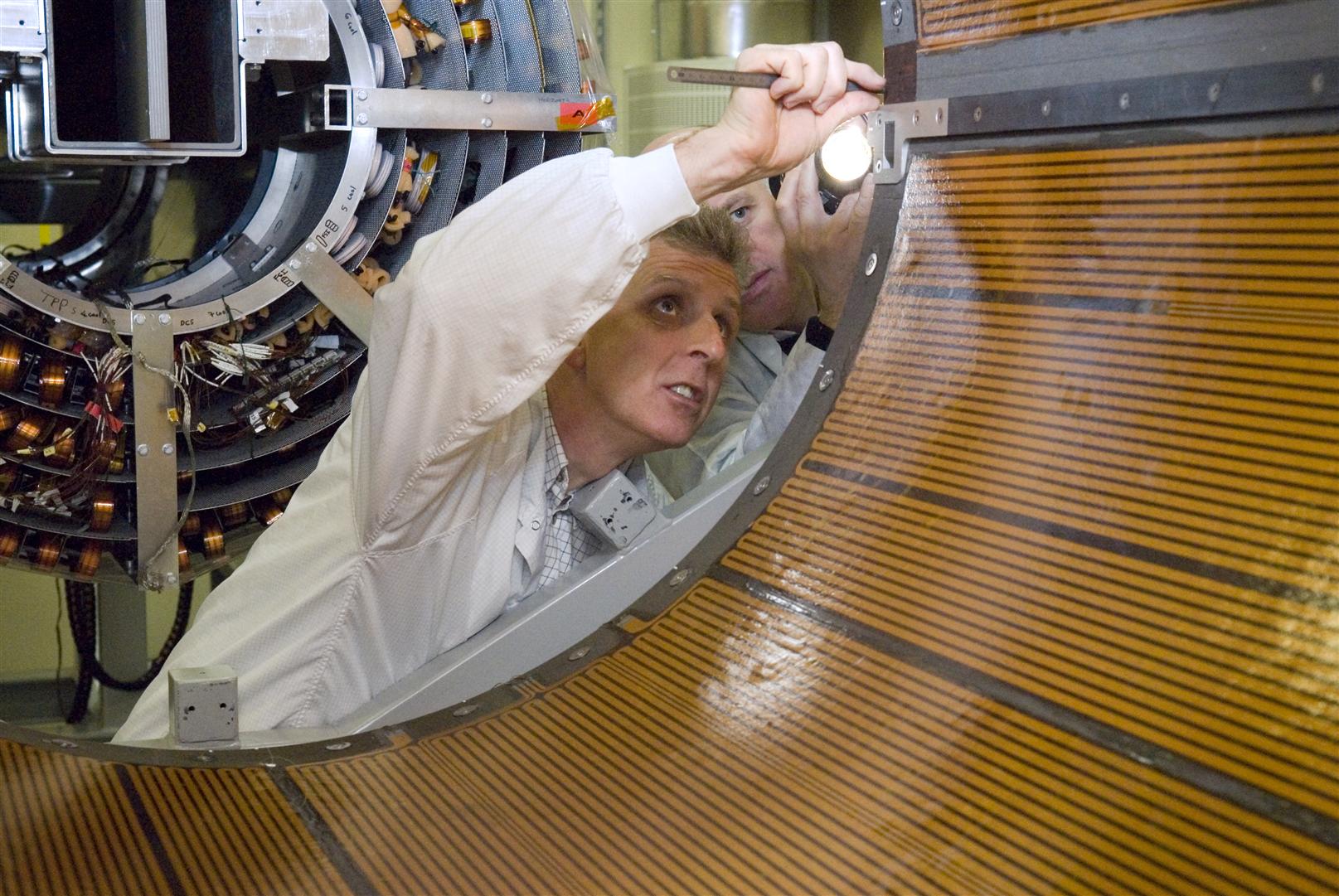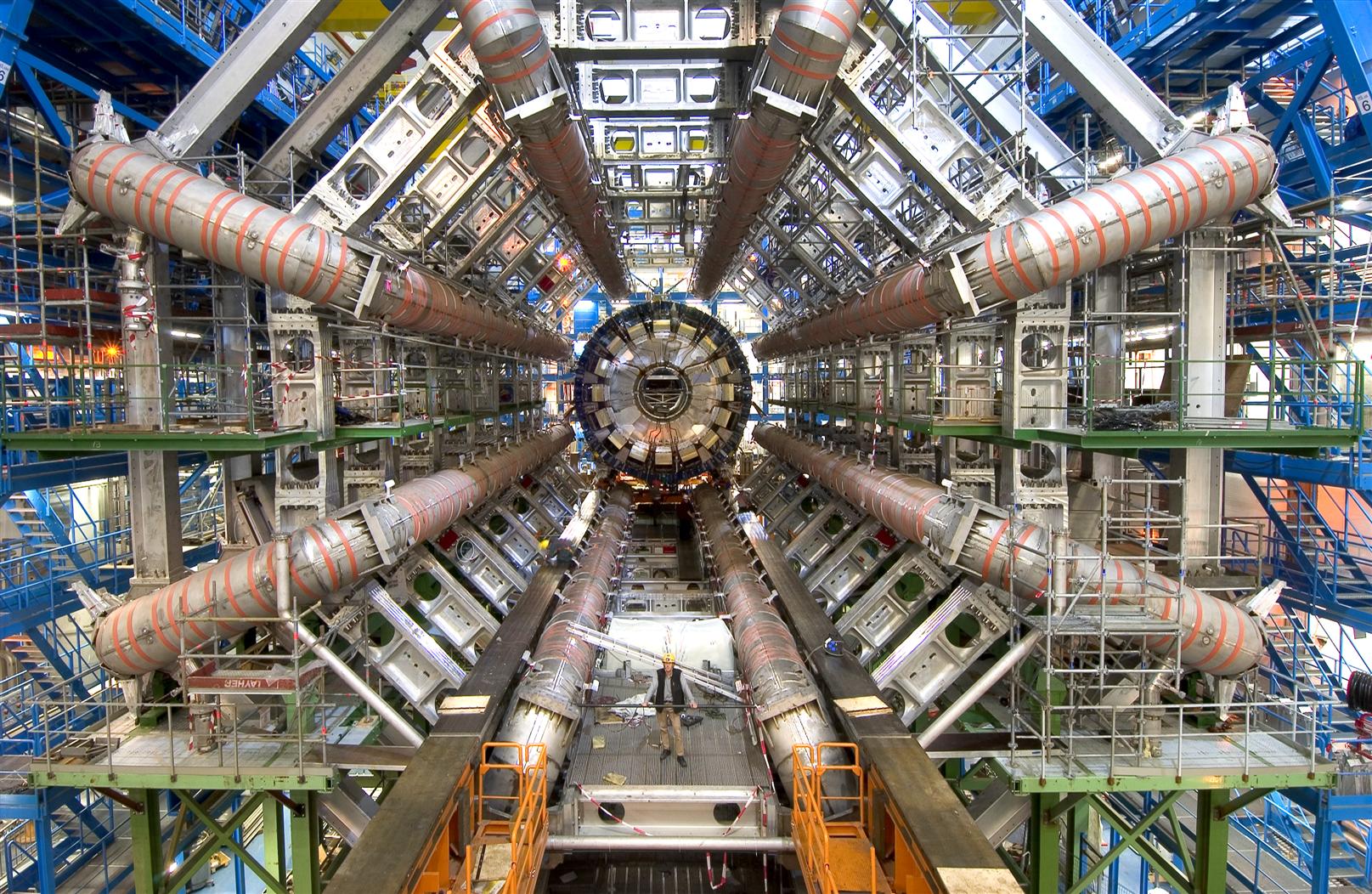Search ATLAS News
New ATLAS results from EPS-HEP
News |
ATLAS takes a breath of oxygen
News |
Celebrating the outstanding achievements of the ATLAS Collaboration
News |
ATLAS Highlights from Quark Matter 2025
News |
ATLAS prepares for High-Luminosity LHC
News |
New ATLAS Results at Moriond25
News |
Steering ATLAS forward with new management
News |
ATLAS celebrates excellence in doctoral research
News |
ATLAS releases first open data from heavy-ion collisions
News |
Summary of new ATLAS results from BOOST 2024
News |
Summary of new ATLAS results from ICHEP 2024
News |
ATLAS releases 65 TB of open data for research
News |
ATLAS and CMS celebrate a decade of innovation by the RD53 Collaboration
News |
Celebrating excellence at the 7th ATLAS Outstanding Achievement Awards
News |
ATLAS dives deeper into di-Higgs: a combined search
News |
Summary of new ATLAS results from LHCP 2024
News |
ATLAS mourns the loss of Peter Higgs
News |
New ATLAS Results at Moriond24
News |
ATLAS welcomes new management
News |
Meet the winners of the 2023 ATLAS Thesis Awards
News |
Exploring the Weak Force with ATLAS
News |
ATLAS Live talk: Chasing the unknown (with the very well known!) by Dr Ludovica Aperio Bella
News |
ATLAS Live talk: How does ATLAS study heavy-ion collisions?
News |
A summer for science
For many students, a summer internship is a rite of passage — and a gateway to future jobs. Looking for a valuable glimpse into what a future in physics might hold, dozens of university students from around the world headed to CERN to participate in the Summer Student Programme and engage with cutting-edge scientific research at the ATLAS Experiment. With the support of their supervisors, these students have been deepening their knowledge of particle physics, engineering and computing through challenging projects. These are the stories of 12 of these students.
News |
Summary of new ATLAS results from Quark Matter 2023
News |
Summary of new ATLAS results from BOOST 2023
News |
Summary of new ATLAS results from 2023 summer conferences
News |
ATLAS highlights from LHCP 2023
News |
Summary of new ATLAS results from LHCP 2023
News |
ATLAS Live: Behind the Scenes at the Control Room
News |
ATLAS highlights from the Moriond 2023 conference
News |
Summary of new ATLAS results from 2023 Winter Conferences
News |
ATLAS management begins new term
News |
Winners of the 2022 ATLAS Thesis Awards announced
News |
ATLAS and Seal Storage Technology collaborate on new archival storage
News |
ATLAS celebrates 30 years of collaboration
News |
ATLAS Highlights from ICHEP 2022
News |
Summary of new ATLAS results from ICHEP 2022
News |
ATLAS & CMS Higgs study 2022
News |
Outstanding Achievement Awards
News |
Summary of new ATLAS results from LHCP 2022
The tenth edition of the annual conference on Large Hadron Collider physics (LHCP 2022) begins today in video-conference rooms around the world.
News |
Beams splash in ATLAS
News |
ATLAS highlights from the Moriond 2022 conference
News |
ATLAS Live talk: Artificial Intelligence, Machine Learning and the Higgs boson with Dr. David Rousseau
News |
Summary of new ATLAS results from 2022 Winter Conferences
News |
And the ATLAS Thesis Awards go to…
News |
ATLAS Live talk: Exploring electroweak phenomena with Dr. Karolos Potamianos
News |
Summary of new ATLAS results from Lepton Photon 2021
The 30th International Symposium on Lepton Photon Interactions at High Energies (Lepton Photon 2021) kicks off today. Explore the ATLAS results that will be presented.
News |
ATLAS Live talk: Building the Data Haystack with Dr Heather Russell
News |
Detectors for a new era of ATLAS physics
News |
Bringing new life to ATLAS data
News |
ATLAS Live talk: Studying the top quark at the LHC with Dr Maria Moreno Llácer
News |
ATLAS highlights from the EPS-HEP 2021 conference
News |
Summary of new ATLAS results from EPS-HEP 2021
The European Physical Society Conference on High Energy Physics (EPS-HEP 2021) kicks off today. Explore the ATLAS results that will be presented.
News |
Live from the ATLAS experiment
News |
ATLAS Live talk: Deciphering the Higgs boson with Dr Hongtao Yang
News |
ATLAS celebrates results of 1000 collision papers
News |
Summary of new ATLAS results from LHCP 2021
The ninth annual conference on Large Hadron Collider physics (LHCP 2021) begins today in video-conference rooms around the world.
News |
ATLAS Live talk: How to study matter at a trillion degrees with Dr. Anne Sickles
News |
First ATLAS New Small Wheel nears completion
News |
ATLAS Live talk: From Data to Discovery with Dr. James Catmore
News |
Supporting talented students with the ATLAS PhD Grant
News |
ATLAS highlights from the Moriond 2021 conferences
News |
Summary of new ATLAS results from Moriond 2021
News |
ATLAS: now under new management
News |
Students step into the limelight: ATLAS awards excellent PhD theses
News |
ATLAS recognises the outstanding achievements of Collaboration members
News |
2020: an unprecedented year in review
News |
ATLAS Live talk: How elementary particles are detected with Prof. Daniela Bortoletto
News |
ATLAS releases new open software
The ATLAS Collaboration has just released a collection of 200 software packages that make up the Trigger and Data Acquisition System (TDAQ). With this new release, most ATLAS software is now open – reinforcing the Collaboration’s ongoing commitment to open science.
News |
ATLAS Live talk: Searching for Dark Matter with Dr. Christian Ohm
News |
ATLAS highlights presented at the world's largest particle-physics conference
As major players in the field of particle physics, the LHC collaborations contributed many new results, most of which exploited the full Run-2 dataset, recorded in 2015 to 2018. ATLAS physicists contributed 35 new results, and gave 85 talks in the parallel and plenary sessions. Their contributions spanned a wide range of topics, from precision measurements and searches for new phenomena to detector performance and R&D, as well as diversity and outreach.
News |
Summary of new ATLAS results for ICHEP 2020
Since the 1950s, one conference has stayed circled in red on every physicist's calendar: the International Conference on High-Energy Physics (ICHEP). The fortieth edition of ICHEP kicks off today, bringing together particle physicists, astrophysicists and accelerator scientists to share the latest news in their fields. Originally planned as an in-person event in Prague, ICHEP2020 will instead be the very first all-virtual edition of the conference.
News |
Summary of ATLAS results presented at BOOST 2020
The first all-virtual BOOST workshop kicks off today, bringing together experts from the LHC experiments and the theory community. This is the twelfth conference on "Boosted Object Phenomenology, Reconstruction and Searches in High-Energy Physics" (BOOST 2020), hosting plenary-style talks and virtual poster presentations on the latest developments in hadronic physics.
News |
Physicists gather online for the Large Hadron Collider Physics conference
The eighth Large Hadron Collider Physics (LHCP 2020) conference concluded today, 30 May, in Zoom rooms around the world. Instead of descending on Paris to meet, particle physicists held the conference fully online for the first time. As a result, LHCP 2020 welcomed some 1300 registered participants – nearly triple its previous record of attendance. A bumper crop of new ATLAS results were prepared for the conference covering a broad range of topics, from precise measurements of the Standard Model to novel searches for new physics. These new results probed the full dataset collected during Run 2 of the LHC (2015-2018) – a proven gold mine for ATLAS’ rich physics programme.
News |
ATLAS Live talk: Physics Through the Looking Glass with Dr. Laura Jeanty
News |
Summary of new ATLAS results from LHCP 2020
The eighth annual conference on Large Hadron Collider physics (LHCP 2020) kicks off today in video-conference rooms around the world. This week-long event is usually an opportunity for physicists from around the world to meet in person and share the latest news from their LHC experiments. This year, due to the COVID-19 pandemic, the conference is being held online.
News |
ATLAS Collaboration enters active “Safe Mode”
The global health crisis caused by COVID-19 has impacted every aspect of life. Much of the world’s population are sheltering in place, with ATLAS Collaboration members similarly affected.
News |
ATLAS PhD Grant continues its support of up-and-coming talents
At an award ceremony in the Globe of Science and Innovation, the ATLAS Collaboration celebrated the new recipients of the ATLAS PhD Grant: Prajita Bhattarai, Hassnae El Jarrari and Albert Kong.
News |
ATLAS Thesis Awards: And the winners are…
With over 5000 members in 181 institutions, contributions to the ATLAS Collaboration can take a variety of forms. Every February, ATLAS celebrates the outstanding work of one particular set of members: its PhD students.
News |
New open release streamlines interactions with theoretical physicists
What if you could test a new theory against LHC data? Better yet, what if the expert knowledge needed to do this was captured in a convenient format? This tall order is now on its way from the ATLAS Collaboration, with the first open release of full analysis likelihoods from an LHC experiment.
News |
African scientists take on new ATLAS machine-learning challenge
Cirta is a new machine-learning challenge for high-energy physics on Zindi, the Africa-based data-science challenge platform. Launched this autumn at the International Conference on High Energy and Astroparticle Physics (TIC-HEAP), Constantine, Algeria, Cirta challenges participants to provide machine-learning solutions for identifying particles in LHC experiment data.
News |
ATLAS highlights from TOP2019
As the heaviest elementary particle, the top quark is appropriately named. It is ideally suited for precision measurements that test the limits of our understanding and could provide indirect hints at new physics. Physicists from around the world gathered in Beijing, China, last week at the annual TOP2019 conference to exchange the latest news, results and ideas on the top quark. For the ATLAS collaboration, TOP2019 proved a great success, with several excellent talks and posters presented by its members.
News |
Record crowds at ATLAS for the CERN Open Days
On 14-15 September 2019, CERN opened its doors to the public for its first Open Days since 2013. This massive event saw over 75,000 visitors descend upon the Organization – many of whom eagerly anticipated underground visits to the LHC and its experiments.
News |
ATLAS Experiment welcomes the public for CERN Open Days
The ATLAS Experiment will be opening its doors to the world on 14 and 15 September 2019 for the CERN Open Days. This weekend-long event will be an exciting opportunity for members of the public to explore the world’s largest particle-physics laboratory – host to the most powerful particle accelerator ever built, the Large Hadron Collider (LHC) – and take part in over 100 activities around the CERN campus.
News |
A golden era of exploration: ATLAS highlights from EPS-HEP 2019
Eight years of operation. Over 10,000 trillion high-energy proton collisions. One critical new particle discovery. Countless new insights into our universe. The Large Hadron Collider (LHC) has been breaking records since data-taking began in 2010 – and yet, for ATLAS and its fellow LHC experiments, a golden era of exploration is only just beginning.
News |
Summary of new ATLAS results for EPS-HEP 2019
ATLAS physicists are in Ghent, Belgium, this week for the European Physical Society Conference on High-Energy Physics (EPS-HEP) 2019. Since its establishment in 1971, the EPS-HEP conference has brought together the high-energy particle physics community every two years to discuss the latest results in field. This year, several hundred physicists from around the world are expected to attend.
News |
Exploring the scientific potential of the ATLAS experiment at the High-Luminosity LHC
The High-Luminosity upgrade of the Large Hadron Collider (HL-LHC) is scheduled to begin colliding protons in 2026. This major improvement to CERN’s flagship accelerator will increase the total number of collisions in the ATLAS experiment by a factor of 10. To cope with this increase, ATLAS is preparing a complex series of upgrades including the installation of new detectors using state-of-the-art technology, the replacement of ageing electronics, and the upgrade of its trigger and data acquisition system.
News |
ATLAS Management enters new term
The management of the ATLAS experiment begins a new term this Spring, with Spokesperson Karl Jakobs (University of Freiburg) continuing to steer the collaboration through Long Shutdown 2 to the start of Run 3 of the Large Hadron Collider (LHC).
News |
Celebrating the recipients of the 2019 ATLAS PhD Grant
At an award ceremony in the Globe of Science and Innovation, the recipients of the 2019 ATLAS PhD Grant were celebrated in the presence of CERN & Society donors and members of the ATLAS community. The ATLAS PhD Grant has supported up-and-coming talents in particle physics since 2014 and this year saw a new donor take up its cause.
News |
Highlights from Moriond: ATLAS explores the full Run-2 dataset
This week, particle physicists from around the world gathered in La Thuile, Italy, for the annual Rencontres de Moriond conference on Electroweak Interactions and Unified Theories. It was one of the first major conferences to be held following the recent completion of the Large Hadron Collider’s (LHC) second operation period (Run 2). The ATLAS Collaboration unveiled a wide range of new results, including new analyses using the full Run-2 dataset, as well as some high-profile studies of Higgs, electroweak and heavy-ion physics.
News |
ATLAS honours six new Thesis Award winners
On Valentine’s Day 2019, the ATLAS Collaboration took a break from the usual rhythm of scientific discussion to showcase some of its most junior members. In a celebration in CERN’s Main Auditorium, the collaboration held its 10th annual ATLAS Thesis Awards.
News |
Preparing ATLAS for the future
Long Shutdown 2 (LS2) of the Large Hadron Collider commenced last week, as the accelerator powered down and the entry to the ATLAS cavern opened wide. Over the next two years, teams from across the ATLAS Collaboration will be upgrading and consolidating their experiment. On the agenda: the refurbishments of key electronics, the maintenance of various detector components and – critically – the installation of new detectors.
News |
ATLAS completes data-taking for Run 2
Beams in the Large Hadron Collider came to a stop today, closing out four years of record-breaking operation for the ATLAS experiment. Run 2 saw the extraordinary exploration of the high-energy frontier, as the ATLAS experiment brought new understanding of particle physics.
News |
ATLAS celebrates “dedicated and creative” collaboration members with Outstanding Achievement Awards
On 11 October 2018, during its semestrial collaboration meeting at CERN, ATLAS celebrated outstanding achievements of its collaboration members with an awards ceremony. Established in 2014, the Outstanding Achievement Awards give recognition to excellent contributions made to the collaboration in all areas, excluding physics analysis.
News |
ATLAS Around the World: the faces behind the physics
“Multiculturalism” isn’t just a buzzword for ATLAS, it’s a way of life. With members of over 90 different nationalities – spanning every populated continent – ATLAS is a cultural experiment as much as it is a scientific one. Our new ATLAS Around the World series invites you to meet people from every nationality represented in the collaboration, to gain an insight into the individual journeys that brought them to particle physics. All are from very different backgrounds, but share the common goal of understanding our universe.
News |
ATLAS reveals key results at ICHEP 2018
Feynman. Salam. Weinberg. For the past 50 years, the International Conference on HighEnergy Physics (ICHEP) has been the meeting place of giants in the field. Now, a new type of giant dominates: the thousands-strong collaborations of Large Hadron Collider (LHC) physicists.
News |
Summary of new ATLAS results for ICHEP 2018
The 2018 International Conference on High Energy Physics (ICHEP) kicked off this week in Seoul, South Korea. The ATLAS Collaboration will be unveiling a wide range of new results at ICHEP 2018, including major developments in the measurement of Higgs boson properties, observations of key electroweak production processes, new high precision tests of the Standard Model, and combinations of searches extending the reach to new physics.
News |
Highlights from LHCP2018
Physicists from around the globe assembled this week at the Centre Domenico in Bologna, Italy, the site of Europe’s oldest university, to attend the sixth annual conference on Large Hadron Collider Physics (LHCP2018). The 425 participants enjoyed picturesque architecture, world-renowned cuisine, and a full menu of recent physics results from the LHC. A sample platter of a few of the tasty morsels is presented.
News |
Are you up for the TrackML challenge?
Physicists from the ATLAS, CMS and LHCb collaborations have just launched the TrackML challenge – your chance to develop new machine learning solutions for the next generation of particles detectors.
News |
ATLAS starts new year of data-taking
News |
Hands-on particles: Schools worldwide analyse ATLAS data
Every spring, hundreds of universities around the world open their doors to high-school students for a day to give them hands-on experience in particle physics. The International Masterclass programme gives students the chance to use real data collected by the ATLAS detector and other LHC experiments to test the Standard Model and search for new particles.
News |
Beyond discovery: ATLAS explores the Higgs boson
The ATLAS Collaboration at CERN has released new studies of the Higgs boson using 13 TeV data collected in 2015 and 2016. The results further corroborate the Standard Model nature of the Higgs boson, and open doors to fresh searches for new physics.
News |
ATLAS on track for 2018 data taking
It’s kick off at the Large Hadron Collider! Proton beams are circulating once again in the accelerator, marking the start of a new year of exploration for the ATLAS experiment.
News |
New winners of the ATLAS Thesis Awards
News |
Explore virtual CERN with ATLAScraft
Enter the world of particle physics with the newly-launched ATLAScraft! Players can explore the CERN campus, shrink down to the size of a particle, and even conduct their own “experiments” in educational minigames.
News |
Behind the scenes at ATLAS Week
A few times a year, the large LHC collaborations such as ATLAS organise an internal overview session. This photo essay will take you to the most recent of these “ATLAS Weeks” – giving you a glimpse behind the curtain, and exploring this essential part of the collaboration structure and life.
News |
Noble nuclei open new doors in ATLAS physics
Take something you think you understand, change it and see what happens. Earlier this month, the ATLAS Experiment put this basic scientific principle to the test during the first Large Hadron Collider (LHC) xenon run.
News |
ATLAS LIVE: Celebrating 25 years of discovery
To celebration of its 25th anniversary, ATLAS is hosting a series of Facebook live events today, Monday 2 October 2017. Explore key locations around CERN - including the ATLAS control room, Building 40 and the ATLAS TileCal workshop - while learning about the physics, construction and history of the ATLAS Experiment.
News |
On top of the top: ATLAS highlights from the TOP2017 workshop
The ATLAS collaboration presented exciting new results at the 10th International Workshop on Top Quark Physics (TOP2017), held in Braga (Portugal). The conference, which concluded today, brought together experimental and theoretical physicists specializing in the heaviest known elementary particle: the top quark.
News |
ATLAS highlights from EPS-HEP 2017
The ATLAS Collaboration has presented important new results at the European Physical Society conference on High Energy Physics (EPS-HEP) in Venice (Italy), including the latest analyses of 13 TeV Run 2 data from the Large Hadron Collider (LHC).
News |
Hunt for Dark Matter in the “Phantom of the Universe”
From the chaotic moments after the Big Bang to present day proton collisions in the ATLAS Experiment, the new planetarium show Phantom of the Universe takes viewers on the hunt for dark matter. The show has been awarded an honourable mention for outstanding and innovative production at the 11th International FullDome Festival in Germany.
News |
ATLAS highlights from LHCP 2017
The fifth annual Large Hadron Collider Physics (LHCP2017) conference was held this week at Shanghai Jiao Tong University in a leafy suburb in the former French concession in Shanghai, China. This year there were more participants than ever before: 470 people from universities across the globe. ATLAS presented an interesting set of new results exploiting the high statistics of the combined 2015 and 2016 dataset.
News |
ATLAS at the starting line
The start of the 2017 run marks the conclusion of a maintenance period known as the Extended Year-End-Technical-Stop (EYETS). This upkeep is vital for the health and well-being of the detector, ensuring that ATLAS can thrive for the months of high-intensity operation that follow.
News |
Beams return to the ATLAS Experiment
With the year’s first proton beams now circulating in the Large Hadron Collider, physicists have today recorded “beam splashes” in the ATLAS experiment
News |
Impressions from Moriond
The 52nd Rencontres de Moriond conference was held in La Thuile, Italy, from the 18 March to 1 April. The first week, which ran until 25 March, was devoted to the theme "Electroweak interactions and unified theories", while the second week was based on the theme of “QCD and high energy interaction”.
News |
ATLAS highlights from Moriond 2017
At this year’s Rencontres de Moriond, the ATLAS collaboration presented the first results examining the combined 2015/2016 LHC data at 13 TeV proton–proton collision energy. Thanks to outstanding performance of the CERN accelerator complex last year, this new dataset is almost three times larger than that available at ICHEP, the last major particle physics conference held in August 2016.
News |
ATLAS to present new results at Moriond
Every March for the past 50 years, particles physicists have been heading to the mountains. The terminus of this migration? Les Rencontres de Moriond, one of the year’s first major conference for high-energy physics.
News |
New management at the ATLAS Experiment
Karl Jakobs from the University of Freiburg is a familiar face at CERN and in the ATLAS Experiment. He’s been part of the collaboration since the signing of the ATLAS Letter of Intent in 1992, having taken on various coordination roles, and followed the experiment through all its phases. Now, after twenty-five years with the collaboration, Karl is moving into the main office as spokesperson.
News |
Award season at the ATLAS Experiment
From detector development to detailed searches for new physics, ATLAS PhD students publish dozens of outstanding theses every year. Since 2010, a few have been celebrated at the annual ATLAS Thesis Awards.
News |
Meet the talented recipients of the ATLAS PhD Grant
Motivated. Outstanding. Enthusiastic. These are the criteria used when selecting the recipients of the ATLAS PhD Grant. It’s a tough competition.
News |
The trouble with terabytes
2016 has been a record-breaking year. The LHC surpassed its design luminosity and produced stable beams a staggering 60% of the time – up from 40% in previous years, and even surpassing the hoped for 50% threshold. While all of the ATLAS experiment rejoiced – eager to analyse the vast outpouring of data from the experiment – its computing experts had their work cut out for them.
News |
Become a Higgs Hunter
HiggsHunters is the first mass-participation citizen science project for the Large Hadron Collider, allowing non-experts to get directly involved in physics analysis. Since its launch in 2014 on the Zooniverse platform, over 30,000 people from 179 countries have participated in the project. Their work has led to the project’s first publication on arXiv.
News |
Counting collisions
Whether searching for signs of new physics, or making precise measurements of known interactions, it is essential to know the total number of proton-proton collisions that the LHC delivers in ATLAS. This parameter, known as “luminosity”, is a vital part of ATLAS analysis.
News |
ATLAS awards outstanding achievement
The 2016 ATLAS Outstanding Achievement Awards ceremony was held at CERN on 20 October. Now in its third year, the awards give recognition to excellent contributions made to the collaboration, with an emphasis on activities carried out in the first year of Run 2.
News |
Dortmund students work with ATLAS data
The ATLAS Open Data platform is inspiring new ways to teach high-energy physics. Universities can incorporate the data into their curriculum, giving their students hands-on analysis experience and introducing them to the world of research.
News |
An exceptional summer
For many students, summer means sun and beach volleyball. For some, though, it is an opportunity to learn at ATLAS! Thanks to CERN’s Summer Student Programme, every year dozens of university students come to ATLAS to spend their holidays in this unique environment. During these three months they alternate between lectures and work, always supported by their supervisors. This summer, ATLAS hosted 50 students from 31 different countries. Here are some of their stories.
News |
ATLAS highlights from ICHEP2016
The International Conference on High Energy Physics (ICHEP) wraps up its 38th edition today in Chicago. For ATLAS, it brings to a close an intense period of analysis. The collaboration presented 64 new sets of results at the conference, ranging from detector performance studies to measurements of Standard Model processes to searches for new physics. All in all, a rather stellar turnout.
News |
New ATLAS results to be presented at ICHEP
Results using record-breaking 2016 data will be presented at the International Conference on High Energy Physics (ICHEP) in Chicago, 3-10 August.
News |
Explore LHC data on new ATLAS educational platform
On Friday 29 July, the ATLAS experiment at CERN released the data from 100 trillion proton-proton collisions to the public. This includes the world’s first open release of 8 TeV data, gathered from the Large Hadron Collider in 2012, making it the most current high-energy physics open data.
News |
ATLAS to present new results at LHCP conference
The Large Hadron Collider Physics (LHCP2016) conference kicked off today in Lund, Sweden. Held annually, the LHCP conference is an opportunity for experimental and theoretical physicists to discuss results from across the high-energy physics community. From Standard Model Physics and Heavy Ion Physics to Supersymmetry and other Beyond Standard Model investigations, the conference unites the disciplines to examine recent progress and consider future developments.
News |
Make music with ATLAS data
From techno beats to classical melodies, from jazz swinging to pop and rock riffs – the ATLAS experiment can play them all. Thanks to Quantizer, a platform that translates ATLAS events into notes and rhythms, one of the most complex scientific instruments in the world will not only search for new physics, but also generate music.
News |
Picturing particles
Spring is now in full bloom at the ATLAS experiment which recorded the year’s first collisions for physics on Monday, 9 May. Event displays from these collisions were immediately streaming on the ATLAS live website, with some shared across social media platforms.
News |
ATLAS continues to explore the 13 TeV frontier
ATLAS is back and better than ever! With 13 TeV beams circulating in the Large Hadron Collider, the ATLAS experiment is now recording data for physics. This milestone marks the start of the second year of “Run 2” as ATLAS continues its exploration of 13 TeV energy frontier.
News |
Spring awakening for the ATLAS experiment
This morning the Large Hadron Collider (LHC) circulated the first proton-proton beams of 2016 around its 27 kilometre circumference. The beams were met with great enthusiasm in the ATLAS Control Centre as they passed through the ATLAS experiment.
News |
ATLAS presents new results at Moriond conference
This year’s 50th anniversary edition of the “Moriond Electroweak and Unified Theories” conference at La Thuile in Italy featured the presentation and discussion of first results from the LHC full-year 2015 data samples (“Run 2”) collected by the LHC experiments at unprecedented 13 TeV proton-proton collision energy.
News |
Meet 7 inspiring women from the ATLAS experiment
Women play key roles in the ATLAS Collaboration: from young physicists at the start of their careers to analysis group leaders and spokespersons of the collaboration. Celebrate International Women’s Day by meeting a few of these inspiring ATLAS researchers.
News |
ATLAS announces Thesis Award winners
On 25 February 2016 in CERN's Main Auditorium, the ATLAS collaboration announced the winners of the 2015 ATLAS Thesis Awards: Javier Montejo Berlingen, Ruth Pöttgen, Nils Ruthmann, and Steven Schramm. The winners were selected by the ATLAS Thesis Awards Committee for their outstanding contributions to the collaboration in the context of a PhD thesis. A total of 33 nominations were received, all of a very high standard and encompassing major achievements in all areas of ATLAS results and activities.
News |
Recipients of the ATLAS PhD Grant announced
Three young physicists – Ruth Jacobs, Artem Basalaev and Nedaa B I Asbah – have been named the recipients of the 2015 ATLAS PhD Grant.
News |
ATLAS completes first year at 13 TeV
As 2015 draws to a close, the ATLAS experiment wraps up its first phase of operation at a record-breaking energy frontier.
News |
ATLAS High Performance Computing Initiative Wins Award
The Chinese Academy of Sciences (CAS) has awarded members of the ATLAS computing community first prize for their novel use of supercomputer infrastructure.
News |
Behind very great results lies great computing
At the ATLAS experiment, masterful computing infrastructure is transforming raw data from the detector into particles for analysis, with a set direction, energy and type.
News |
New ATLAS results presented at Quark Matter 2015
Heavy-ion physics is the study of the hot dense medium created shortly after the Big Bang. Physicists examine this medium in three collision systems: lead-lead, proton-lead and proton-proton collisions.
News |
ATLAS presents new top physics results
This week, physicists from around the world are gathering at the Top 2015 workshop in Ischia, Italy to discuss the latest measurements of the top quark. As the heaviest known fundamental particle, the top quark plays a special role in the search for "new physics".
News |
Q&A with EPS Outreach Award-Winner Kate Shaw
ATLAS Outreach Co-coordinator Kate Shaw has been awarded the 2015 European Physical Society (EPS) Outreach prize "for her contributions to the International Masterclasses and for her pioneering role in bringing them to countries with no strong tradition in particle physics".
News |
New neighbour for ATLAS Tilecal prototypes
There's a new resident in ATLAS' Tile Hadronic Calorimeter (Tilecal) development laboratory: the last surviving UA2 central calorimeter module. After years at CERN's Microcosm exhibition, the module has found a new home next to prototype ATLAS Tilecals. Side-by-side, they illustrate the progress in sampling organic scintillator calorimeters over the past 35 years.
News |
Physics and performance with 13 TeV proton collisions
After a shutdown of more than two years, Run 2 of the Large Hadron Collider (LHC) has restarted with proton–proton collisions at a centre-of-mass energy of 13 TeV. This new phase will allow the LHC experiments to explore nature and probe the physical laws governing it at scales never reached before.
News |
First Run 2 results to be presented at EPS
The first results using the record-breaking Run 2 data will be presented at the European Physical Society conference on High Energy Physics (EPS-HEP) in Vienna, 22-29 July. It will be an exciting opportunity to see how these first few weeks of data-taking have progressed.
News |
Musical Dimensions
CERN will be back at the Montreux Jazz Festival for its third annual workshop: 'The Physics of Music and The Music of Physics' on 9 July at 15:00 in Petit Palais. Live events from the ATLAS experiment mapped into music will feature as part of the event.
Run 2 of the LHC began this spring, bringing with it hopes and promise of new physics and discovery. One of many key items on the LHC shopping list is the existence of new spatial dimensions, a potential means to harmonise gravity in our theoretical understanding of nature.
News |
ATLAS awards Long Shutdown 1 achievements
The ATLAS Outstanding Achievement Awards 2015 were presented on 18 June to 26 physicists and engineers, in 11 groups, for their excellent work carried out during Long Shutdown 1 (LS1).
News |
Projecting pARTicles in Cuba
From Ars Electronica-style festivals to artists in residence programmes at scientific organisations, "art meets science" is a term that just keeps on trending. ATLAS visiting artist Agnes Chavez has taken a fresh look at the merging of the disciplines, adding a new one to the mix: "Art meets Science meets Education".
News |
Impressions from the control room
As final preparations were made for the start of the Large Hadron Collider's (LHC) Run 2, the ATLAS Control Room was the centre of activity. Here are images from the three days that were landmark events...
News |
Setting off to new energy horizons
After a shutdown of more than two years, Run 2 of the Large Hadron Collider (LHC) is restarting at a centre-of-mass energy of 13 TeV for proton–proton collisions and increased luminosity. This new phase will allow the LHC experiments to explore nature and probe the physical laws governing it at scales never reached before.
News |
Review before Run 2
ATLAS is ready for Run 2 of the Large Hadron Collider (LHC) where proton beams will be collided together at a higher centre of mass collision energy of 13 TeV, and reach higher luminosities than ever before.
News |
ATLAS records first test collisions at 13 TeV
On 20 May at around 22:24, ATLAS recorded the first 13 TeV test collisions delivered by the Large Hadron Collider. The proton collisions set a new high energy record, marking the beginning of ATLAS' journey into unexplored physics frontiers as we prepare for production data-taking, scheduled to start in early June.
News |
Coordination for collisions
There is the Large Hadron Collider and then there are its experiments. When the collider is ready to circulate proton beams, the experiments have to be ready to receive them.
News |
First collisions at injection energy
On the morning of 5 May 2015, ATLAS recorded the first scheduled proton beam collisions since the Large Hadron Collider and its experiments started up after two years of maintenance and repairs.
News |
Splashes for synchronization
ATLAS uses "beam splash" events to provide simultaneous signals to large parts of the detector, and verify that the readout of different detectors elements are fully synchronized. After the first 2015 Large Hadron Collider beam circulation on Easter Sunday, a run dedicated to taking beam splash events was set up on Tuesday evening, 7 April.
News |
Shots from the Long Shutdown
As ATLAS gears up to record data from proton collisions delivered by the Large Hadron Collider (LHC) at an unprecedented energy level, here are glimpses from the last two years of preparations.
News |
Latest ATLAS results on the Higgs Boson
On 17 March, ATLAS presented their latest Higgs physics results at an LHC seminar at CERN from data collected during the LHC's first run. The updated results include searches for the Higgs boson in association with top quarks, measurements of the spin and parity, and improved and combined coupling measurements, all showing good compatibility with Standard Model predictions. These results are also being presented at the 50th Rencontres de Moriond ElectroWeak conference, in La Thuile, Italy, this week.
News |
ATLAS physicist wins L'Oreal-UNESCO Women in Science award
Rajaâ Cherkaoui El Moursli is one of the five laureates of the L'Oreal-UNESCO for Women in Science Awards this year.
News |
ATLAS' Higgs ML Challenge data open to public
The dataset from the ATLAS Higgs Machine Learning Challenge has been released on the CERN Open Data Portal.
News |
Winners of the ATLAS Thesis Awards announced
Six PhD students were announced as the winners of the ATLAS Thesis Awards 2014 from 28 nominations received. The winners – Andrew Chisholm, Kun Liu, Marcus Morgenstern, Priscilla Pani, Dennis Perepelitsa, and James Saxon – were given certificates and an engraved glass model of the ATLAS detector during a ceremony on 19 February 2015 at CERN, Geneva.
News |
Second ATLAS PhD Grants
The recipients of the second ATLAS PhD Grant were announced last week. The three young ATLAS physicists – Danijela Bogavac, Silvia Fracchia, and Declan Millar – were given certificates at a small ceremony at CERN, Geneva.
News |
Handing In the ATLAS Keys
After completing more than 250 work packages concerning the whole detector and experimental site, the ATLAS and CERN teams involved with Long Shutdown 1 (LS1) operations are now wrapping things up before starting the commissioning phase in preparation for the Large Hadron Collider's restart. The giant detector is now more efficient, safer and even greener than ever thanks to the huge amount of work carried out over the past two years.
News |
"Dirt Detectives"
For five days last week, 110 ATLAS collaborators worked in 10 different shifts to help clean and inspect the detector and the cavern that houses it before the toroid magnets are turned on.
News |
The ATLAS experiment on Scholarpedia
An overview of the ATLAS experiment written by physicists Monica Dunford and Peter Jenni has been published on Scholarpedia. The article is the first in the series on experimental high-energy physics that the editors of the subject hope to host on the website.
News |
Join the Higgs Hunt
Higgs Hunters, the first particle physics venture on Zooniverse, a citizen science project, has been launched in collaboration with the University of Oxford, New York University and the ATLAS Experiment. Higgs Hunters invites online volunteers to participate in studying the properties of the new boson, which may hold clues as to what lies beyond our current understanding of the universe.
News |
Machine Learning Wins the Higgs Challenge
The winner of the four-month long Higgs Machine Learning Challenge, launched on 12 May, is Gábor Melis from Hungary, followed closely by Tim Salimans from The Netherlands and Pierre Courtiol from France. They will receive cash prizes, sponsored by Paris-Saclay Centre for Data Science and Google, of $7000, $4000, and $2000 respectively. The three winners have been invited to participate at the Neural Information Processing Systems conference on 13 December in Canada.
News |
ATLAS Awards Achievements in Run 1
The ATLAS Outstanding Achievement Awards 2014 were given on 9 October to five individuals or teams of physicists and engineers for their contributions during the Large Hadron Collider's first run in all areas of ATLAS except physics analyses.
News |
Five schools virtually visit ATLAS, CMS and IceCube
The ATLAS and CMS experiments hosted a virtual visit together with the IceCube Experiment in the South Pole for students from five different European schools on 2 October. The visit allowed the students to interact with researchers in both the LHC experiments and the IceCube experiment. The virtual visit was a second event in the Open Discovery Space project series' 'Bringing Frontier Science to Schools'.
News |
ATLAS Physicist Wins Young Scientist Prize
For her contribution toward the discovery of the Higgs boson, Kerstin Tackmann was awarded the Young Scientist Prize in Particle Physics 2014 by the International Union of Pure and Applied Physics.
News |
Second anniversary of the Higgs boson discovery!
It’s been two years since the ATLAS and CMS experiments at CERN jointly announced the discovery of a new boson consistent with the Higgs particle of the Standard Model. Since then, the Higgs boson has been intensely examined. We’ve measured its spin, its mass, its lifetime, and observed its decay into bosons and fermions. In the next run of the Large Hadron Collider, we hope to learn more about how it interacts with other particles and to make many more precise measurements of its properties. By doing, we hope to extend the limits of our current understanding of the fundamental components of nature, and to seek clues for discovery.
News |
Music of the "LHC"
The ATLAS & CMS experiments celebrate the second anniversary of the discovery of the Higgs boson. Here, are some images of the path from the LHC's startup to the Nobel Prize, featuring a musical composition by Roger Zare, performed by the Donald Sinta Quartet, called 'LHC'. Happy Discovery Day!
News |
The Symphony of ATLAS
Bringing the nine-storey high, many-layered ATLAS detector back to life and preparing it for the Large Hadron Collider's next run is a complex task. Each sub-detector is setup and thoroughly tested before they are joined and the detector as a whole can begin recording data again.
News |
Are You Up for the Higgs Challenge?
It's been four weeks since the four-month long Higgs Machine Learning Challenge was announced. Almost 700 teams have signed up and more than 200 have beaten the in-house benchmark already.
News |
Higgs Mass to String Balls
ATLAS presented new results at the Large Hadron Collider Physics (LHCP) Conference in Columbia University, New York, 2 to 7 June. Many new searches and improved measurements were presented, among which were an updated Higgs boson mass measurement, a search for double Higgs boson production and new searches for Supersymmetry and exotic phenomena.
News |
A New Sub Detector for ATLAS
Closest to the beam pipe where particle collisions will occur in the very heart of ATLAS, a new sub-detector – the Insertable B-Layer – was put in place on 7 May. The IBL team had been developing and practicing the insertion procedure and tooling for two years because of the operation’s delicate nature.
News |
New results from ATLAS at Quark Matter 2014
ATLAS has prepared a variety of new results for the Quark Matter 2014 conference using lead-lead (Pb+Pb) and proton-lead (p+Pb) data collected during Run1.
News |
ATLAS Book Wins the IPPY Awards
"Hunting the Higgs", published by Papadakis Publishers in collaboration with the ATLAS Experiment won the Bronze prize in the Science category of the Independent Publisher Book Awards.
News |
"A hard day, with so much beauty"
ATLAS physicists travelled with Physics Without Frontiers 2014, a project run by International Centre for Theoretical Physics (ICTP), to three Palestinian universities this April to share the joy of scientific research with 140 students.
News |
ATLAS Connects with Science Fest Visitors
On 5 and 6 April, Michigan State University's ATLAS physicists who are based at CERN connected virtually via video-conference to visitors attending the annual Science Festival in East Lansing, USA, to talk about particle physics and what it is like to be a physicist.
News |
Five Outstanding Students Win ATLAS Thesis Awards
The ATLAS Thesis Awards recognize some of our postdoctoral colleagues who have made exceptional contributions to the experiment, across all areas, in the context of a PhD thesis.
News |
ATLAS PhD Grant Scholars Announced
The first recipients of the ATLAS PhD Grant were presented with a certificate on 11 February at CERN by the programme’s selection committee. The three scholars, Lailin Xu of China, Josefina Alconada of Argentina, and Gagik Vardanyan of Armenia, were delighted at being able to continue their PhD programmes at CERN.
News |
Dealing With Data
In the first run of the Large Hadron Collider, almost a billion proton-proton collisions took place every second in the centre of the ATLAS detector. That amounts to enough data to fill 100,000 CDs each second. If you stacked the CDs on top of each other, in a year it would reach the moon four times. Only a small fraction of the observed proton–proton collisions have interesting characteristics that might lead to discoveries. How does ATLAS deal with this mountain of data?
News |
Higgs into fermions
The ATLAS experiment released preliminary results on 26 Nov 2013 that show evidence, with a significance of 4.1 standard deviations that the Higgs boson decays to two taus, which are fermions. This is exciting news. But what makes this measurement important?
News |
Full Coverage for ATLAS Muons
Hold out your hand and in one minute hundreds of muons will have passed through your palm. Muons are one of the high-energy cosmic ray particles that can pass through most solid structures – even the ATLAS detector’s calorimeter, which is designed to absorb particles and measure their energy. A specific system is required to measure muons. Until now, the ATLAS muon system was almost completed, but not quite. The last of the 62 chambers in the Extended Endcap (EE) region was installed just before summer this year.
News |
Crowds at ATLAS for CERN Open Days
More than 70,000 people visited CERN Open Days over the weekend, with 20,000 going underground to see the LHC tunnel and the detectors. Of these, an estimated 5,000 people visited the ATLAS exhibits aboveground, and another 2,500 had the opportunity to see the ATLAS detector.
News |
Sharing the excitement of discovery
Only a few more days to go before CERN opens its doors and our universe becomes yours on 28 and 29 September. With 35 surface sites and seven underground visits available, there will be plenty of activities for visitors of all ages.
News |
High-flying physics
Pernilla Craig earned her licence to fly last year aged just 17, making her one of UK’s youngest female pilots. A visit to CERN last week took her deep underground to see dectectors on the Large Hadron Collider (LHC), and into the sky above the Alps for a bird's eye view of the laboratory.
News |
New searches for SUSY
ATLAS today presented new searches for Supersymmetry, a theory that could explain the large amount of dark matter in the universe.
News |
New results on the properties of the top quark
At the EPS HEP conference today, ATLAS released a new precise measurement of the top quark mass using events where both top quarks decay via W bosons to electrons or muons. ATLAS also presented limits on the possibility of the top quark decaying to channels not foreseen in the Standard Model. A comparison of the behaviour of top quarks and anti-top quarks produced at the LHC is in agreement with the prediction of the Standard Model, disfavouring models of new physics that require a large top/anti-top asymmetry.
News |
Granting a wish
Callum Kerr, 17, visited the ATLAS cavern on 8 July, with this family and a representative from Make-A-Wish Foundation.
News |
Everyone Here Is Motivated By Physics
In June 1993, ATLAS and CMS were given the provisional go-ahead to submit technical proposals. Twenty years later, for the discovery of the Higgs boson, the European Physical Society has awarded the High Energy and Particle Physics Prize 2013 to the research teams of the ATLAS and CMS experiments. For their “pioneering and outstanding leadership roles in the making” of the experiments, the prize also goes to ATLAS' Peter Jenni and CMS' Michel Della Negra and Tejinder Virdee. We talked to Peter Jenni, who was spokesperson of the ATLAS collaboration for the first 15 years, on ATLAS' past and future.
News |
What we learned from ATLAS at Les Rencontres de Moriond 2013
Les Rencontres de Moriond, an important conference for the worldwide community of particle physicists, took place from 2-16 March 2013 in La Thuile, Italy. Of all the scientists present, 22 ATLAS physicists had been invited to reveal the experiment's latest findings. What did we learn from this new ATLAS physics harvest?
News |
ATLAS in the Italian Alps for the Rencontres de Moriond 2013
From March 2nd to March 16th 2013 the mythic "Rencontres de Moriond" is taking place in the Italian Alps at the La Tuile ski resort. For the 48th edition of this famous event, more than 420 physicists, theorists and experimentalists, young and more experienced, coming from the four corners of the planet get together in this pleasant environment to share their most recent results and ideas on particle physics. Twenty-two ATLAS physicists were invited to divulge the latest findings of the ATLAS Experiment.
News |
2012: A Year for Science – A Year for Discovery
Amazing, incredible, emotional. These are uncommon words for summarizing the annual accomplishments of a particle physics experiment. Yet 2012 has been a fantastically uncommon year for ATLAS, one of the main experiments at CERN: marvellous machine performance, numerous and interesting physics results, plenty of interactions with students and general public, and - last but not least - a major discovery!
News |
ATLAS in the Land of the Rising Sun for HCP 2012
From November 12th to November 16th, more than 250 particle physicists are gathering in Kyoto, Japan to share their latest results. One of the key international particle physics conferences of the year, the Hadron Collider Physics Symposium 2012 (HCP 2012), will take place this year in the Land of the Rising Sun.
News |
Happy Birthday ATLAS!
Twenty years ago the name “ATLAS” was first used on an official document, the Letter of Intent, to refer to the detector which has been taking data for nigh on three years now, including those data on which the recent Higgs results were based. It has been two decades of growth, development and hard work, resulting in this year’s observation of a Higgs-like particle. All the more reason for the experiment to take a few moments to look back and celebrate.
News |
The Physics of Top Quarks
The 5th International Workshop on Top Quark Physics (TOP2012) will take place in Winchester, UK, from the 16th to the 21st of September. It will gather experts in the field of top quark physics as well as PhD students and will highlight the newest results and topics related to the physics of top quarks.
News |
ATLAS Heavy Ion Results Presented at QM 2012 in Washington, D.C.
The Quark Matter conference, which takes place every two years, is this year being organised in Washington, DC, USA on 13-18 August 2012 (QM2012). It will bring together both experimentalists and theorists from all over the world who are studying heavy ion physics at ultra high energies.
News |
ATLAS Supersymmetry Searches and More at SUSY 2012 in Beijing
The 20th International Conference on Supersymmetry and Unification of Fundamental Interactions (SUSY 2012) is taking place in Beijing, China on 13 -18 August 2012. SUSY is the theory which, if confirmed by experiment, will be the high energy extension of the Standard Model (SM). In SUSY, every particle should have a massive "shadow" particle or super-partner. Experimentalists have been looking for years for proof of the existence of these SUSY particles or sparticles.
News |
ATLAS Higgs Search Update
On 31 July, 2012, the ATLAS Experiment submitted a scientific paper describing the discovery of a new particle consistent with the Higgs Boson to the journal Physics Letters B.
News |
ATLAS Results Presented Down Under at ICHEP 2012
Every other year, particle physicists gather together to share their latest results at the ICHEP (International Conference on High Energy Physics) conference. This year, more than 700 are attending the conference in Melbourne, Australia, July 4-11.
News |
Latest ATLAS Results to be Presented Down Under at ICHEP 2012
Every other year, particle physicists gather together to share their latest results at the ICHEP (International Conference on High Energy Physics) conference. This year, more than 700 are attending the conference in Melbourne, Australia, July 4-11.
News |
ATLAS to Present Updated Higgs Analysis Results in Upcoming Joint CERN / ICHEP Seminar
The ATLAS Experiment will be presenting its most recent results from searches for the Higgs Boson at the LHC in a dedicated seminar to be held at CERN on 4 July at 9:00 CET.
News |
Mountains of Physics
Experimentalists and theorists are gathering once more in the Alps at La Thuile, Italy, March 3-17 for the annual "Rencontres de Moriond" to discuss latest results in particle physics and cosmology.
News |
Higgs search papers submitted for publication
The results on Standard Model (SM) Higgs searches that ATLAS reported at a CERN seminar on December 13, 2011, have now been submitted for publication in three papers.
News |
ATLAS discovers its first new particle
The ATLAS collaboration has announced the discovery of the χb(3P), which is a bound state of a bottom quark and bottom antiquark (bbar).
News |
The ATLAS and CMS combination of Higgs search results
The Higgs Boson is the only missing piece in the Standard Model of particle physics and its search is undoubtedly one of the most important searches in the history of physics. The Higgs boson is the generator of all elementary particle masses in nature. The mass of the Higgs boson itself is unknown, and before the LHC it was searched for in previous experiments but not found. LHC experiments have produced excellent results since the start of the data taking. In ATLAS and CMS a discussion was initiated about a year ago to combine the Higgs search results from both experiments. The framework and the procedure to combine results had to be defined and agreed upon before the combined analysis could proceed.
News |
What if there is no Higgs boson?
Physicists are confident they will soon be able to answer a fundamental question at the LHC: how do particles acquire mass? The simplest answer, the one given in the Standard Model of the fundamental particles, is that a single particle, the Higgs boson, endows the other particles and itself with mass. The Higgs boson does this by means of the "Higgs mechanism", which involves breaking a symmetry that would leave all Standard Model particles massless if it were not broken. However the Higgs boson is not the only way the Higgs mechanism might work.
News |
ATLAS and CMS combine summer '11 search limits on the Standard Model Higgs
Perhaps the most anticipated result of the LHC involves the search for the Higgs boson, the only particle predicted by the Standard Model (SM) that has not yet been seen by experiments. The Higgs boson helps explain how elementary particles acquire mass. If the SM Higgs boson exists it will be produced at the LHC and swiftly decay into various known and well-studied particles, with the dominant decay products depending on the actual Higgs mass. ATLAS and CMS search for the SM Higgs boson using a range of decay products: two photons; two tau leptons; two b quarks; two W bosons; and two Z bosons. Analysing all these channels ensures that the search is sensitive to observing the Higgs irrespective of its mass.
News |
ATLAS reveals latest results at HCP11
The ATLAS Experiment presented its latest results at the Hadron Collider Physics Symposium 2011 in Paris, France (14-18 November). Many of the most recent searches and analyses are based on more than double the data available at the last big conference in August.
News |
ATLAS au pays du Soleil levant pour HCP 2012
Du 12 au 16 novembre, plus de 250 physiciens des particules se réuniront à Kyoto, au Japon, pour partager leurs plus récents résultats. L'une des conférences internationales de physique des particules les plus prisées de l'année, le Hadron Collider Physics Symposium 2012 (HCP 2012), aura lieu, cette année, au pays du Soleil levant.
News |
ATLAS reaches milestone: 5 inverse femtobarns of data!
In an amazing year that has exceeded our expectations, the Large Hadron Collider has delivered, and ATLAS has recorded, over 5 inverse femtobarns (fb-1) of collisions. These units correspond to having 3.4 x 1014 or 340 000 000 000 000 total collisions. Most analyses presented at the last major conference (the Lepton Photon Symposium in August in Mumbai) made use of about 1 fb-1, so this is a big jump.
News |
Le Pop-Up d'ATLAS à Paris!
L'édition francophone de Voyage au Cœur de la Matière sortira le 25 octobre à Paris aux Editions Verlhac (diffusion Seuil). Ce livre animé dévoile une grande aventure scientifique moderne : l'extraordinaire quête menée par l'expérience ATLAS pour comprendre notre Univers.
News |
ATLAS goes Pop in Paris!
A new French edition of the ATLAS pop-up book, Voyage au Cœur de la Matière (Voyage to the Heart of Matter), will be officially launched from the exhibition Entrée en Matière at Paris' Trocadéro on Tuesday, October 25th.
News |
Moonlighting as a Physicist
There was a lively buzz about the ATLAS Control Room last Friday night, September 23rd, as local high school students descended to get a closer look at just exactly what goes on at the front line of particle physics.
News |
ATLAS advances in the search for the Higgs and New Physics
The ATLAS experiment has continued to record data and to refine the analyses in the search for the Higgs boson and many other exciting signatures of new physics. The latest results are being presented at the Lepton Photon 2011 symposium in Mumbai, India, 22-27 August 2011. Since the previous meeting (the European Physical Society — EPS, Grenoble, France, 21-27 July 2011), the LHC has almost doubled the data provided to ATLAS.
News |
ATLAS Presents New Results at Lepton Photon 2011
The ATLAS Collaboration is pleased to be presenting its latest results at the Lepton Photon 2011 conference in Mumbai 22-27 August 2011.
News |
ATLAS results revealed at EPS HEP 2011 conference in Grenoble
Many members of the ATLAS Experiment Collaboration have been at the European Physical Society's HEP 2011 conference in Grenoble, France, this week, revealing the results of 35 new and exciting physics analyses for the very first time.
News |
A Search for New Physics Processes using Dijet Events
The ATLAS Experiment has extended the energy frontier of searches for new particles and new processes beyond those of the Standard Model by studying collision events with so-called "dijets".
News |
Is Nature Supersymmetric?
String Theory predicts a new symmetry, called "supersymmetry", that could shed light on some of today's mysteries of fundamental particles and interactions. In supersymmetry, every particle-type should have a "shadow" particle called a super-partner that (in general) has a much higher mass. The ATLAS Experiment has analyzed the first year of its LHC data and searched for evidence of these super-partners of ordinary matter.
News |
ATLAS Experiment Reports Its First Physics Results from the LHC
The first physics results from the ATLAS Experiment with proton-proton collisions at an energy of 0.9 TeV in late 2009 have now been accepted for publication in the journal Physics Letters B.
News |
More collisions at 2.36 TeV
This early morning Dec.14 at 2.40, after a 8 minutes ramp, the energy of the two LHC beams has been brought up to 1.18 TeV again.
News |
First collisions in ATLAS
A few days ago, loud cheers and happy faces filled the ATLAS Control Room while the whole detector lit up: protons are back at the experiment's door, and everybody forgot in a second the long year of waiting for the Large Hadron Collider (LHC) to resume operation.
News |
LHC beams and events back in ATLAS
Loud cheers and happy faces fill the ATLAS Control Room while the whole detector lights up: protons are back today at the experiment's door, and everybody forgets in a second the long year of waiting for the Large Hadron Collider (LHC) to resume operation.
News |
ATLAS Preparing for Collisions in Late-2009
The most recent schedule envisions beam reaching ATLAS in late November with low-energy collisions shortly thereafter.
News |
Multimedia contest launched
A new multimedia contest has been set up to put talented young filmmakers and science communicators in touch with ATLAS.
News |
Higgs finds the Higgs at RAL
On Friday, March 13th, British high school student Jonathan Higgs discovered the elusive Higgs boson among the simulated particle tracks in Minerva – a special form of ATLAS' event display program, Atlantis, designed for students in the International Particle Physics Masterclasses.
News |
A comic takes on CERN
If you want insight into the lives of graduate students, look no further than Jorge Cham’s Piled Higher and Deeper comic series, detailing the trials and tribulations of earning a PhD. He brought his well-honed observational humour to CERN, meeting with a few graduate students and post-docs for a slice of life at the world’s largest physics experiment.
News |
A Wall ATLAS
Twenty-eight-year-old Josef Kristofoletti is a traveling artist. On the site documenting the work of his group, transitantenna.com, he writes: "I am taking a survey of American mural painting in all of its forms, looking for the best pictures across the land, and painting some along the way." One of these paintings is an image of the ATLAS detector, a 13 x 7 metre mural on the side of the Redux Contemporary Art Center in South Carolina, entitled "Angel of the Higgs Boson".
News |
Tinseltown pays us a visit
ATLAS got a little taste of Tinseltown on February 12th, as director Ron Howard, and actors Tom Hanks and Ayelet Zurer rolled into town to promote their new film – an adaption of Dan Brown’s bestseller Angels and Demons.
News |
The wanderer returns
Over Christmas, we followed the progress of ATLAS collaborator, Katharine Leney, as she and her boyfriend Pierre drove across Europe and Africa in a beaten up second hand car, to raise money for development charities working in Africa.
News |
ATLAS preparing for collisions in mid-2009
The full ATLAS Experiment has been operational and taking cosmic ray data since September 2008, and high-energy collisions are scheduled for late summer 2009. Data from cosmic rays that hit the ATLAS detector are valuable to calibrate and synchronize the many detector elements. Even more exciting were the so-called “splash events” that occurred as the LHC was being tuned up starting 10 September 2008.
News |
First beam and first events in ATLAS
ATLAS experimenters celebrated today as the first beams circulated the Large Hadron Collider in both directions. While everyone was cheering in the LHC control room, the cheers were echoed in the ATLAS and other control rooms, and in several auditoriums around CERN.
News |
Football and Modern Art for ATLAS
This time the outside ATLAS overview week was held in a somewhat unusual venue for a physics meeting. All the plenary sessions were organized inside the VIP area of the famous soccer stadium "Stade de Suisse" just outside the city center of Bern. I was one of the few participants of the meetings that had previously been in this stadium and moreover I was honored to be the coach of one of the two ATLAS soccer teams composed specially for the meeting. Thus when I was asked to give my impressions from the meeting, I thought I should mostly share my analysis and personal view of the first ATLAS soccer game and I happily accepted.
News |
Socio-Economic Perspectives on ATLAS
Building the ATLAS detector has been a mammoth and innovative project. Sociologists, economists, and entrepreneurs have studied how such projects benefit society and the economy. The ATLAS collaboration has a number of unique characteristics, because of the size of the project, together with its complex scientific nature. It is the largest collaborative effort ever attempted in the physical sciences with more than 2200 physicists from 38 countries.
News |
From Exotic Particles to Possible Solutions for Blindness
The search for exotic particle has led Alan Litke and his ATLAS colleagues to design a system that has allowed the discovery of a new type of cell in the retina of primates, and this technology is helping to find solutions for certain types of blindness.
News |
German Chancellor Merkel visits ATLAS
German Federal Chancellor Angela Merkel made a historic visit to CERN at the end of last month. During her brief 1.5 hours on site, she was taken on a whistle-stop tour of the ATLAS control room and cavern, and given the chance to look down on the largest particle physics experiment in the world from a dizzying height of 100 metres through the access shaft which links the massive underground cavern to the surface.
News |
Argentina, Chile and Colombia Join ATLAS Experiment
The ATLAS collaboration is continuously expanding, and recently its message has reached new shores – South America. Three new countries, Argentina, Chile and Colombia joined the collaboration at the beginning of the year, when Peter Jenni, ATLAS spokesperson, signed collaboration agreements formalising the presence of the Latin American research teams within the ATLAS experiment.
News |
Great Interest as ATLAS and CERN Open to Public
They say there’s no such thing as bad publicity, but how would recent attempts in a Hawaiian court to stop the opening of the LHC because of safety concerns affect the general public’s perception of CERN? The Open Day on 5-6 April gave the ATLAS Collaboration a chance to find out.
News |
Atlas.ch Website Surpasses 1 Million Hits in 2007
The anticipation on site in Switzerland is tangible as the final steps in the construction of the ATLAS detector get underway, ahead of the LHC switch-on later this year. But whilst all the hard work is going on down in the pit, a small team of people are toiling equally hard to bring that sense of excitement and wonder out into the wider world, and throw open a window onto what will be the biggest experiment in the history of human kind.
News |
ATLAS completes world's largest jigsaw puzzle
Celebrations are underway in the ATLAS Experiment, as the final element of the detector was lowered into the cavern on Friday February 29th, 2008. The second “small wheel” is also the final part of the muon subsystem, but the wheels themselves are small in name only. At 9.3 metres in diameter, and weighing in at 100 tons each, moving them from their construction warehouse, at the north-west tip of the CERN site in Geneva, to the underground ATLAS cavern was a challenge which was anything but small.
News |
Intrepid Rappellers Descend Into ATLAS Cavern
It could be a scene from a James Bond movie. But this action shot of two intrepid rappellers (abseilers) was in fact taken in the ATLAS experimental cavern one night in December. François Butin, the ATLAS experimental area manager, tells the story behind the photograph.
News |
Cables: The “blood vessels” of ATLAS
The cables within the ATLAS detector may be thought of as the blood vessels and nervous system of the experiment; they carry power to the detector, they deliver messages to control its functions and they relay the data taken, ready for analysis. Just as blood vessels and nerves criss–cross and connect the organs and tissues of the human body, cables penetrate the whole of the ATLAS volume, reaching each and every one of its elements.
News |
Dress Rehearsal for ATLAS debut
Dave Charlton and his team have a mammoth job on their hands; Charlton has been tasked with coordinating the Full Dress Rehearsal (FDR) of the computing and data analysis processes of the ATLAS experiment, a run–through which he describes as "essential, almost as much as ensuring the detector itself actually works".
News |
Norwegian teachers visit ATLAS
"It's amazing that you have to build something so huge to measure such extremely small things," said Tom Christiansen from Telemark in Norway, after visiting the ATLAS cavern. His sentiment about the size of the ATLAS detector was shared by the thirty–one other physics teachers who, together with Tom, attended the first Norwegian Teacher Programme run at CERN, in November 2007.
News |
Progress on Toroid Magnets
The magnets on either end of the ATLAS detector (called end–cap toroid magnets) dominated November’s work in the experimental cavern. The ATLAS magnet team took a significant step towards finishing work on the ATLAS detector as testing of the magnets began.
News |
The pixels find their way to the heart of ATLAS
Leading up to the lowering of the pixel detector into the ATLAS cavern, final preparations were proceeding quickly.
News |
ESA/NASA astronaut Christer Fuglesang visits the ATLAS cavern
On 14 June, 2007, ESA/NASA astronaut Christer Fuglesang visited the ATLAS cavern. A former CERN fellow working on ATLAS, Christer went on to become the first Swedish astronaut and participated in the STS-116 Space Shuttle mission to the International Space Station last December.
News |
The complex and spectacular lowering into the cavern of the huge end-cap toroid magnet on side A
On 13 June 2007 the first of two giant toroid magnet end-caps was lowered into the ATLAS cavern on the A side. This complex and spectacular operation was completely successful.
News |
Triggering and measuring bent cosmic muon tracks with the muon spectrometer barrel for the first time
Data have recently been collected with the toroidal magnetic field will provide for the first time the measurement of the cosmic ray muons' momenta in the ATLAS experiment and allow studies on trigger optimization, chamber calibration, chamber alignment and magnetic field maps. More than one million events were acquired. They are now being analyzed by enthusiastic members of the collaboration.
News |
The ATLAS Detector safety system
The ATLAS Detector safety system (DSS) has the mandate to put the detector in a safe state in case an abnormal situation arises which could be potentially dangerous for the detector. It covers the CERN alarm severity levels 1 and 2, which address serious risks for the equipment.
News |
Development of the ATLAS control room
The ATLAS control room will become the brain of the detector operations. At the moment six of the final fifteen stations are already in place.
News |
First combined SCT/TRT end-cap cosmic rays seen in building SR1
Following the successful combined SCT/TRT barrel test in the Spring 2006, a similar combined SCT/TRT endcap test is currently being performed in the SR1 building on the ATLAS experimental site at CERN. One quadrant of the SCT and two sectors of the TRT have been cabled up and are used in this test. The data taking and combined testing is expected to last until December 11th.
News |
The pixels system: last but not late!
After almost 15 years of R&D and prototyping, the ATLAS pixel detector is finally almost ready for installation in ATLAS, and its first rendez-vous with colliding beams!
News |
Barrel toroid magnet fully charged to nominal field, and it works!
After a few weeks of testing up to intermediate currents, finally, on Thursday evening November 9, the current in the Barrel Toroid was pushed up to its nominal value of 20500 A and even 500 A beyond this value to prove that we have some margin. It went surprisingly well.
News |
First physics pulses in the barrel electromagnetic calorimeter with cosmic rays
The electromagnetic barrel calorimeter was installed in its final position in October 2005. Since then, the calorimeter is being equipped with front-end electronics. Starting in April 2006, electronics calibration runs are taken a few times per week to debug the electronics and to study the performance in the pit (stability, noise). Today, 10 out of the 32 Front End crates are being read out, amounting to about 35000 channels.
News |
Progress on the level-1 calorimeter trigger
The level-1 calorimeter trigger (L1Calo) has recently passed a number of major hurdles. The various electronic modules that make up the trigger are either in full production or are about to be, and preparations in the ATLAS pit are well advanced.
News |
ATLAS copies its first PetaByte out of CERN
On 6th August ATLAS reached a major milestone for its Distributed Data Management project - copying its first PetaByte (1015 Bytes) of data out from CERN to computing centers around the world. This achievement is part of the so-called 'Tier-0 exercise' running since 19th June, where simulated fake data is used to exercise the expected data flow within the CERN computing centre and out over the Grid to the Tier-1 computing centers as would happen during the real data taking.
News |
Inner detector barrel installed in cryostat
Wednesday 23rd August was a memorable day for the Inner Detector community as they witnessed the transport and installation of the central part of the inner detector (ID-barrel) into the ATLAS detector.
News |
First operation of the central solenoid
A new phase for the ATLAS collaboration started with the first operation of a completed sub-system: the central solenoid. It was cooled down from the 17th to 23th May 2006, and the first kA was put into it the same evening as it was cold and superconductive. That makes our solenoid the very first cold and superconducting magnet to be operated in the LHC underground areas.
News |
Successful mapping of the solenoid magnet
The ATLAS solenoid coil is about 5.3m long, has a diameter of 2.5m and is designed to deliver a magnetic field of approximately 2T for the ATLAS inner detector. The superconducting solenoid coil has been integrated inside the LAr barrel cryostat and was installed at its final position inside the cavern in November 2005. This summer - after completion of the extended barrel calorimeters and before the installation of the inner detector - the end cap calorimeters (LAr end caps and Tile extended barrels) were moved for the first time into their final position in order to create conditions as close as possible to final for the solenoid tests and for mapping the field inside the solenoid bore.
News |
Progress with the muon end-cap
After completing the preparation of the sectors of the wheels TGC-1 (first layer of trigger chambers) and MDT (precision chambers) for the side C of ATLAS last spring, the work in building 180 has advanced quickly during the summer: all the sectors for TGC-2-C have been completed during the month of August; currently, two sectors for TGC-3-C are complete, and work is underway for three others. Similarly, assembly, integration and commissioning have progressed well also with the precision chambers, with 12 of the 16 sectors for MDT-A being complete now, and the end of this significant phase of work is only a few weeks ahead of us.
News |
Professor Stephen Hawking visits the ATLAS cavern
On Tuesday 26 September 2006 the ATLAS Collaboration was honoured by a very special visit to the detector in the underground cavern by Professor Stephen Hawking, the famous cosmologist holding the post of Lucasian Professor of Mathematics at Cambridge University (position held by Isaac Newton in the 17th century).
News |
Final components of the semi-conductor tracker (SCT) arrrive at CERN
The first few months of 2006 saw the delivery to CERN of the final components of the ATLAS semi-conductor tracker (SCT), namely the completed SCT end-caps.
News |
The SCT barrel inserted into the TRT
The SCT barrel was inserted in the TRT on 17 February, just missing Valentine's day. This was a change of emphasis for the two detectors. In the preceeding months there had been a lot of focus on testing their performance. The TRT had been observing cosmic rays through several sectors of the barrel. The two detectors had to be painstakingly aligned to be concentric to within a millimetre.
News |
2005: a busy year for ATLAS
During 2005, the preparation of the ATLAS Experiment has proceeded smoothly and many results were achieved.
News |

